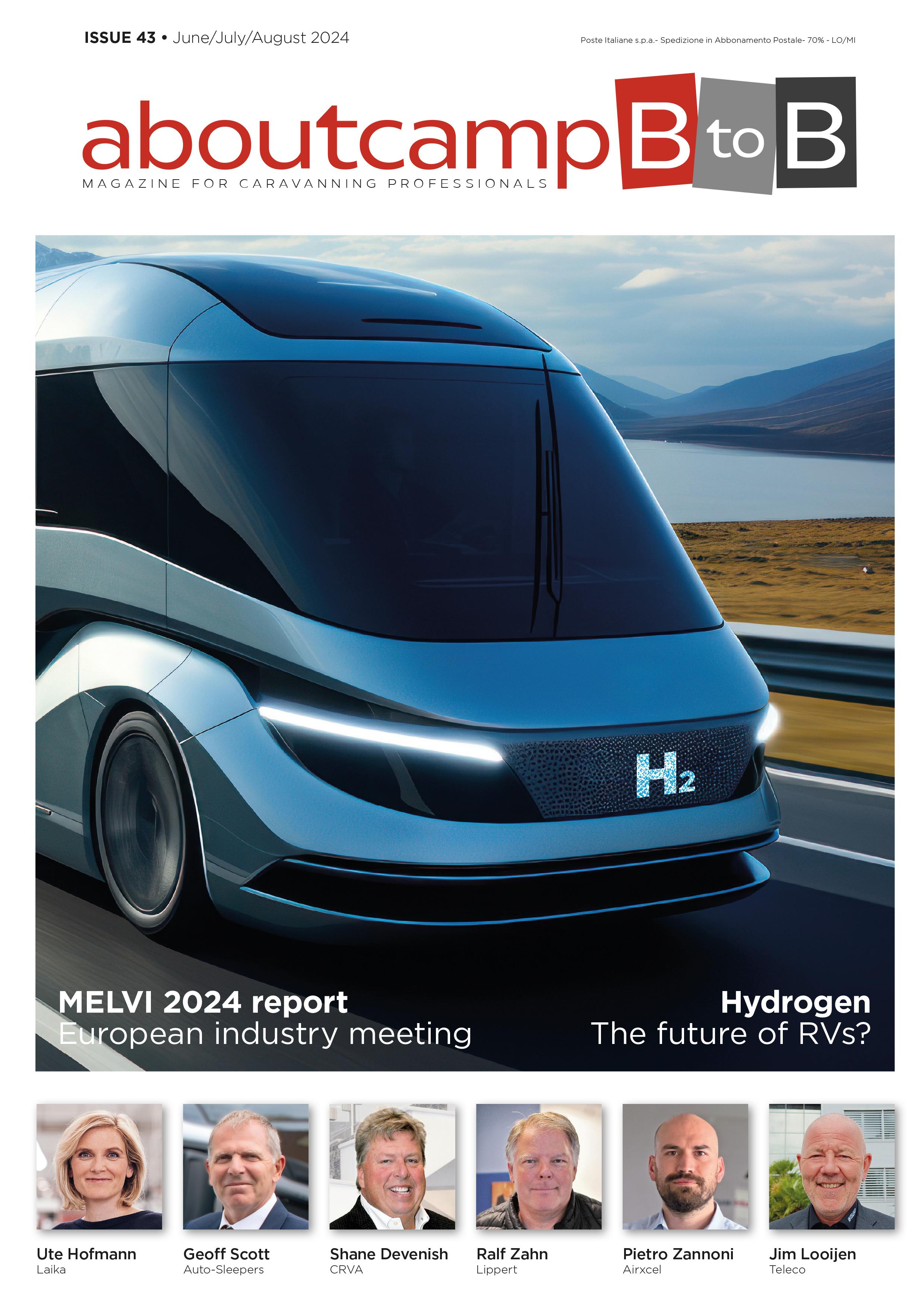

Editor’s note
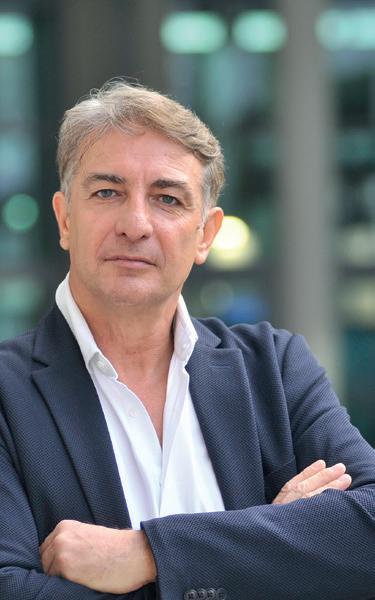
Is hydrogen the future of motorhomes? This is the question many of us are asking, and in this issue of Aboutcamp BtoB, British journalist Terry Owen helps us understand all the aspects of this technology in detail. In the journey towards zero emissions, battery electric vehicles (BEVs) are seen as the future, but they depend on lithium batteries, which have a significant environmental impact. Additionally, limited range and long charging times compared to fossil fuels hinder their adoption in campers and tow vehicles. With refueling times similar to fossil fuels and the ability to produce offgrid energy, hydrogen could be the ideal solution for the camper world. However, vehicle manufacturers are heavily focusing on electric. This was also highlighted by Luca Marengo, VP Head of Product Stellantis Pro One, Global Commercial Vehicle Business Unit, during the 29th Meeting of the European Leisure Vehicle Industry (MELVI) held in Italy in May. Electrification is fundamental for Stellantis, with the goal of achieving carbon neutrality by 2050. Hybrid
Contents
Interviews
• 36 Ute Hofmann Laika

Columns
• 52 Airxcel Investment and innovation
• 56 Euramax for Mobility Aluminium is ‘The Green Metal’
• 58 Filippi 1971 Beyond panels
• 60 Lippert
Long-standing reliable partner
• 64 Bartolacci Design All the forces at play
and internal combustion engine technologies will gradually be replaced by battery electric vehicles (BEVs). Marengo emphasized the importance of charging infrastructure and projected a 50% reduction in battery costs by 2030. Stellantis aims for a fully electric lineup by 2030, with continuous product updates and the introduction of zero-emission campers by 2025. However, hydrogen is also part of the group’s strategies. Stellantis’ roadmap includes the introduction of hydrogen fuel cell commercial vehicles by 2024, aiming to provide flexible and fast refueling options for long-distance travel.
Of course, this issue is not solely dedicated to these topics. As always, we have numerous interesting interviews and insights covering all relevant industry topics. We also provide a specific focus on the latest ECF meeting and the and the long-awaited publication of 2023 sales statistics in Europe by country. These data are no longer publicly available on the ECF website (at least as of today, the end of May 2024), while they can be easily found in other industry magazines, such as the journal of the French manufacturers association, UNIVDL. We hope to see them again soon on the website www.e-c-f.com, a valuable source of information for everyone in the industry.
Antonio Mazzucchelli
•
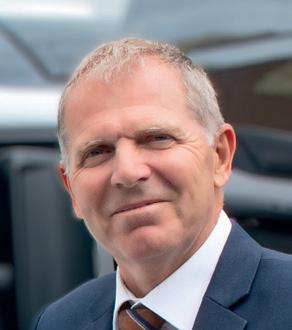
• 66 Teleco Agility and innovation
• 70 AL-KO Innovating for ideas
• 72 Vetroresina Fire-resistant laminates
• 74 Truma Group 150 years of outdoor experience
• 76 Maller Winning team
•
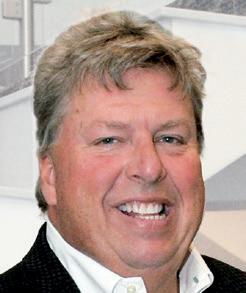
Focus
• 48 Mario Bisson Politecnico di Milano
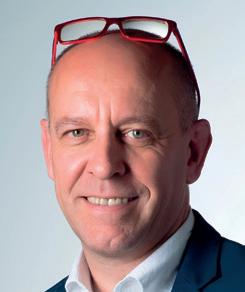
• 78 Hydrogen - part one
A new goal for camper propulsion and energy autonomy?
Reports
• 26 MELVI 2024
The European caravanning industry meets in Italy
• 82 Fit Your Camper 2024
A surprising debut for a first edition
News from the world
• 86 Updates from leading markets
3 Issue 43 JUNE/JULY/AUGUST 2024
40 Geoff Scott AutoSleepers
44 Shane Devenish CRVA
China’s All in Caravanning 2024 proves a great success
All in CARAVANING, which was held from April 19 to 21, 2024, at Beiren Etrong International Exhibition & Convention Center, Beijing, concluded successfully with 12,075 visitors over three days with an increase of over 45% compared to the last edition, among whom there are 326 overseas visitors from 41 countries and regions. Within the 27,000 square meters of indoor and outdoor exhibition space, 95 domestic and international brands were showcased. With strong support from CARAVAN SALON DÜSSELDORF, the world’s largest exhibition for motorhomes and caravans, AIC is dedicated to bringing the pinnacle of the global RV exhibition to China. For the first time, the exhibition was moved from its usual June slot to April, adapting to the evolving RV market and the growing needs of exhibitors. This strategic change paid off, with the event taking place during
Editorial
Editor in chief: Antonio Mazzucchelli direttore@aboutcamp.eu
Senior editor: Renato Antonini
Art director: Federico Cavina
more suitable weather and a prime buying season, thus attracting a larger number of visitors.
“I think that an exhibition like the AIC is the best bridge between the manufacturers and the potential customers to feel and touch it, to get an idea for the
international supporter.
“Over the past 13 years, AIC has committed to establishing an international and professional exhibition platform for the Chinese RV and camping industry. This year, AIC has been upgraded in terms of the exhibition promotion, on-site activities, and newly launched unique feature areas to better meet the local market demands for exhibitions,” said Mr. Marius Berlemann, Regional Head of Messe Düsseldorf for Asia and Managing Director of Messe Düsseldorf in China.
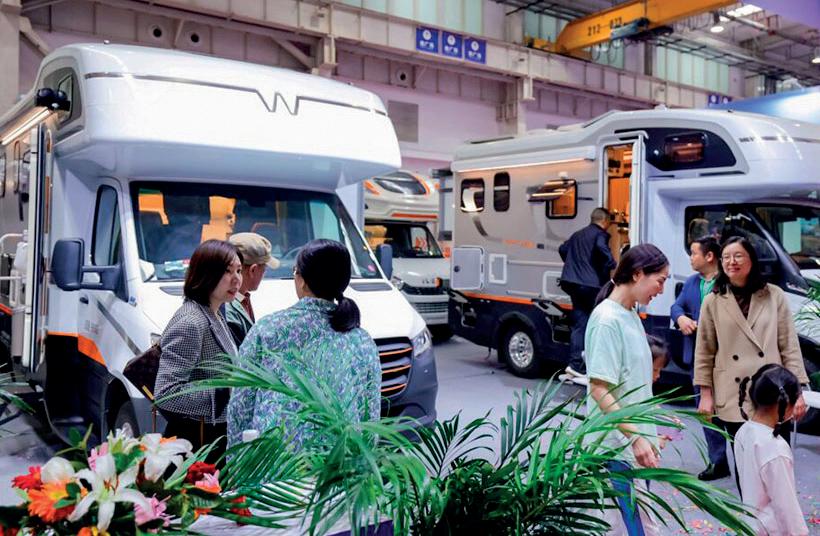
lifestyle. I believe this is what makes AIC important,” said Mr. Bernd Löher, President of the Caravaning Industrie Verband e.V. (CIVD), AIC’s most important
With strong support from Federal Ministry for Digital and Transport, and Federal Ministry for Economic Affairs and Climate Action from Germany, the German Pavilion has made a successful appearance at AIC. And the “Starter world of Caravaning” has become a very popular place, attracting a large number of visitors to have test-driving.
Editorial team: Paolo Galvani - Terry Owen
John Rawlings - Enrico Bona - Peter Hirtschulz
Steve Fennell - David Guest - Bartek Radzimski
Irene Viergever - Giovanni Ricciardi
Giorgio Carpi - Andrea Cattaneo
Web team: Maurizio Fontana - Gabriel Lopez
Advertising
Sales International: direzione@fuorimedia.com
Sales Italy: Giampaolo Adriano +39 338 9801370 adriano@fuorimedia.com
Web edition
Print edition
Would you like to receive the print edition of Aboutcamp BtoB? It is free of charge! Subscribe on www.aboutcampbtob.eu
Aboutcamp BtoB helps professionals in the caravan/RV and leisure industry around the world keep up to date with all the latest business news and market trends in this sector. It’s the most well informed source of B2B information in the caravan industry, with a unique global perspective and an international team of correspondents delivering daily news online at www.AboutcampBtoB.eu, a bi-monthly e-newsletter, and a high quality print magazine delivered (free) in Europe, the United States, Australia, New Zealand, South Africa, Japan, China, Korea, Argentina, Brazil, Chile. The Aboutcamp BtoB magazine is published four times a year with features including exclusive interviews with senior management from the industry, reviews of the major exhibitions around the world, and reports about the latest market trends, plus in-depth profiles of OEM suppliers who specifically manufacture components for this sector. With all the recent acquisitions, new technological developments and more and more consumers buying leisure vehicles around the world, Aboutcamp BtoB is essential reading for everyone working in any business related to the caravan industry. While so many flock to the internet, and have an inbox full of emails, Aboutcamp BtoB decided to print a paper magazine so that it gets more noticed, read, appreciated and discussed; so, we wish you happy reading!

Aboutcamp BtoB is also a website updated daily with news and information dedicated to RV builders and OEM producers. The website is supported by a professional newsletter sent monthly to the professionals in the RV sector. We also strengthened our presence on LinkedIn, where we manage the business page of the magazine but also the group “Caravanning Professional” which allows us to develop direct and informal relationships with decision-makers in the RV industry.
On our website is possible to read online the print edition of all Aboutcamp BtoB issues at: www.aboutcampbtob.eu/read-the-magazines
Fuori Media srl
Viale Campania 33 - 20133 Milan – Italy
Ph +39 0258437051 - E-mail: redazione@aboutcamp.eu
Internet: www.aboutcampbtob.eu
Registered with the Milan Court on 22 Dec. 2016 at No.310.
Subscription ROC 26927
4 N ews
Printed
at Graphicscalve SpA - Vilminore di Scalve (BG) Italy
Headquarters
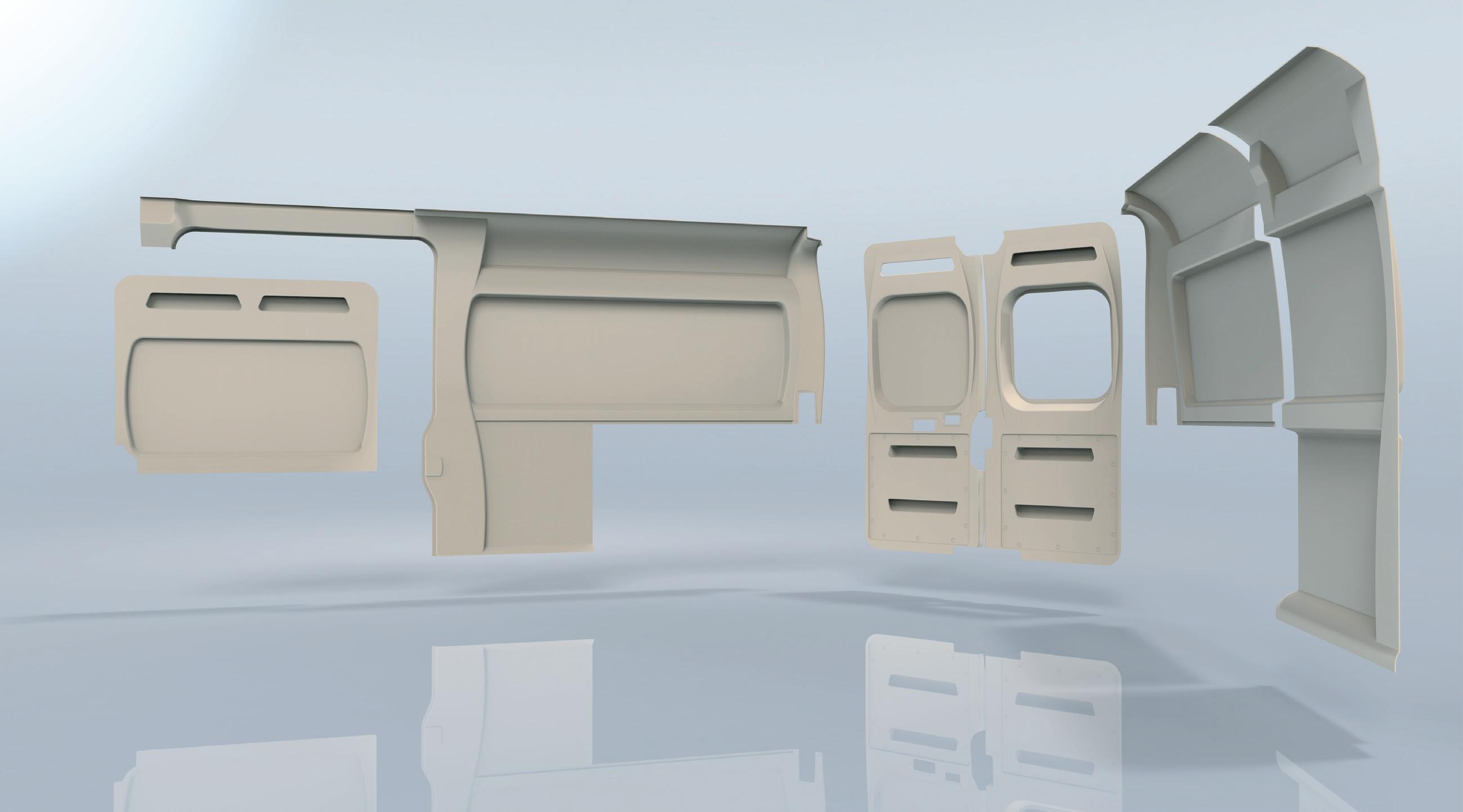
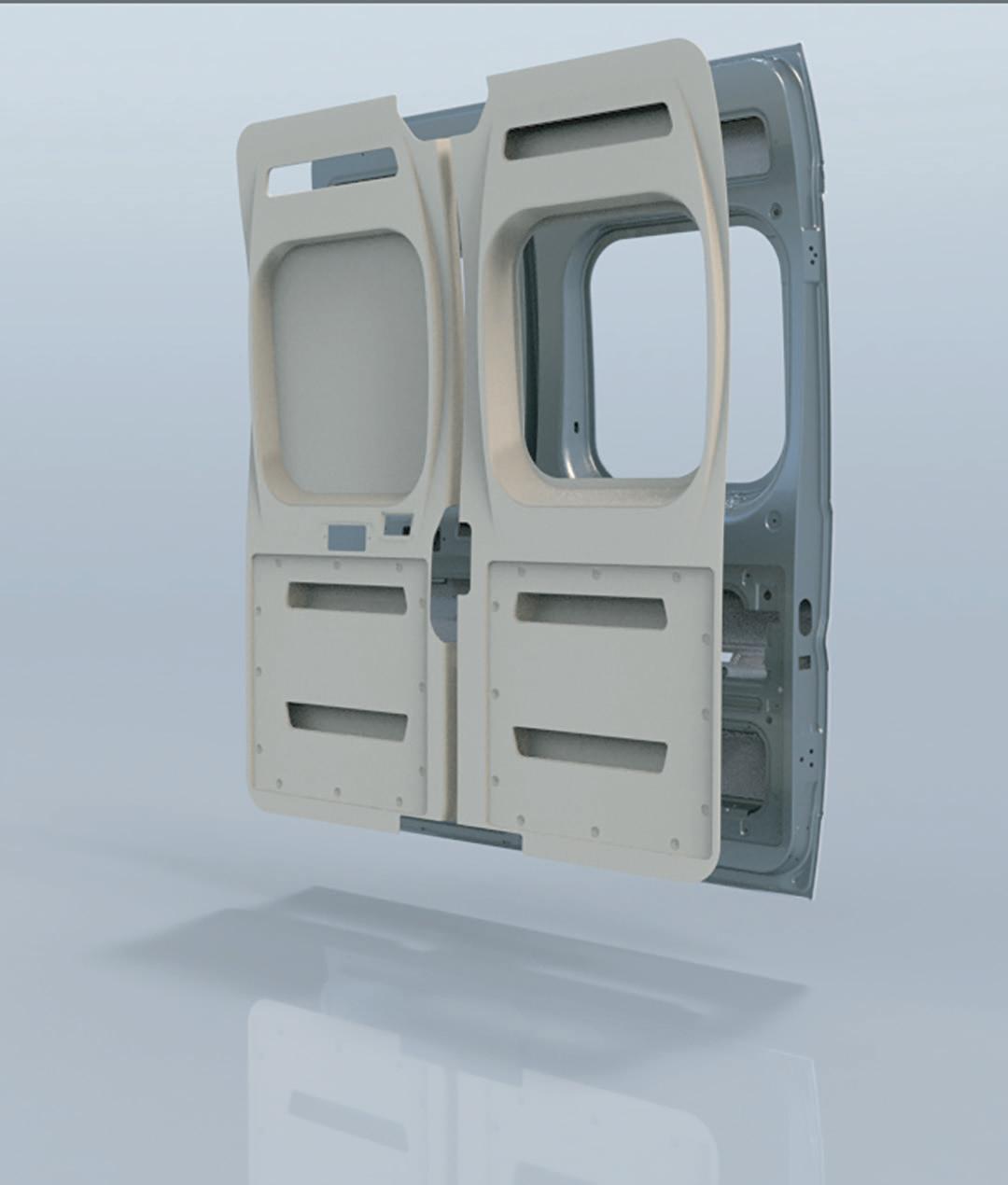
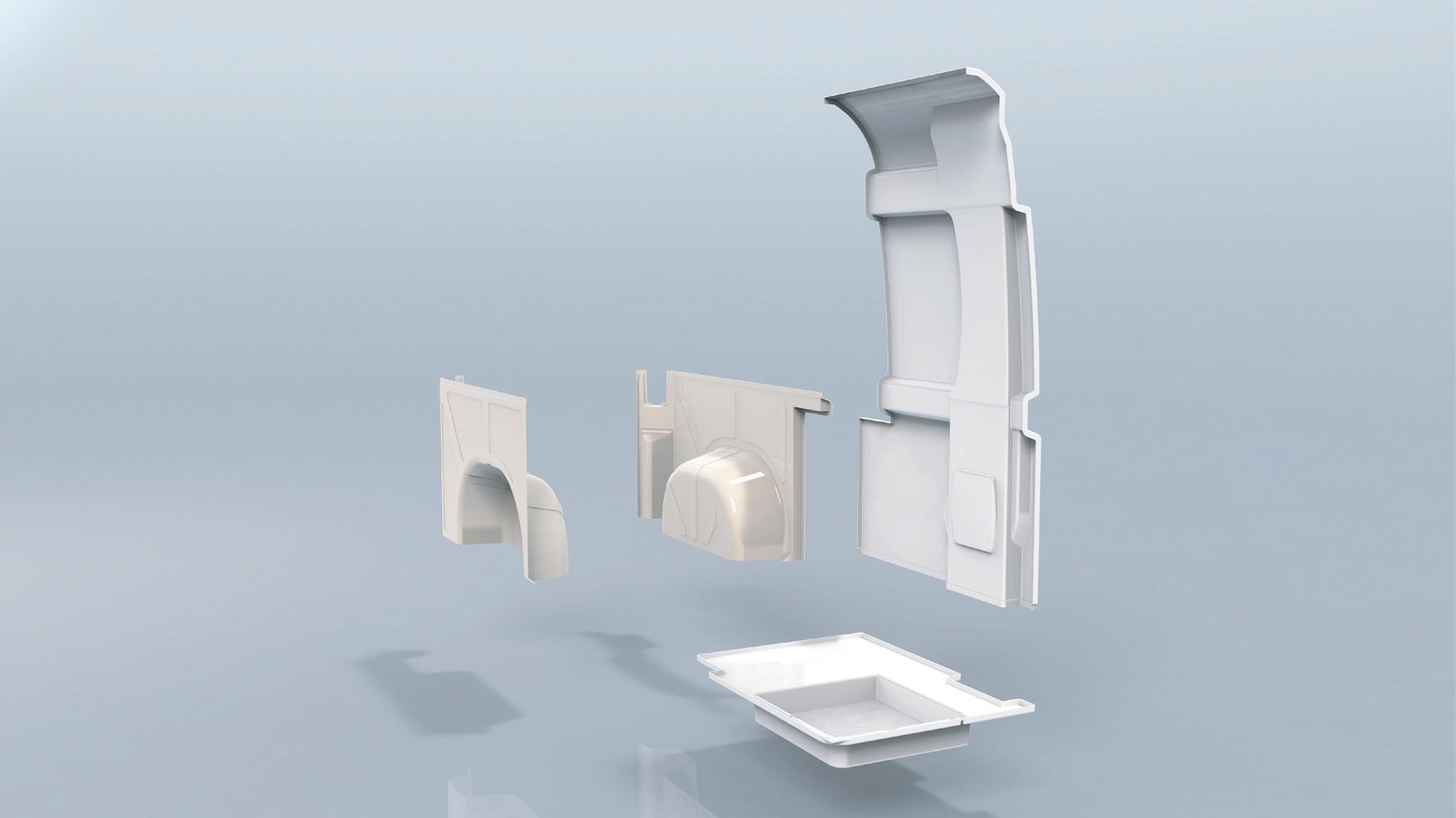
5
12,000 km zero-emissions caravan journey
A couple from the Netherlands have set off on a 12,000 km journey across Europe with a caravan storing hydrogen to power a fuel cell to charge their electric car to do the entire trip with zero emissions. The aim is also to prove that hydrogen could be a viable fuel for camping and caravanning, particularly for covering longer trips. The bespoke caravan is being towed by an all-electric Ford 150 Lightning pick-up truck. They have modified the car so it can be charged by a fuel cell while driving. With 28 kg of hydrogen stored in the caravan, they claim to be able to travel 1,100 km with-
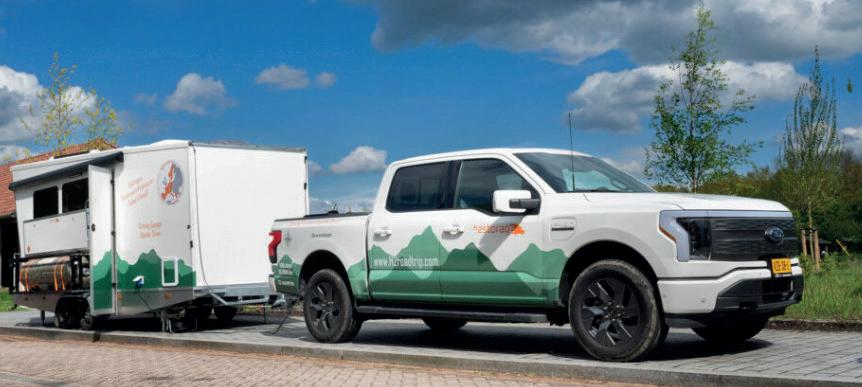
out needing to refill. Their fuel cell also powers everything in the caravan, such as hot water and cooking facilities, supported by solar panels. During the road trip, they will be hosting events in each country to promote the use of hydrogen. They will be starting from the Netherlands and travel through 12 countries in 100 days to reach their destination in Istanbul, Turkey.
“Hydrogen plays an important role in reaching the targets of the Paris climate agreement for 2030. Over the last decade people always spoke about hydrogen as the fuel for the future. We want the world to know that the future has started,” say André and Els Molengraaf. “H2storage can deliver part of the solution to fulfill the climate agreement of Paris today. The fact is that we are able to store hydrogen today under high pressure, and use it as an energy carrier for the fuel cells or combustion engines,” they added.
Flexis SAS teases image of its electric vans
Flexis SAS, the joint venture founded on March 22, 2024 by Renault Group and Volvo Group, is being joined by CMA CGM, through PULSE, its energy fund, which has acquired a 10% stake and confirmed its interest for a strategic investment up to €120 million by 2026. Volvo Group and Renault Group, holding each a 45% stake in Flexis SAS, plan to invest €300 million over the next three years. This coalition between the Volvo Group, Renault Group and CMA CGM Group intends to deliver the next generation of electric vans and address the expectations emerging as professional customers face increasing pressure from climate change and CO2 regulations, while e-commerce and logistics are booming. It says the European market for electrified vans is expected to grow by an average of 40% per year until 2030.Flexis SAS says it in-
tends to lead the decarbonization of transport and logistics sectors. As a coalition of three leading companies with an agile start-up approach, Flexis SAS combines the industrial expertise of world class automotive manufacturers and the know-how of the number one company for automotive logistics.
The vehicles will be built on a new fully-electric LCV skateboard platform that Flexis SAS says will offer high modularity for different body types at a competitive cost, and breakthrough on safety requirements. By adopting the new connected electronic platform, the vehicle will onboard unprecedented capabilities to monitor users’ delivery activity and business performance, reducing up to 30% the global cost of usage for logistic players. The van itself will offer a strong capacity for urban mobility, and be highly versatile for tailor made solutions with different battery capacities, as well as the first 800V architecture on the market for vehicles in this category. The vehicles will be produced in Renault Group’s Sandouville plant, expert in the LCV manufacturing, which will recruit 550 people over the next four years.
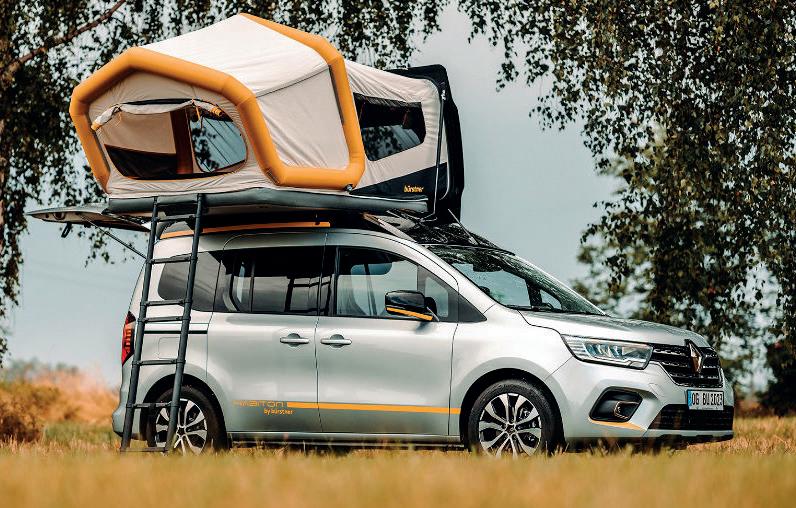
Bürstner’s Habiton micro camper wins another award
The Bürstner micro camper concept car Habiton, featuring an integrated roof tent, has won an iF Design Award in the “1.01 Automobiles / Vehicles” category. The iF Design Award is awarded by the iF International Forum Design GmbH and is considered one of the most prestigious awards in the design sector worldwide. Bürstner first revealed the Habiton micro camper concept car at the Caravan Salon in Düsseldorf last year.
Kampgrounds of America releases 2024 Camping & Outdoor Hospitality Report
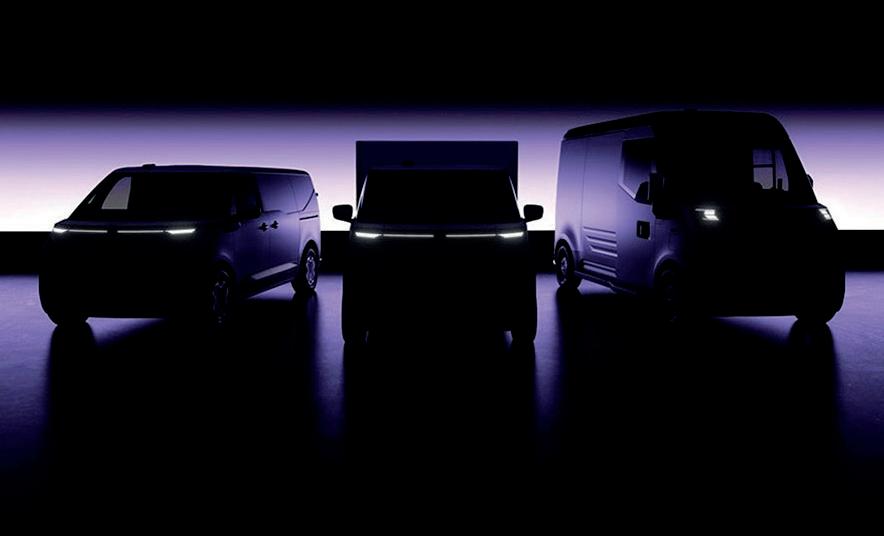
Kampgrounds of America (KOA) has launched its 2024 Camping & Outdoor Hospitality Report – an annual research initiative that details North American leisure travelers’ camping and outdoor travel preferences and trends. Some key findings are that campgrounds have welcomed more than 41 million first-time camping households since the first survey was conducted in 2014 and since then there has been a 98% increase in the number of households that camp three or more times annually. More than half of campers reported they are more likely to continue camping in 2024 and beyond, a 15% increase over 2023. The 2024 report celebrates a decade of research and has been expanded to further examine the dynamic landscape of camping and outdoor hospitality. Supplemental reports include: outdoors & wellness; glamping; camping trips and travel experiences; and camping in Canada. Over the past 10 years of KOA’s research, active campers have increased by 68%, adding an additional 21.6 million households.
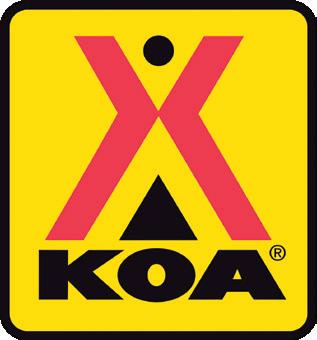
6
N ews
Trigano reports robust growth in first half of 2023/2024
Trigano has reported a significant increase in sales for the first half of the 2023/2024 fiscal year, with total revenues reaching €1.9 billion, marking an 18.4% rise from the previous year. This growth has been predominantly driven by a robust performance in the motorhome segment, which saw a remarkable increase of 26.4%. In the detailed financial breakdown, Trigano’s leisure vehicles, which include motorhomes and caravans, recorded sales of €1,827.5 million for the half-year, a 19.6% increase from €1,528.5 million in the previous year. This surge is attributed mainly to a significant improvement in the logistics chain and the end of shortages of rolling bases, which bolstered motorhome sales volumes by over 20%. Contrastingly, the caravan sector faced challenges, with sales plummeting by 29.4% due to rising interest rates affecting customer purchasing power. The accessories segment for leisure vehicles
also experienced a decline, dropping by 6.2%, influenced by a cautious approach from retailers adjusting to normalized wholesaler inventory levels during the winter. The leisure equipment sector painted a mixed picture. While trail-
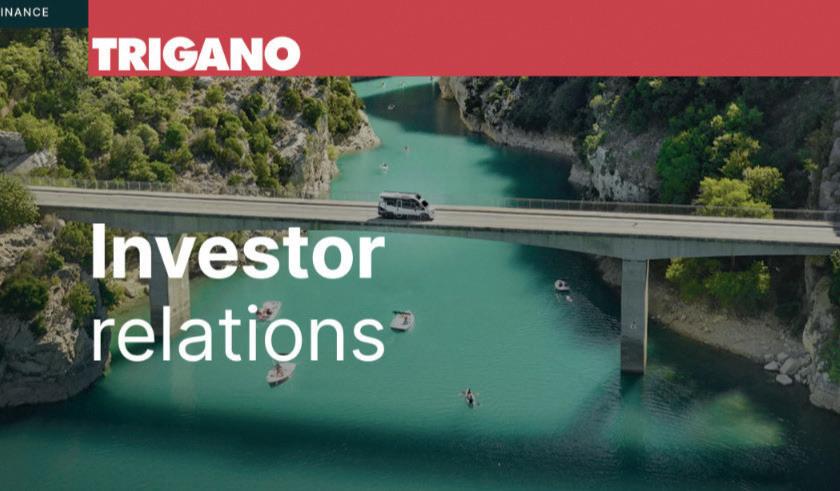
er sales grew by 8.8%, benefiting from strong demand across all segments, particularly luggage trailers, the broader category of other leisure equipment, including camping and garden equipment, declined by 35.8%. This drop, however, is viewed as less significant due to the sea-
sonal nature of these products. Looking ahead, Trigano is optimistic about the ongoing calendar year. The company notes a positive trend in the motorhome market in Europe, particularly with firsttime buyers, and reports high attendance at fairs and regional shows. These factors are contributing to a robust spring sales period, particularly for new vehicles and traditional motorhomes. Trigano’s dealership network has successfully rebuilt inventories, positioning them well for sustained customer deliveries in the second half of the year. The company’s order books are full, indicating strong production capacity utilization for the 2023/24 season. The normalisation of logistics flows – still in progress – is resulting in a transitory increase in working capital requirement, which is enhanced by the development of Trigano’s retail business (Libertium and Marquis) and by the seasonality of the activity.
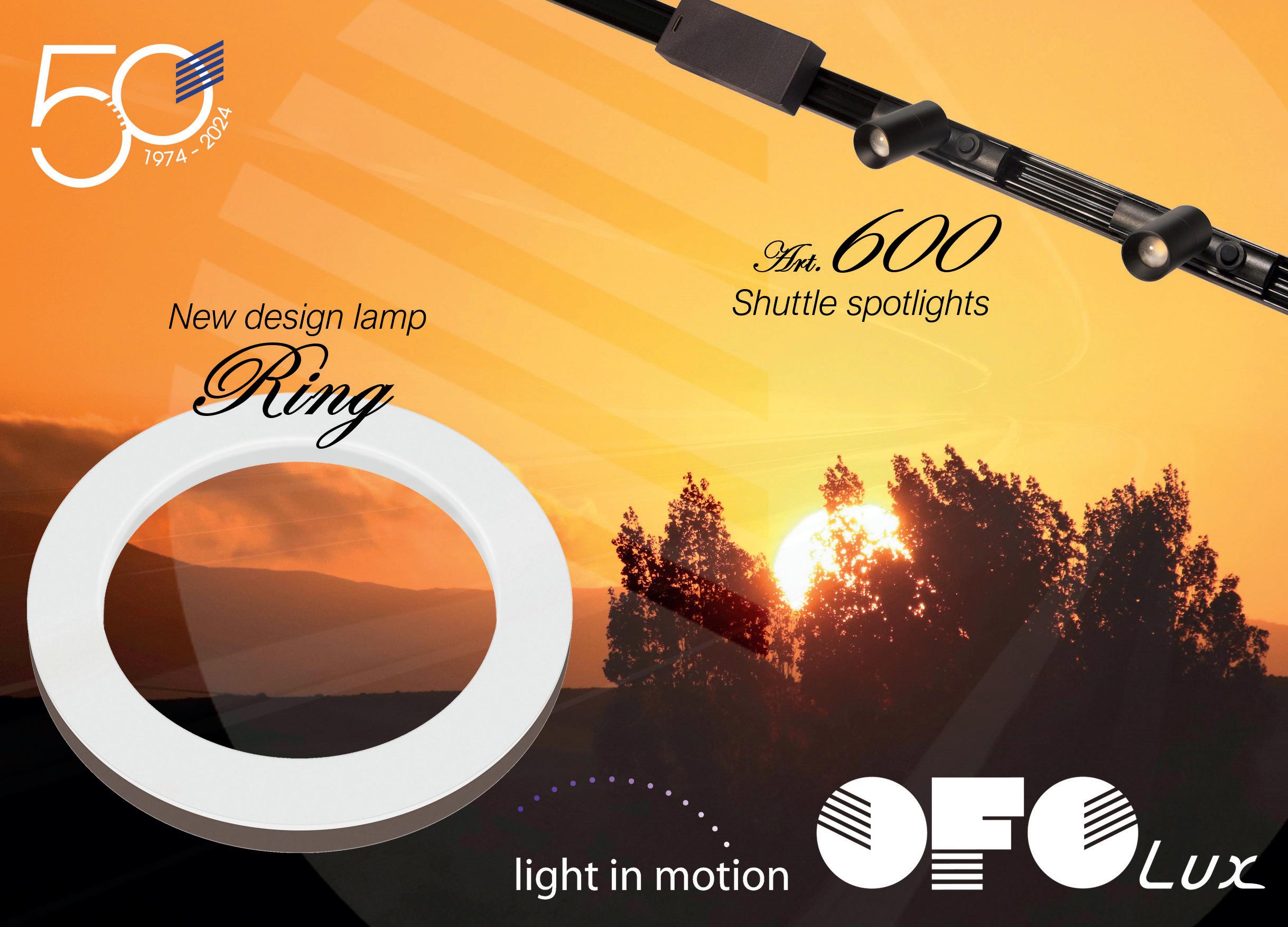
7
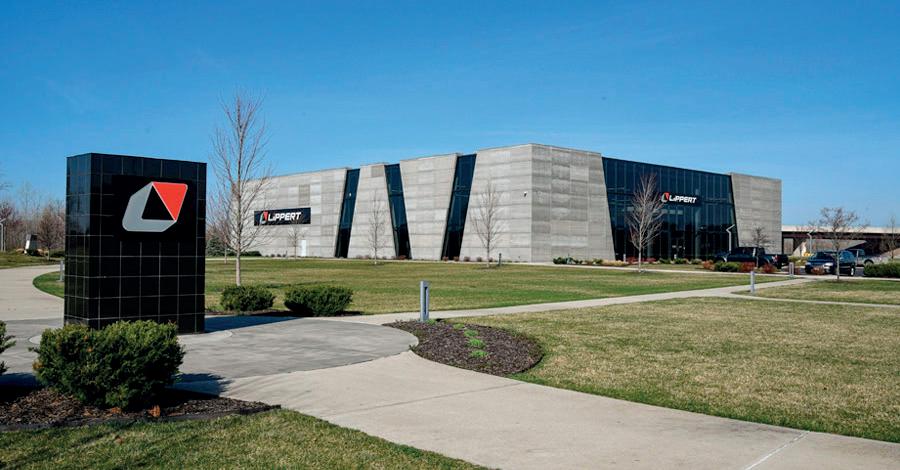
Lippert delivered ‘solid results’ in Q1 2024 financial report
LCI Industries, through its wholly-owned subsidiary, Lippert Components, Inc. (“Lippert”), has reported it first quarter 2024 results.
Consolidated net sales for the first quarter of 2024 were $968.0 million, a decrease of 1% from 2023 first quarter net sales of $973.3 million. Net income in the first quarter of 2024 was $36.5 million, or $1.44 per diluted share, compared to $7.3 million, or $0.29 per diluted share, in the first quarter of 2023.
The decrease in year-over-year net sales for the first quarter of 2024 was primarily driven by lower North American marine production levels and decreased selling prices which are indexed to select commodities, mostly offset by increased North American RV wholesale shipments.
“We delivered solid results in the first quarter, starting the year with healthy EBITDA generation and margin expansion supported by our strong operational focus and improved material costs. As we continue to diversify our business, strength in some of our growing markets like automotive aftermarket, housing, and our transportation businesses has consistently lifted profitability while adding a layer of durable, countercyclical revenue streams. We believe that our diversified markets will remain important drivers of Lippert’s profitable growth into the future,” commented Jason Lippert, LCI Industries’ President and Chief Executive Officer. “We are seeing signs of recovery in North American RV and expect a gradual improvement in production heading further into the year, led by towables where we typically provide the majority of our innovative RV content. Further, introductions of advanced products like our transformational ABS system are embedding us even deeper with key OEMs across our markets, creating opportunities for long-term content growth and serving as the catalyst for approximately $200 million in new business commitments for 2024.”
“We are committed to making continued operational improvements across our footprint, with a focus on creating flexible capacity while reducing costs. We continue to reduce inventory and focus on cash generation as we progress through the year. With our fortified balance sheet, we will continue investing in R&D and innovation while pursuing strategic growth opportunities and returning capital to shareholders,” continued Mr. Lippert. “Looking ahead, we are well-positioned to capture market share gains and advance our competitive position throughout 2024.”
April 2024 consolidated net sales were approximately $378 million, up 12% from April 2023, primarily due to an approximate 17% increase in North American RV production, partially offset by an approximate 33% decline in marine sales compared to April 2023.
The new Crafter is ready to go
The new Crafter will be taken to a higher level by means of an extensive software and hardware update. The cockpit in particular has been completely redesigned and now features the latest generation of infotainment systems. The fresh features include the Digital Cockpit, a multifunction steering wheel, an electronic parking brake and various assist systems. A key option is the digital voice assistant with ChatGPT integration. Pre-sales of the new Crafter start in mid-April.
The new Crafter will come with digital instruments as standard: the Digital Cockpit. A defining interior detail of the 2024 Crafter is a now 10.3-inch and optionally 12.9-inch infotainment display based on the latest modular infotainment matrix (MIB). The visually free-standing Volkswagen system has a newly developed graphical interface and self-explanatory menu navigation. The Crafter will also receive a new online voice control system for many vehicle functions. This system features ChatGPT integration and responds to natural voice commands. The handbrake and the switch for the automatic gearbox have been redesigned, as have the controls for the light functions, the buttons in the area of the centre console and all vents.
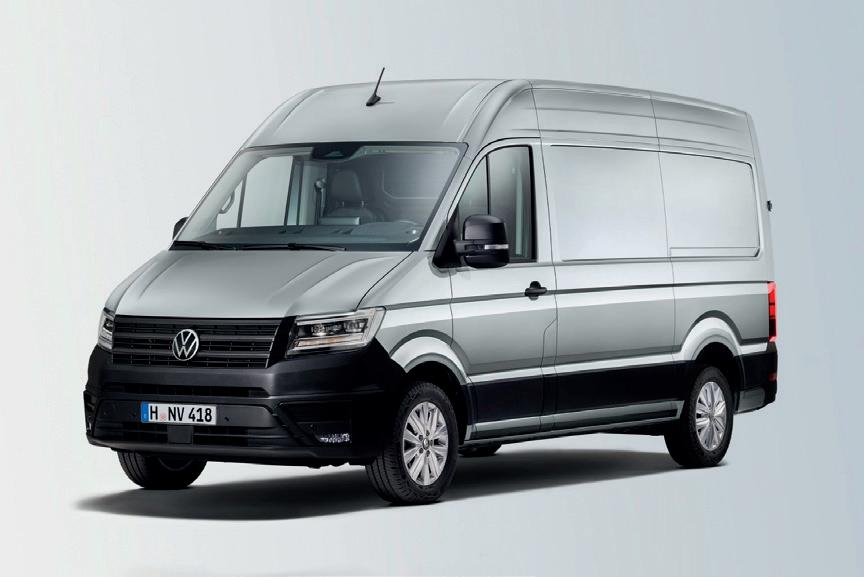
Tickets for the 63rd Caravan Salon Düsseldorf on sale
CARAVAN SALON will open its doors with a globally unique offering from 30 August (Preview Day) to 8 September 2024. The sector’s most important manufacturers will be presenting caravans, motorhomes and campervans for every taste and every destination in Düsseldorf. In addition, visitors can look forward to a huge selection of accessories, technical equipment, detachable parts, rooftop tents, mobile homes, caravanning and camping supplies, travel destinations, campsites as well as RV park pitches.
The Preview Day on Friday, 30 August, is particularly suitable for those interested in seeing and examining live the innovations of the sector right on the first day of the trade fair. The limited number of tickets ensures a relaxed tour of the exhibition halls. The exclusive atmosphere permits visitors to compare favourite models without time pressure and is especially recommended for visitors with concrete intentions to buy. The Preview Day is also ideally suited for experts, industry insiders and business visitors as a networking platform with one-on-one consulting and in-depth conversations.
8 N ews
Messe Düsseldorf appoints Marius Berlemann as new MD
Messe Düsseldorf GmbH, the venue for the annual Caravan Salon, has appointed Marius Berlemann (38) as the operative managing director. When he takes on this new role on August 1, Marius Berlemann will succeed Erhard Wienkamp (65), who will retire at the end of July 2024. As operative managing director, Marius Berlemann will take over Erhard Wienkamp’s areas and projects at the homebase Düsseldorf and worldwide. He’ll also
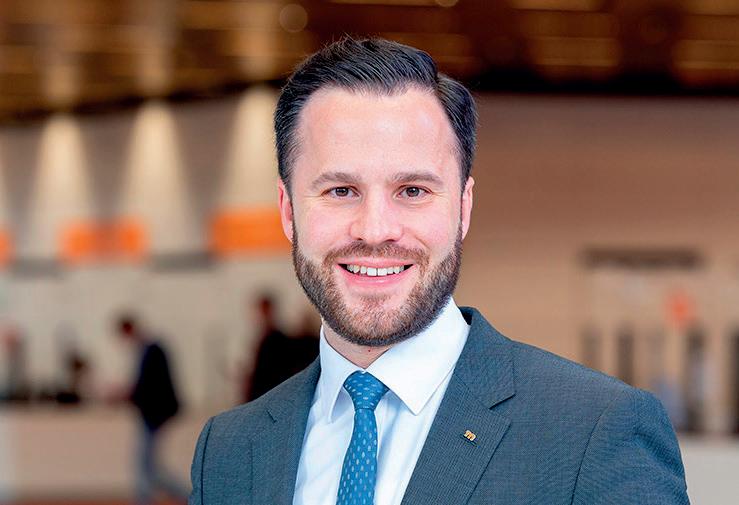
be responsible for the Retail and Retail Technologies portfolio (EuroShop and EuroCIS) and the Occupational Safety and Health/Glass Technologies portfolio (A+A and glasstec). He’ll also oversee the Corporate Social Responsibility department and two of Messe Düsseldorf’s three sales teams. In addition, Marius Berlemann will be responsible for the departments International Participations & Services, Special Events, which includes the German venues for the Olympic and Paralympic Games, Conference Management and International Business. Marius Berlemann has been working at Messe Düsseldorf GmbH for over 13 years. In 2011, he started his career there with a traineeship. Subsequently, he served as senior project manager of ProWein where he was already involved in the internationalization of this event and looked after key accounts. In 2013, he was
posted to Messe Düsseldorf Shanghai to organize the first ProWine China as project director. He returned to Düsseldorf in 2014, where he served as the project director of ProWein and global head of Wine & Spirits until 2019. Berlemann then returned to Messe Düsseldorf Shanghai, where as general manager he has since been responsible for 63 employees and twelve international trade shows. In addition, he added the role of managing director of Messe Düsseldorf China, which in 2023 he led to its most successful fiscal year since its founding. On top of that, Berlemann currently manages the new regional hub Messe Düsseldorf for Asia (MDfA) in Singapore, which was founded in April 2024, making him responsible for Messe Düsseldorf’s entire Asian business.
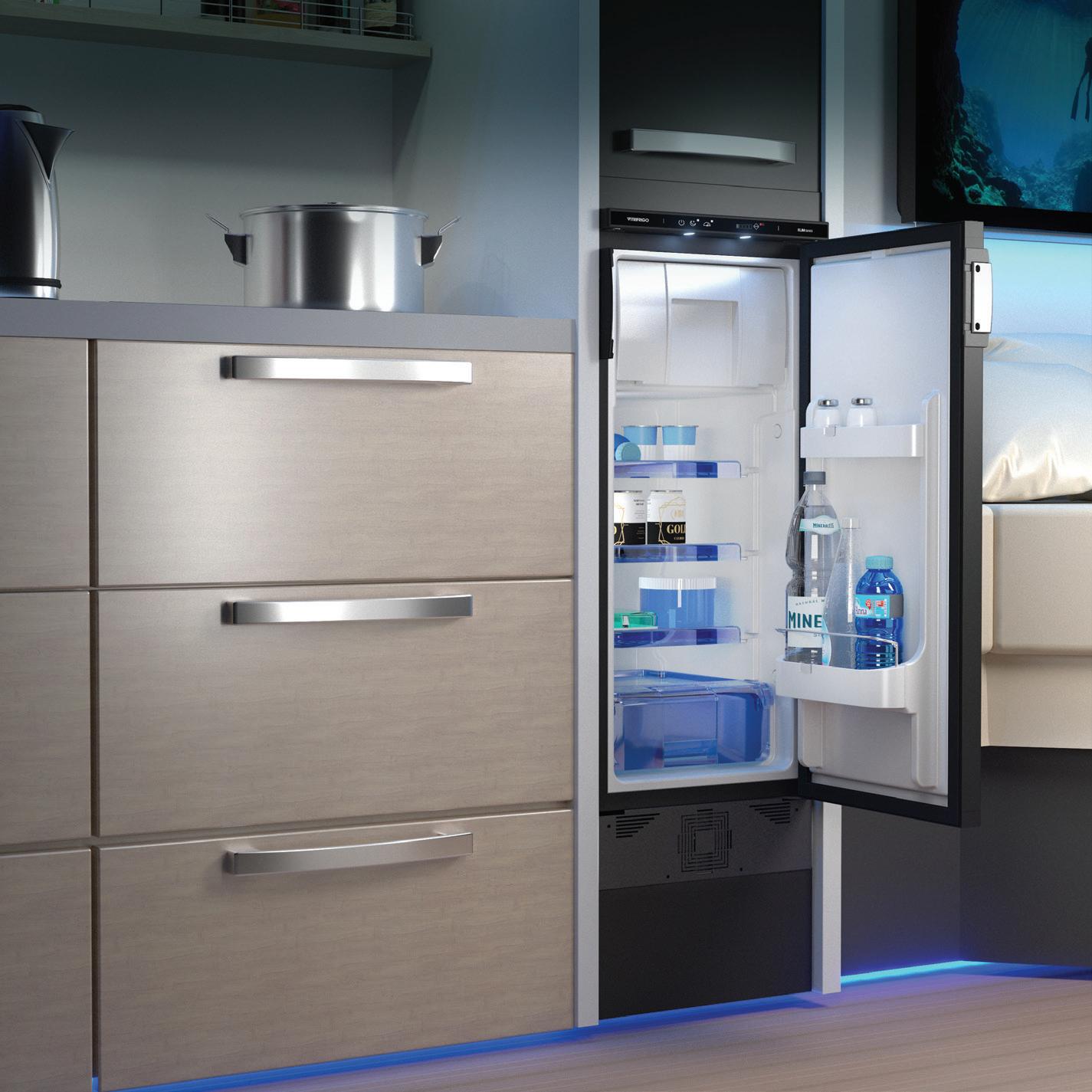
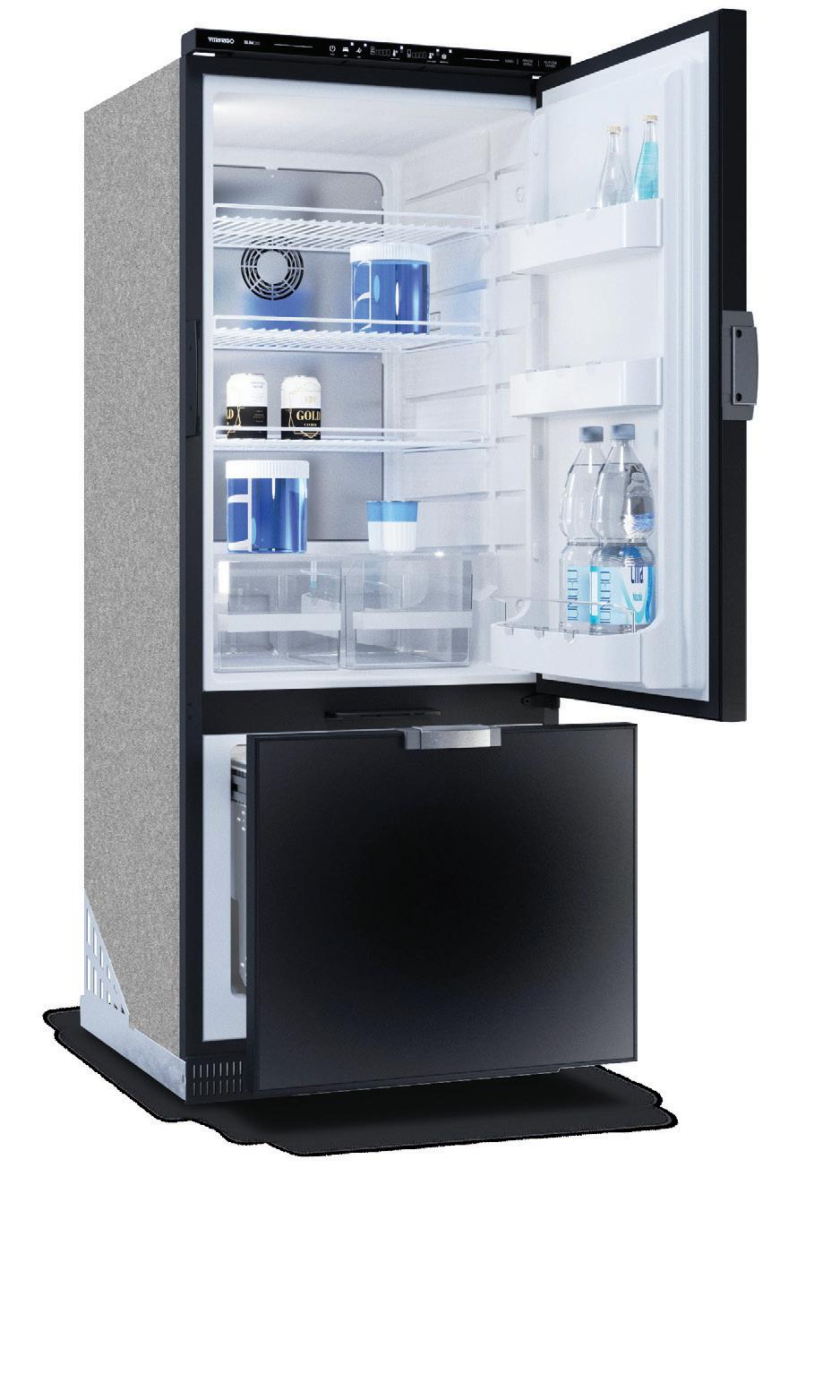


9
Winnebago announces second quarter 2024 results
Winnebago Industries, Inc. has issued its financial results for the fiscal 2024 second quarter (ended February 24, 2024) showing total revenues of $703.6 million, a decrease of 18.8% compared to $866.7 million for the comparable fiscal 2023 period, driven by lower unit sales related to market conditions and unfavorable product mix. Gross profit was $105.3 million, a decrease of 28.3% compared to $146.8 million for the fiscal 2023 period. It recorded a net loss was $12.7 million, compared to net income of $52.8 million in the prior year quarter.
“Winnebago Industries performed in line with our expectations for the quarter, navigating the effects of ongoing softness in the RV and marine markets,” said President and Chief Executive Officer Michael Happe. “As anticipated, wholesale shipments were constrained in the quarter, as dealers continued to closely manage inventory levels amid a higher inter-
est rate environment and seasonal demand trends. Despite these macroeconomic challenges, we continue to demonstrate resilient profitability and an unwavering commitment to operational discipline that is reflected in the Company’s diversified portfolio of premium brands, investments in new products and technologies, and healthy balance sheet.”
Revenues for the Towable RV segment were down compared to the prior year, primarily driven by a decline in unit volume related to market conditions and a reduction in average selling price per unit related to product mix and targeted price reductions, partially offset by lower discounts and allowances. Backlog decreased compared to the prior year due to current market conditions
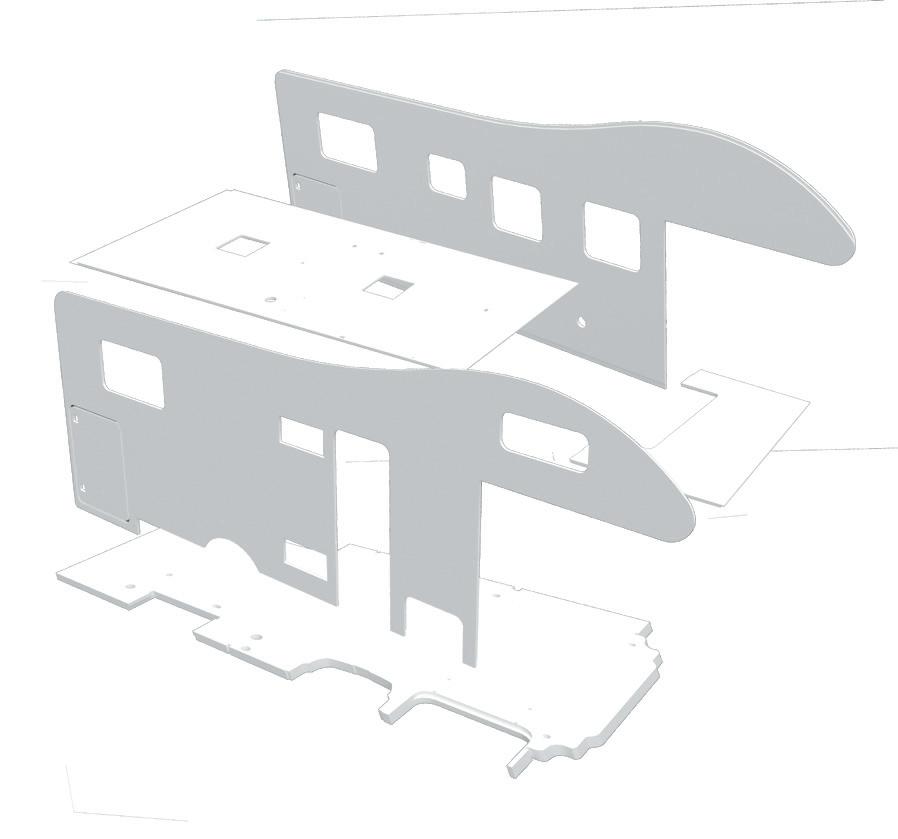
and a cautious dealer network.
Revenues for the Motorhome RV segment were down from the prior year, due to a decline in unit volume related to market conditions, higher levels of discounts and allowances and unfavorable product mix, partially offset by price increases related to higher motorized chassis costs. Backlog decreased from the prior year due to current market conditions and a cautious dealer network.
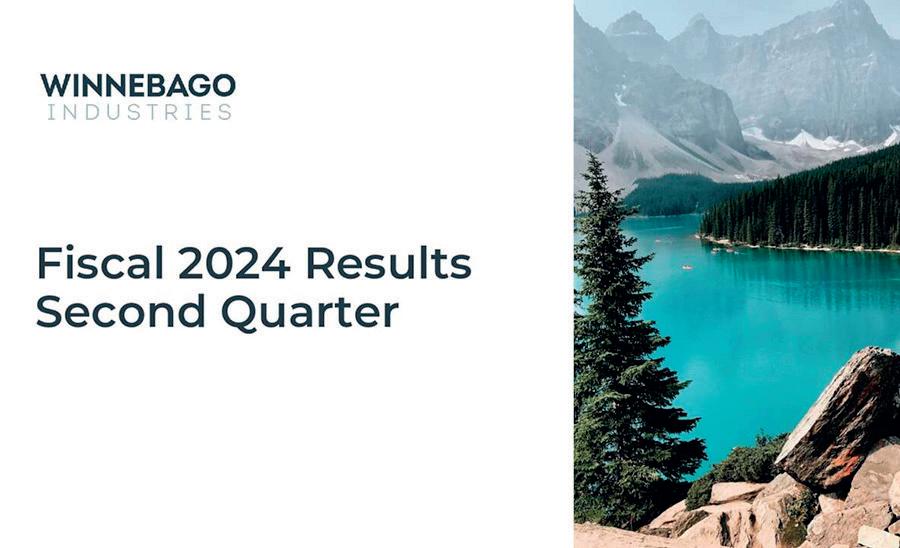
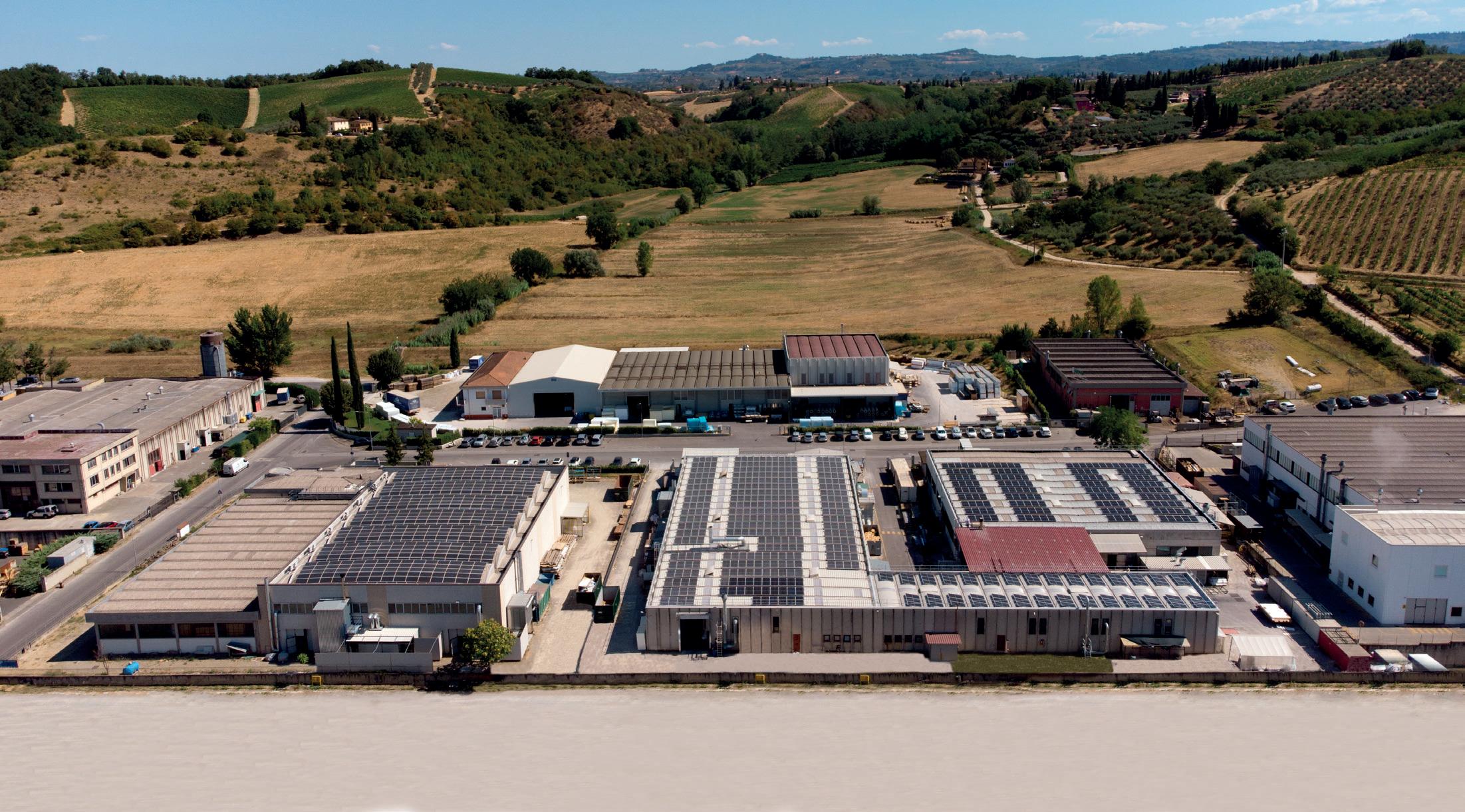
10 N ews
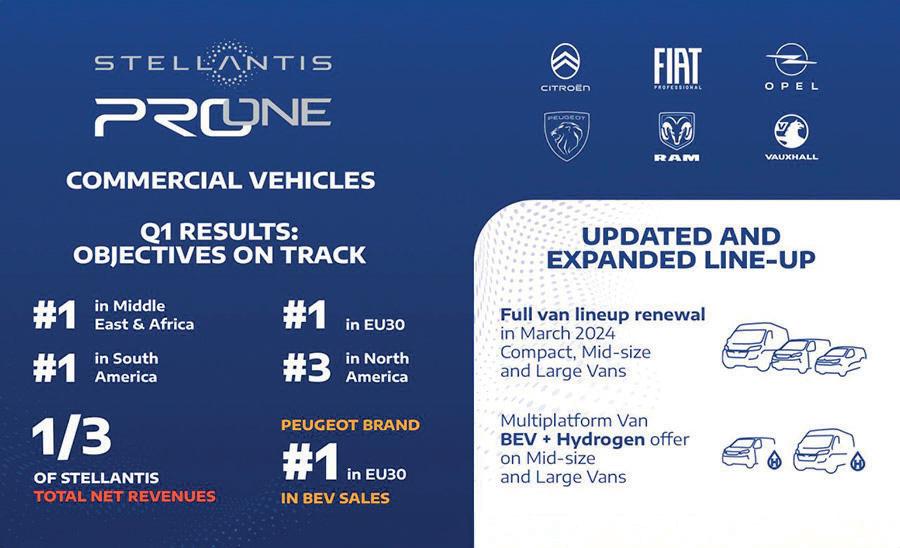
Stellantis commercial vehicles confirms market leadership in several global markets in Q1 2024
Stellantis Pro One commercial vehicles achieved market leadership in the Middle East and Africa region for the second quarter in a row, and maintained the No. 1 position in both EU30 and South America regions. In total, it accounted for one-third of Net revenues reported by Stellantis.
The performance highlights the strength of Stellantis Pro One in global markets and puts it on track to achieve global leadership in commercial vehicles by 2027 and reach the targets outlined in the Dare Forward 2030 strategic plan.
Stellantis Pro One Middle East and Africa region market share reached 26% in the first quarter of 2024.
For EU30 BEV (battery electric vehicle) sales for the quarter, Pro One takes the top spot with 33% market share, with the Peugeot brand leading across the region.
“The Q1 2024 sales performance in commercial vehicles confirms and validates our Stellantis Pro One strategy,” said Xavier Peugeot, Stellantis Senior Vice President, Commercial Vehicles Business. “The enthusiastic welcome of our entirely new van line-up, combined with new connected services and concrete hydrogen fuel cell propulsion van offers confirm Stellantis’ position as the relevant choice for professionals.”
Indel
B achieves Q1 2024 revenue of €53.4 million
Indel B S.p.A. achieved consolidated sales revenues of €53.4 million at 31 March 2024.
Luca Bora, CEO Indel B, said: “Although there has been a drop in revenues, we are satisfied with the results we approved today. Despite a very complex and challenging market environment, which is expected to remain so throughout 2024, we have managed to contain its impact on the Group’s numbers, which once again shows resilience to the difficulties and weaknesses of certain economic cycles. The results once again confirm the validity of our strategic plans, which will continue to guide our actions. The company remains positive in the medium to long term, as per se the reference markets do not show any criticality on their fundamentals”.

11
RV shipments in USA increase 9% in April 2024
The RV Industry Association’s April 2024 survey of manufacturers found that total RV shipments ended the month with 34,197 units, an increase of 9.5% compared to the 31,216 units shipped in April 2023.
“We are encouraged by the continued incremental increases we have been seeing in RV shipments over the past six months,” said Craig Kirby, RV Industry Association President & CEO.
“In this budget conscious environment, consumers are looking for more affordable travel options for their summer trips. RVing is the choice for over 45 million Americans this summer because they can create lifelong memories with family and friends while also saving up to 60% compared to traditional air/hotel vacation.”
Towable RVs, led by conventional travel trailers, ended the month up 14.2% from last April with 30,682 shipments. Motorhomes finished the month down
(-19.4%) compared to the same month last year with 3,512 units.
To date, RVs are up 9.4% compared to the same timeframe last year with 120,138 units shipped through April.
Park Model RVs finished April down (-6.2%) compared to the same month last year, with 453 wholesale shipments.
The charts show 2023/2024 month over month total wholesale RV and Park Model shipments.
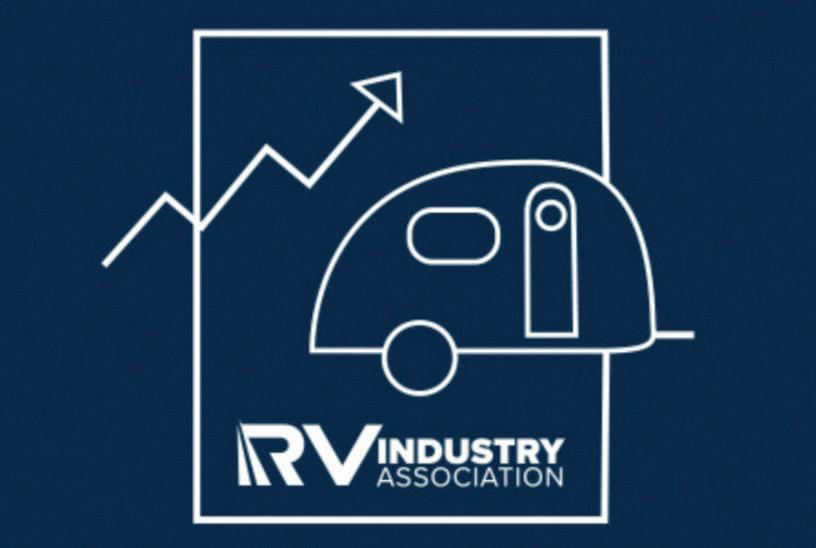

Thousands of staff take part in Lippert Volunteer Week
For the fifth year in a row, Lippert Components participated in National Volunteer Week, April 21st–27th, reaffirming its commitment to using Business as a Force for Good in the World. As Volunteer Week unfolded across the nation and around the globe, thousands of Lippert team members joined in, spearheading impactful initiatives.
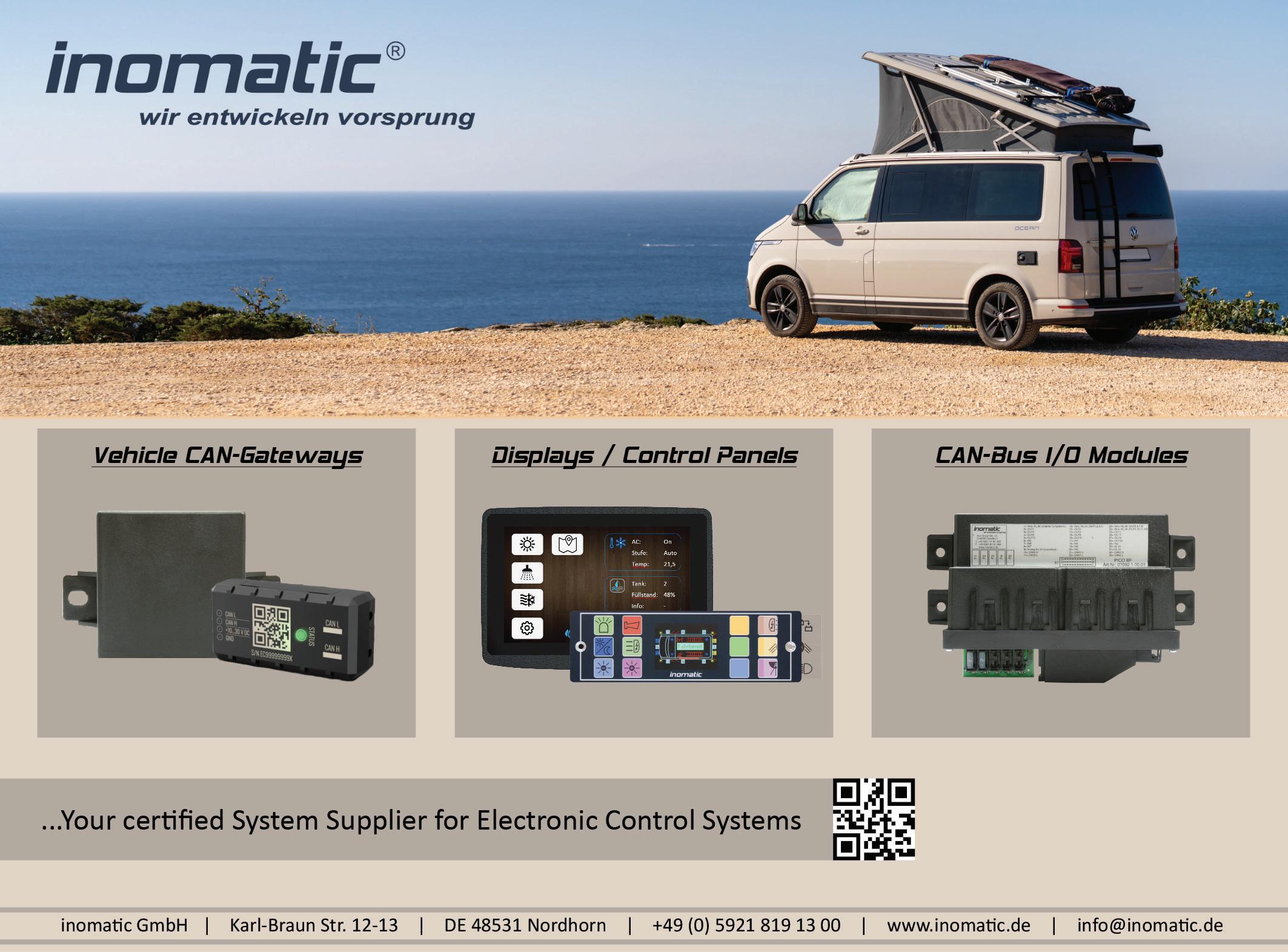
12 N ews

FOR LEISURE VEHICLES
M.B. Trading is a leader supplier for RVs decorative stickers in Europe.
13 DECORATIONS
Knaus Tabbert increases turnover by 2.2% in Q1 2024
The Knaus Tabbert Group increased its revenue by 2.2% to €376.7 million in the first quarter of 2024 (previous year: €368.5 million). The Group continues to have a solid order backlog of around €621 million as at the reporting date of 31 March 2024 – measured against the revenue forecast for 2024 as a whole.
“The start to 2024 is characterised by a positive development of the leisure
vehicle market in Europe. Record figures for new registrations impressively confirm this,” comments Wolfgang Speck, CEO of Knaus Tabbert AG, on the start to the 2024 financial year. “Our order backlog as of the end of March, the product innovations planned for the 2025 model year and the launch of a new brand give us the necessary planning security and confidence for the 2024 financial year.”
In the first three months of the 2024 financial year, Knaus Tabbert achieved an increase in sales in all business segments. €327.7 million of Group sales were attributable to the premium segment (previous year: €323.1 million), while a further €49.0 million (previous year: €45.5 million) was attributable to the luxury segment. Group sales resulted mainly from the sale
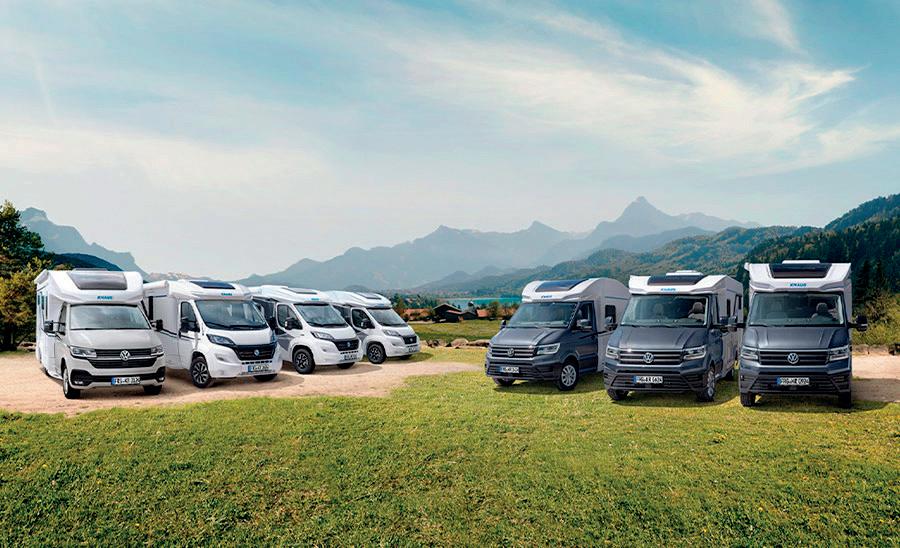
Dometic sales down but EBITA margin improves
Dometic’s Q1 results for 2024 show that net sales were SEK 6,527 m (7,289), a decrease of -10%, of which -12% was organic growth. Operating profit (EBITA) before items affecting comparability was SEK 769 m (847), corresponding to a margin of 11.8% (11.6%), and operating profit (EBIT) was SEK 611 m (667), corresponding to a margin of 9.4% (9.2%). Profit for the period was SEK 273 m (334).
“Despite lower net sales,” says the CEO Juan Vargues, “the EBITA-margin before items affecting comparability for the quarter improved to 11.8 percent (11.6) supported by efficiency improvements, including the cost reduction programs completed in 2023, and continuous price management. In its first quarter as a separate segment, Mobile Cooling Solutions reported a higher margin despite lower net sales supported by sales initiatives, product innovation and cost reductions. The margin for segment Global Ventures improved to 14.2 percent (13.3) fueled by a stronger performance in subsegment Mobile Power Solutions. Segment Land Vehicles EMEA continues to show improvements compared to previous periods while segment Land Vehicles Americas EBITA margin remained under pressure. Several sales and
operational initiatives were launched in the Land Vehicles Americas segment during the quarter, and I am convinced this will accelerate our transformation journey and drive efficiencies and gradual improvements. We will also continue prioritizing margins over volumes on the competitive US market where RV industry production remains at a low level”.
“The long-term trends in the Mobile Living industry are strong, however it remains difficult to predict how the current macroeconomic situation and market conditions will impact the business in the short term. Our planning assumptions from 2023 remain largely unchanged; we anticipate the recovery in demand in the Service & Aftermarket sales channel to continue in 2024. In the Distribution sales channel we expect a continued gradual recovery coming quarters as retail inventories decline. In the OEM sales channel we foresee a continued weak demand short-term but with an improvement towards the end of the year.”
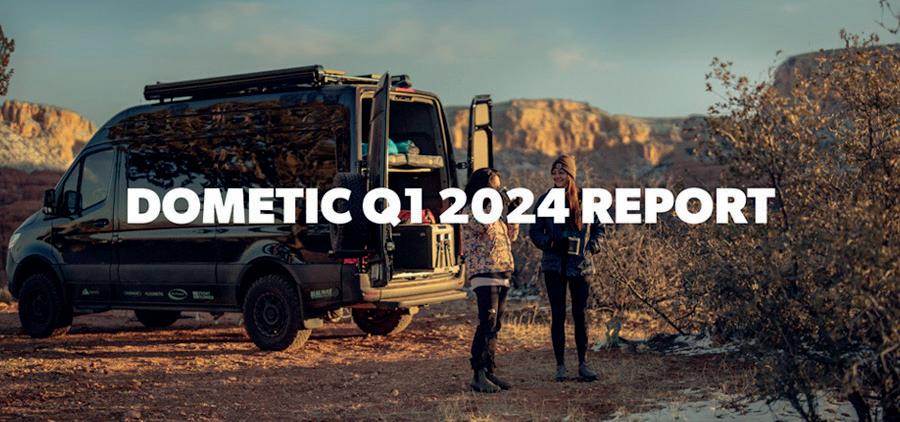
of recreational vehicles. Aftersales, which mainly comprises the spare parts business, contributed €9.9 million (previous year: €4.3 million) to sales. Based on the current business development of the Knaus Tabbert Group, the following forecasts have been made for the key performance indicators. For the 2024 financial year, we expect Group revenue to develop in a range of €1.4 billion to €1.55 billion compared to the 2023 financial year. For the remainder of the 2024 model year, which ends on 31 July 2024, Knaus Tabbert is not planning any price increases compared to the trade. In the past financial year, Knaus Tabbert delivered 4,663 motorhomes and camper vans (previous year: 4,390) and 2,925 caravans (previous year: 3,915) across the Group. A total of 7,588 units were invoiced.
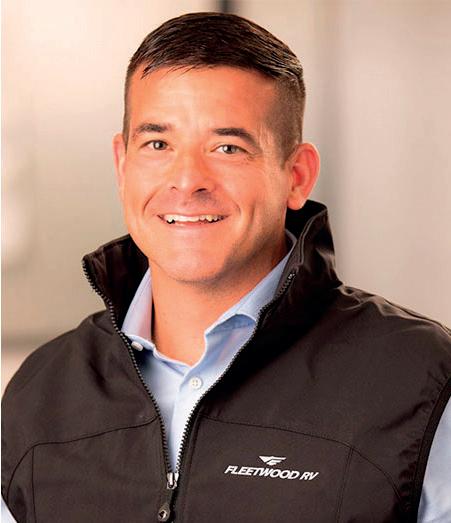
REV
Group promote Gary Gunter to Vice President of REV Recreation Group
REV Group has announced the promotion of Gary Gunter to the role of Vice President/General Manager of REV Recreation Group, Inc., encompassing Fleetwood Family Class A RV brands which includes Fleetwood RV, Holiday Rambler, and American Coach and Goldshield Fiberglass.
Gary has been with the company since 2011. His first position at REV Recreation Group was Division Controller before moving to Divisio Controller – Recreation at REV Group Inc.
14 N ews
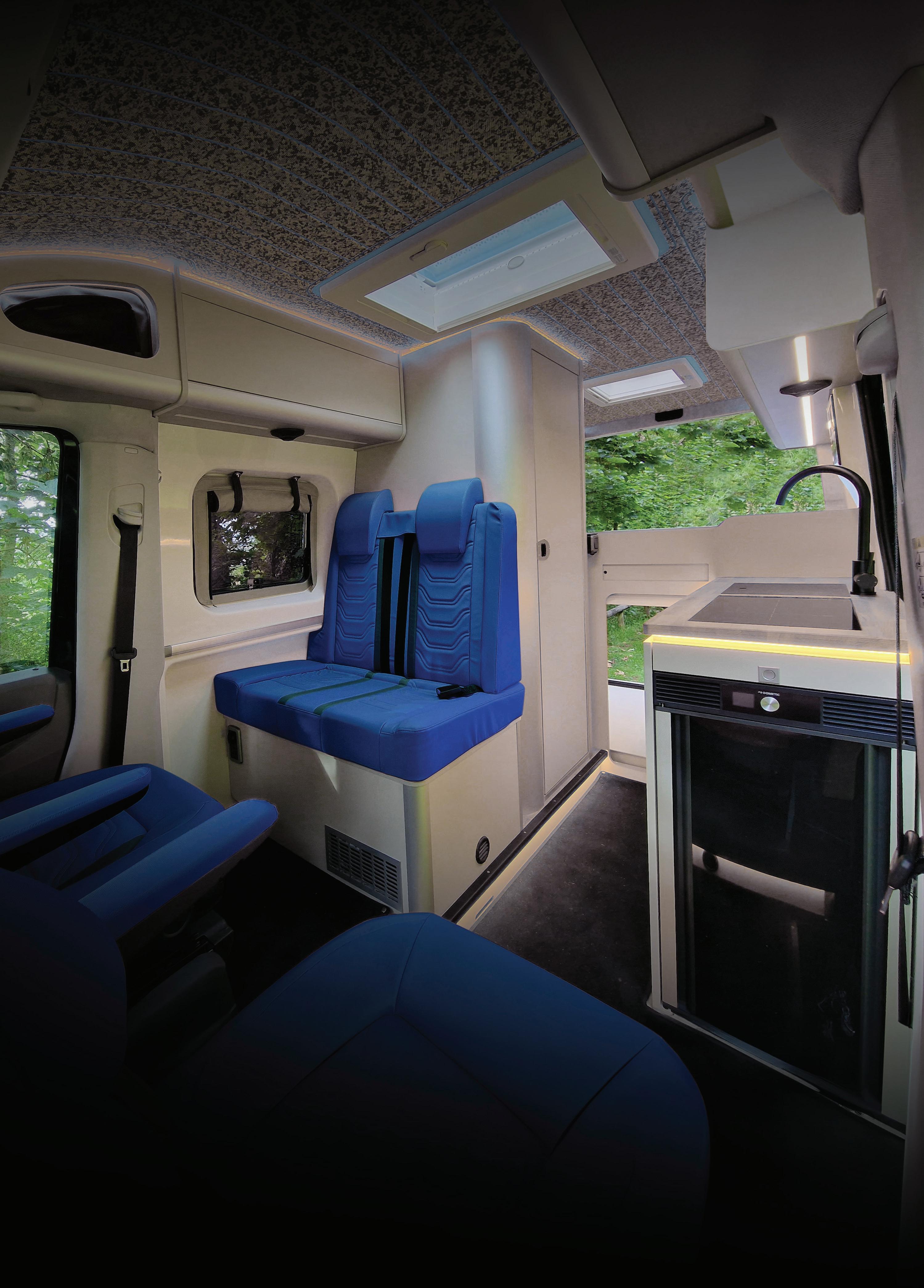
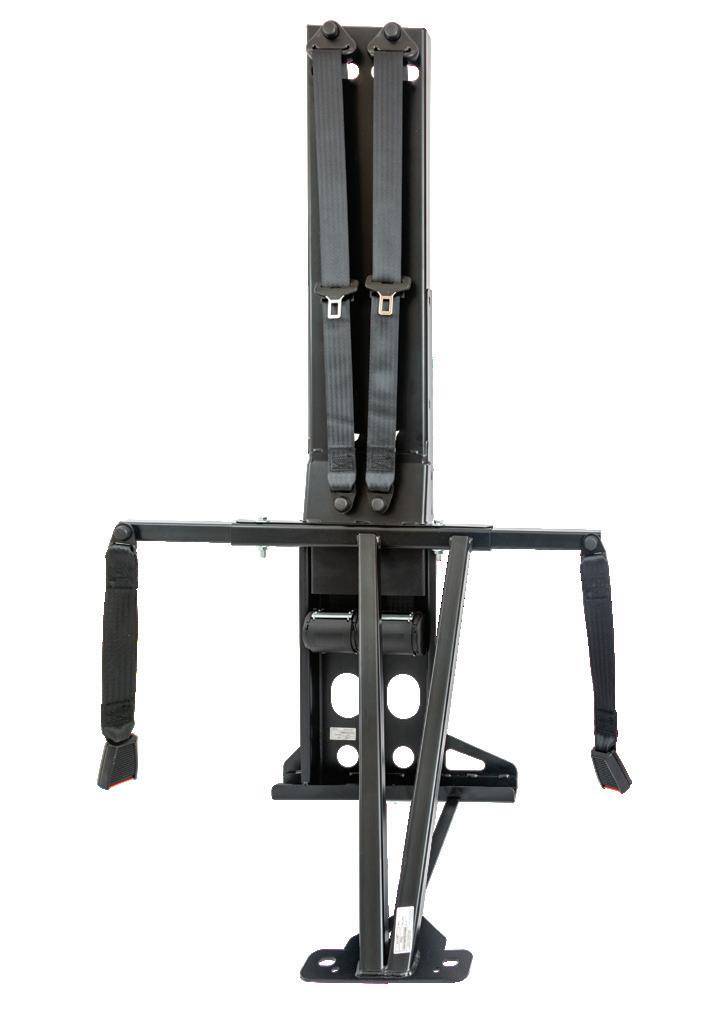
www.cta-europe.com info@cta-europe.com A leader of the European recreational vehicle components market and boasting more than 40 years of experience, CTA designs and builds innovative solutions improving safety and comfort inside the vehicle. SAFETY is our commitment, COMFORT our added value Buckle up and travel with CTA
New Ducato: 8-speed automatic transmission
FIAT Professional debuts the AT8 model, a new 8-speed automatic transmission, in the New Ducato, including its Camper variant, offering a reduction in CO2 emissions of 10 percent compared to the current automatic version. The AT8 has a more balanced, efficient, and much more controlled torque for enhanced comfort that is now defined by improved shift times, quality, and control. All these characteristics are derived from the new clutches, resulting in more efficient drivability due to the optimized torque, up to the best-in-class 450 Nm torque for a front wheel-drive large van on the 180 Multijet 4.0 engine. Another significant innovation is provided by a hydraulic accumulator, a key component in the support of transmission shifts, that manages to increase the proficiency of the output by enabling a faster response time, alongside with refinement during Engine Stop Start. The new AT8 will also be offered for the Ducato Camper, which will benefit from this significant transmission improvement. The transmission is suitable for Motorhomes up to 5-ton GVW, with an increase of over 600 kg compared to previous models and a total weight including towing of 6.5 tons. This places the New Ducato and FIAT Professional as standout choices in the market.
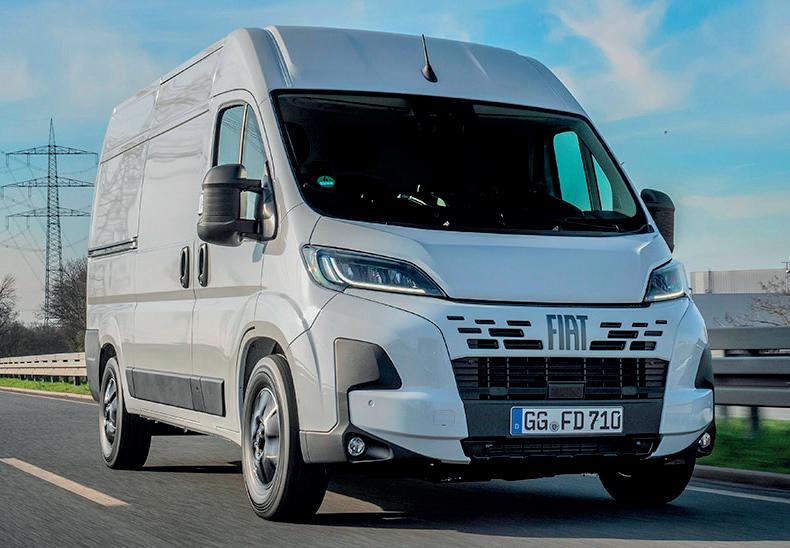
The anticipated CO2 reduction accompanying the launch of the AT8 was already factored into the creation process of the New Ducato, thanks to its aerodynamic enhancements.
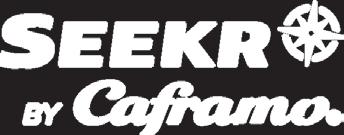
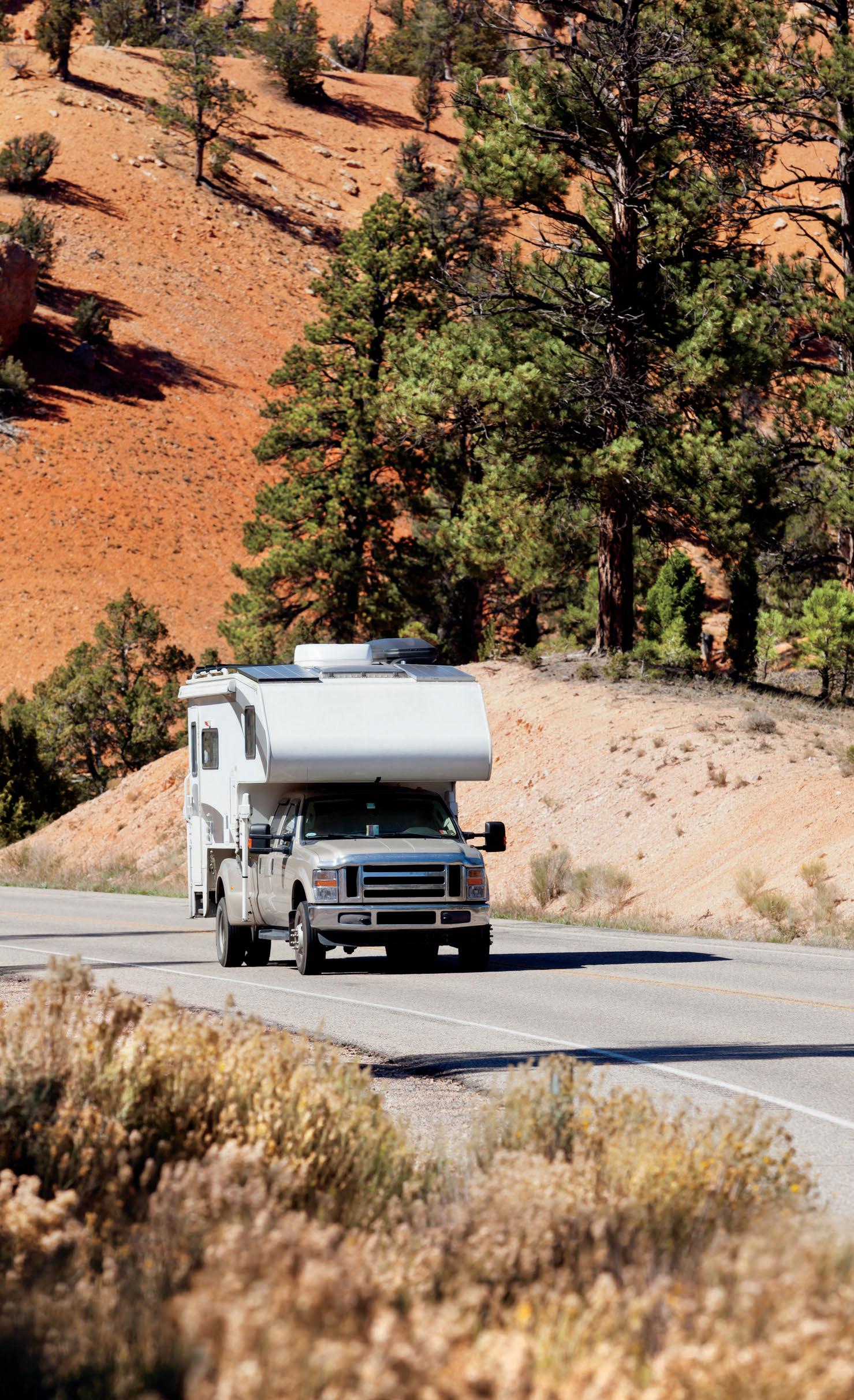
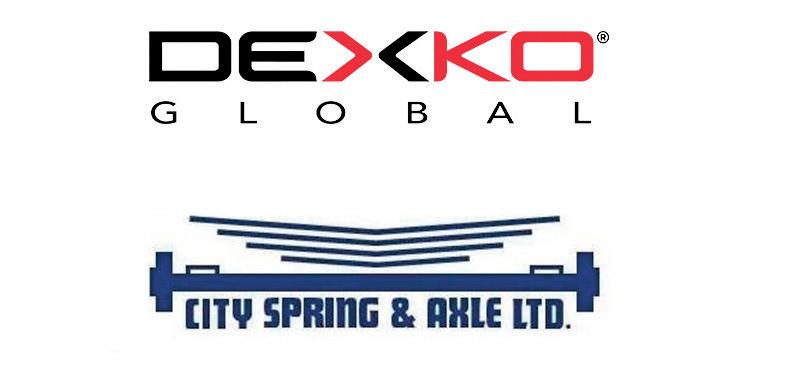

Dexko acquires truck and trailer parts manufacturer
DexKo Global Inc. has completed the acquisition of City Spring & Axle Ltd., Pacific Spring & Axle Ltd., and Spring Service Ltd. (collectively “City Spring”), headquartered in Edmonton, Alberta, Canada through its wholly-owned subsidiary Dexter Axle Company LLC. (“Dexter”). City Spring, founded in 1956, operates out of four locations in Western Canada. “The diversity of the City Spring business was a key factor in this strategic acquisition,” states Adam Dexter, CEO, Dexter.
The Best Vans Have Sirocco Fans
#1 Cooling Fan for RV’s, Caravans and Motorhomes Proudly Made in Canada
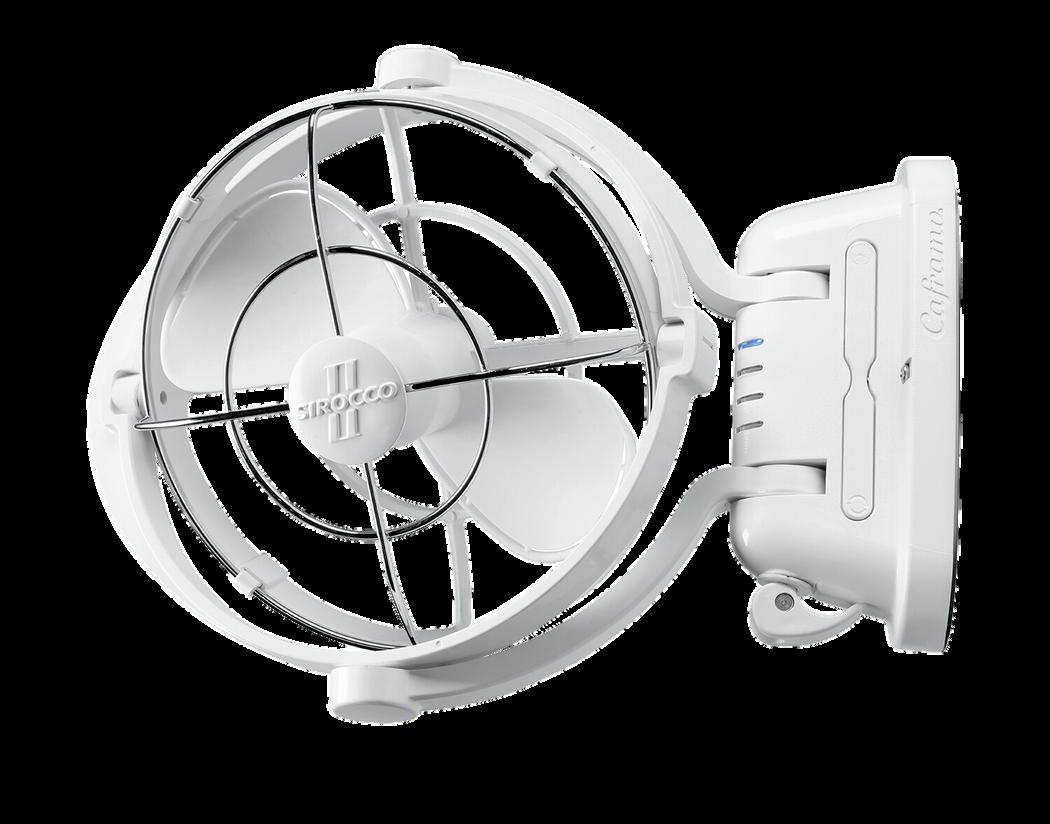
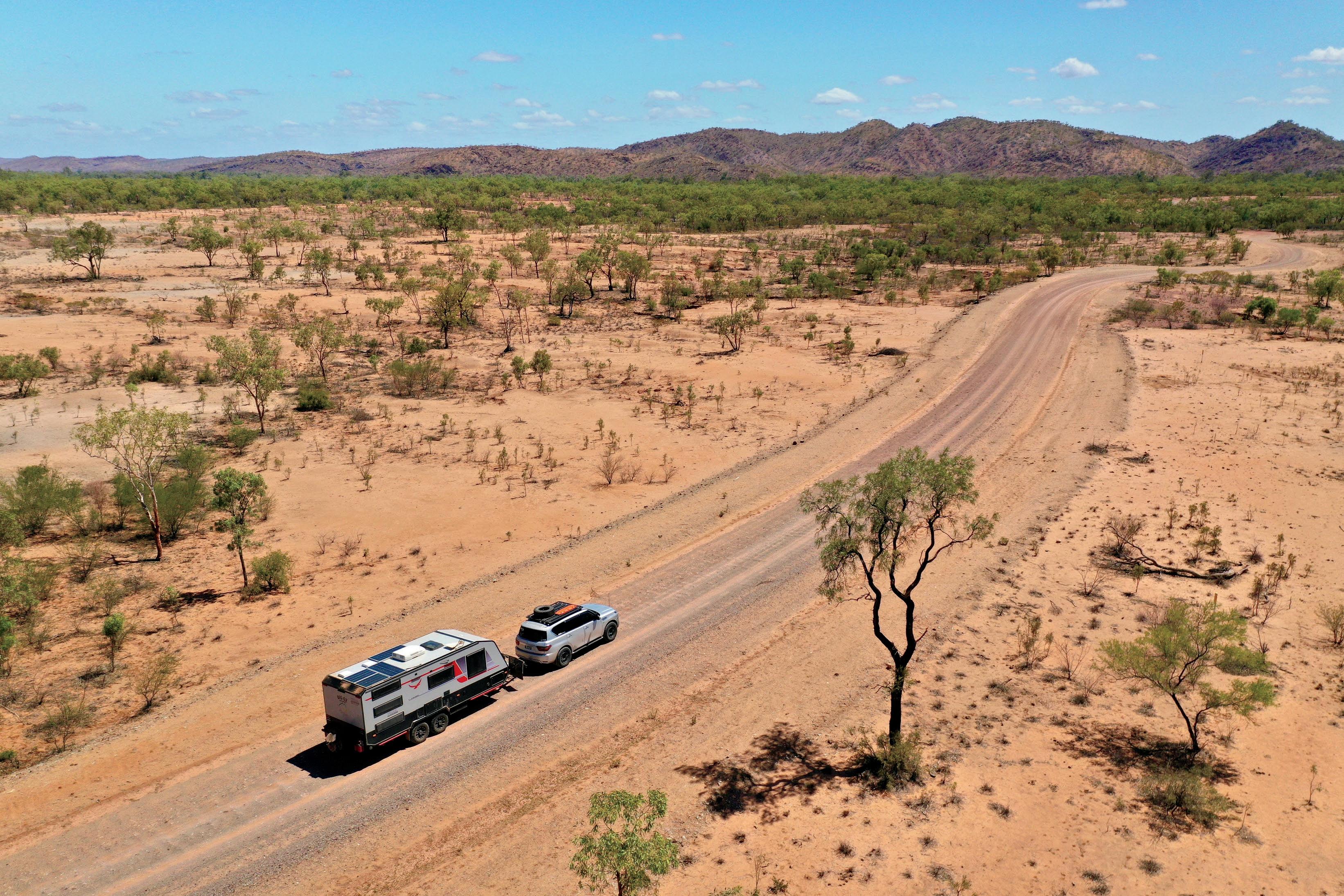

N ews
seekr.caframobrands.com
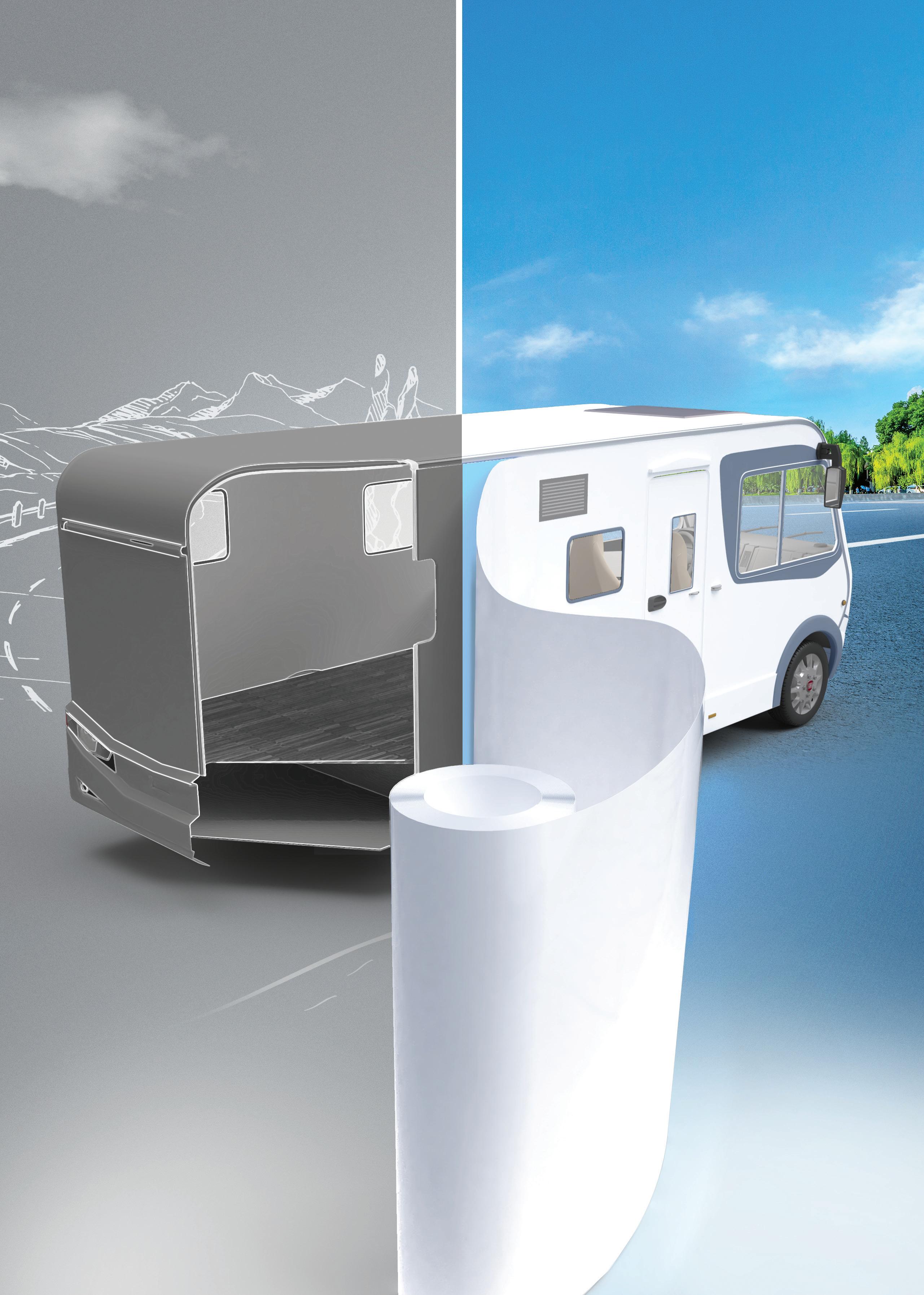
www.flatlaminates.com
HIGH QUALITY GRP FOR RECREATIONAL VEHICLES. We stand right in the middle of every project realization. Close to you since 1962
Jörg Steins takes over CEO role at Purem by Eberspaecher
For health reasons, Marcus Knödler has resigned from his role as CEO of Purem by Eberspaecher. He will remain part of the Division’s management team and his CEO role will be taken over by Jörg Steins.
Jörg Steins will act as COO of the Eberspaecher Group and, as CEO, will be responsible for the business activities of all three Divisions. Jörg Steins will continue the existing strategy and the successful transformation course. The 56-year-old has been working for Eberspaecher since January 2024 and is already CEO of the Climate Control Systems and Automotive Controls Divisions.
“We are convinced that Jörg Steins will successfully take on the expanded role thanks to his many years of management and automotive expertise,” emphasizes Managing Partner
Martin Peters and adds:
“We would like to thank Marcus Knödler for the trusting cooperation over the past years, his
extraordinary commitment and his outstanding work. After a transition period, we will decide together in which management function he will return to the company.”
Marcus Knödler joined Eberspaecher in 2016 and most recently assumed sole responsibility for the Purem by Eberspaecher Division as CEO. The Division has around 35 production sites worldwide. More than 7,100 employees develop and produce exhaust aftertreatment and acoustic systems for passenger cars, commercial vehicles and off-road vehicles to ensure clean and quiet mobility.
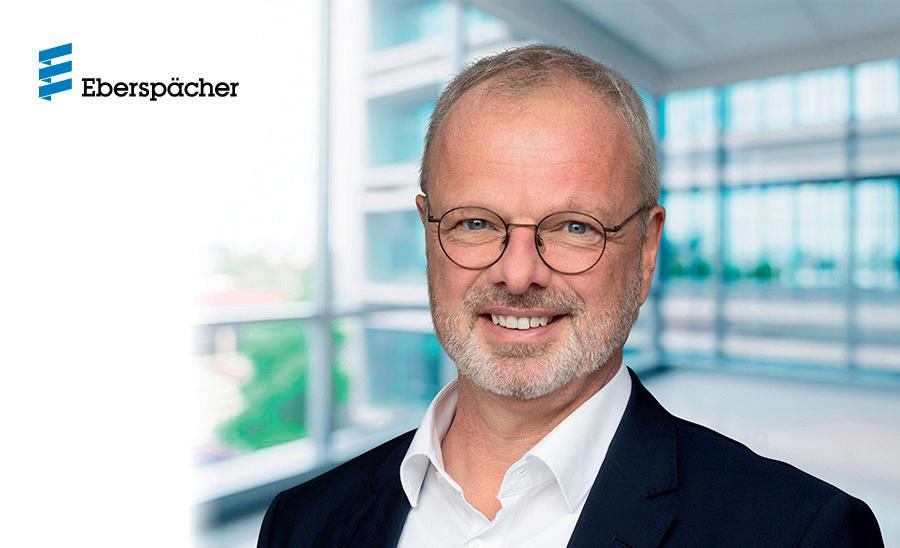
Volkswagen prepares self-driving ID.Buzz for the commercial vehicle sector
Volkswagen is developing a self-driving ID. Buzz AD for the commercial vehicle sector and mobility and transport services in Europe and the USA. It has announced a cooperation agreement with the Israeli technology company, Mobileye Global Inc, to develop and supply software, hardware components and digital maps for the self-driving ID. Buzz AD. Volkswagen is the first vehicle manufacturer to develop an autonomous Level 4 service vehicle for large-scale production. It has already undertaken an extensive road testing pilot phase in Germany and the USA. The main part of the agreement covers delivery and use of a self-driving system (SDS) for a special version of the ID. Buzz which has been under development for autonomous driving since 2021. It corresponds to the Level 4 definition of the Society of Automotive Engineers (SAE), in which the autonomous vehicle operates self-driving in a defined area such as a city.
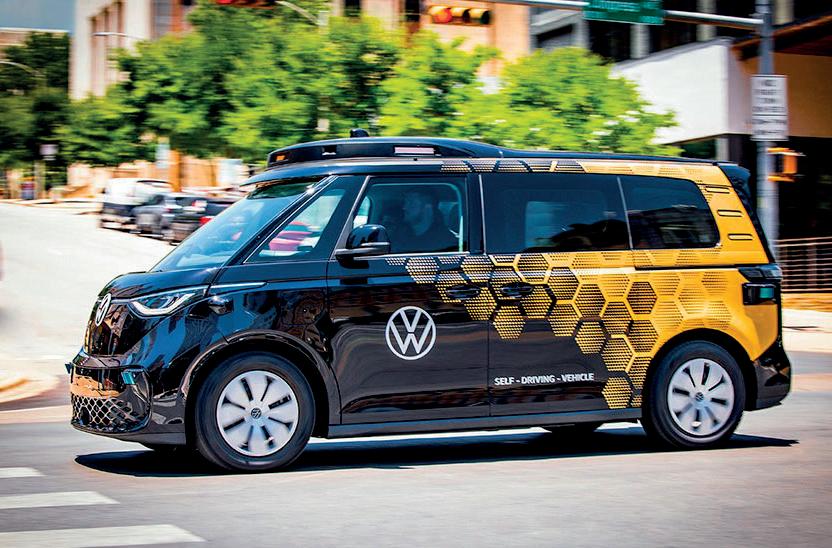
“Bringing autonomous shuttles on the road in large quantities requires cooperation from strong partners,” says Christian Senger, member of the Board of Management at Volkswagen Commercial Vehicles, responsible for Autonomous Driving, Mobility and Transport (ADMT): “We are developing the first fully autonomous largescale production vehicle, using Mobileye’s digital driver.”
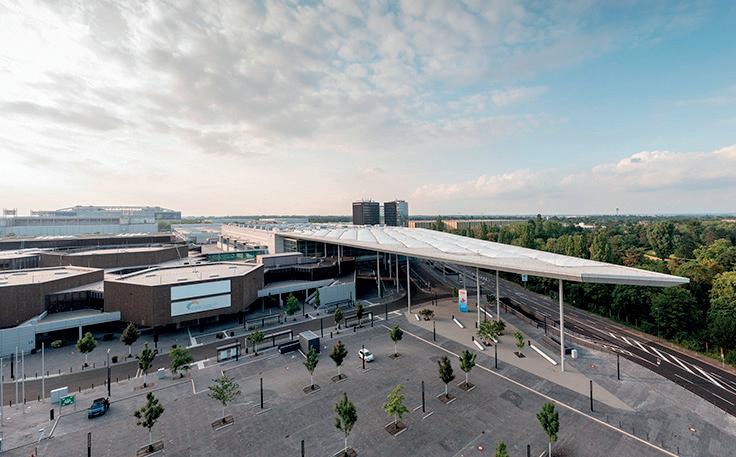
Messe Düsseldorf ends fiscal year 2023 with record profit
Messe Düsseldorf GmbH, the venue for the annual Caravan Salon trade fair, increased its sales by 31.5% to €391.4 million (previous year: €294.9 million), while its after-tax profit rose by 10.3% to €87.3 million (previous year: €71.6 million). At the company’s Shareholders’ Meeting on May 24, 2024, the decision was made to distribute a dividend of €31.5 million.
The Messe Düsseldorf group ended the 2023 fiscal year with record sales of €422.5 million (previous year: €310.9 million), a considerable increase of more than 35.9%.
After-tax profit also increased significantly, up 56.2% to €94.6 million (previous year: €60.5 million).
A total of 73 trade shows took place in 2023, of which 27 were held in Düsseldorf, attracting 26,866 exhibitors and 1,146,874 attendees to the city. The 17 trade shows directly organized by Messe Düsseldorf had the largest share of this: Their 24,469 exhibitors demonstrated the highest level of international participation to date, at 78 percent (previous year: 75 percent). Their 1,074,870 visitors achieved the second-highest level of international participation to date, at 39 percent (previous year: 46 percent).
In order to create a foundation for growth in the Asian market, Messe Düsseldorf recently united its five Asian subsidiaries in a centrally coordinated network, the new regional hub “Messe Düsseldorf for Asia” (MDfA), which will manage the company’s Asian business out of Singapore. While customers will benefit from a range of products and services in Asia tailored to regional needs, centrally located contact persons and even stronger business platforms, Düsseldorf’s leading global trade shows will profit from an increase of exhibitors and visitors from Asia.
18
N ews

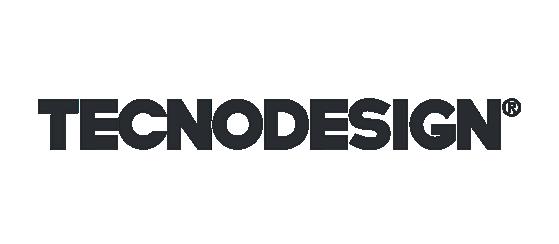
Your plan. Our project. Together by tecnoform.com tecnoform_of cial
The motorhome vacation is more sustainable compared to the “car+hotel” combination
The environmental impact of motorhome vacations is always a much-debated topic. The latest research on this subject comes from Italy. The report was realized thanks to the efforts of a major Tuscan dealer: Caravanbacci, whose owner Paolo Bacci organized a conference at his facility to bring together all the relevant figures in outdoor tourism in Tuscany.
At the center of the meeting was the presentation of data from research conducted by Ergo, a spin-off of the Sant’Anna School of Advanced Studies in Pisa, in collaboration with the associations ACTItalia and UCA. Presented by Fabio Iraldo, Full Professor of Management, the research was described as “a challenge from
tionnaires would have been enough to obtain reliable results. This way, even after eliminating all questionnaires that might be unreliable, the remaining number produced a very accurate picture.
The methodology used is now consolidated and recognized, if not substantially imposed, by the European Union: the Life Cycle Assessment (LCA), which evaluates the environmental impact from a 360-degree perspective, considering everything that involves the vacation: the trip, the stay, meals, climate control, and so on. It was found that an Italian crew consists, on average, of 2.27 adults and 0.37 children, that the average distance traveled was 2,367 kilometers, with 13.7
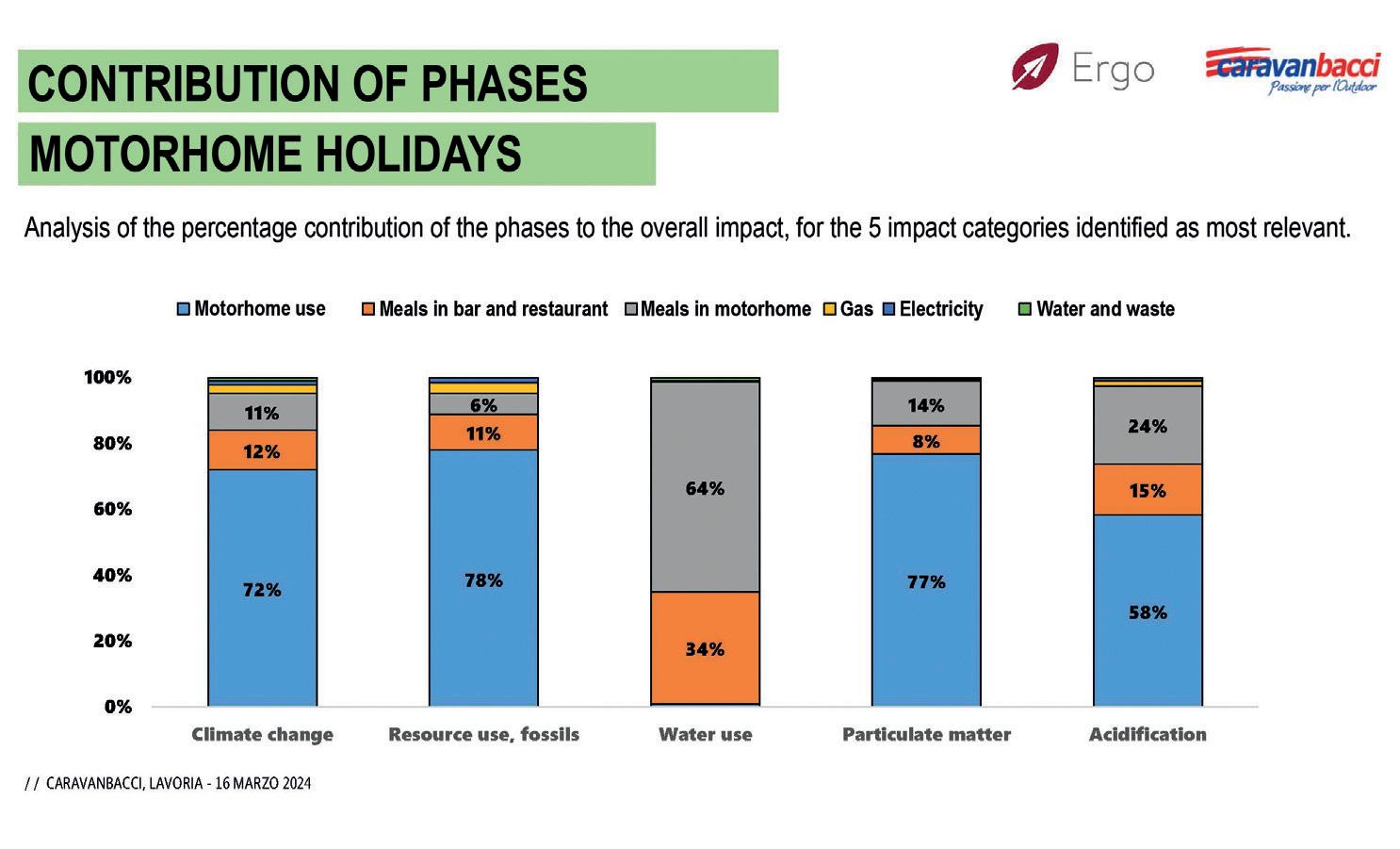
the perspective of innovation, it was avant-garde research”. Not so much for the topic, since it is evident that the environment and tourism significantly influence each other, but for the use of “primary” data, i.e., collected directly from campers and then compared with those of more traditional vacations, and for the duration of the survey: a full nine months compared to the more traditional three.
The survey
Conducted from August 2022 to April 2023, the survey resulted in 1,958 questionnaires, studied as if they were travel logs. Given that there are 248,300 circulating vehicles in Italy, this is a statistically more than significant sample: approximately 500 ques-
nights and 9.7 meals out, 7.3 kg of gas consumed, 364.3 liters of water used, and 22.3 kWh of electricity consumed. Five main categories of environmental impact were considered: climate change (CO2 emissions), particulate emissions, acidification (indicator of potential soil and water acidification due to the release of gases), use of fossil resources, and water consumption. For each of these, the use of the motorhome, meals at bars or restaurants, meals in the motorhome, gas, electricity and water consumption, and waste production were evaluated. In the end, the use of the motorhome as such contributes the most in every category except for water consumption.
Conclusions
The most interesting data, of course, concerns the comparative results, comparing the motorhome vacation with the car + hotel formula. The conclusion is that the impact of the motorhome is much lower: compared to the “traditional” vacation, the motorhome has an impact of 64% in fossil resource use, 70% in climate change, 73% in water consumption, and 95% in acidification. The only parameter where the motorhome vacation is worse is in particulate emissions, where cars reach 72%. This confirms what could intuitively be imagined. Ergo’s research thus confirms once again that the motorhome vacation is a more environmentally sustainable choice compared to a hotel vacation with car travel.
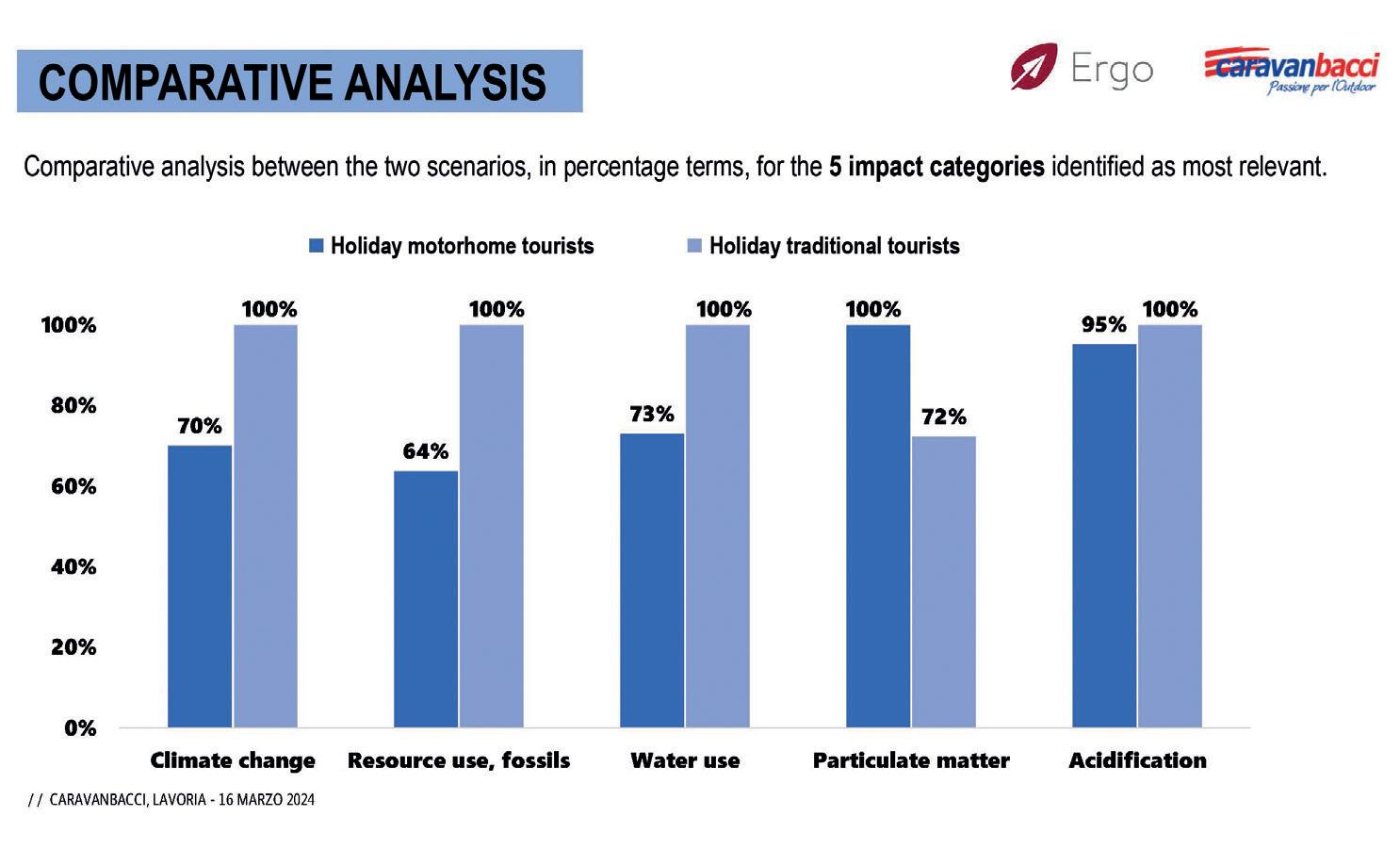
20 N ews
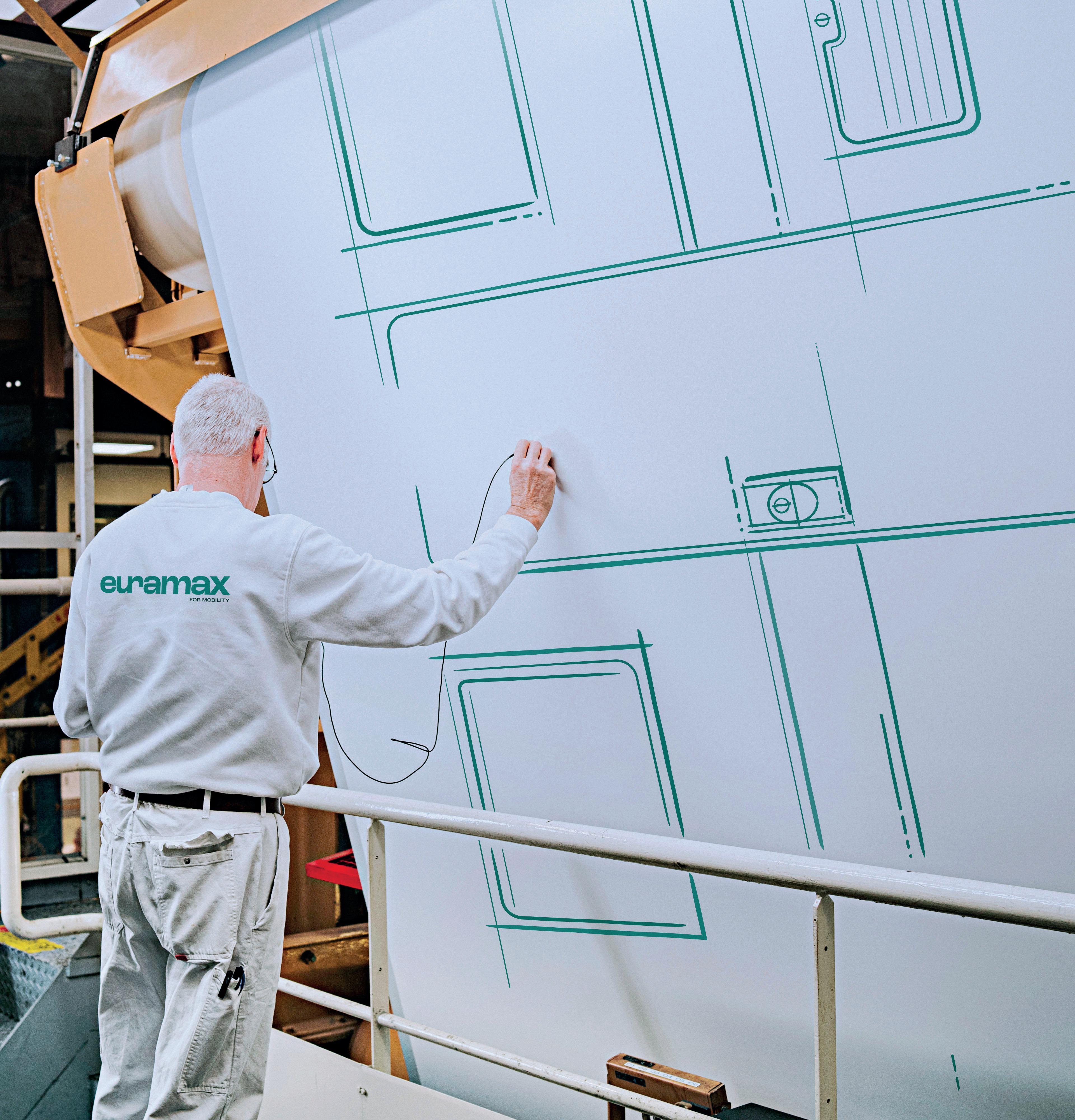
21 Aluminium is On Your Side Aluminium offers a number of advantages for owners and manufacturers of recreational vehicles: - Automotive surface quality - Superb color and gloss retention - Lowest weight per square meter - Safe and healthy to work with - Fully circular material Discover what Euramax can do for you on euramaxcladding.com
on EUROPEAN MARKET
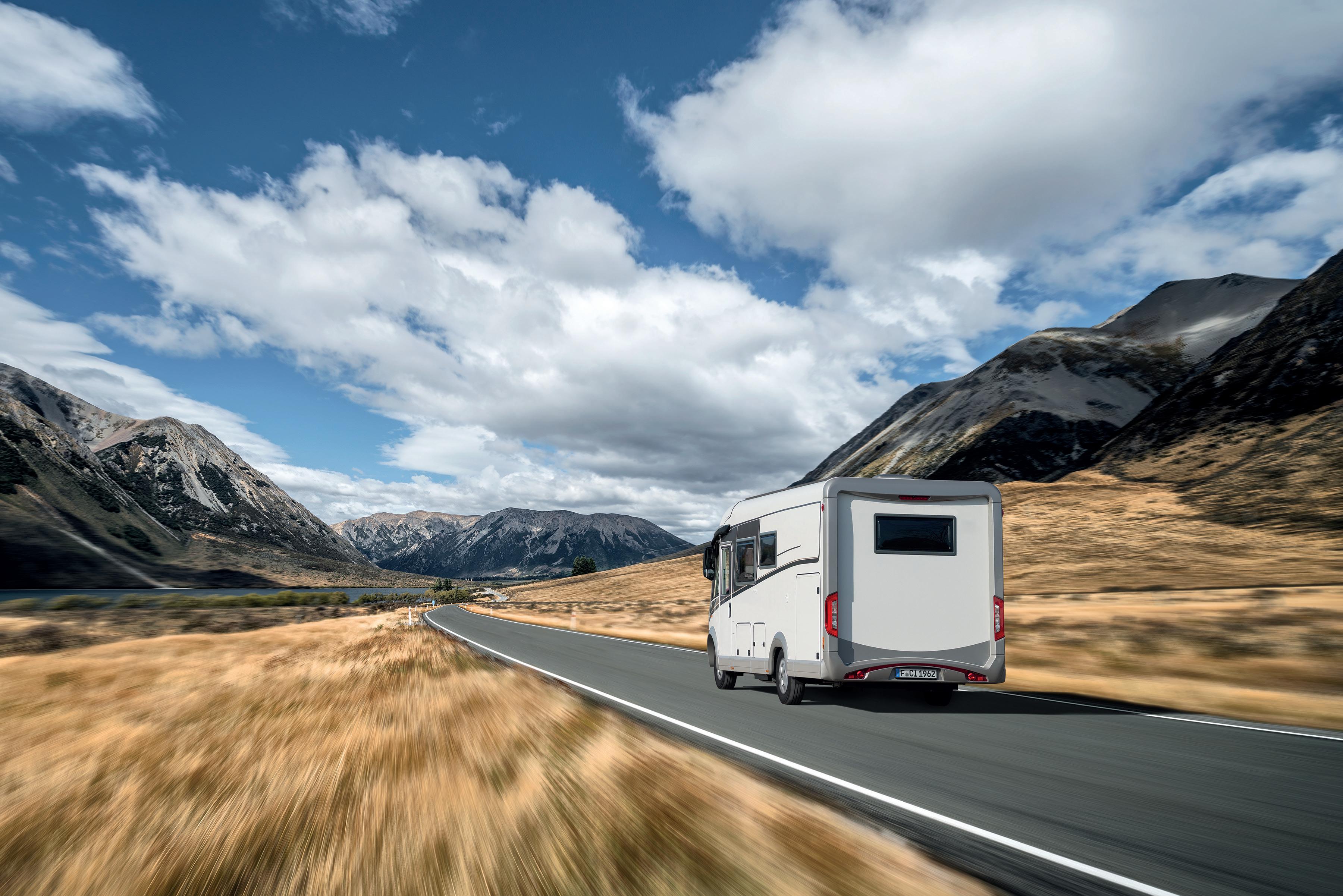
Stable market in 2023
As usual, here is a summary of the statistics from the past 10 years of the main European markets for motor caravans and caravans. The year 2023 shows a stabilization of registrations compared to 2022, halting the downward trend observed since 2021
The European recreational vehicle market experienced significant changes between 2022 and 2023, with divergent trends between the caravan and motor caravan segments. Caravan registrations saw a steady decline, dropping by 10.1% between both 2021 and 2022, and 2022 and 2023. Conversely, the motor caravan segment, after a significant 18.7% decrease between 2021 and 2022, showed slight stabilization in 2023 with a minimal decline of 0.8%.
Caravan
The caravan segment has shown a constant decline over the past three years. Registrations decreased by 10.1% between 2021 and 2022, and further by 10.1% in 2023. In 2022, the



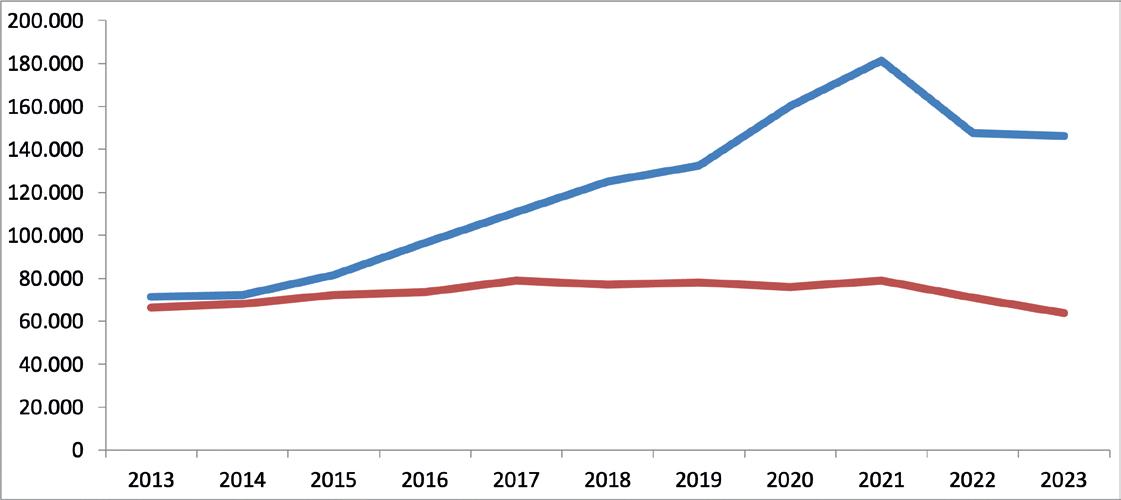
22
F ocus
Line plots are based on numerical data by ECF (European Caravan Federation) EUROPE 20132023 2023 2022 - 2023 146.339 -0,8% 63.751 -10,1%



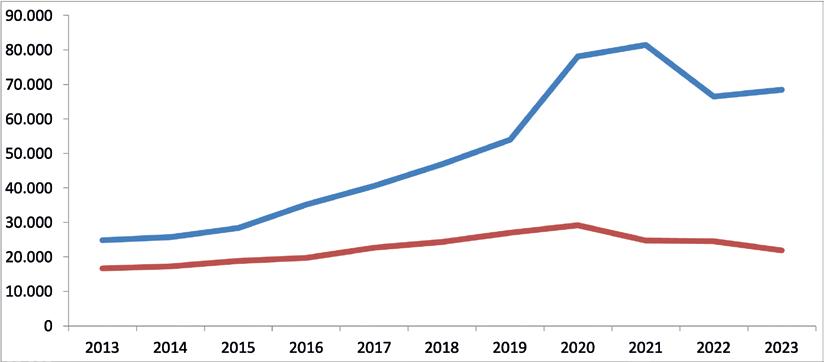



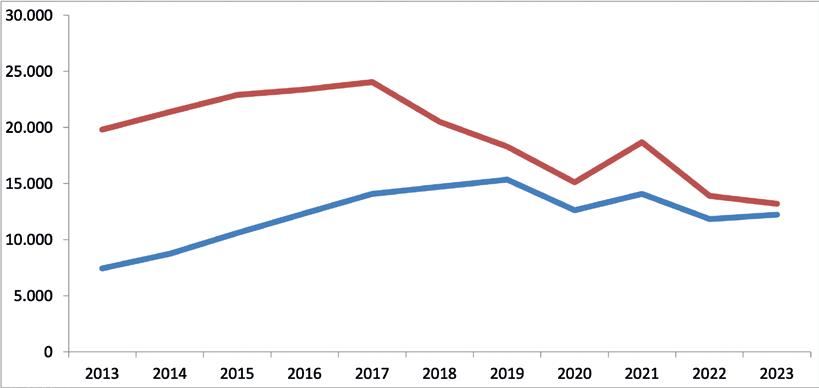



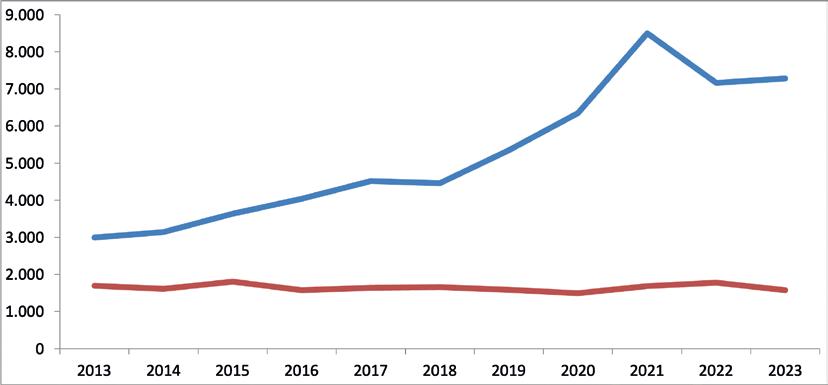
registered units in Europe totaled 70,892. This number dropped to 63,751 units in 2023. This decrease can be attributed to various factors, including possible market saturation, changing consumer preferences, and potential economic difficulties affecting customers’ purchasing power. Countries like Germany recorded a significant drop, from 24,478 caravans in 2022 to 21,896 in 2023, a decrease of 10.6%. Similarly, the United Kingdom saw a 5.0% decline, from 13,884 units to 13,193 units. In contrast, France showed slight growth of 1.6%, increasing from 7,330 to 7,448 units, indicating some stability.
Motor Caravan
The motor caravan segment displayed different dynamics compared to caravans. After a sharp 18.7% decline between 2021 and 2022, registrations only slightly



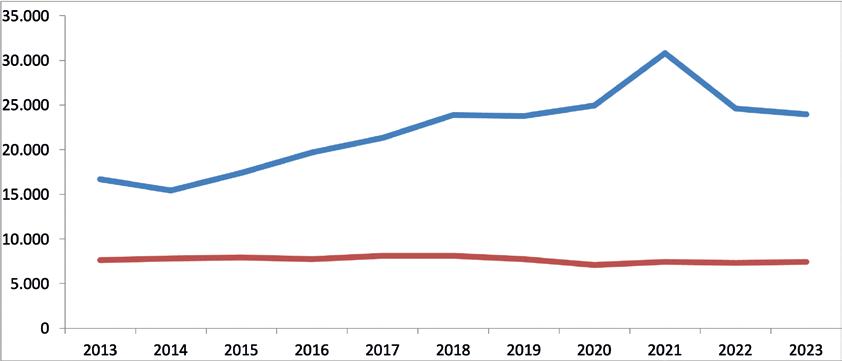



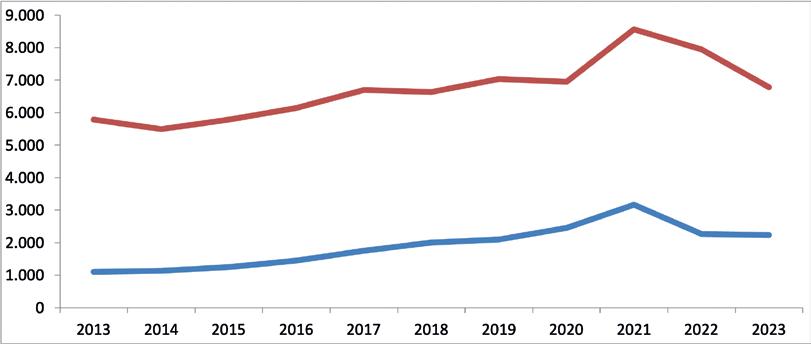



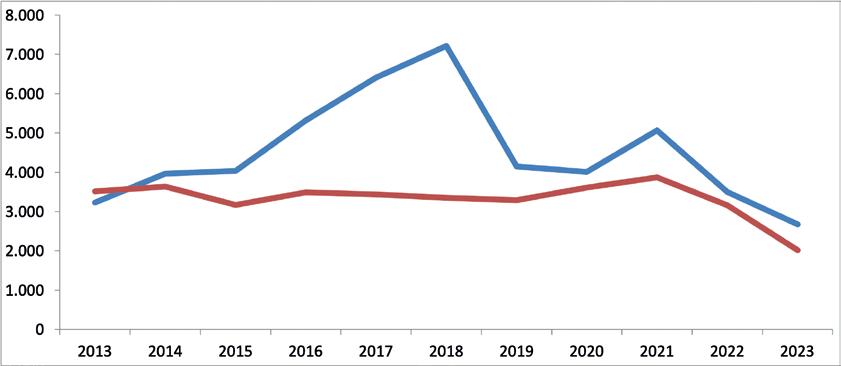
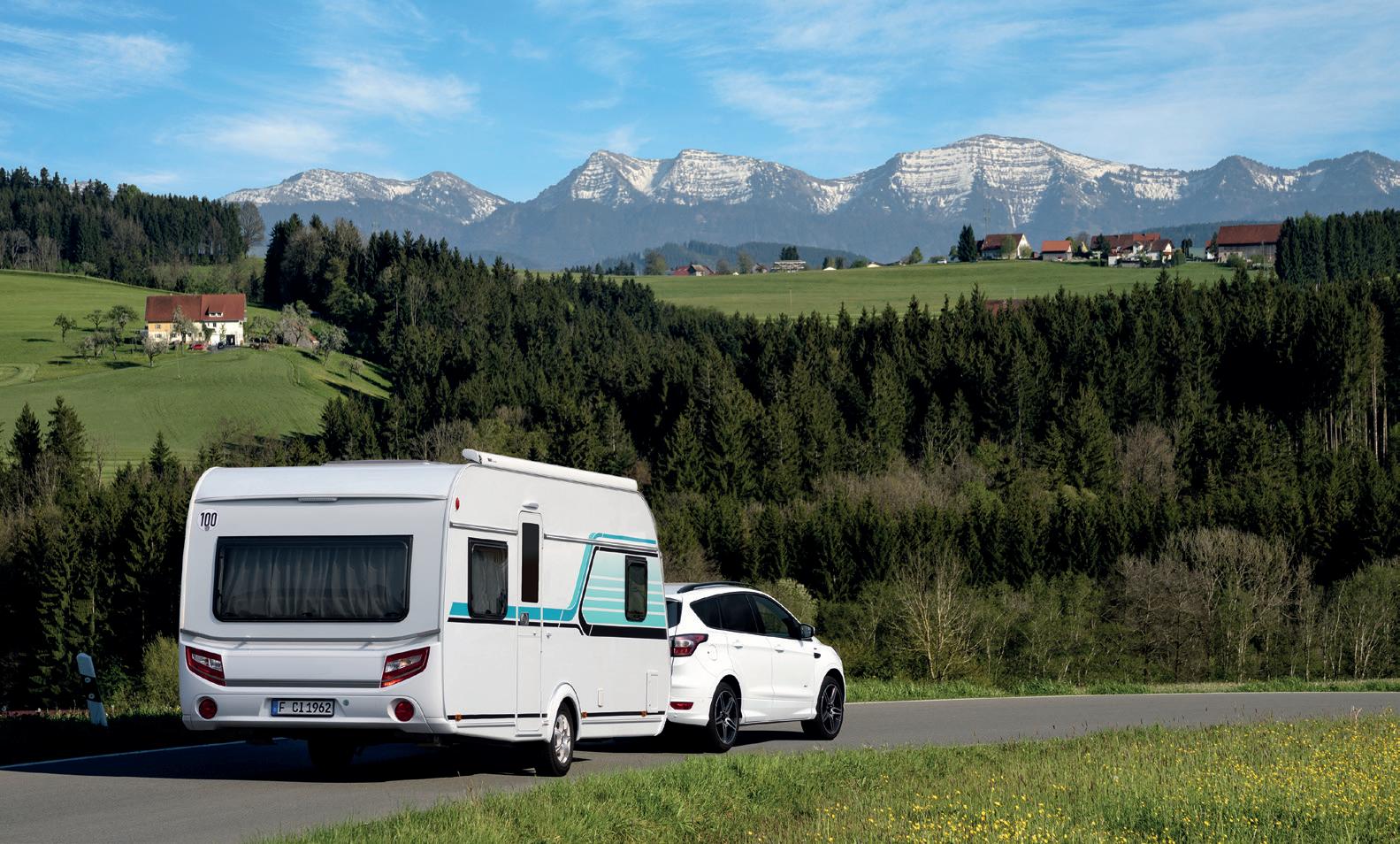
23
GERMANY 20132023 2023 2022 - 2023 68.469 +2,9% 21.896 -10.6% FRANCE 20132023 2023 2022 - 2023 23.936 -2,7% 7.448 +1,6% UK 20132023 2023 2022 - 2023 12.219 +3,4% 13,193 -5.0% NETHERLANDS 20132023 2023 2022 - 2023 2.230 -1,3% 6.781 -14,6% SWITZERLAND 20132023 2023 2022 - 2023 7,279 +1,6% 1.580 -11,0% SWEDEN 20132023 2023 2022 - 2023 2.676 -23.5% 2.013 -36.4%
F ocus on EUROPEAN MARKET
decreased in 2023 (-0.8%), from 147,498 units to 146,339 units. This suggests that although the market experienced a significant contraction compared to 2021, it is stabilizing, indicating a slowdown in the decline and a potential recovery. Notably, in Germany, motor caravan registrations increased by 2.9%, from 66,507 units in 2022 to 68,469 in 2023. The United Kingdom also registered a 3.4% increase, rising from 11,823 units to 12,219 units. France, however, saw a decrease of 2.7%, from 24,611 units to 23,936 units.
Countries with the worst performance
Among the countries with the poorest performance is Sweden, which suffered one of the most significant declines. In the caravan segment, Sweden registered 3,164 units in 2022, while this number dropped to 2,013 in 2023, marking a 36.4% decrease. For motor caravans, registrations fell from 3,498 units in 2022 to 2,676 units in 2023, a decrease of 23.5%. Norway also recorded significant declines: from 2,177 caravan registra-



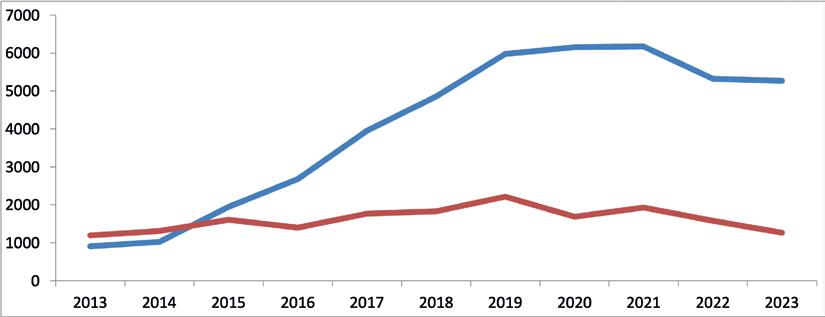



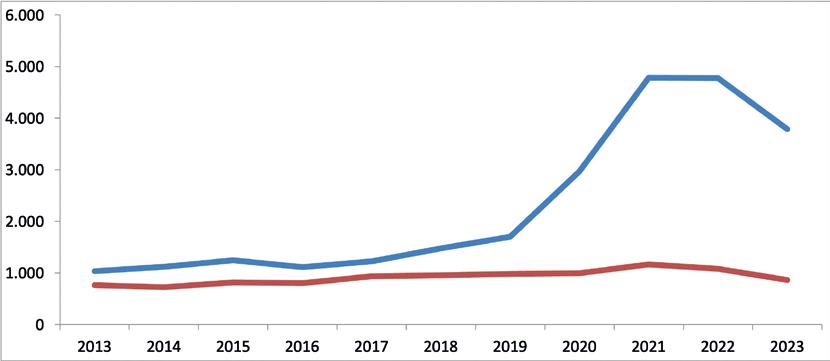



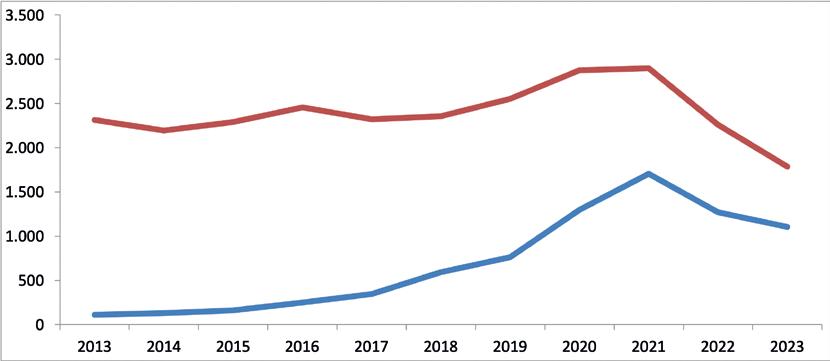
tions in 2022 to 1,709 in 2023, a decrease of 21.5%. The motor caravan segment saw a similar drop, with registrations decreasing from 2,053 units in 2022 to 1,618 units in 2023 (-21.2%). Austria also performed poorly with a 20.1% decrease in caravan registrations (1,085 units in 2022 to 867 in 2023) and a 20.8% decrease in motor caravan registrations (4,781 units in 2022 to 3,786 in 2023).



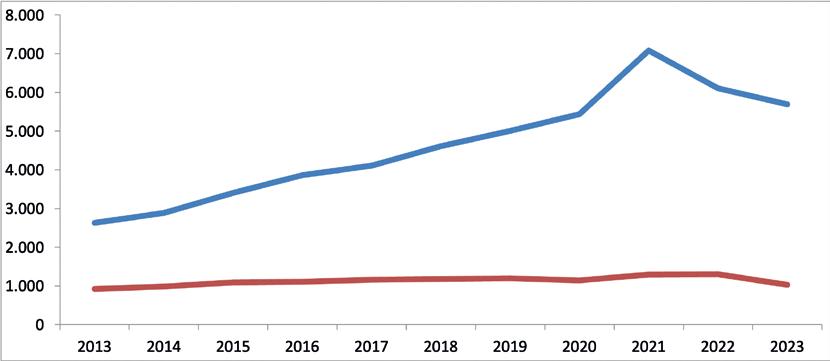



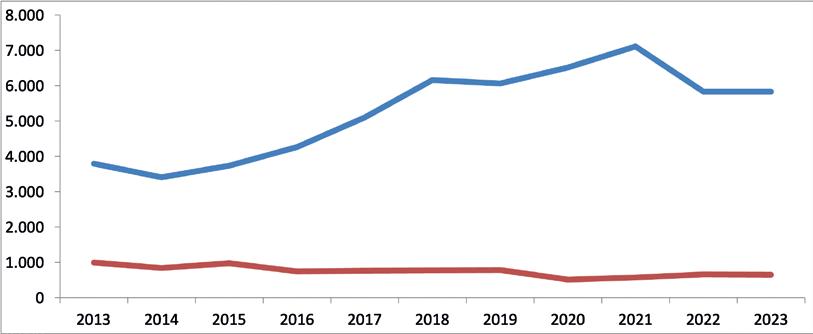



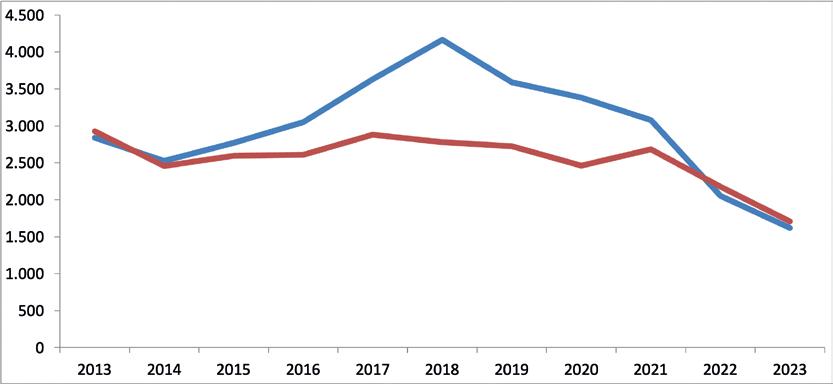



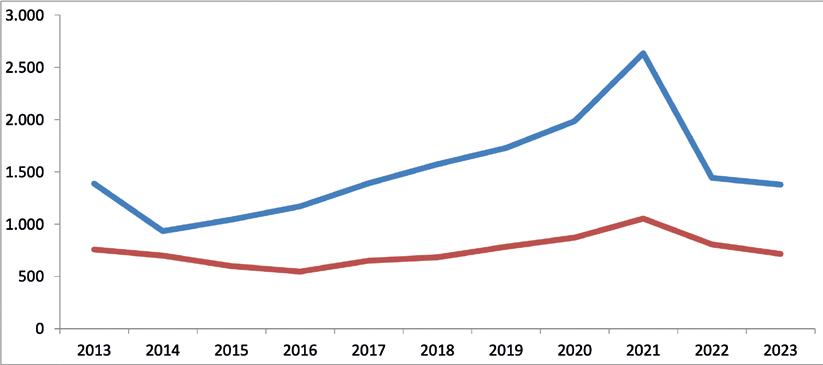
24
Line plots based on numerical data by ECF (European Caravan Federation) SPAIN 20132023 2023 2022 - 2023 5.270 -1,0% 1.266 -19,8% NORWAY 20132023 2023 2022 - 2023 1.618 -21,2% 1.709 -21,5% ITALY 20132023 2023 2022 - 2023 5.833 +0,1% 651 -1,2% BELGIUM 20132023 2023 2022 - 2023 5.693 -6,8% 1.026 -21,4% AUSTRIA 20132023 2023 2022 - 2022 3.786 -20,8% 867 -20,1% DENMARK 20132023 2023 2022 - 2023 1.103 -13,3% 1.788 -20,9% FINLAND 20132023 2023 2022 - 2023 1.376 -4,6% 715 -11,3%

Viganella Door light
The Viganella dimmable exterior lighting that is available for almost every brand of vehicle, illuminates the entrance and provides a beautiful light under the awning of the van campers. In addition, the aluminum profile has a rain gutter function that drains rainwater to the sides.
COB LED SMD LED


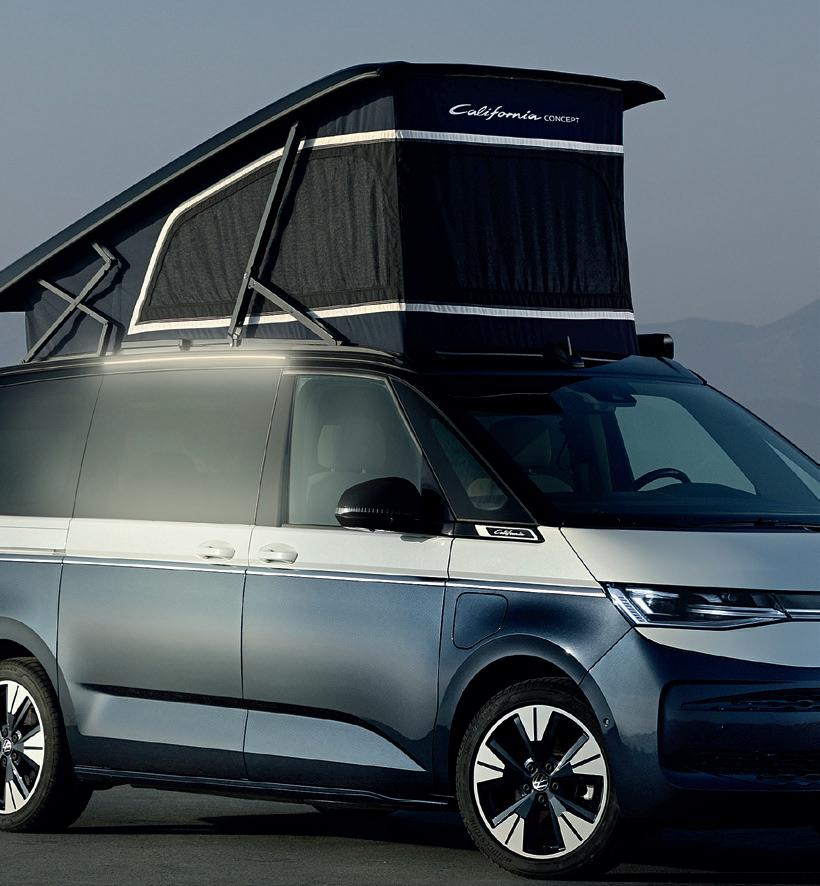
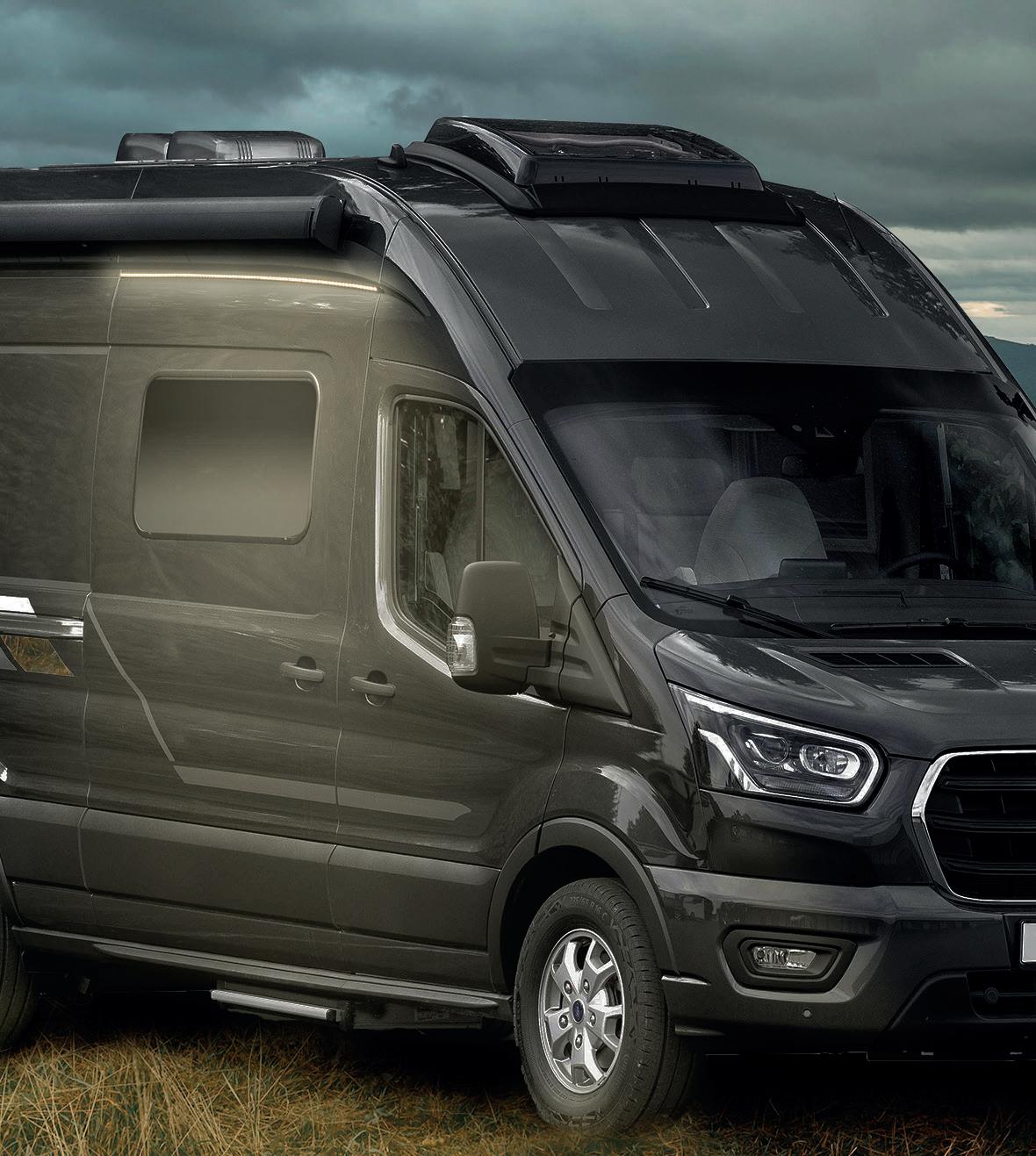
Our Viganella lighting is available in 2 different versions. In addition to the traditional SMD, we also have the luxury COB version available that gives your vehicle an even more luxurious look due to the even light distribution with no visible LED dots.
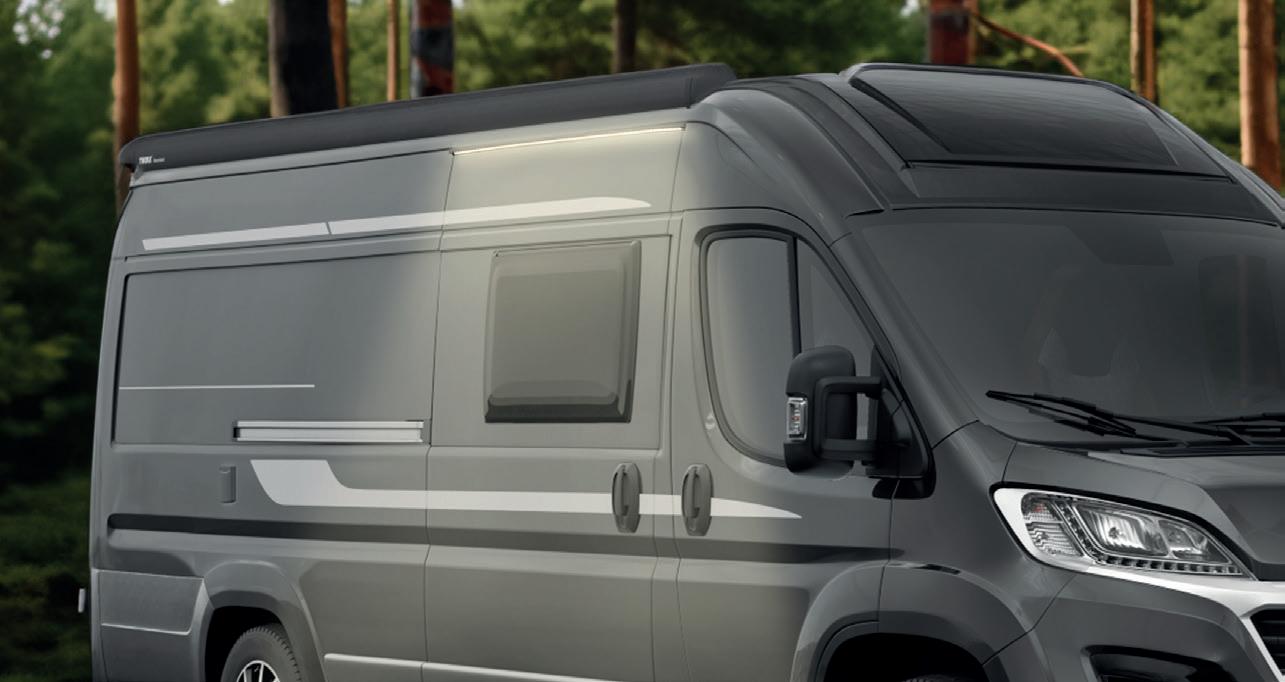
The right partner for manufacturers of caravans, motorhomes and specials
Art. 4300298
Now also available: Remote control with dimming function!
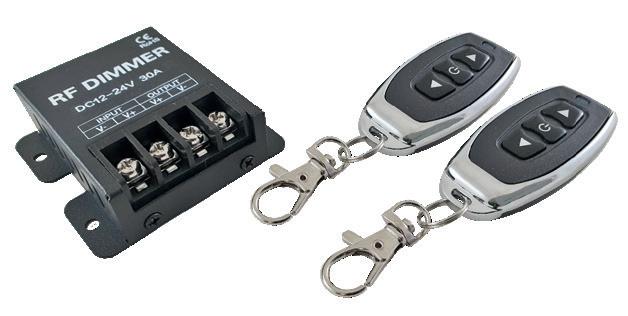
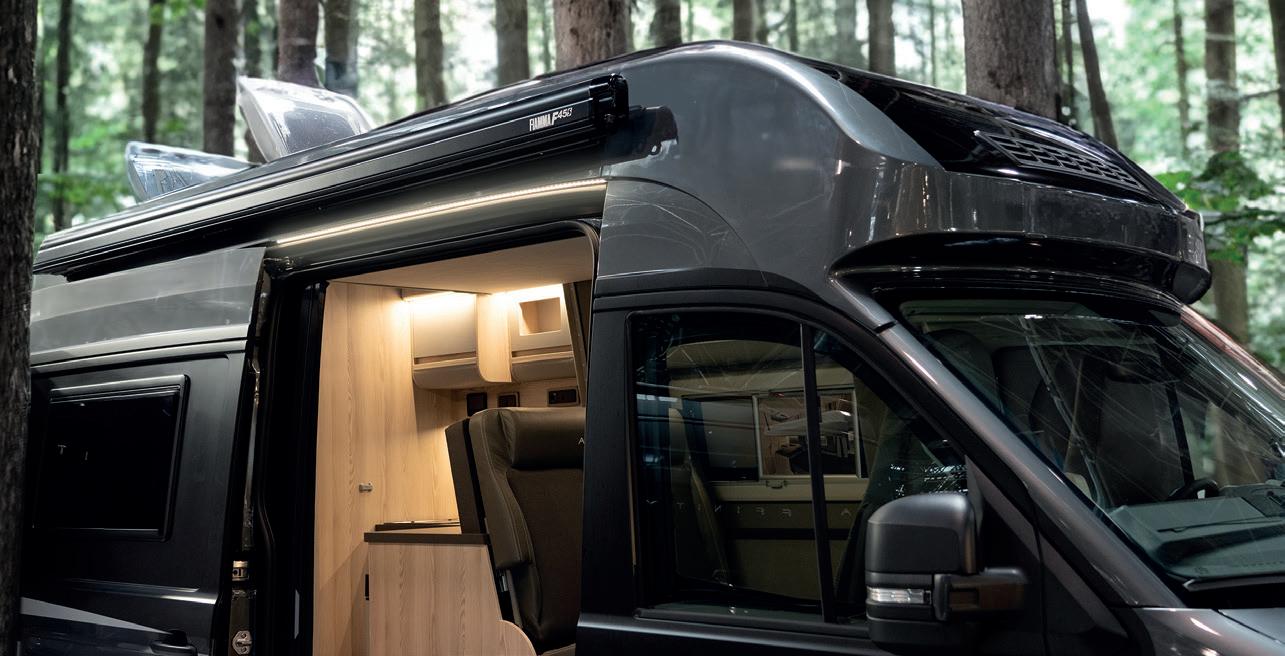
25
westacc.nl info@westacc.nl +31 (0)174 520178
Ford Transit
Fiat Ducato / Peugeot Boxer / Citroën Jumper
Urban (low vans)
Mercedes Sprinter / Volkswagen Crafter / Man TGE
Viganella door light
The European caravanning industry meets in Italy
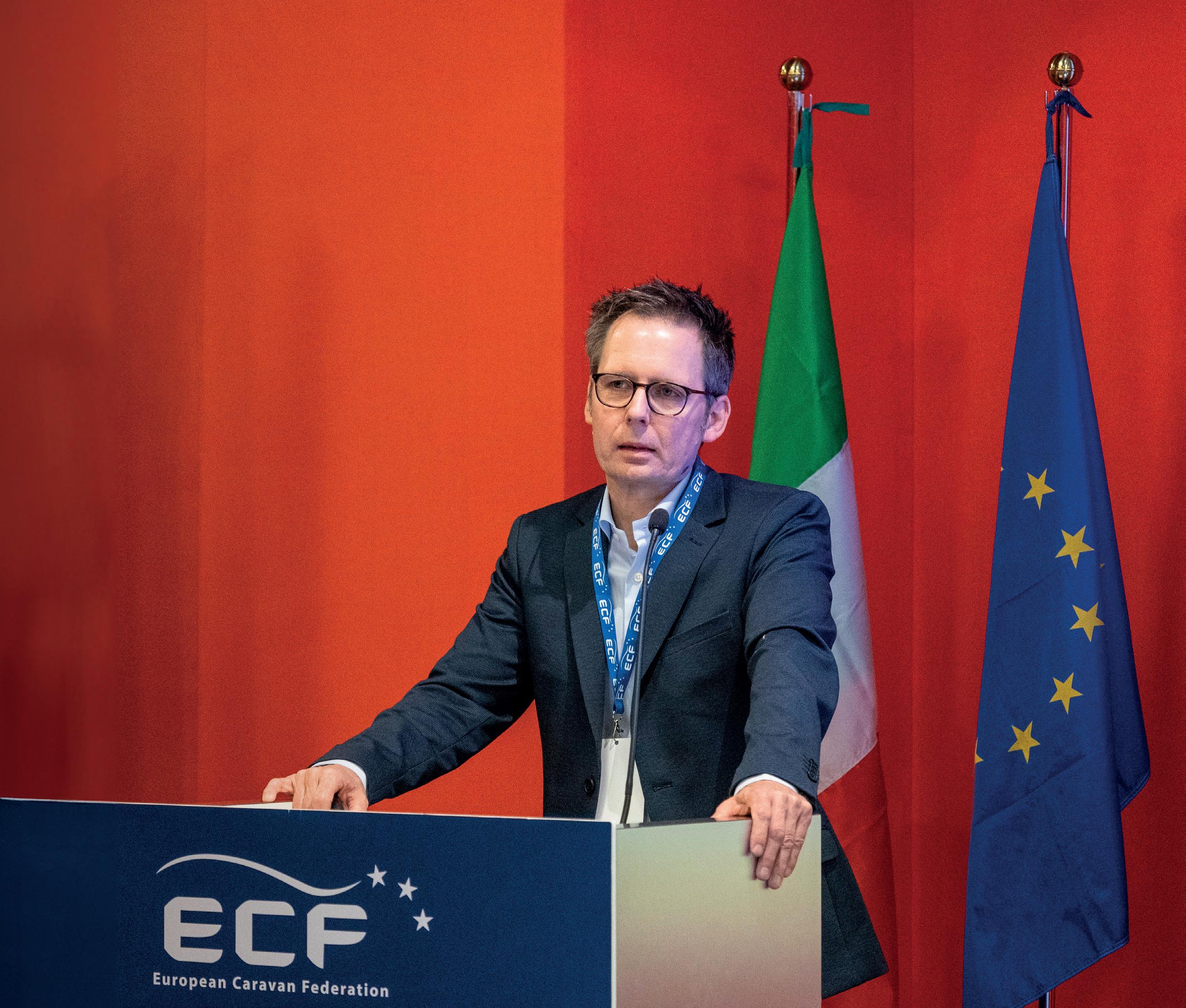
Success of the MELVI 2024 Congress in Sorrento organized this year by the Italian Association of Camper Manufacturers (APC); the annual congress, promoted by the European Caravan Federation (ECF), took place in Sorrento, Italy, from March 21 to 23 and brought together over 200 participants
The organization of the Meeting of European Leisure Vehicle Industry (MELVI), which takes place annually in a different EU country, was entrusted this year to the Italian Association of Camper Manufacturers (APC). The event was attended by over 200 participants, including CEOs and general managers of manufacturing companies and component suppliers, thus representing a significant portion of the supply chain.
During the first part of the 46th Annual General Meeting (AGM), reserved for ECF members, European market data was analyzed. ECF’s general secretary, Jost Krüger, summarized the market
results, noting a 6.9% increase in registration data over the past six months compared to a year earlier: “Interest in recreational vehicles continues to be very high in Europe. In recent months, motorhome registrations have grown again, thanks to the greater availability of base chassis, surpassing pre-pandemic levels (over 210,000 recreational vehicles registered in a year, including campers and caravans). Caravans are also recovering. Caravan and camper tourism ideally embodies a more human-centered holiday, away from mass tourism.”
Interesting data on registrations by type of motorhome show that a third of the
market is represented by camper vans with toilets (slightly declining in the last two years), and another third is dominated by semi-integrated models, which in the last five years lost nearly 9 percentage points. The progressive increase in camper vans without toilets, the more compact models, is surprising, rising from just over 10% in 2019 to nearly 25% in 2023. Motorhomes hold steady (less than 10% of the market), while alcove campers, now increasingly niche, have fallen below 3%.
The 29th MELVI featured speeches from Gianguido Cerullo, CEO of TRIGANO S.p.A./TRIGANO Servizi srl; Massimiliano
26
Report MELVI 2024
Words editorial staff, photo Enrico Bona
Cusmai of Camping Sport Magenta; Stefano Bonometti of Autocaravan Bonometti; Jörg Reithmeier, President EMEA of LIPPERT Group; Luca Marengo, Head of Product at Stellantis; Antonio Erario, Head of Division “International Regulations and Norms” at the Italian Ministry of Transport; and Antonio Cellie, CEO of Fiere di Parma. Our editorial team attended the event, and in the following pages, you will find a report on the most interesting presentations.
Engineer Antonio Erario, head of the Division for International Regulations and Agreements at the Ministry of Infrastructure and Transport, presented a comprehensive overview of all the international
legislative topics addressed so far and those still under discussion. Antonio Erario then summarized Italy’s position within the European Council regarding issues related to campers, with particular reference to the proposed revision of the driving license directive, where both the Council and the European Parliament have expressed support for extending B license driving privileges to vehicles up to 4,250 kg.
At the conclusion of the event, APC President Simone Niccolai stated: “The 2024 congress for our sector marks an important moment of cohesion for the entire production and distribution chain. The challenges we face are un-
doubtedly significant, and geopolitical and macroeconomic uncertainties cannot be ignored. We can overcome these challenges by working together in the same direction. I believe that the camper sector has further growth prospects because it represents a major future trend: customized leisure time, the freedom to choose and change destinations at any time, tourism closer to nature, and the company of family, friends, and domestic pets. In short, a modern lifestyle that looks to the future.”
The economic tourism potential of campers and caravans in Europe (excluding vehicle purchase expenses) is estimated to be around 30 billion euros.
Welcome back François Feuillet and heartfelt thanks to Hermann Pfaff and Sonja Gole
During MELVI 2024, elections were held for the new president of ECF: François Feuillet, founder and owner of the Trigano Group, was unanimously appointed. Feuillet, who has intermittently served as ECF president since 1998, will lead the organization again for the next two years. On this occasion, the retirement of two iconic figures in the industry was announced, not only from
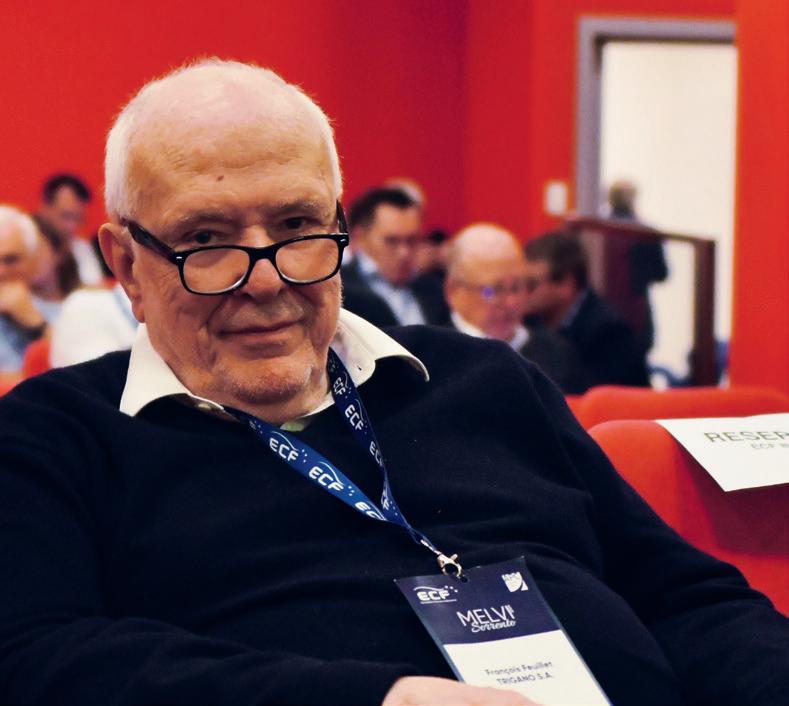
the leadership of ECF but also from the caravaning industry in general: Hermann Pfaff, who served as president of both CIVD from 2014 to 2023 and ECF from 2020 to 2024, and Sonja Gole, who was a member of the ECF council for 20 years and is retiring after over 40 years of an esteemed career at Adria Caravan, 30 of which were spent as general manager. Newly elected members to the Executive Council include Mikael Blomqvist from the Swedish industrial association HRF, Bart Decuyper, president of the Belgian association BCCMA, and Bernd Löher, president of the German manufacturers’ association CIVD. In the council election, Leo Diepemaat (Treasurer), Simone Niccolai (APC), and Anthony Trevelyan (NCC) were also confirmed for another two years in their positions.
managers
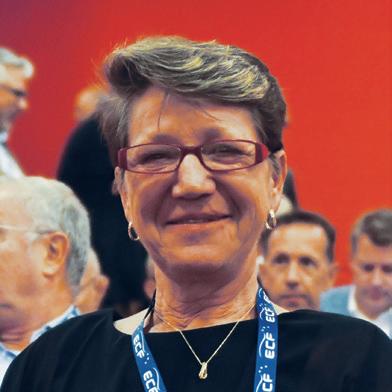
“On behalf of the entire Council, I would like to thank the members of ECF for the great trust they have placed in us. We look forward to continuing to successfully represent our industry at the European level and to face future challenges together in constructive cooperation,” declared François Feuillet. The editorial team of Aboutcamp BtoB congratulates the new president, who, with his vast experience and expertise, is undoubtedly the right person to steer the association towards new and ambitious goals. The editorial team also wishes to express deep esteem and gratitude for the departing figures, Sonja Gole and Hermann Pfaff, pillars in the European caravaning sector. Our director and our journalists, bound by years of collaboration and friendship, will feel the void left by these two icons, whose legacy will continue to influence our field for many years to come.
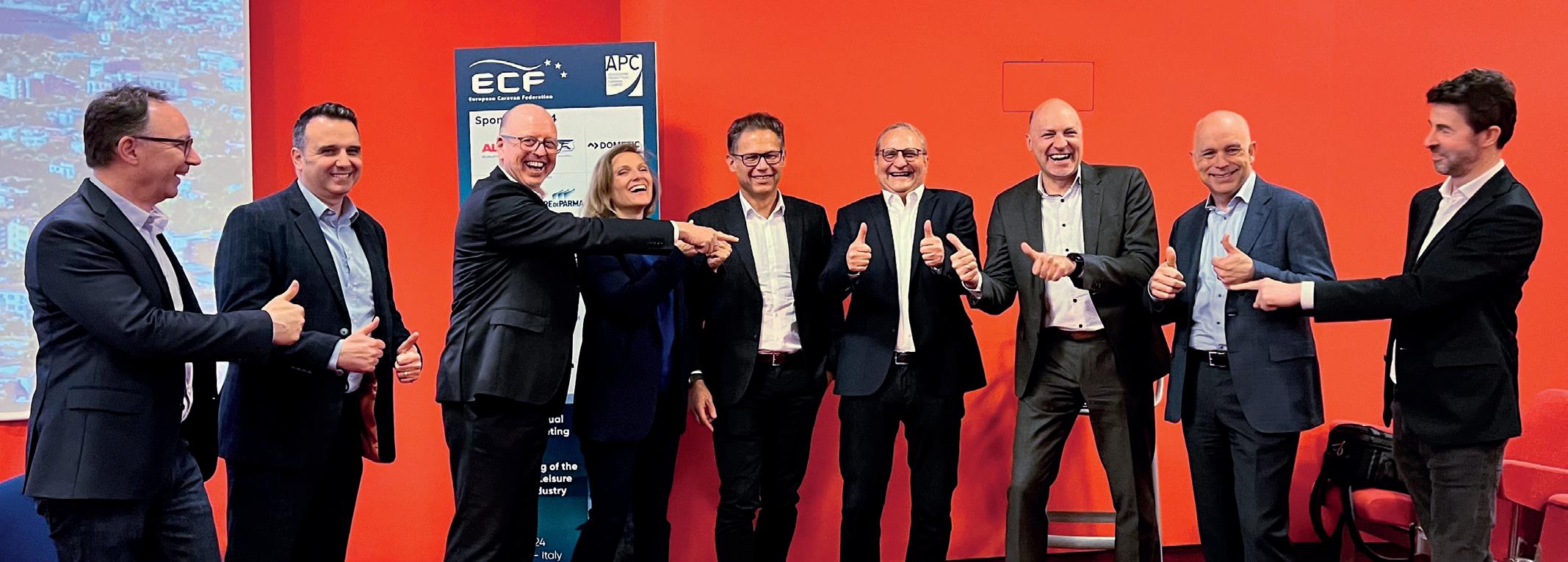
27
Sonja Gole
François Feuillet
The
of the Hymer Group pay tribute to Hermann Pfaff (in the center)
Sustainable growth through cost efficiency, quality, and modular approach
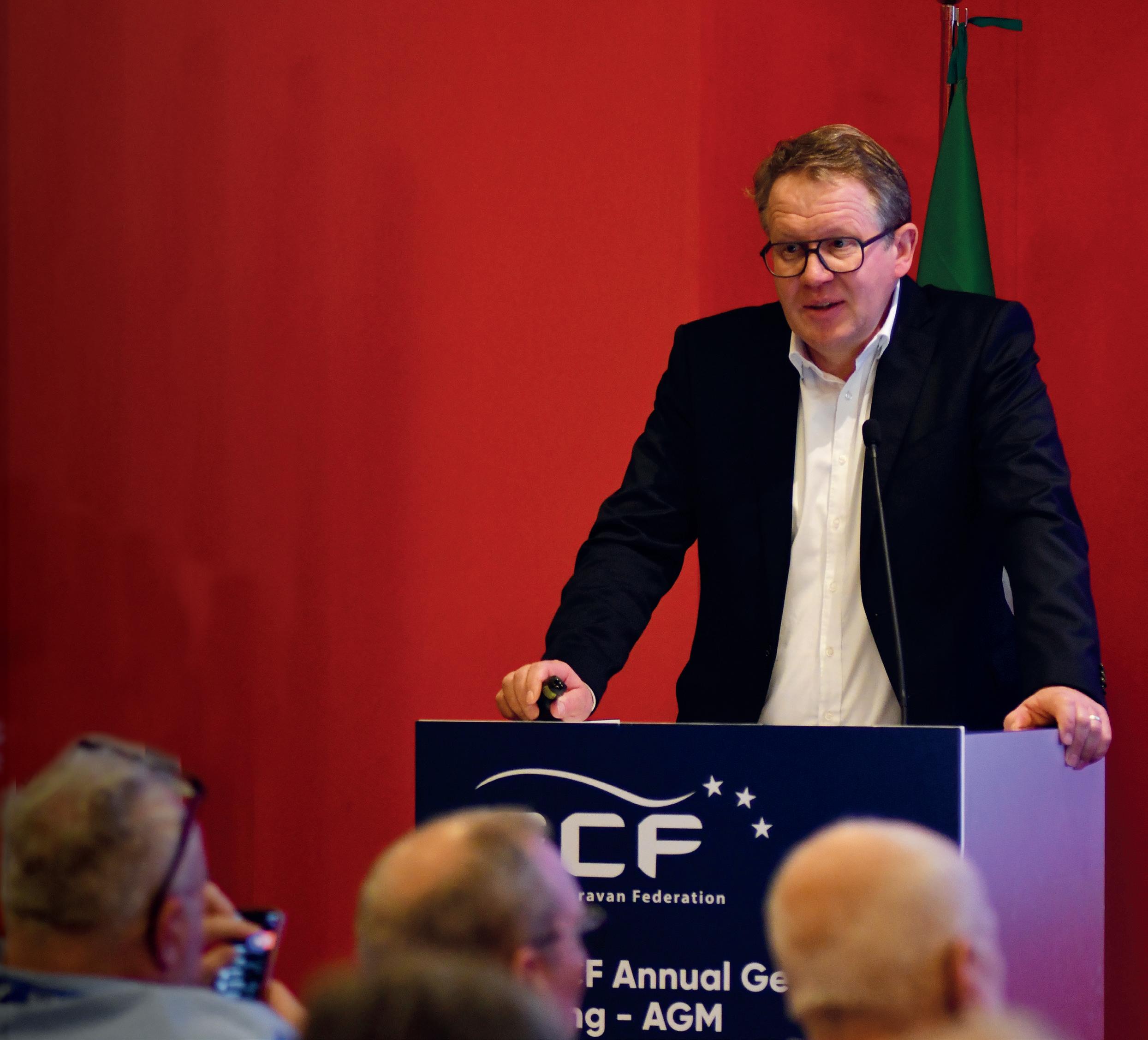
Group President EMEA at LIPPERT, Jörg Reithmeier underlined the need for the recreational vehicle industry to adapt to changing market dynamics. By focusing on cost efficiency, maintaining quality, and adopting a modular approach, the industry can find a new equilibrium that supports sustainable growth. The collaborative efforts between OEMs and suppliers will be crucial in navigating these challenges and capitalizing on the potential for renewed market expansion
At the MELVI 2024 event, Jörg Reithmeier, Group President EMEA at LIPPERT, provided a detailed overview of Lippert’s current market dynamics and economics, as well as potential industry actions and conclusions. Founded in 1956, Lippert initially specialized in residential roofs. Under the dynamic leadership of CEO Jason Lippert, the company has significantly expanded. Last year, Lippert eclipsed $3 billion in global sales. The company
employs approximately 12,000 team members worldwide, including 1,800 in EMEA, and operates 160 plants globally, with 14 in Europe. Lippert’s portfolio includes more than 10 global brands and it is committed to social responsibility, with team members across the world contributing over 100,000 hours of volunteer work annually and raising about $4 million for charitable causes. Lippert’s European operations are spread across the UK, Ireland, Netherlands, Germany, Italy, and Tunisia. The company values its strong culture and core principles, focusing on teamwork, trust, honesty, integrity, and a positive attitude. In recent years, Lippert has grown through strategic acquisitions and positions itself as a solution provider, focusing on engineered products and smart components. This strategy includes offering complete systems, such as space on-demand systems and bike carriers, and integrating smart technologies and
28
Report MELVI 2024
energy management solutions to meet the demands of electric vehicles. In September 2023, Jörg Reithmeier was promoted to Group President EMEA. With a distinguished career in the automotive and caravanning industries spanning 27 years, Reithmeier brings a wealth of experience and expertise to his role. Before becoming a Senior Advisor to Lippert in 2019, he spent nearly a decade at the Erwin Hymer Group serving on their board of directors from 2015 to 2019. Over the past year, Reithmeier has served as Managing Director for Lippert’s Caravanning group in Europe, bringing focus and structure to Lippert’s Italian, German, and Dutch caravanning businesses.
Understanding Market Dynamics
Reithmeier highlights the significant rise in prices across various industries since 2019: motorhomes (+35%), boats (+30%), cars (+20%), furniture (+18%), and motorcycles (+10%). He emphasizes that the price increase for motorhomes has far outpaced comparable products. This trend is illustrated through basic economic principles of supply and demand, showing how the equilibrium price point in the motorhome industry has shifted. During the boom years, the industry enjoyed high demand at increasing prices. However, Reithmeier suggests that the market has now moved right of the equilibrium point, where high prices have led to a drop in demand and registrations, despite sustained interest. This imbalance indicates that current prices might be too high for a significant part of the market that hence becomes unaccessible.
The Economic Landscape
Analyzing German market data from 2019 to 2023, Reithmeier points out that nominal wages increased by 12%, while consumer prices rose by 17%. This disparity has contributed to the decrease in motorhome registrations, making them unaffordable for many potential buyers. He concludes that the ideal price point for motorhomes should be 15-20% below current levels to rejuvenate the market without compromising on quality.
Improving the Supply Chain
Reithmeier stresses the importance of addressing inefficiencies within the supply chain to reduce costs without sacrificing quality. He advocates for a collaborative approach between OEMs and suppliers, focusing on cost engineering by identifying lean principles (avoid overengineering, focus on customer need and work to align expectations of customers and OEM’s with supply chain
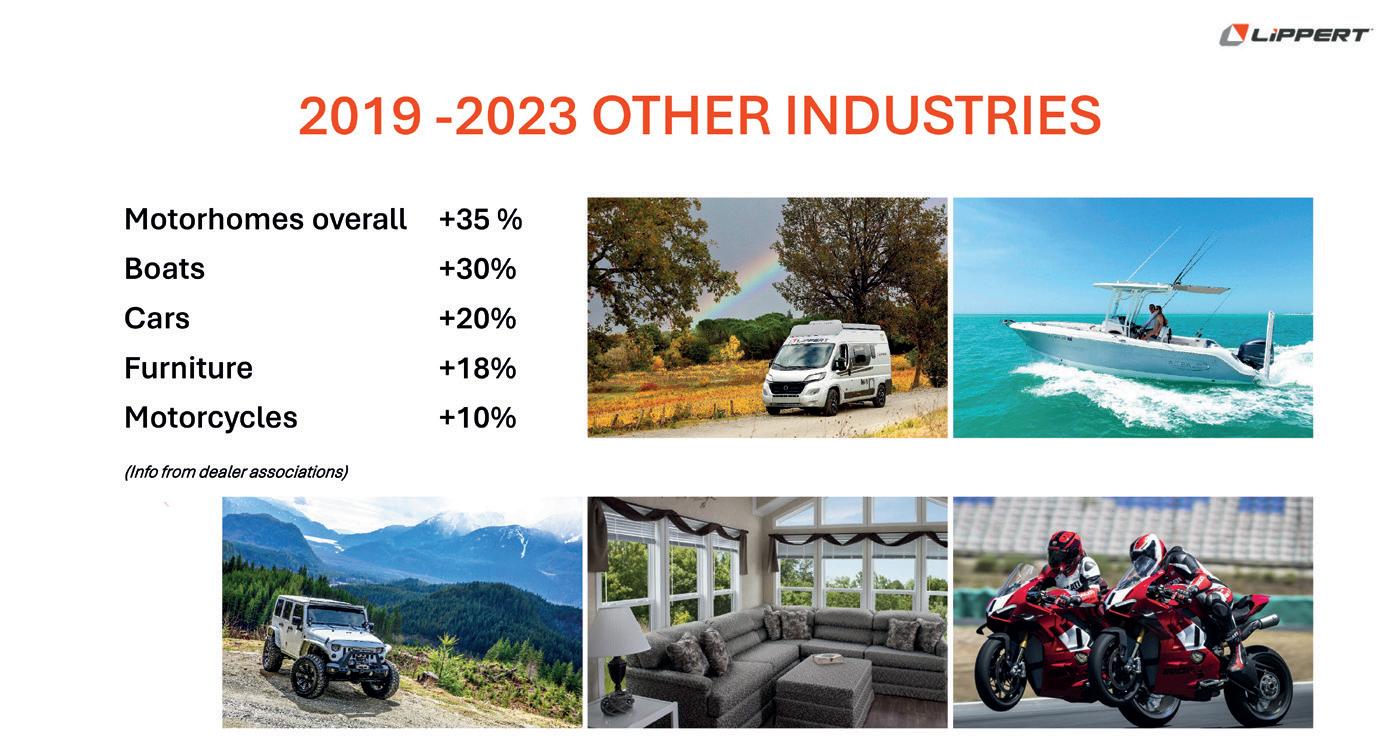
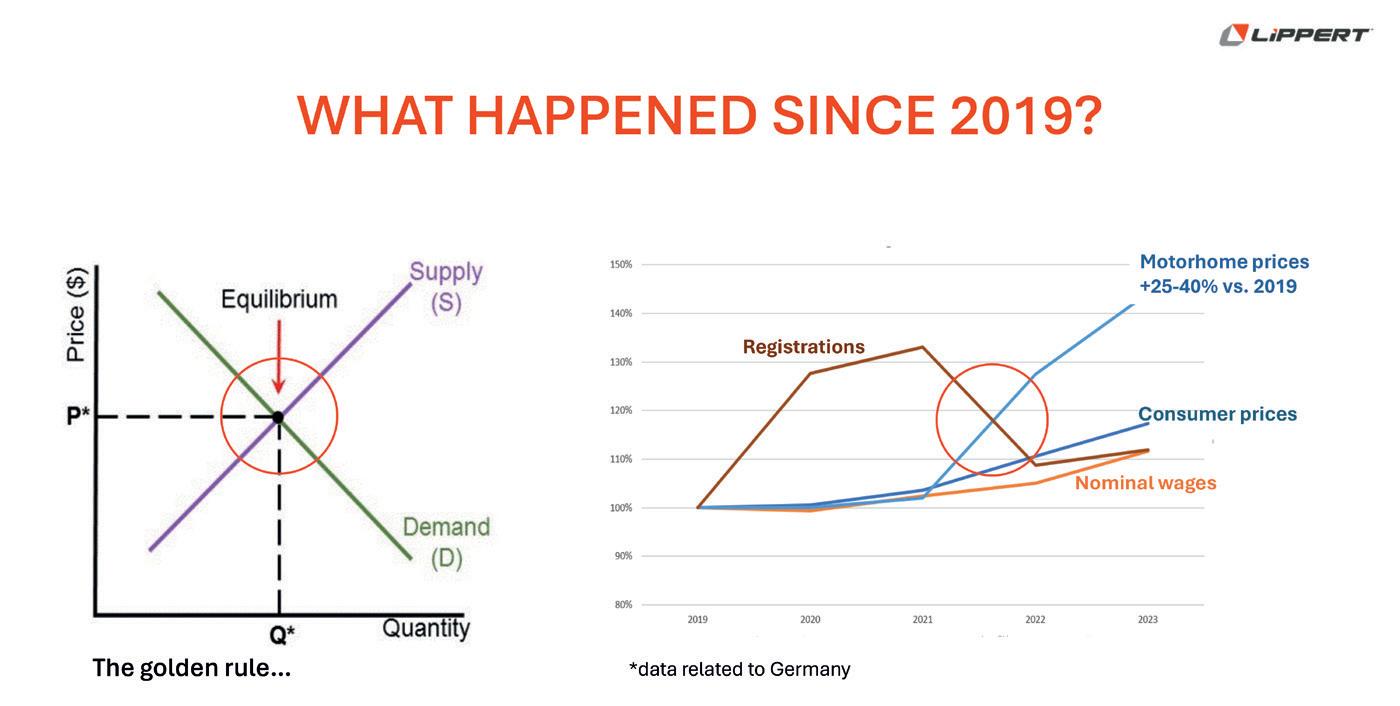
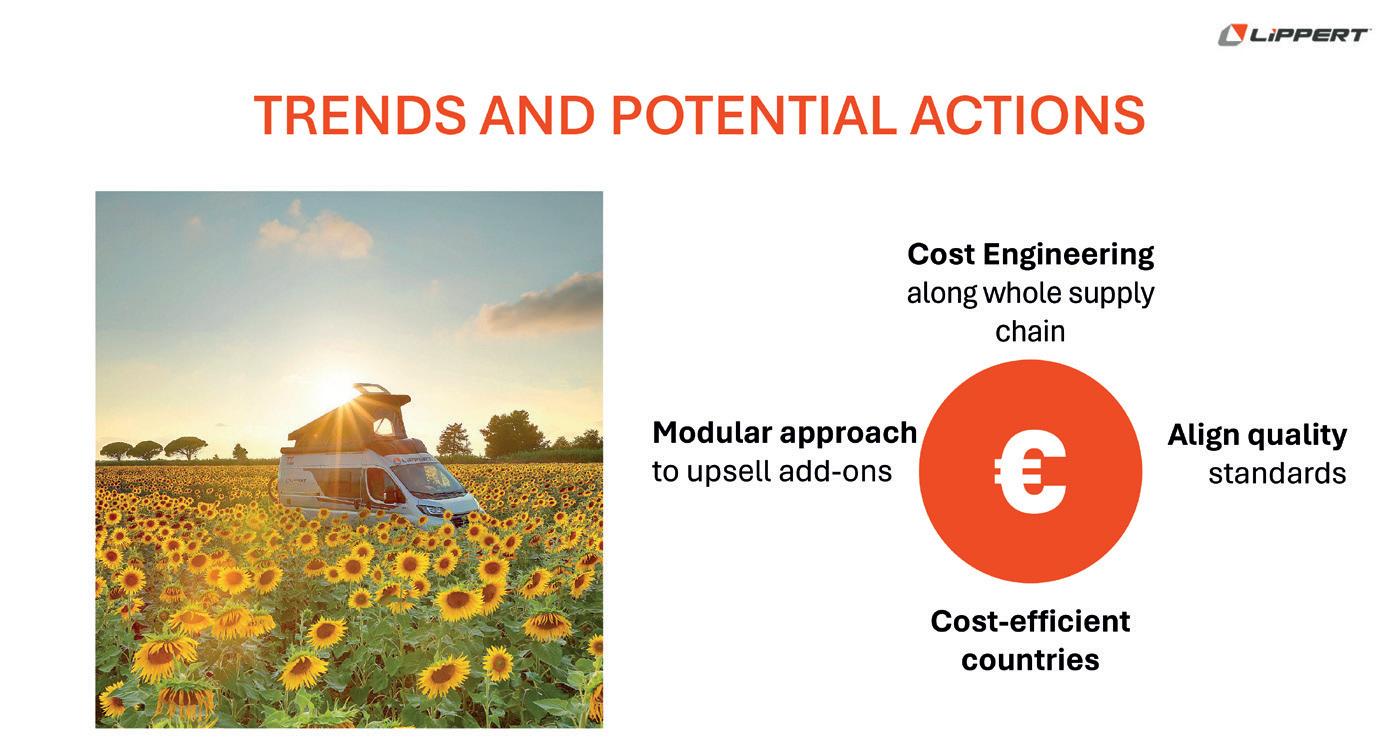
optimization potential), aligning quality standards, and utilizing cost-efficient countries. He also suggests a modular approach to vehicle manufacturing, where customers can choose and add features according to their needs, thus maintaining a competitive base price. Reithmeier provides practical examples, such as the production of garage doors, where better understanding and alignment on quality expectations could reduce costs significantly. He emphasizes that not all products require the same quality standards as premium models, and a tailored approach to quality could yield substantial savings.
Modular Approach and Upselling
A modular approach allows for upselling
at different levels of vehicle configurations. Reithmeier mentions the “Urbans” as a classical product where customers can purchase a basic model and then add modules like a fridge or cooking unit. This strategy can make high-quality recreational vehicles more accessible while allowing customers to personalize their purchases.
Potential Actions for Cost Reduction
The analysis suggests several actions, including better understanding and alignment between suppliers and OEMs, utilizing cost-efficient manufacturing in countries like Tunisia, and ensuring that quality standards match customer expectations without unnecessary over-specification.
29
Electrification & sustainability: Stellantis’ roadmap for RVs
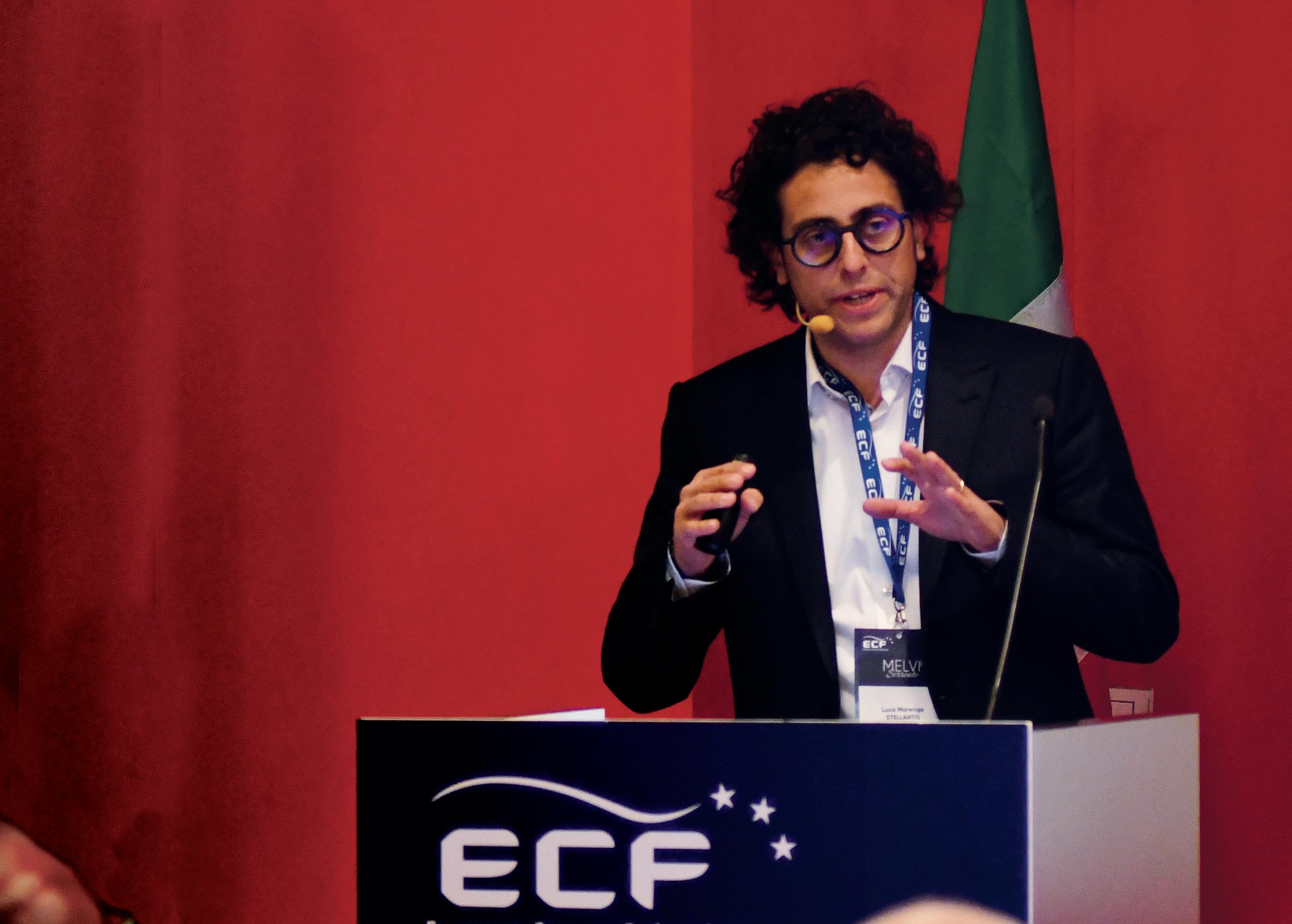
At the 29th Meeting of the European Leisure Vehicle Industry (MELVI), Luca Marengo from Stellantis outlined the company’s strategic vision for the future of electrification in the recreational vehicle sector. Highlighting the launch of Stellantis Pro One and the comprehensive 360-degree approach to commercial vehicles, he discussed industry trends, challenges, and the roadmap for integrating electric and hydrogen technologies. He emphasized Stellantis’ commitment to innovation, sustainability, and maintaining leadership in the evolving market, aiming for a fully electric lineup by 2030
Luca Marengo, VP Head of Product Stellantis Pro One, Global Commercial Vehicle Business Unit, discussed Stellantis’ strategy and the future of electrification, focusing on campers and recreational vehicles (RVs) at the 29th Meeting of the European Leisure Vehicle Industry (MELVI). With 16 years of experience in the automotive sector, beginning his career at Fiat Professional as a Pro Manager for Campers, he introduced Stellantis Pro One, officially launched in October last year, as an organization dedicated entirely to commercial vehicles. This initiative unites the six Stellantis commercial vehicle brands, Citroën, Fiat Professional, Opel, Peugeot, RAM and Vauxhall to become the preferred business partner for customers, embodying a 360-degree ap-
proach built on five pillars: Product, Zero Exhaust Emission, Customer Experience, Conversion Outfit, and Connected Services.
Current trends and challenges
Marengo highlighted that Stellantis Pro One leverages the strengths of each brand while addressing the rapid changes in the industry since 2020. Their strategy involves a comprehensive product lineup, including the 2024 range that sets the foundation for future models. Stellantis has pioneered electrification, achieving a 40% market share with their full lineup of electric vehicles launched in 2021. Customer experience remains paramount, with a focus on connectivity in sales, aftersales, and digital ecosystems. Conversion outfit remains a crucial area,
accounting for 50% of Stellantis’ sales, while connected services are increasingly essential, with all vehicles being 100% connected since March this year.
Electrification
and the future of motorized RVs
Marengo emphasized that electrification is a major focus for Stellantis. Regulations, subsidies, and environmental goals drive the rapid evolution of engine technologies, pushing towards carbon neutrality by 2050. The internal combustion engine (ICE) and mild hybrid engines will gradually phase out, making way for battery electric vehicles (BEVs) and low-emission solutions. He noted that battery costs are projected to decrease by 50% by 2030, driven by competition and technological advancements. A global investment of 1.3
30
Report MELVI 2024
trillion euros in electric vehicles by 2030 underscores the unstoppable momentum towards electrification.
The ecosystem of charging infrastructure
Marengo pointed out that a robust charging infrastructure is critical for the widespread adoption of electric vehicles. Projections indicate 24 million charging points globally by 2030, with public chargers increasing significantly. This growth aligns with substantial investments in clean energy solutions, creating a profitable ecosystem for charging stations.
Customer trends and electric RVs
He explained that customer adoption of electric vehicles is expected to shift from early adopters to the majority by the end of decade. Improved affordability and reduced range anxiety will drive this transition. Research shows that RV owners typically travel short distances, making electric RVs feasible for most trips. However, challenges remain, including the adaptation of RV conversions to battery technology, increased vehicle mass, and the need for a tailored product lineup. Despite these hurdles, the shift to electrification in the RV sector is inevitable.
Stellantis’ Pro One strategic vision
Marengo outlined Stellantis’ plans, which include a comprehensive product update in 2024 just launched, 12 renewed models in the compact, mid-size and large van segment, improving human-machine interfaces, driver assistance, and zero-exhaust emission capabilities. Their second-generation BEVs will offer record ranges, and their hydrogen strategy will provide flexible, fast-refueling options for longer distances. Stellantis continues to innovate with their diesel engines, introducing new versions that deliver durability and efficiency, particularly for the camper market. Their goal is to maintain current strengths while focusing on zero exhaust emission solutions and enhancing connectivity, safety, and conversion readiness. By 2025, Stellantis plans to introduce a dedicated
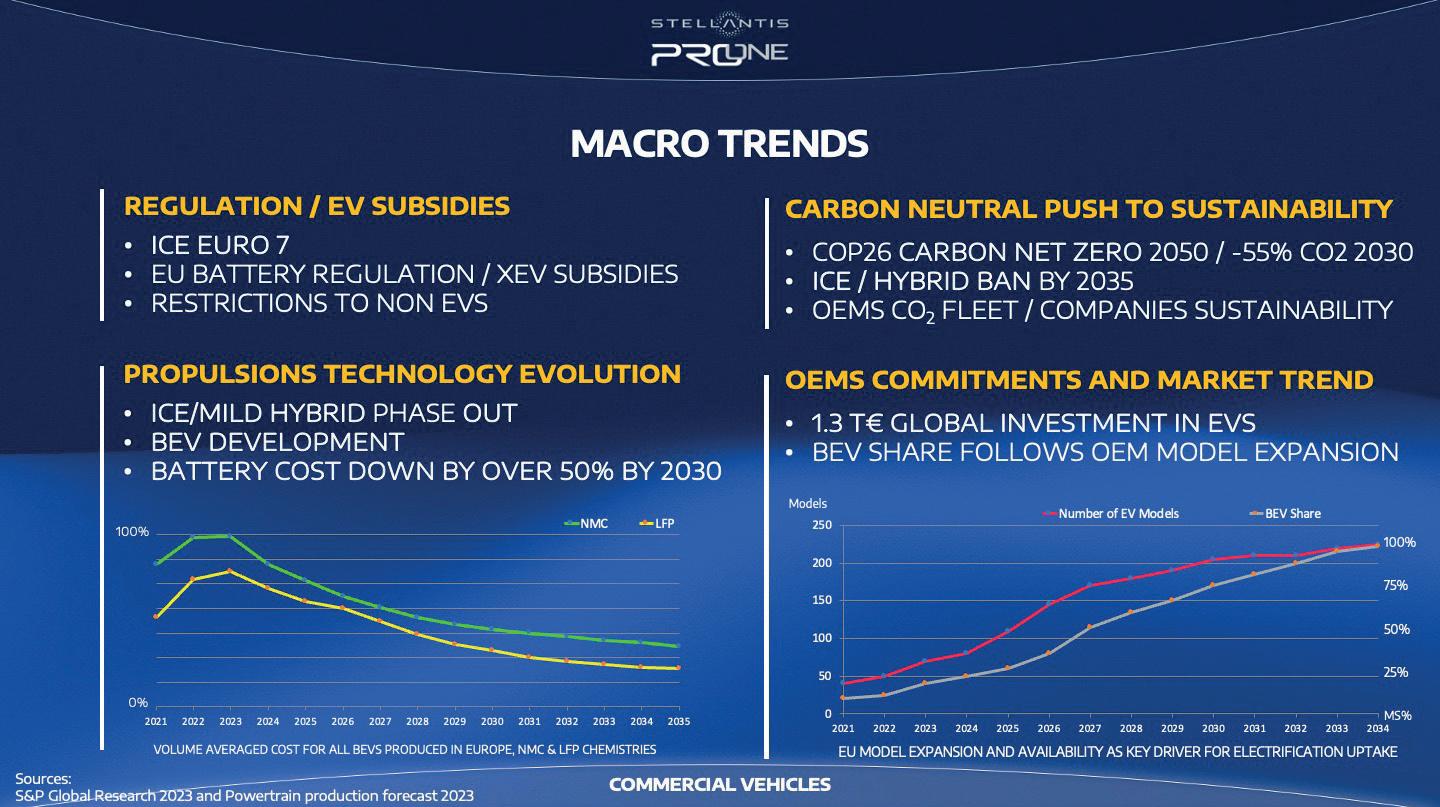
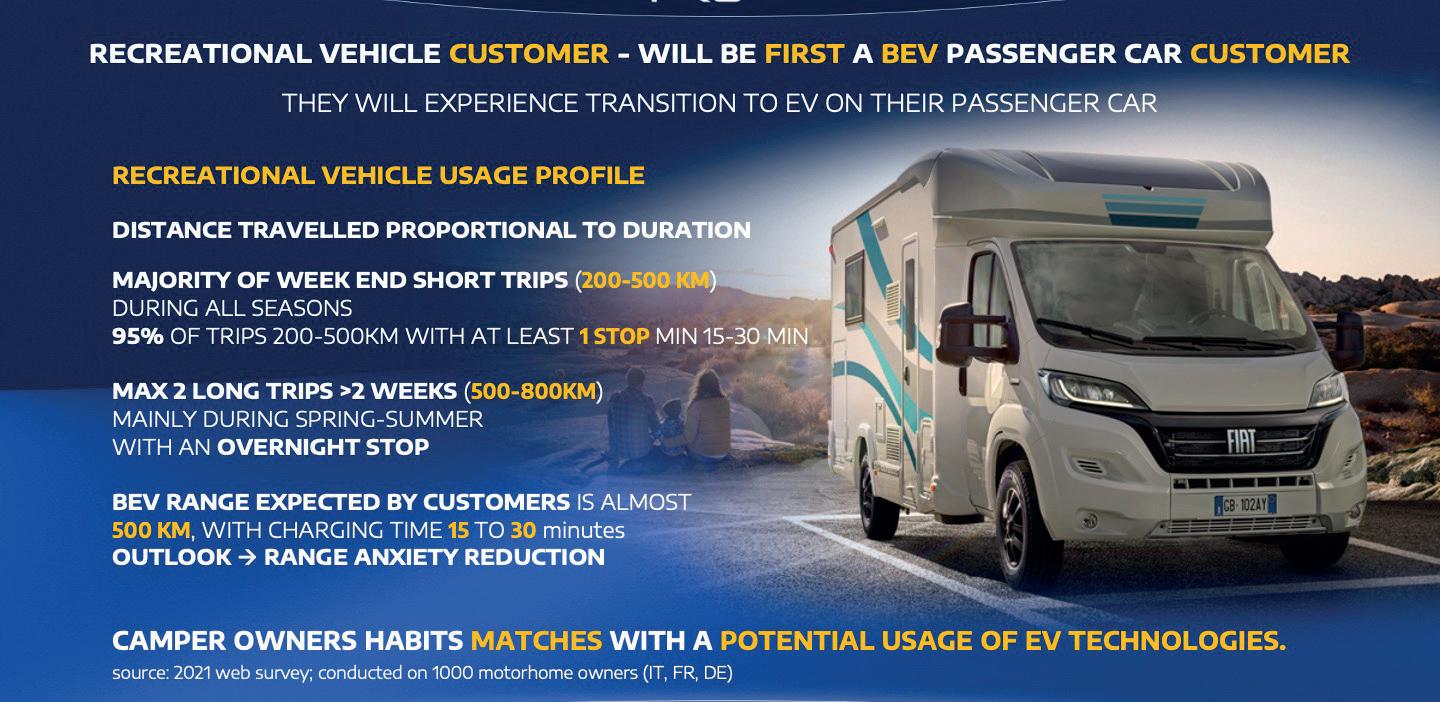
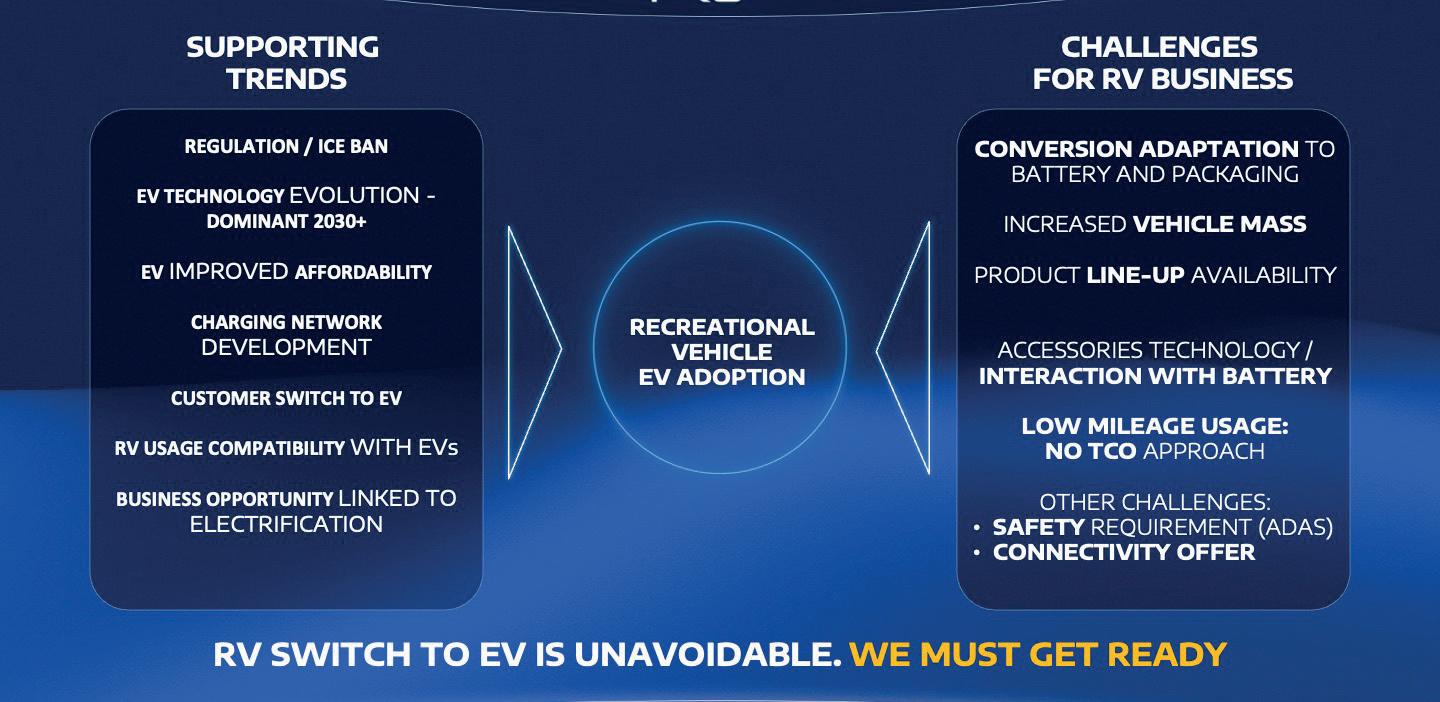
zero exhaust emission camper base, extend advanced driver assistance systems to motorhomes by 2026, and expand their EV lineup by 2027. Their target is to be 100% electric by 2030, supported by a multi-energy platform strategy that
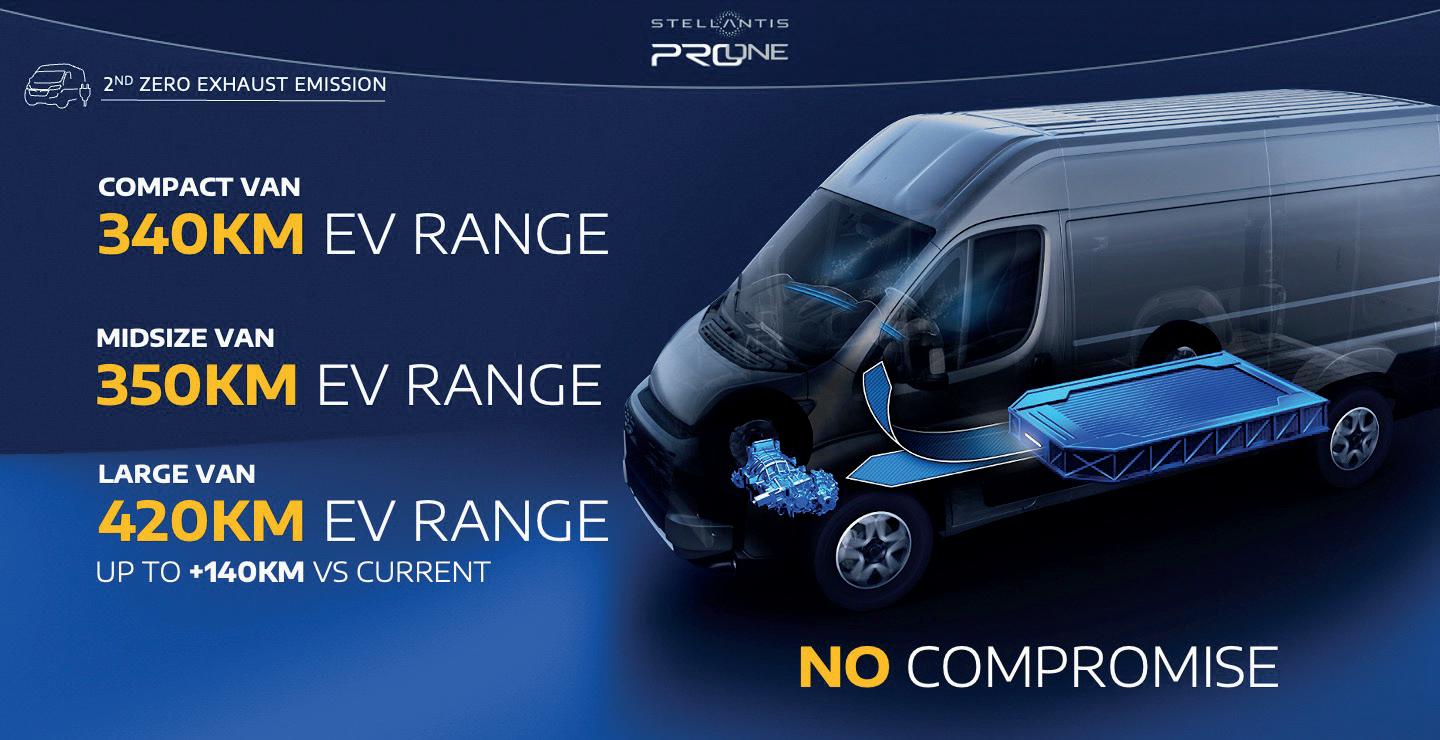
includes both diesel and electric options. Recreational Vehicles represents a strategic asset for Stellantis Pro One, which is committed to sustain and actively support the sustainable future development of the compound.
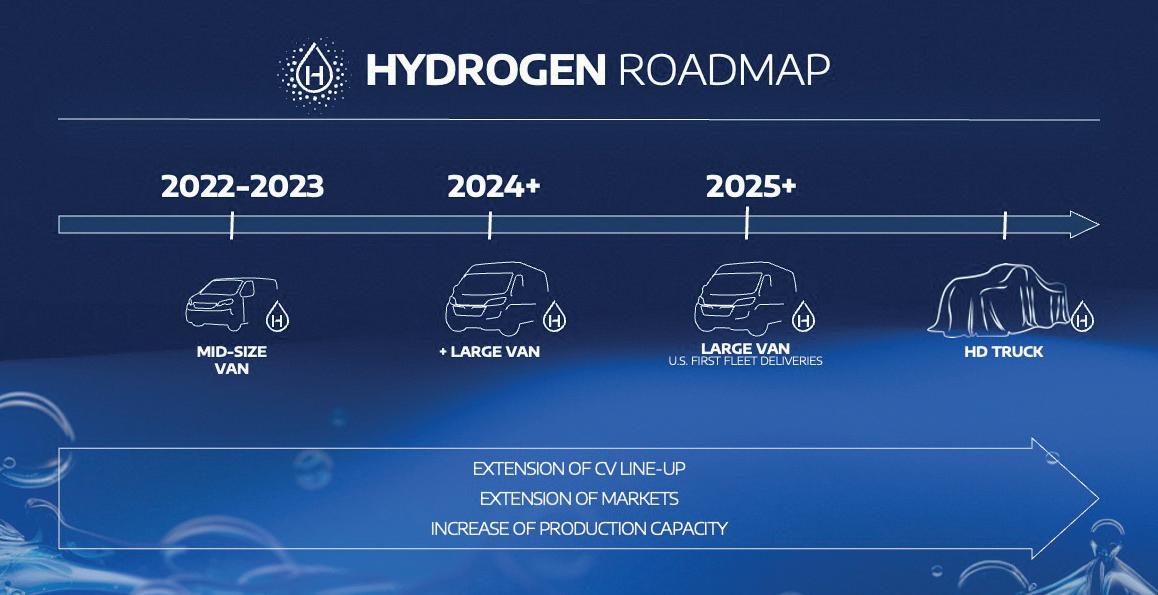
31
Bonometti: innovation and tradition
Stefano Bonometti, CEO of Bonometti Centrocaravan, shares the journey and vision of his company. It operates from a 27,000 square meter facility in Vicenza, Italy, showcasing over 200 new and used motorhomes and caravans from ten brands. With a strong emphasis on regional heritage Bonometti Centrocaravan leverages comprehensive marketing strategies and lean management practices to connect with customers and streamline operations
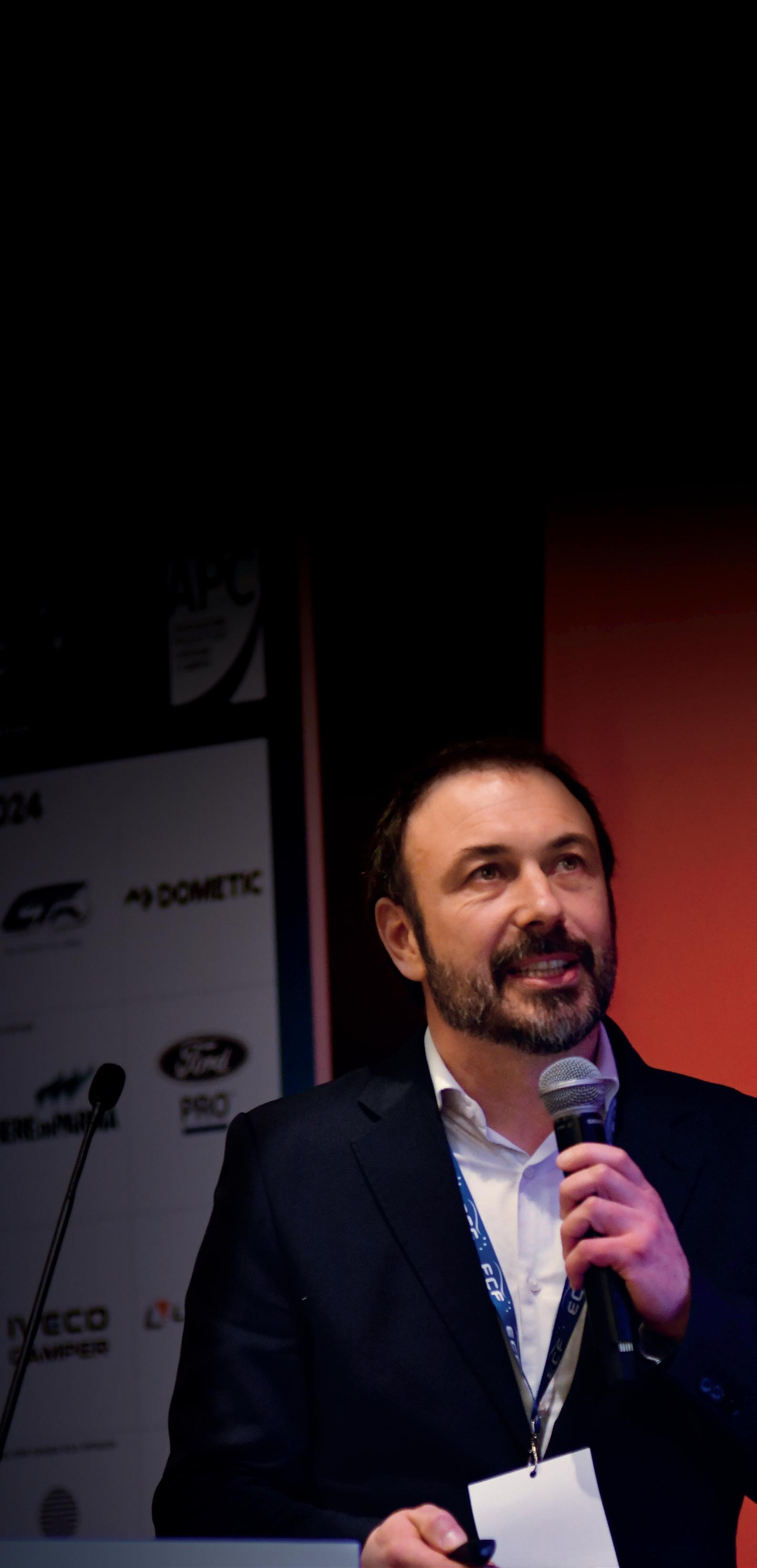
Bonometti Centrocaravan was founded by Danilo and Maria Pia Bonometti in 1966 as a dealership for cars, accessories, and tires. In 1974, a transformative event occurred when Danilo discovered a Nardi caravan during a trip to Torino. He brought it back, marking the company’s entry into the caravan market. Over the years, the business expanded to include importing caravans from Germany. In 2001, Anna Bonometti joined the company as CFO, and in 2008, the company decided to focus exclusively on recreational vehicles, ending their car dealership operations. Stefano Bonometti joined the family business in 2010, and together, they have strived to uphold their regional values and build strong partnerships, such as with the Erwin Hymer Group and Harald Striewsky Group.
Bonometti Centrocaravan today
Bonometti Centrocaravan operates from a 27,000 square meter facility, featuring a permanent exhibition of over 200 new and used vehicles, representing ten brands. The company is a distributor for the Italian market for brands like Fendt, Hobby, and Isabella. Since 2011, they have expanded their market reach to the Far East, including China and South Korea. Currently, they employ 30 individuals, half of whom boast over 20 years of experience in the industry. The company is located in Vicenza, a region rich in cultural significance. Situated between Verona and Venice, their showroom overlooks two historic castles that inspired the timeless love story of Romeo and Juliet. This connection to their heritage enhances the customer experience, inviting them to explore the rich history and beauty of the Veneto region, a UNESCO World Heritage site. Veneto is one of Italy’s wealthiest regions, with tourism being a significant contributor to its economy, generating 18 billion euros annually. Notably, Veneto hosts prominent tourist destinations like Cavallino-Treporti, Bibione, and Jesolo, attracting millions of motorhome and caravan lovers each year, particularly from Germany and Denmark. This vibrant tourism sector aligns perfectly with Bonometti Centrocaravan’s focus on outdoor and camping tourism.
Marketing at Bonometti Centrocaravan
At Bonometti Centrocaravan, marketing is a cornerstone of their business strategy, aimed at developing and consolidating direct contact with customers to ensure strong and lasting relationships. To reach a wide audience, Bonometti Centrocaravan employs both tradition-
32 Report MELVI 2024
al print media and modern online platforms. This dual approach allows them to maintain a broad presence in the market and effectively communicate their offerings. Engaging with customers on social media platforms such as Facebook, YouTube, Instagram, and TikTok is also key. These platforms help them connect with a diverse audience, foster community, and build brand loyalty, providing an interactive space for direct engagement.
The Bonometti Card is a loyalty program designed to offer exclusive benefits to customers, enhancing their overall experience and encouraging repeat business by rewarding loyalty. Hosting corporate events is another crucial strategy for Bonometti Centrocaravan. These events provide opportunities for direct interaction with customers, allowing for valuable feedback and relationship strengthening.
Additionally, maintaining an informative and user-friendly website, producing a corporate newsletter, and creating engaging videos help keep customers informed and connected. This comprehensive approach to marketing ensures that Bonometti Centrocaravan remains closely connected with its customer base, continuously adapting to meet their needs and preferences. The company continuously improves its operations through the implementation of Lean Management, which began six years ago. This involves setting up business processes and improving standards. Additionally, they have implemented a Customer Relationship Management (CRM) system to better manage customer interactions.
Trends and customer profiles
Bonometti Centrocaravan has observed changes in customer preferences over the years. Decline in Alcove Models: In 2011, alcove models were highly popular, accounting for 38% of sales. However, their appeal has drastically waned, plummeting to just 2% in 2023. Camper vans have experienced a substantial surge in popularity. Sales of vans increased from 7% in 2011 to 41% in 2023. Motorhomes, which made up 20% of sales in 2011, have seen a decrease in demand, dropping to 6% in 2023. This decline may be attributed to their larger size and higher costs compared to other options. Low profile models have steadily gained traction, rising from 34% in 2011 to 51% in 2023. The data highlights a significant transformation in the recreational vehicle market, with a clear shift towards more compact and versatile options like camper vans and low profile models. Stefano Bonometti provides insights also into the average ages of customers across differ-
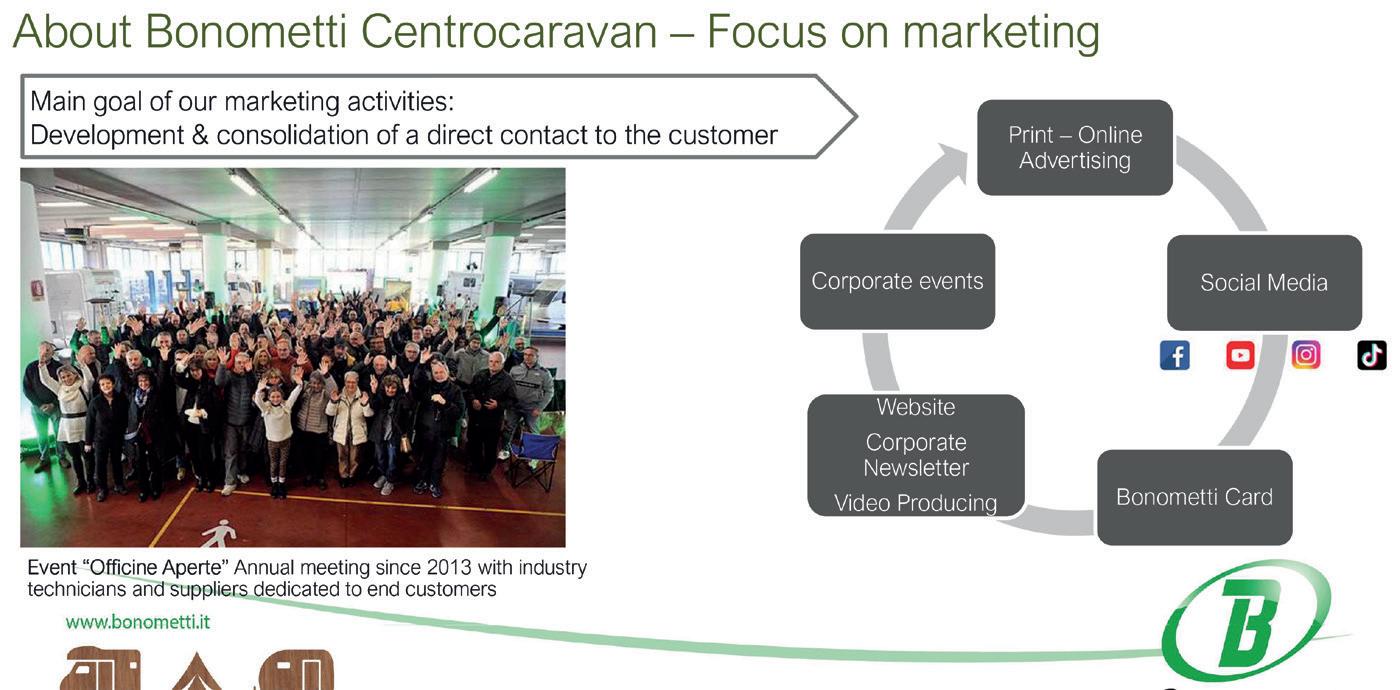
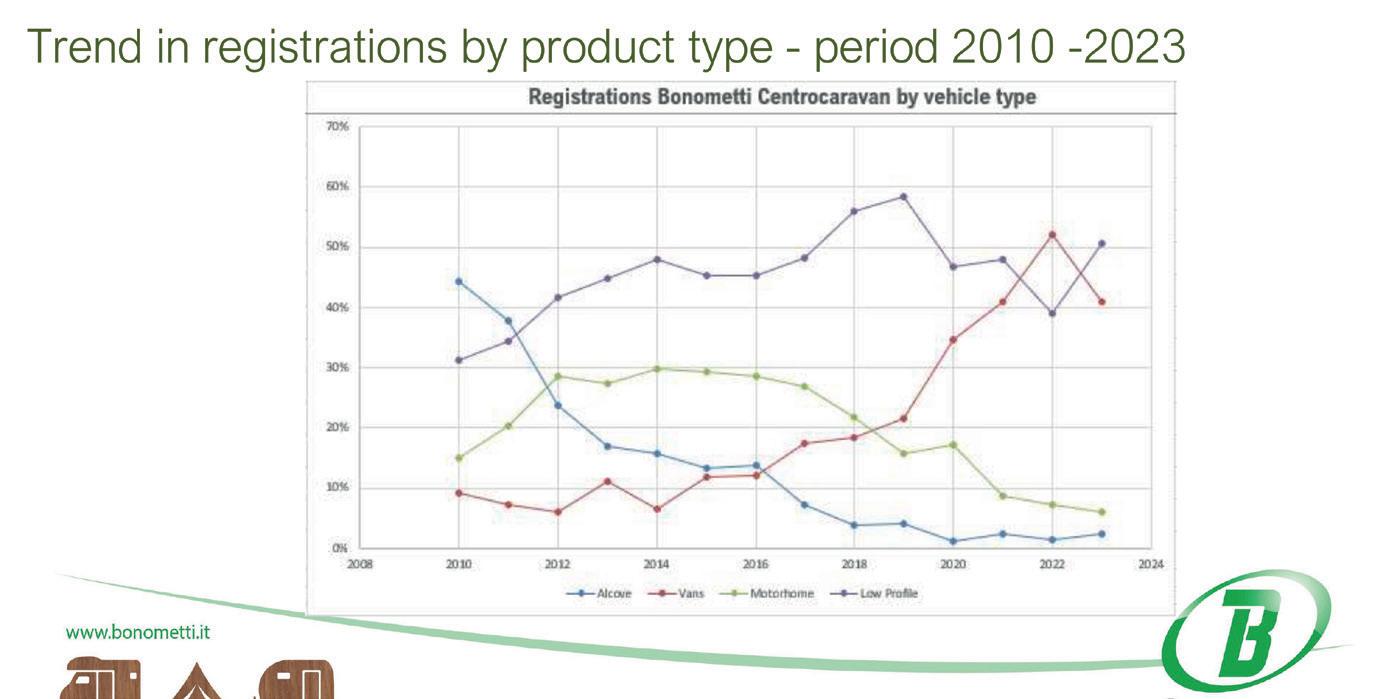
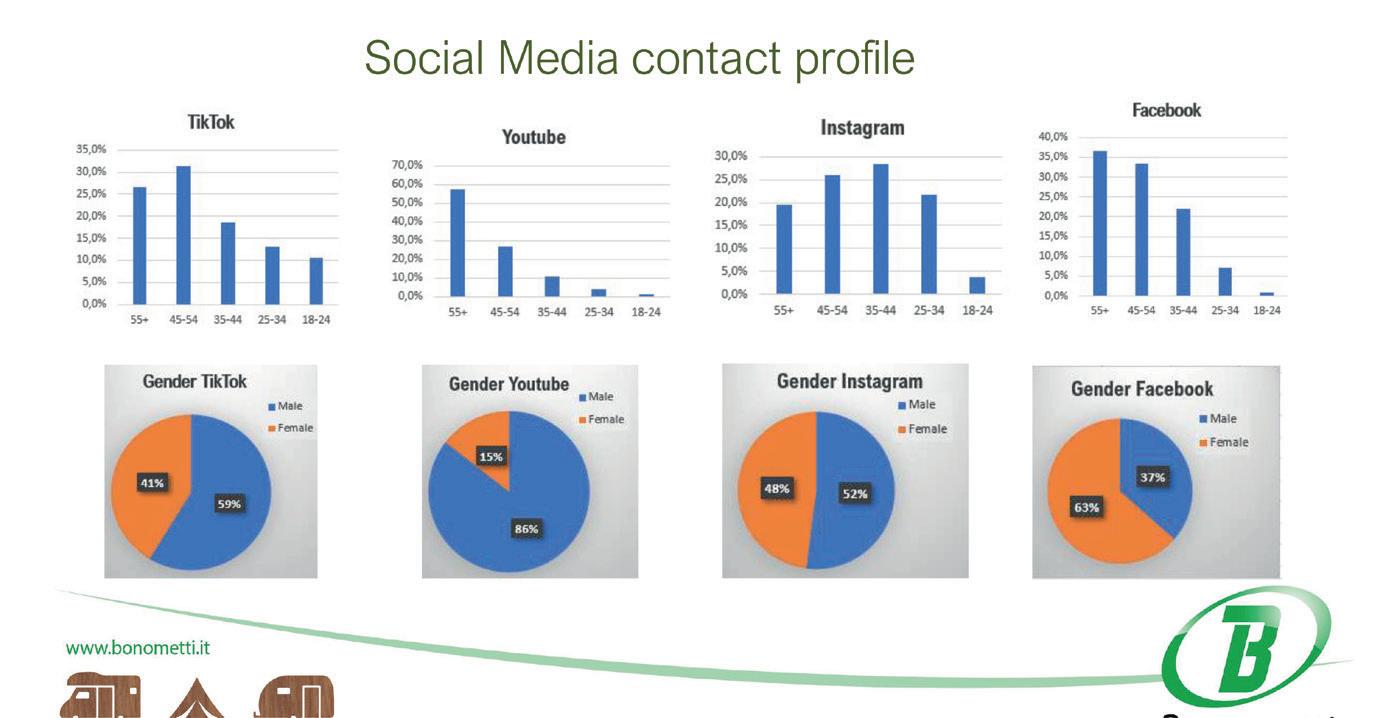
ent categories of recreational vehicles, based on a sample of 200 customers. The average age of those purchasing new motorhomes is 62 years. Customers buying new caravans have an average age of 51 years. Those purchasing used autocaravans and caravans average 60 years old. Meanwhile, customers renting recreational vehicles have an average age of 58 years. The data indicates that the recreational vehicle market is largely driven by older adults, particularly those in their late 50s and early 60s. This demographic trend underscores the importance of catering to the preferences and needs of older customers, who are significant consumers in this sector. Bonometti Centrocaravan remains committed to
adapting to these trends and providing exceptional service to all its customers.
Looking to the future
As the market evolves, Bonometti Centrocaravan recognizes the importance of effective communication to promote this form of tourism and improve its image. They invest continuously in all communication channels aiming to reach a wider and more diversified audience. The company has been driven by heart and passion for 58 years. Stefano Bonometti, along with his sister and the whole team, remains committed to providing the best service and meeting customer needs while upholding their regional values and heritage.
33
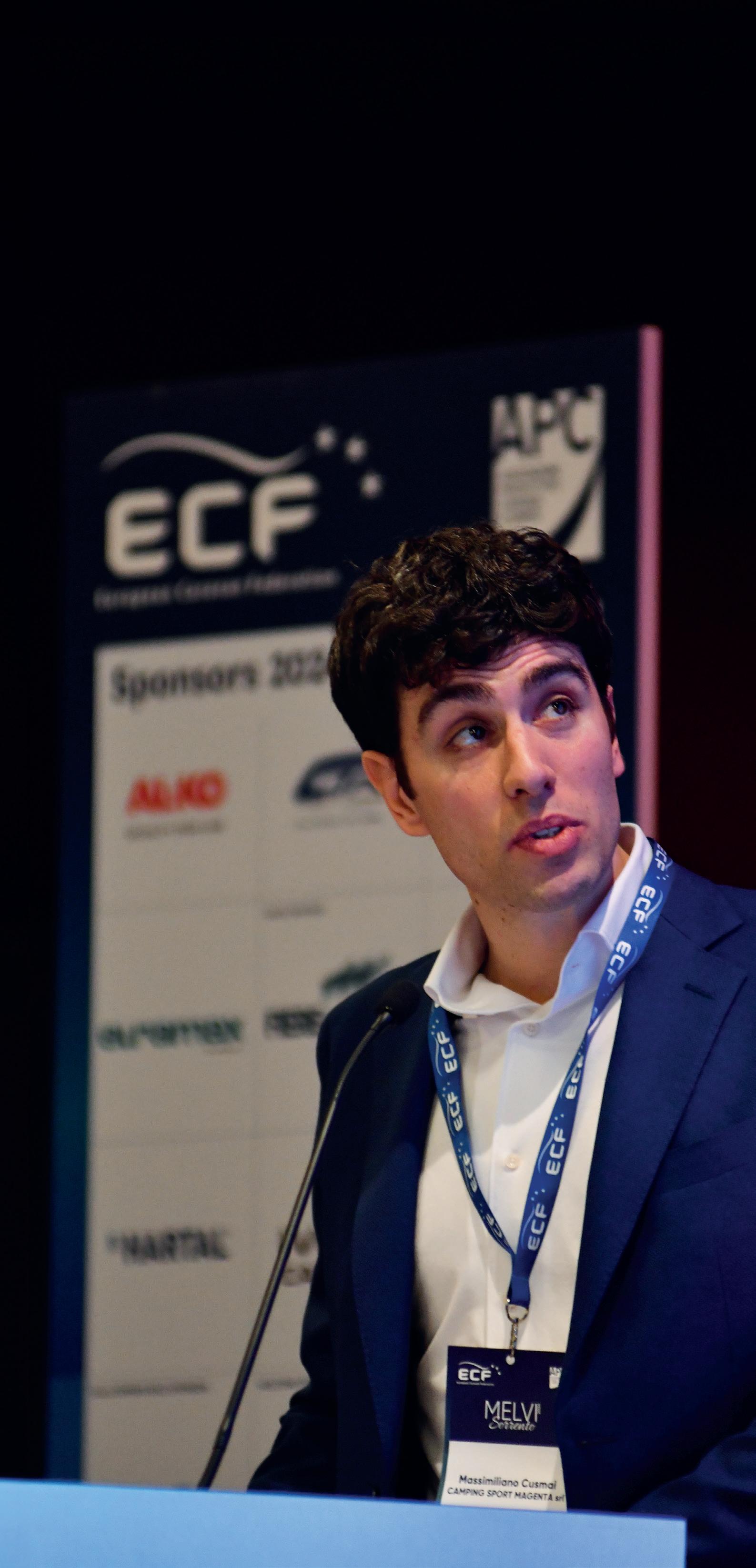
Cusmai’s version F
Massimiliano Cusmai was invited to the 29th Meeting of the European Leisure Vehicle Industry (MELVI) to share the experience of his family business:
Camping Sport Magenta
ounded in 1965 by Giulio Cusmai in Cinisello Balsamo, just outside Milan, the company initially focused on selling tents. Over the years, the product range expanded to include caravans and motorhomes, making Camping Sport Magenta a key player in the industry.
In 1983, Michele Cusmai, the founder’s son, opened his own business in Magenta, significantly expanding operations. Starting with just four employees and an initial turnover of 0.5 million, the company has grown into a giant in the recreational vehicle sector. In 2013, another milestone was reached with the inauguration of the new headquarters, an impressive 18,000-square-meter building, leading to further increases in turnover and the number of employees.
Camping Sport Magenta today
As of today, Camping Sport Magenta employs over 50 staff members, distributed across sales, administration, workshop, and warehouse departments. The owner’s family is also involved in the business: Michele’s sons Massimiliano (Showroom Manager) and Giulio (Buyer Manager), and his wife Marica (Administration). The company’s turnover has reached 43 million euros, with annual sales exceeding 600 vehicles, both new and used. Camping Sport Magenta collaborates with major brands like Trigano and Hymer, offering a wide range of vehicles and accessories for motorhomes. One of the keys to Camping Sport Magenta’s success is its ability to adapt to the needs of modern customers, especially in the accessories market, which has seen exponential growth in recent years. “The most requested accessories are no longer just simple bike racks or awnings,” says Massimiliano Cusmai, “but technologically advanced items like large Smart TVs, powerful inverters, and lithium batteries, which significantly enhance the camping experience.”
Camping Sport Magenta is not just a company that sells motorhomes and accessories; it is a true point of reference for the camper community. It is open seven days a week, with a workshop operating even on Saturdays. An extensive rest area has been created outside the facility.
A highlight of the business is its online store, which handles more than 36,000 shipments annually.
Overview of the camper market
In his speech, Massimiliano Cusmai offered insights into the current situation of the camper market, highlighting both
34
Report MELVI 2024
challenges and opportunities. The positive note, the manager said, is that since September 1, 2023, camper registrations in Italy have been increasing. However, he warned that this increase could be partially influenced by the high inventories accumulated by industry colleagues. Therefore, it is necessary to wait for further developments to confirm whether this is indeed a positive trend.
Regarding new vehicles, Massimiliano Cusmai emphasized that their high cost represents a significant barrier for many customers. The limited supply of cheaper models and the unattractive financing conditions (with interest rates of 6.95% leading to high monthly installments) make purchasing difficult for the clientele. Additionally, he highlighted an increase in the sales of new campers that doesn’t translate into returns of used vehicles, initially a positive phenomenon but problematic in the long term due to the reduced availability of used campers in the market. And the cost of used campers continues to rise, further complicating the situation. This price increase is directly linked to the rise in prices of new models.
Moving on to renting, the trend is positive, driven by new customers who, intimidated by the high prices of new motorhomes, prefer to opt for renting. Interest in this type of outdoor vacation has also grown significantly following the Covid-19 pandemic.
THE CAMPER MARKET TODAY
From 01/09/2023 the sales of new vehicles are slightly increasing due to the high number of vehicles in stock at dealerships
NEW
• Clients find it difficult to purchase due to high prices
• Few low-end models
• Financing at too high an interest rate that scares customers
• High-end customers are very demanding
USED
• Shortage of used vehicles which are sold at too high a price
• They are still being sold because there is no new low-end alternative
• Vans from 38.9K (2020) to 55K (2024)
• Motorhomes from 45.9K (2020) to 65.9K (2024)
RENTAL
• Strong increase due to the too high prices of new and used vehicles
• Customers who would like to buy a vehicle for their holidays are discouraged and prefer to rent it
OUR VISION OF THE RV MARKET
NEW
• Return to 10,000 registrations per year. To do this, we need entry-level vehicles
• Each brand will have to invest more in its personality
• Other financial solutions such as long-term rental
• Customers will become increasingly demanding
• Increase after-sales service
USED
• Our mission is to reduce the ownership transfers between private clients (30,000) through appropriate guarantees and financing.
• Create new used vehicles thanks to rentals
RENTAL
• Continuously increasing, also with foreign customers
• Request for support from our suppliers to increase the rental fleet
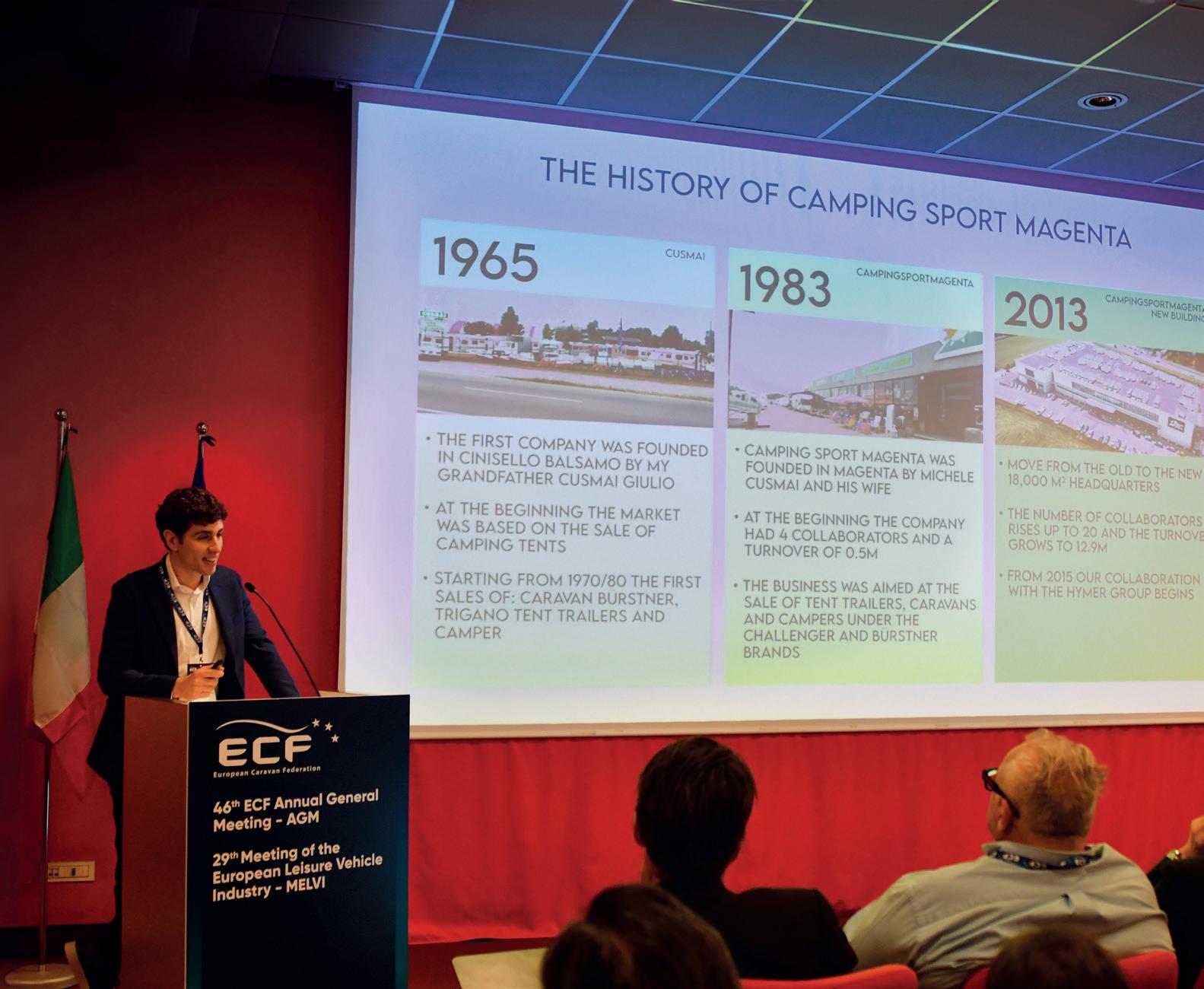
Looking to the future
The evolution of customer needs is evident: from young sports enthusiasts purchasing their first camper to older customers transitioning to more compact models. Massimiliano Cusmai emphasized the importance of staying attentive to the market and having the right product at the right time, urging the manufacturers present at the event to listen to the voice of dealers who are constantly in direct contact with customers. According to the manager, among the goals and strategies for the future are the return to at least 10,000 new registrations per year, the need for more affordable models, and the exploration of new financial solutions, such as long-term rentals or alternative forms of leasing. It will also be crucial to have a highly efficient after-sales service to meet the growing needs of customers. For the used market, it is important to intercept private sales (around 30,000) and create a new used inventory through ex-rental vehicles. In this regard, it is necessary to enhance rental fleets to meet the growing interest, including from foreigners.
35
with UTE HOFMANN
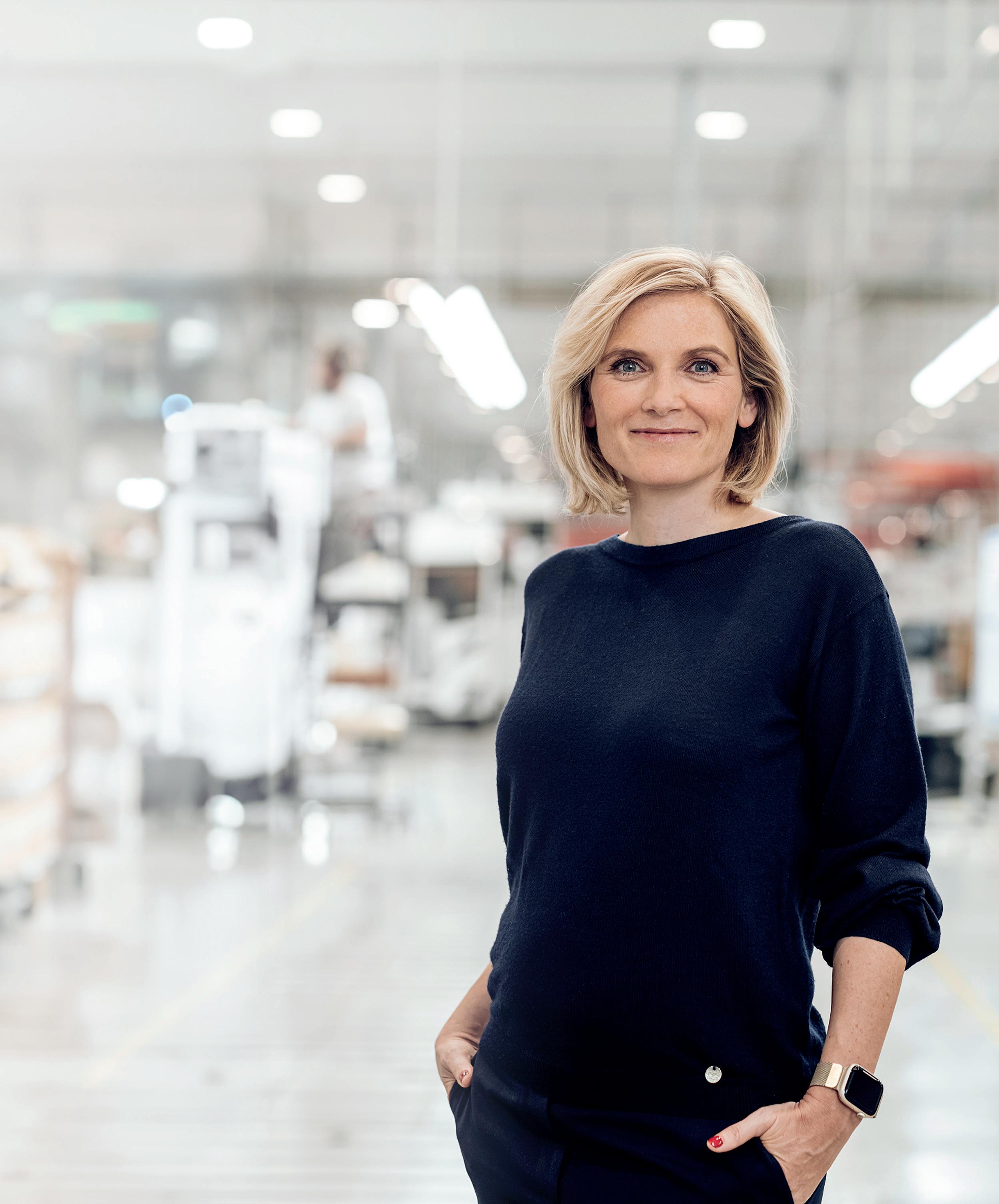
German vision, Italian style
In conversation with the woman leading Sales, Marketing, Product & Service at Laika since 2020, a prestigious company of the Erwin Hymer Group
Words Renato Antonini
German by birth but in Italy for many years, Ute Hofmann is one of the few women holding a managerial role in the European RV sector: she is the CEO of Laika for the Sales, Marketing, Product & Service area. She has worked in various companies of the Erwin Hymer Group since 2007: starting with Laika, then Carado and Sunlight during the growth phases of the two brands, then Movera, and finally returning to Laika. We asked Ute Hofmann to provide an overview of the current market situation and the changes underway in the RV sector.
Aboutcamp BtoB − What are currently the reference markets for Laika? Have there been any changes in recent years?
Ute Hofmann − The most important markets for Laika are primarily concentrated in Europe, with a particular emphasis on some key regions. Over the last few years, the evolution of these markets has been influenced by various factors, including economic, demographic, and cultural trends, as well as the conflict in Ukraine. Italy and Germany traditionally represent the main markets for Laika. Italy, where Laika is based, has historically been one of the most significant markets, while Germany has a strong demand for high-quality recreational vehicles. In recent years, both have shown stable growth, driven by the increasing popularity of touring tourism and the demand for luxury vehicles. France is another key market, with growing demand for our brand and an expanding network of business partners. Despite the uncertainties related to Brexit, the United Kingdom remains a significant market for us. The demand for high-end recreational vehicles has continued to be strong, although it may have been influenced by economic and political factors. Laika is also exploring opportunities in emerging markets, such as the countries
36 I nterview
of Eastern Europe, New Zealand, Turkey, or Japan, which offer potential growth opportunities with a growing interest in touring tourism.
Aboutcamp BtoB − Good design and Italian Style are key pillars of Laika’s identity and also play a significant role in your communication efforts. How do these elements integrate into the process of creating and selling your products?
Ute Hofmann − Good design and Italian style are central elements of Laika’s identity. These aspects not only influence how we design our products but also permeate the entire process of creation, sales, and communication. We invest heavily in the design phase, placing particular emphasis on aesthetics, functionality, and innovation. We collaborate with world-renowned Italian designers to ensure that each product reflects the best of Italian style and meets the needs of our customers. Our approach to Italian design also extends to our communication activities. We use images, videos, and promotional materials that highlight the aesthetics and elegance of our products, communicating the intrinsic value of the Laika brand. Through design and aesthetics, we also create an emotional connection with our customers, encouraging them to choose our products not only for their technical features but also for their distinctive design and craftsmanship.
Aboutcamp BtoB − For some of your recent ranges, you have sought the collaboration of GFG Style, a company owned by Giorgetto and Fabrizio Giugiaro, important names in the automotive design sector. Why such a significant choice?
Ute Hofmann − Giorgetto and Fabrizio Giugiaro are legendary figures in the field of automotive design, with a consolidated reputation for creating iconic and innovative design in the sector. Their experience and talent in combining form and function are unparalleled, making them ideal partners to further our mission of producing vehicles that perfectly blend style and performance. Collaborating with GFG Style offers us the opportunity to access a pool of unique talent and knowledge in the industry, allowing us to leverage the latest trends and technologies in automotive design to the fullest. This
enables Laika to differentiate itself in the market by offering products that combine Italian elegance with cutting-edge innovation and performance. Lastly, working with GFG Style further strengthens our commitment to excellence in Italian design.
Aboutcamp BtoB − It seems that Laika has recently brought back the concept of family feeling, which is not always a given in the RV sector, where it is often difficult to create a coordinated brand image...
Ute Hofmann − The concept of ‘family feeling’ has become a distinctive element of Laika’s branding strategy. In the recreational vehicle sector, where the diversity of products and styles can make it difficult to create a coordinated brand image, we have chosen to focus on the idea of creating a ‘family feeling’. We have invest-
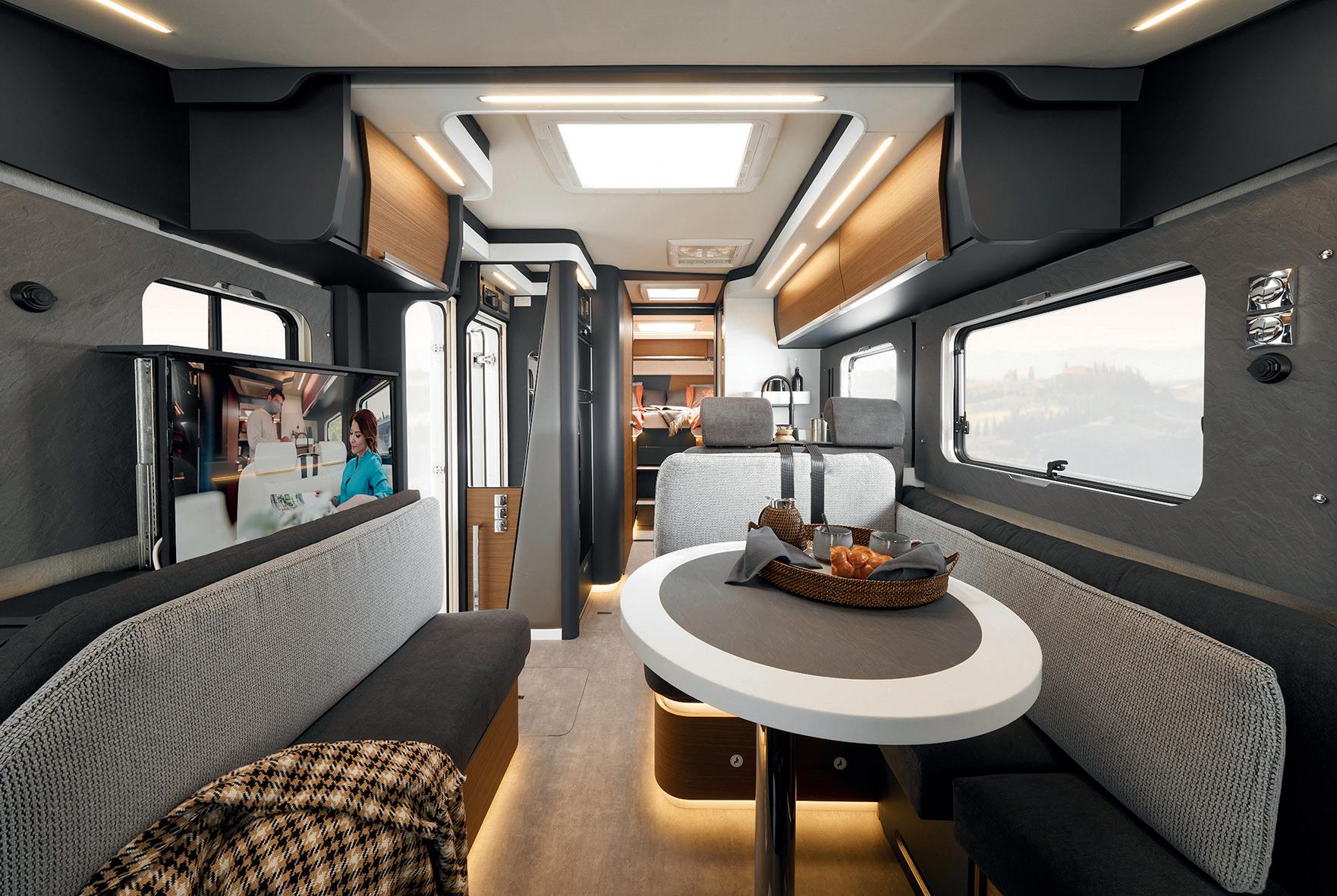
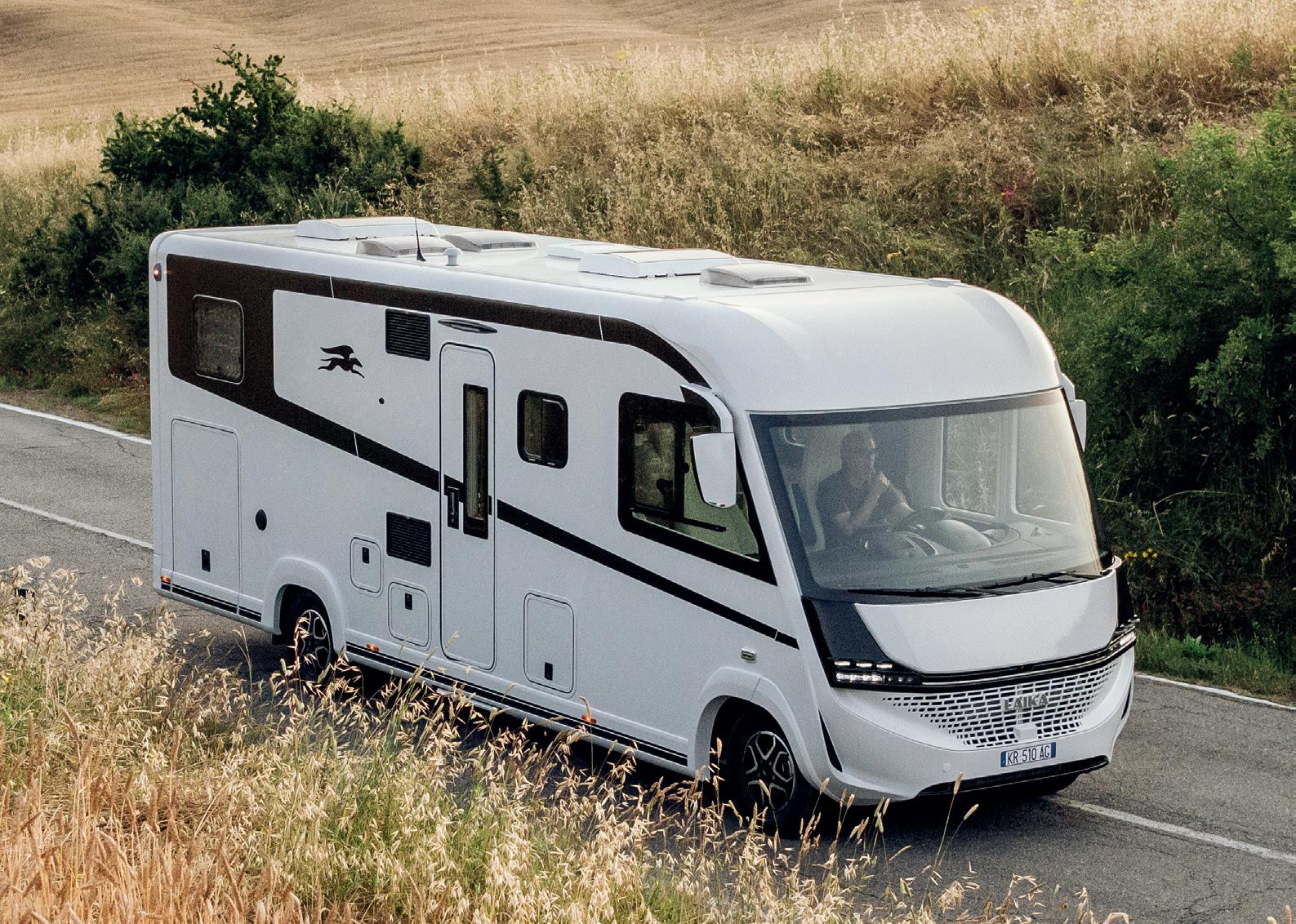
ed in implementing consistent visual and narrative elements across all our products and communications, thus creating a recognizable and cohesive brand identity.
Aboutcamp BtoB − Is the post-COVID supply crisis over? How did you face that challenging period, and what lessons did you learn from it?
Ute Hofmann − The post-COVID supply crisis was certainly a challenging period for the entire industry, but we faced the challenge with determination and resilience. We made use of a unique and distinctive Italian excellence: flexibility and speed. We worked closely with our suppliers to assess the situation and identify alternative solutions in case of disruptions in the sup-
37
Laika Kreos
I nterview with UTE HOFMANN
ply chain. This allowed us to diversify our sources of supply and minimize the impacts of shortages of raw materials and key components. Additionally, we optimized our production processes to maximize efficiency and minimize waste. We focused on optimizing the available resources, implementing lean manufacturing practices, and minimizing production disruptions. From the supply crisis, we have drawn important lessons that have made us more resilient and prepared to face any future challenges.
Aboutcamp BtoB − Inflation and the cost of raw materials: today, potential buyers find motorhomes and camper vans on the market much more expensive than just a few years ago: does this constitute a significant barrier to sales?
Ute Hofmann − Inflation and the rise in raw material costs can certainly pose a significant obstacle for potential buyers, influencing or delaying their purchasing decision. However, the demand for recreational vehicles is also influenced by other factors such as the increasing popularity of RV travel, the desire for more personalized and sustainable travel experiences, and the growing awareness of the importance of spending time outdoors. In this context, the perceived value of the product becomes a key element in the purchasing decision, and a price increase might be justified if accompanied by significant improvements in design, features, or performance. However, it is important for us to carefully consider
the impact of cost increases and work to find creative solutions to keep our products accessible and competitive.
Aboutcamp BtoB − On the European market, camper vans and mini-vans (urban vehicles) have experienced significant growth in recent years, but it seems that Laika has not been as engaged in this segment as some other competitors...
Ute Hofmann − Laika has maintained a focus on quality and innovation in the motorhome and traditional recreational vehicle segments. This doesn’t mean that Laika has been completely absent from the camper van and urban vehicle market. However, we have preferred to introduce products that meet the specific needs of our customers, thus differentiating our offerings.
Aboutcamp BtoB − Electric vehicle propulsion: is it something to postpone as long as possible or could new scenarios be possible?
Ute Hofmann − On one hand, there are challenges to face, such as limited range and the still-developing charging infrastructure. On the other hand, new scenarios and interesting opportunities are emerging. Electrification could enable the integration of advanced technologies like autonomous driving and connectivity systems, thus enhancing the travel experience. Moreover, consumers are showing increasing interest in electric vehicles, drawn to the emissions reduction and decreased reliance on fossil fuels. For us, it’s crucial to care-
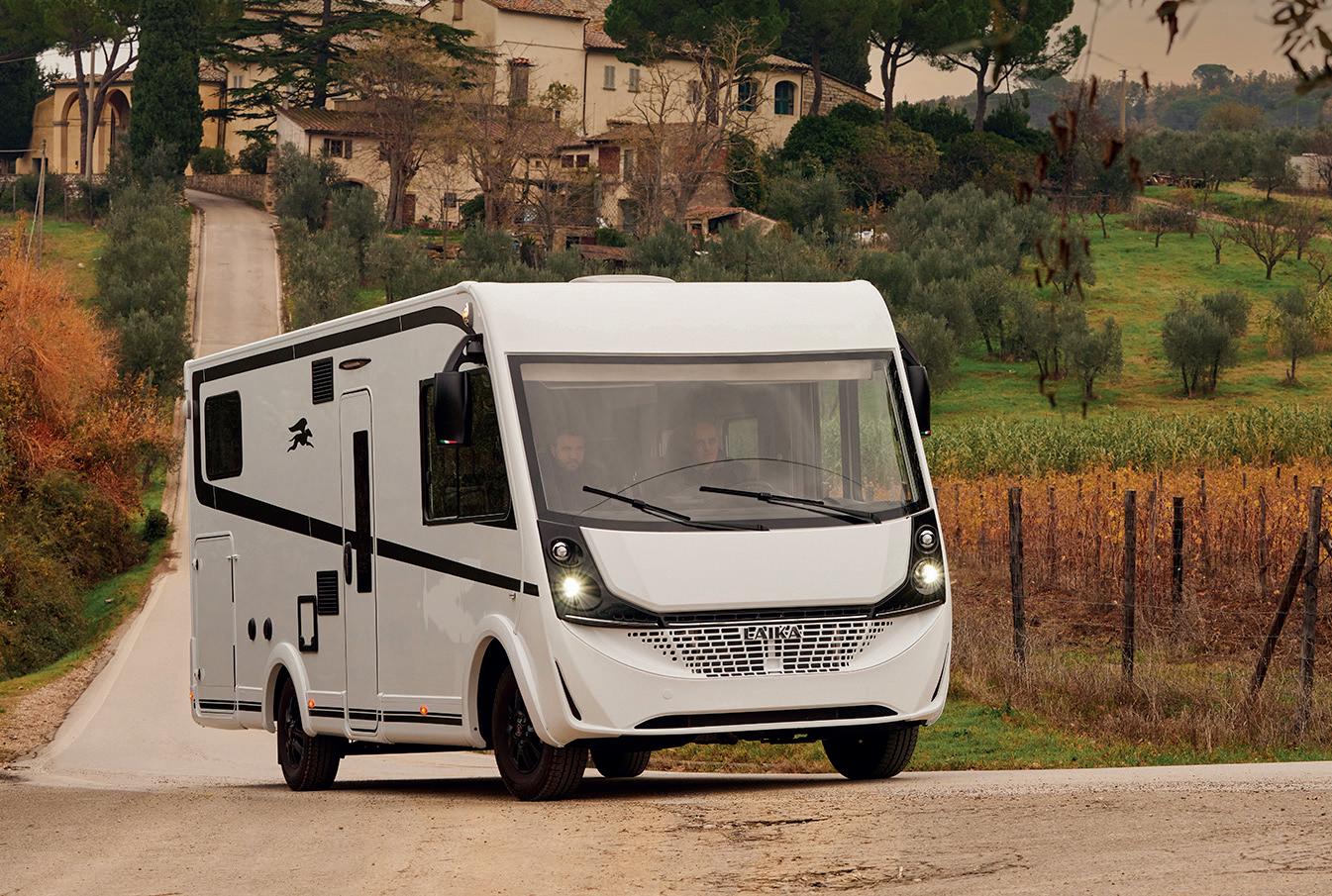
fully consider the transition to electric propulsion as part of our long-term strategy. This is where the advantage of being part of a major group in the recreational vehicle world, such as EHG and Thor Industries, comes into play. This collaboration provides us with the combined strength necessary to invest in research and development.
Aboutcamp BtoB − What are the synergies with EHG? Are there any jointly developed products?
Ute Hofmann − The synergies with EHG, part of Thor Industries, offer various opportunities for collaboration and shared development in the industry. Thor Industries is one of the world leaders in the recreational vehicle sector, and with the EHG division, it allows us to access a wide range of resources, expertise, and capabilities. One of the main synergies is the sharing of knowledge and best practices in innovation, engineering, and recreational vehicle production. This allows us to optimize processes and reduce costs through the implementation of innovative solutions and technologies. Additionally, we work closely with EHG to identify opportunities for the development of shared components. Synergies with EHG also enable us to share sales & marketing strategies to reach a broader audience.
Aboutcamp BtoB − The large, new Laika plant has now been active for eight years: how has it changed your way of production? What services do you offer to other EHG partners?
Ute Hofmann − The opening of the new plant has brought significant changes to our production process, improving efficiency, quality, and overall production capacity. We have introduced new work methods and automated systems to increase precision and reduce
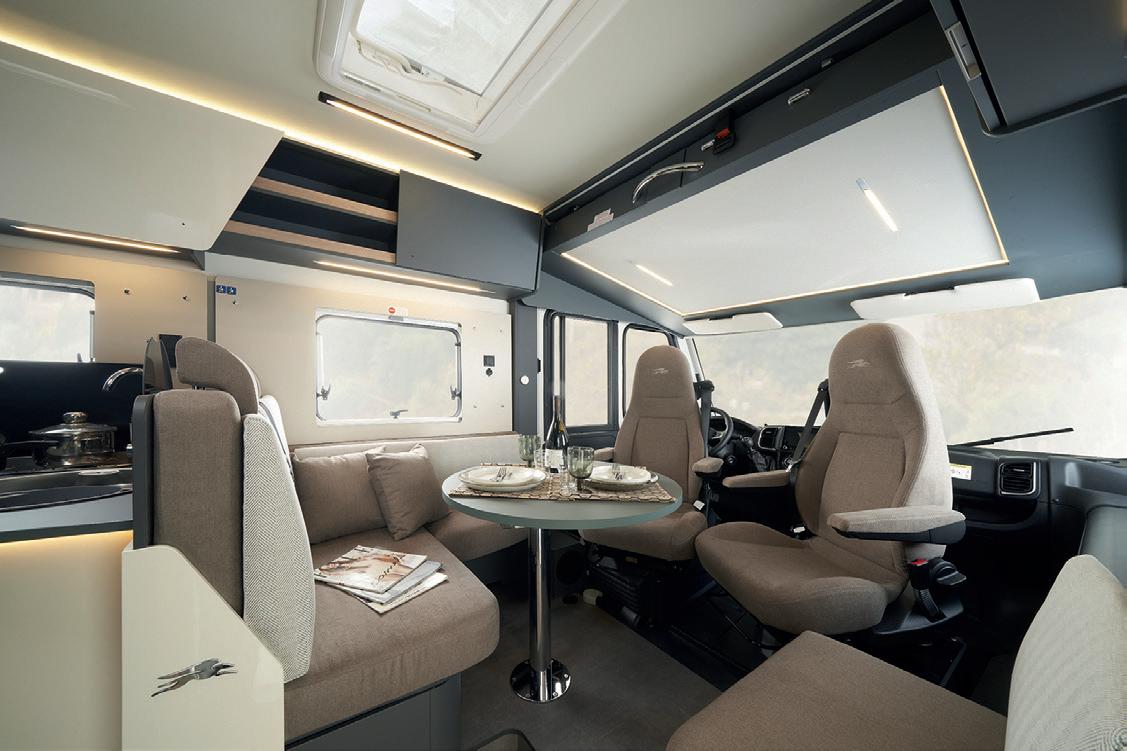
38
Laika Kosmo
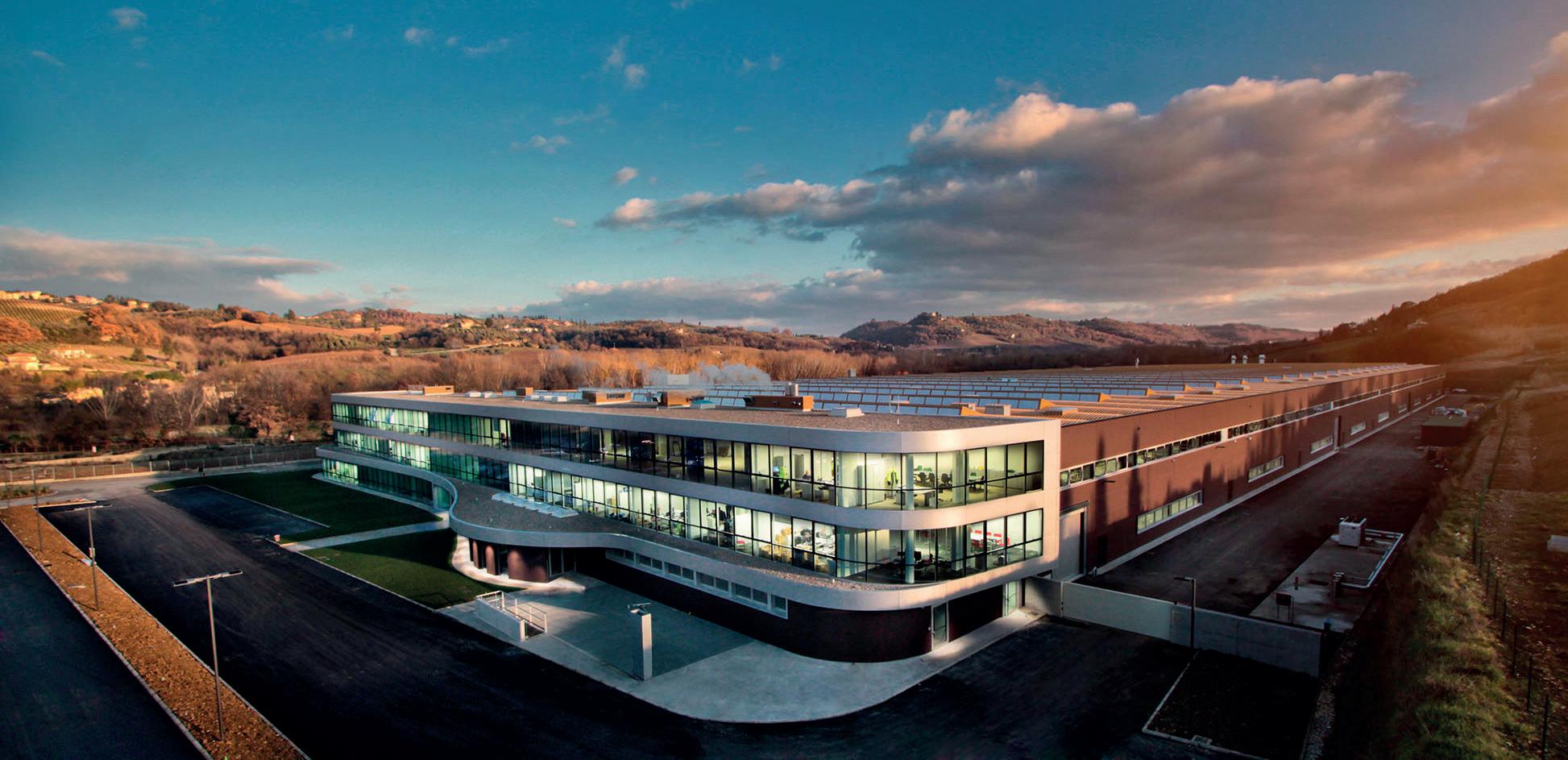
waste. This has enhanced the quality of our products and made us more competitive in the market. With other companies within EHG, we have an active collaboration and provide support, especially in after-sales assistance. We offer direct support to their partner sales networks, ensuring efficient and high-quality service.
Aboutcamp BtoB − What is Laika’s view regarding participation in industry exhibitions? Are there common policies within EHG for this?
Ute Hofmann − Participating in trade and consumer shows is a key opportunity for Laika: we can showcase our products and interact with our customers, as well as strengthen relationships with our commercial partners and industry stakeholders. However, the decision to participate in a trade show should be in line with the brand identity and target market, adapting to current times and circumstances.
Aboutcamp BtoB − Communications to the public, marketing and sales: what has changed and what will they be like in the future?
Ute Hofmann − We need to adapt to a rapidly evolving digital environment, where consumers seek information and interact with our brand online. Communication to the public, promotions and sales strategies are increasingly shifting towards digital channels, such as social media and our website. It’s predictable that this trend will continue to grow, with further integration of emerging technologies like augmented reality, virtual reality, and artificial intelligence to offer more engaging and personalized experiences to consumers. We must be proactive in understanding and adopting new digital trends and technologies, developing communication, promotion and
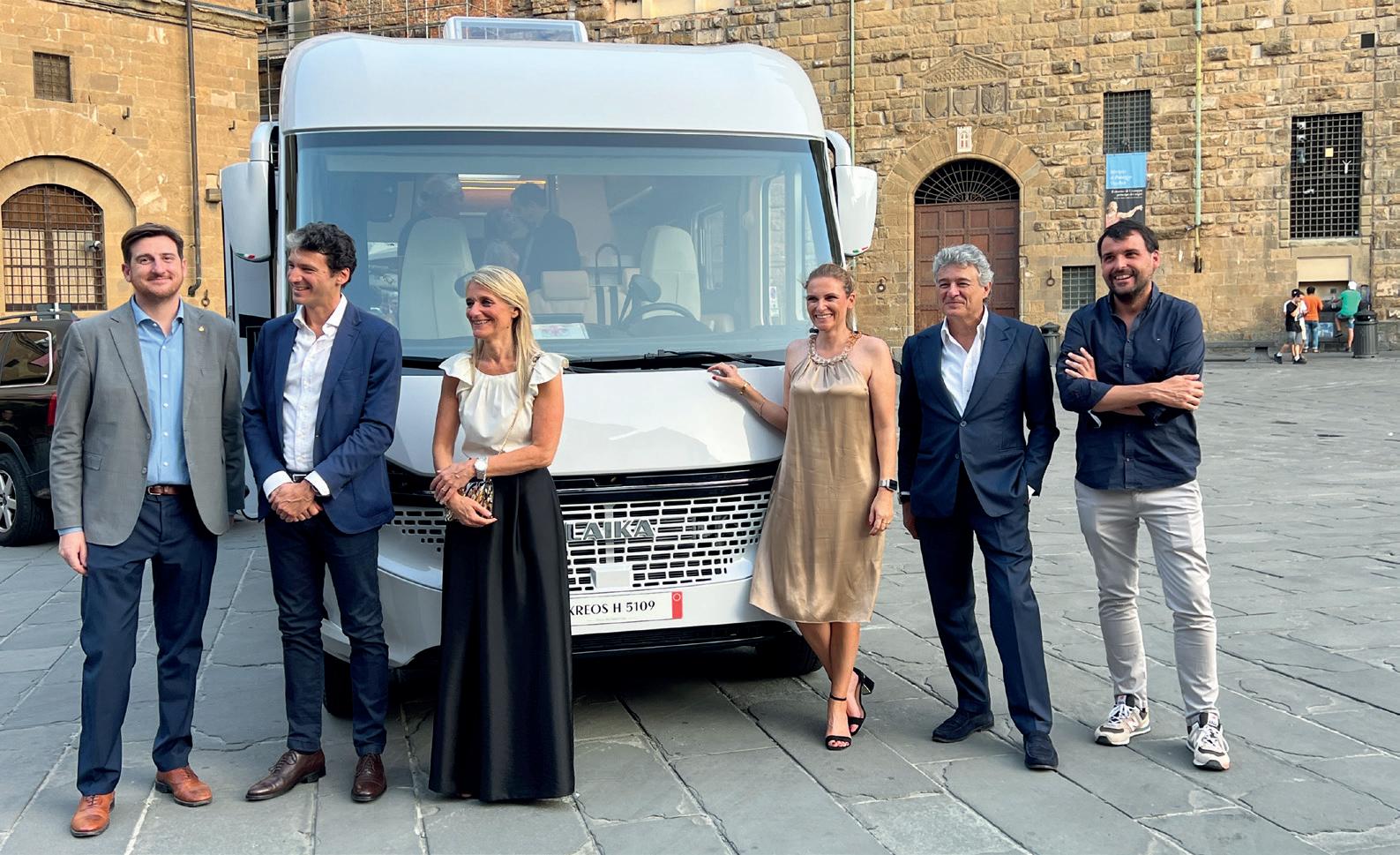
sales strategies that meet the needs and expectations of consumers. This may include investments in creative and engaging content on social media, improving the shopping experience at various touchpoints of the customer journey, and using data analytics tools to better understand consumer behavior and adapt our strategies accordingly.
Aboutcamp BtoB − Is the sales and service network still an important element in Laika’s business strategy? Is a change in sales outlets and authorized workshops desirable?
Ute Hofmann − The sales and service network continues to be a crucial element in Laika’s business strategy. Despite the evolution of the digital landscape, physical sales outlets and authorized workshops play a funda-
mental role in providing comprehensive and quality service to our customers. Sales outlets provide potential buyers with the opportunity to see our vehicles, receive personalized advice from experienced professionals, and experience the performance and comfort first hand. Equally important are the authorized workshops to ensure reliable and timely service, essential for satisfying and retaining customers. However, we must contend with an increasingly digital world, and it is our task to bridge the two worlds to ensure a seamless and engaging customer journey, both online and offline. This include the adoption of digital technologies to enhance the customer experience, during both the purchase and use of their vehicle, such as appointment scheduling or smart vehicle management.
39
The press presentation of the Kreos Motorhome H 5109 in Florence.
From left: Roberto Ciappi (Mayor of San Casciano Val di Pesa), Goffredo Baduini (GFG Style), Anna Maria Fusi and Ute Hofmann (Laika), Fabrizio Giugiaro (GFG Style), and Michel Vuillermoz (Laika)
The Laika factory in San Casciano in Val di Pesa - Florence
F ace to face with GEOFF SCOTT
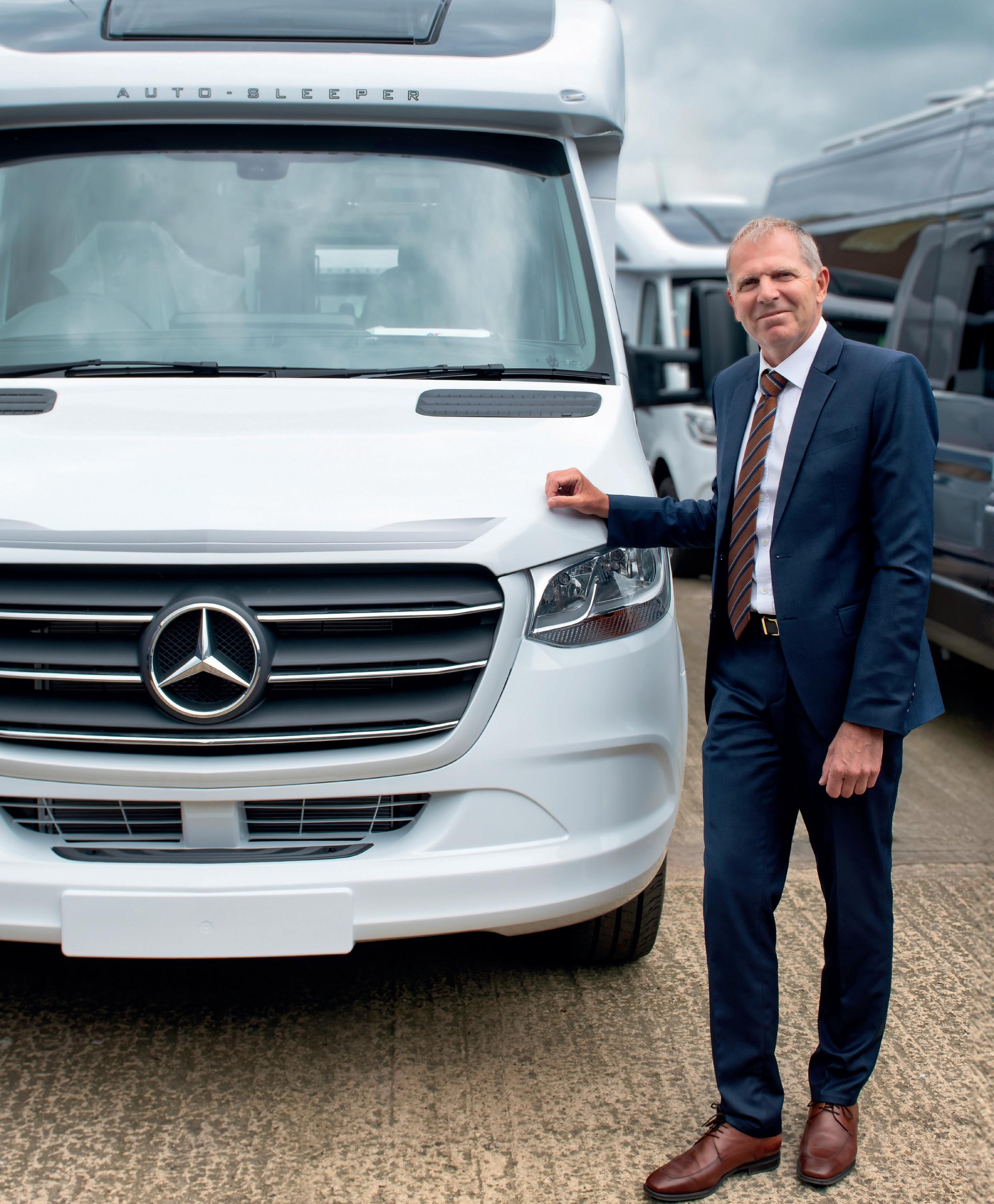
40
Geoff Scott with Class B Auto-Sleepers Bourton Hero
UK’s longest established motorcaravan manufacturer sees a solid future
Founded in 1961, Auto-Sleepers is part of the Auto-Sleepers Group (ASG), which includes the UK’s largest retail group, Marquis Leisure. ASG was acquired by the Trigano Group in 2017 with joint CEO’s Geoff Scott and Mike Crouch remaining in place. Geoff Scott tells us more
After 19 years in the automotive sector, Geoff Scott joined the Auto-Sleeper Group as Chief Financial Officer in 2002. He became CEO in 2008 and led a management buyout with fellow director Mike Crouch in 2009. Since 2017 the company has been owned by the giant French Trigano Group.
Aboutcamp BtoB − It’s unusual for a manufacturer to be so close to a large retail network selling competitor products. How does that work?
Geoff Scott − Extremely well. We get quick market feedback and we have realised that it is important for a retailer to cater for all budgets.
Aboutcamp BtoB − You manage the production side of the business whilst fellow director Mike Crouch looks after your retail arm, Marquis Leisure. Is it an easy relationship?
Geoff Scott − We are one corporate entity - Mike and I run the business as one with the same aims and strategic objectives. We continually bounce ideas off ideas off each other.
Aboutcamp BtoB − What benefits has Trigano’s acquisition brought to ASG?
Geoff Scott − The availability of capital investment funding along with access to the portfolio of Trigano manufactured product.
Aboutcamp BtoB − What were the factors for selling to the Trigano Group in 2017?
Geoff Scott − There was consolidation happening in the European market and to remain competitive we needed to achieve better buying prices. In addition, Trigano had the vision and the financing to invest for the long-term future of the business.
Aboutcamp BtoB − Can you still be agile with decision making?
Geoff Scott − Very much so. Trigano’s style is to be hands-off.
Aboutcamp BtoB − In the past Auto-Sleepers has exported product
widely across the world. What is the current situation?
Geoff Scott − Since Brexit exports have become a little more difficult but our current export markets include New Zealand, Germany, Belgium, and Holland.
Aboutcamp BtoB − The chassis cab supply situation has impacted most RV manufacturers, how has Auto-Sleepers coped?
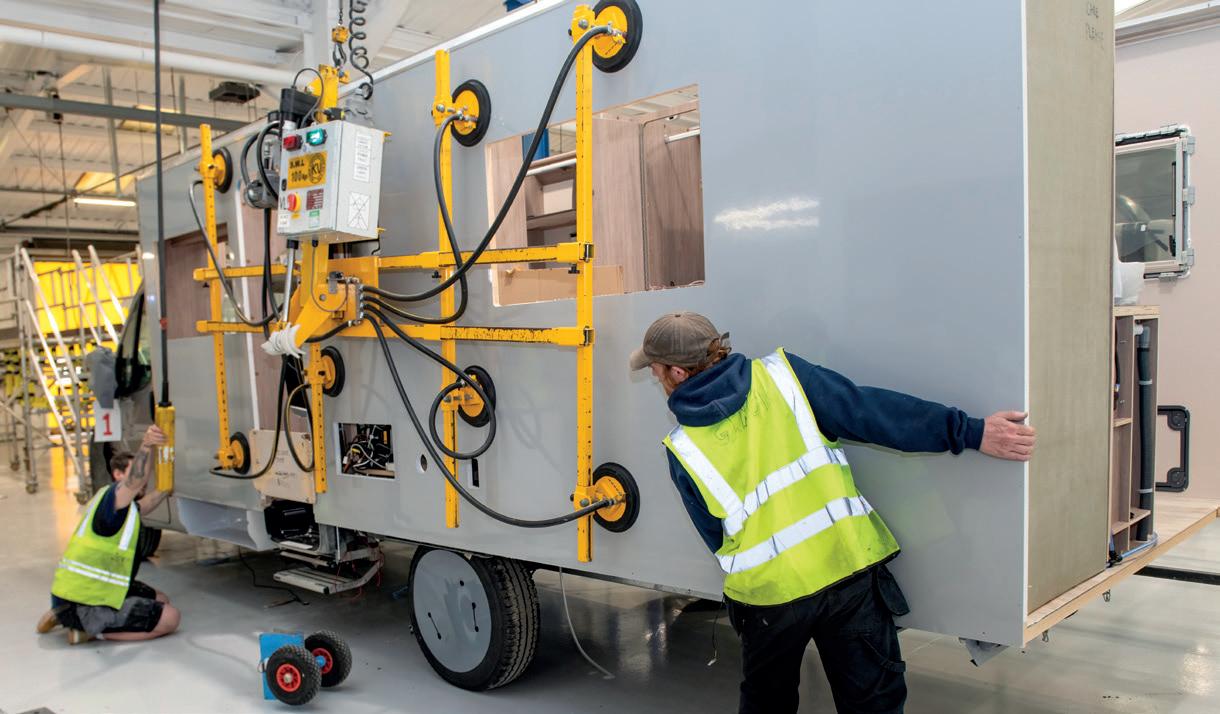
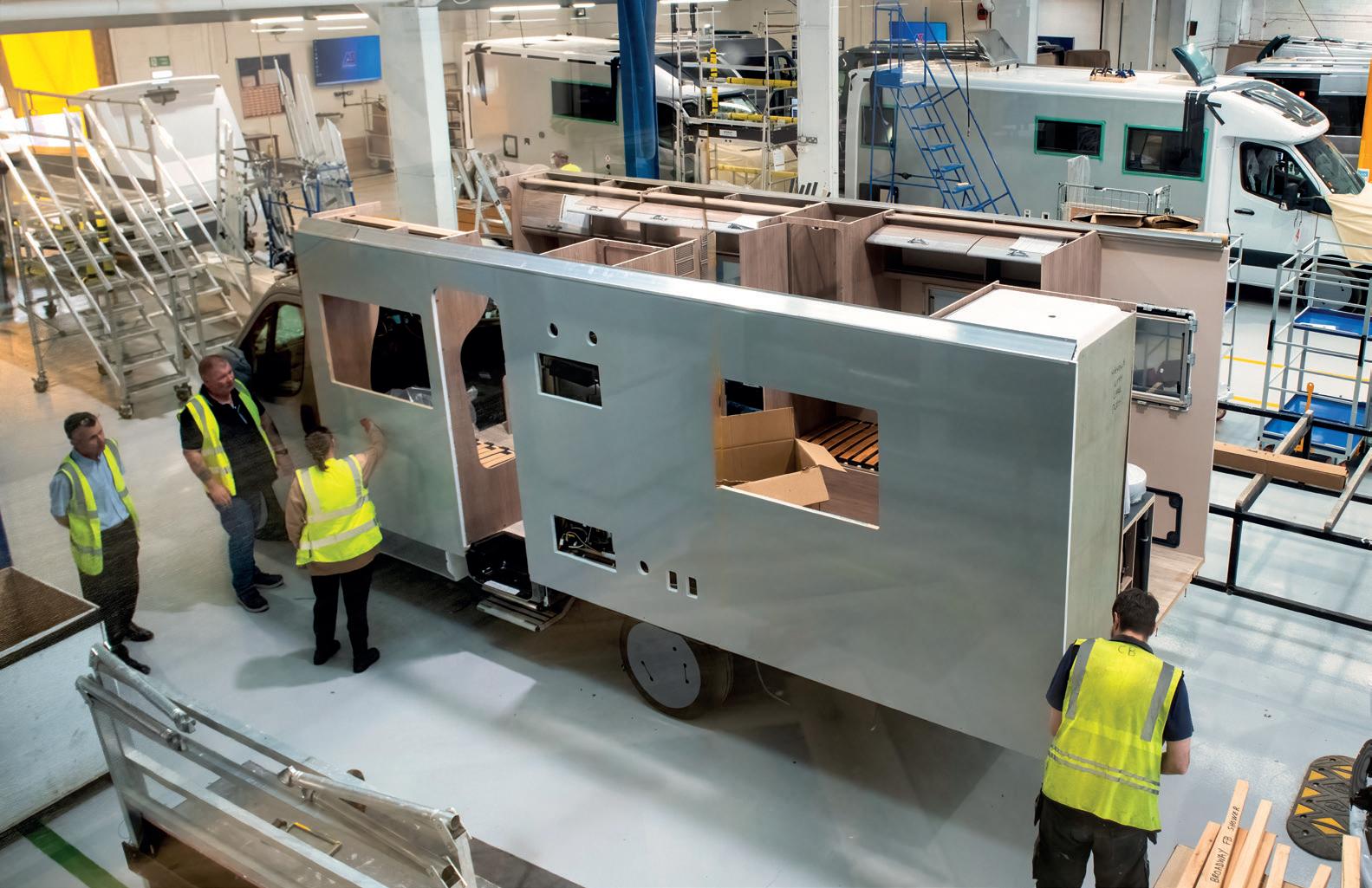
41
Words Terry Owen
F ace to face with GEOFF SCOTT
Geoff Scott − 2023 was extremely difficult for us. We were stopped production for three weeks and operated at 50% capacity for ten weeks. The final quarter of 2023 saw an easing of the situation.
Aboutcamp BtoB − What do you see as the biggest challenges facing the RV industry right now and how will Auto-Sleepers meet them?
Geoff Scott − High inflation coupled with high interest rates has made the headline price of motorhomes seem expensive. To help offset this we have alternative supply sources along with a continuous value engineering programme.
Aboutcamp BtoB − What steps are
you taking to reduce weight in your RV’s?
Geoff Scott − We are constantly trying to reduce the weight of our motorhomes with the use of lightweight materials and components. This is especially true for new models. Of course, we need to remember that we need to retain the Auto-Sleeper identity.
Aboutcamp BtoB − There are proposals in the EU and UK for the Class B driving licence weight limit to be increased from 3500 kg to 4250 kg. If these are adopted, what effect might they have on your business?
Geoff Scott − This would have a real positive effect as many of our vehicles fall within the 3.5 to 4.25 tonne range.
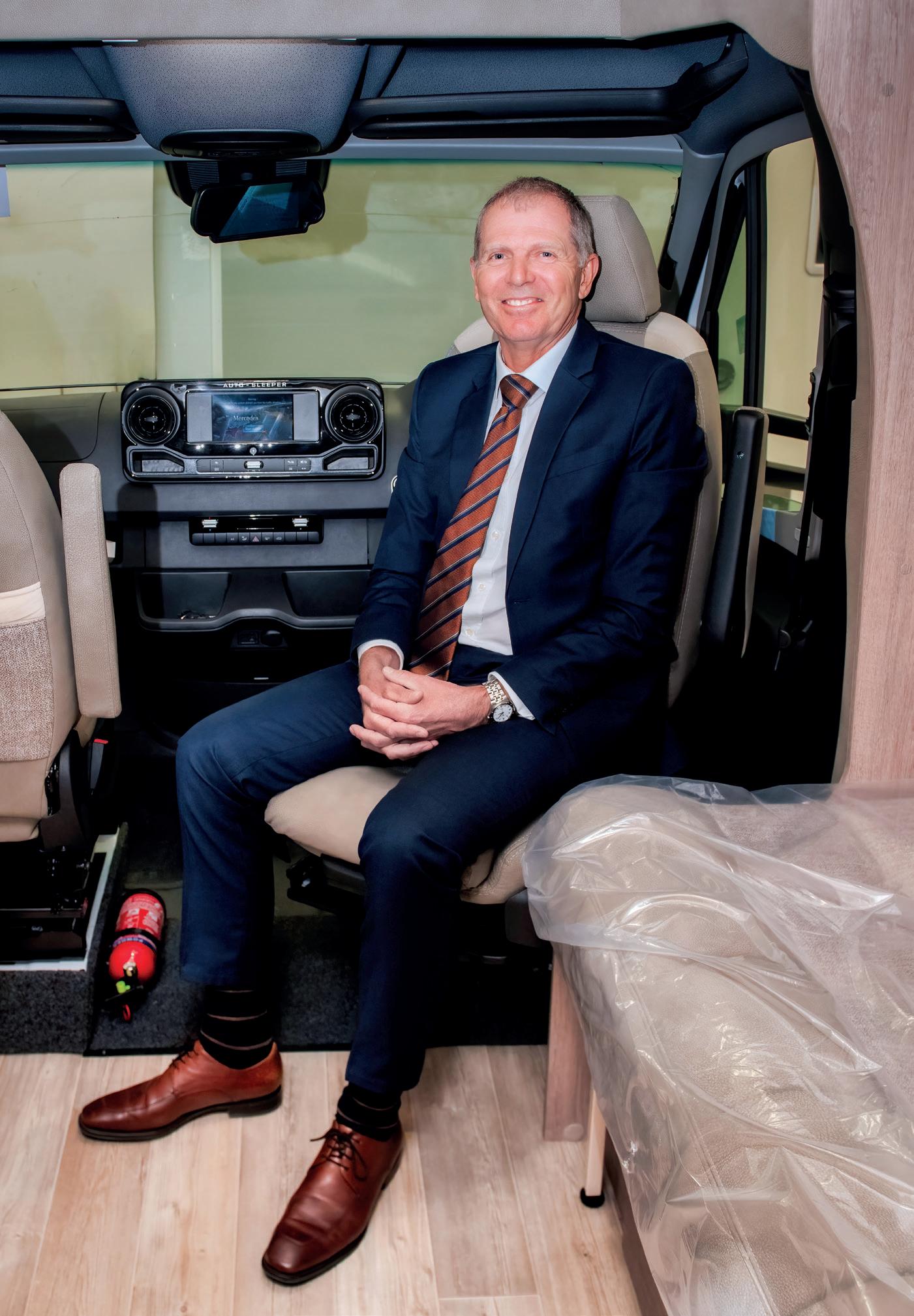
Aboutcamp BtoB − The all-electric motorhome is beginning to make an appearance; is this an area you’re looking at?
Geoff Scott − Yes, it is important to stay abreast of the latest developments. The crucial question here is one of range. Therefore, in the first instance hybrid is probably the preferred choice.
Aboutcamp BtoB − How do you see the medium to long term sales trends for RV’s?
Geoff Scott − The long-term outlook for the industry remains positive. People have placed more emphasis on their leisure time and mental wellbeing since the pandemic.
Aboutcamp BtoB − What have been the most striking changes during your 20+ years at Auto-Sleepers?
Geoff Scott − The evolution of technology within the vehicles from engines to remote diagnostics.
Aboutcamp BtoB − How important do you think slide-out technology is to the future of RV’s?
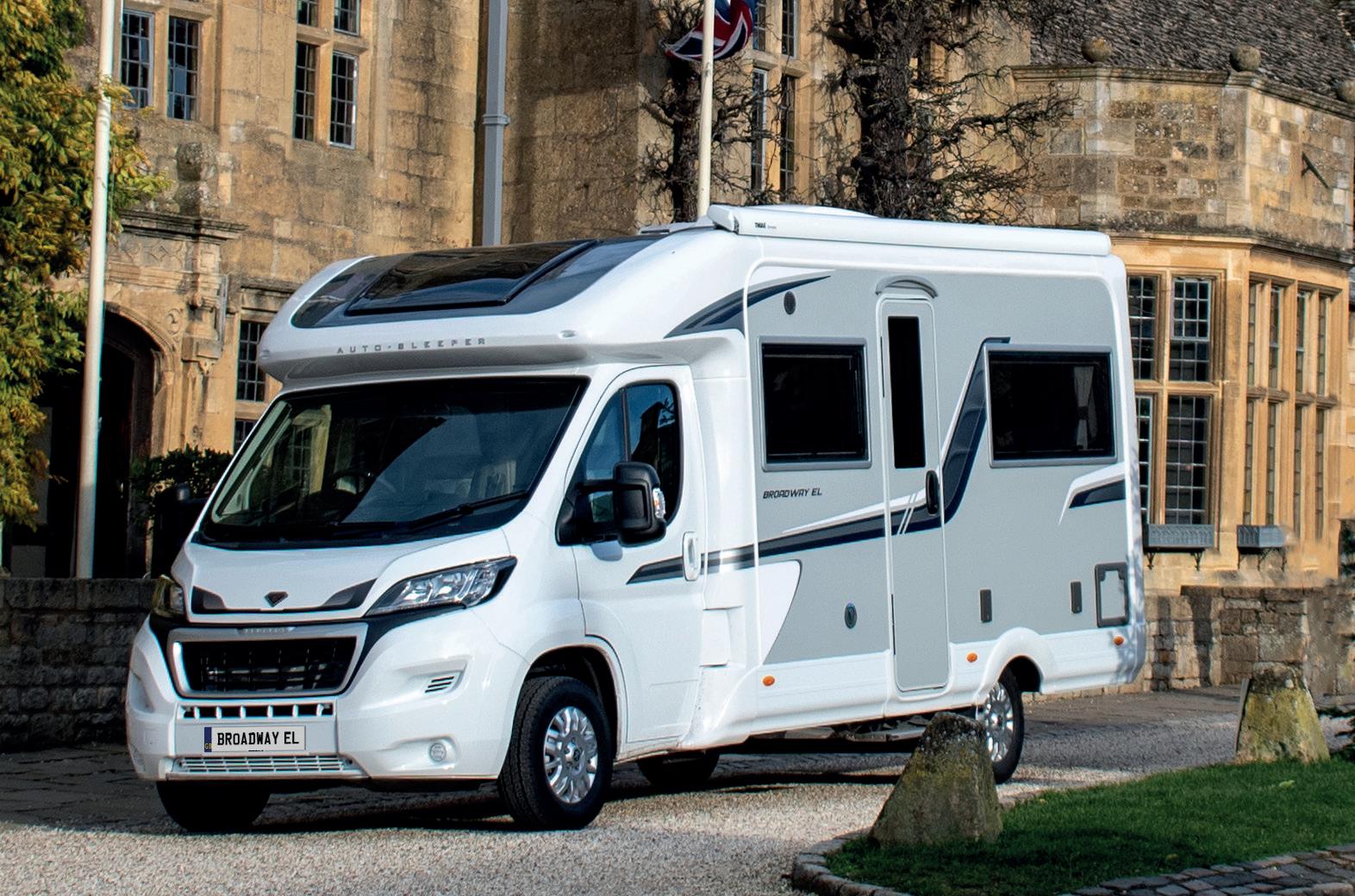
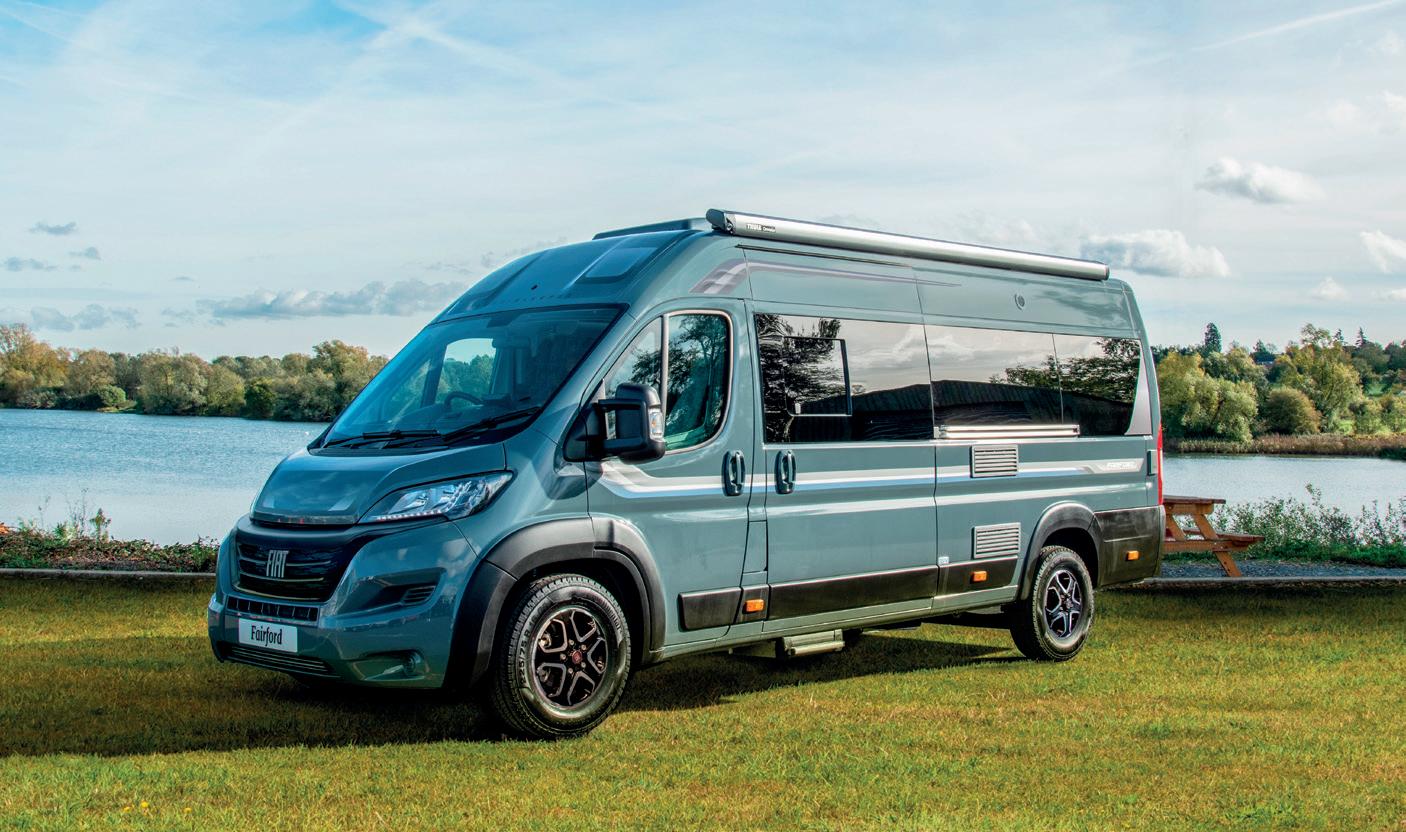
42
Auto-Sleepers Fairford Hero Auto-Sleepers Broadway EL Hero

Geoff Scott − It is important but it’s just one offering to the consumer.
Aboutcamp BtoB − How many employees are directly involved in production?
Geoff Scott − We have a total of 129 on site across all functions. Compared to the car industry we are still very labour intensive but then volumes are much smaller.
Aboutcamp BtoB − How easy is it to recruit skilled labour where you are?
Geoff Scott − In common with the whole economy, we have suffered labour and skill shortages. What is important is that we recruit the right people and give them the necessary training and support to create wonderful motorhomes.
Aboutcamp BtoB − Your factory is in beautiful area of the UK. What can you tell us about its green credentials?
Geoff Scott − It is imperative that we along with the industry reduce our carbon footprint. To that end we have installed LED lights throughout. We use a document management system across the Company to avoid the waste of printing. Indeed, we recently won the Eco Champion Award from document management provider Anota Limited. Auto-Sleepers triumphed due to its significant reduction in paper usage and was branded “a shining example of environmental sustainability in action” by Anota. Moving forward we hope to install solar panels on the roof with battery packs to further reduce our energy consumption.
Aboutcamp BtoB − What do you love most about your job?
Geoff Scott − Making vehicles that customers enjoy and cherish. And of course, the people I work with.
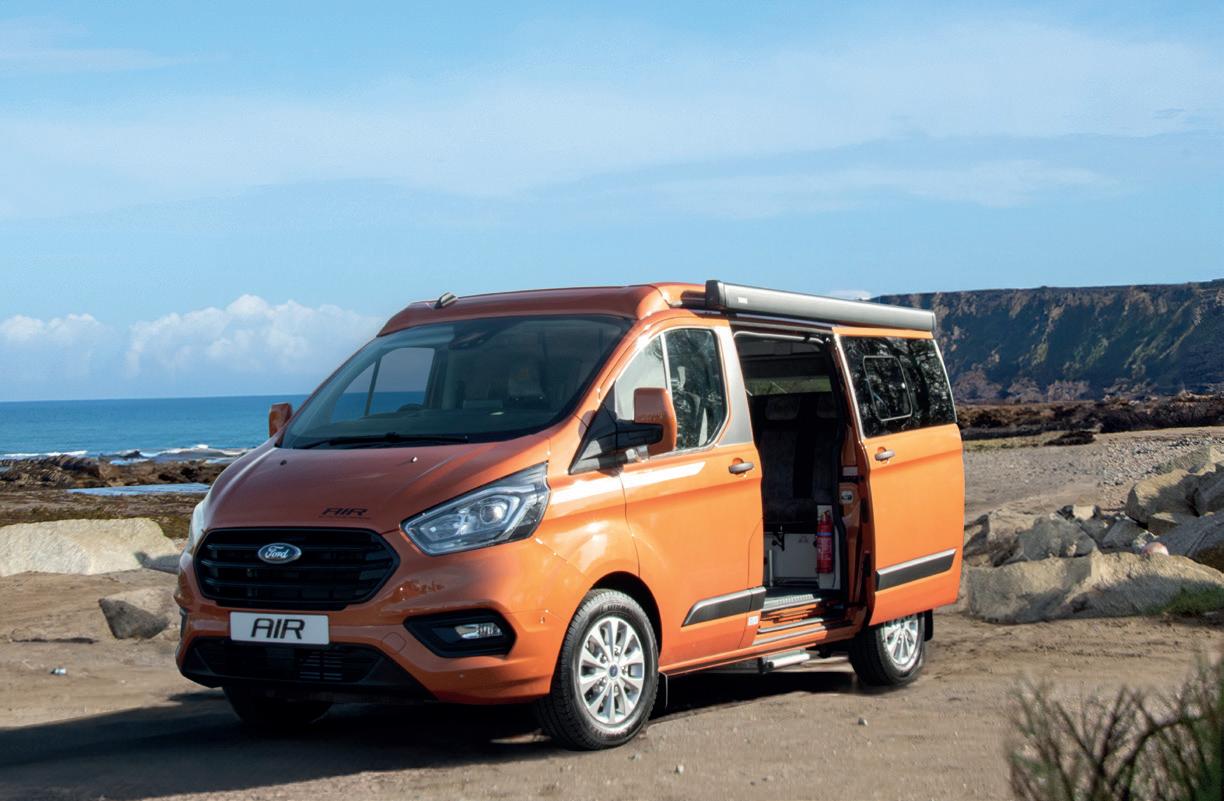
Above: Auto-Sleepers Air Hero
Left: Auto-Sleepers Kingham
Aboutcamp BtoB − What are your hobbies - what do you do in your nonwork time?
Geoff Scott − I am keen on most sports, but number one is golf. I really enjoy the competition and meeting up with friends.
Aboutcamp BtoB − How do you see
motorhome design evolving over the next few years?
Geoff Scott − Given the inflationary pressure of the last few years I believe there will be an emphasis on value engineering. In addition, more strides will need to be made to reduce weight without distracting from the product offering.
Auto-Sleepers at a glance
Auto-Sleepers was founded in 1961 when a former steel company director and designer, Calverley Trevelyan, converted an Austin J2 van to take his family on a touring holiday to France. On their return the vehicle was sold to a local dealer who immediately ordered five more. The rest, as they say, is history.
Quality was a top priority from the outset and where other pop-top camper vans made do with canvas to fill the gap Auto-Sleepers used solid, hinged components. In 1980 Auto-Sleepers launched its first monocoque coachbuilt, the SV100. The monocoque body, comprising a two-piece clamshell glass-fibre unit, became the company’s hallmark for over 25 years. The design gave the habitation area strength whilst eliminating edge joints, thus
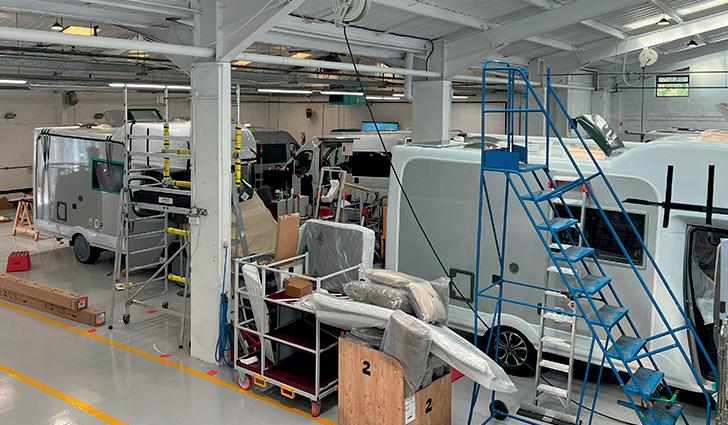
minimising the risk of leaks. In 2000 Auto-Sleepers merged with the Marquis retail group to become the Auto-Sleepers Group (ASG). This then became part of the Italian motorhome manufacturing company, the SEA Group, in 2005. In 2009 a management buyout by fellow directors
Geoff Scott and Mike Crouch saw ASG return to British ownership. In 2017, the Trigano Group acquired ASG as part of its strategy to consolidate its presence in the UK motorhome market.
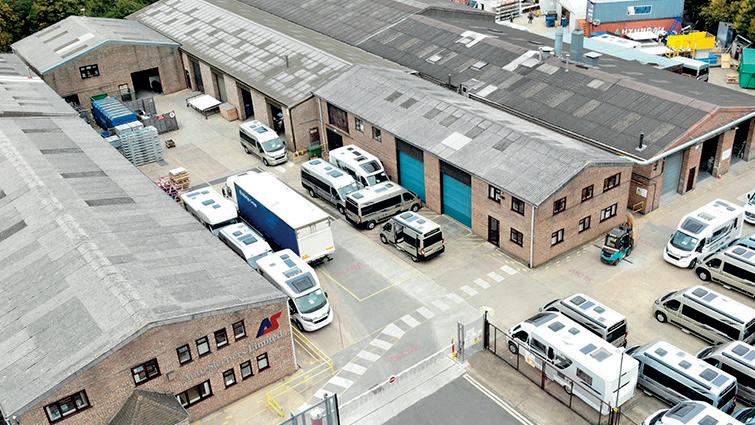
Leisure vehicle manufacture takes place near Broadway in the UK’s picturesque Cotswold region, whilst Marquis Leisure is the UK’s largest dealer network with 12 retail outlets across the UK.
43
DEVENISH
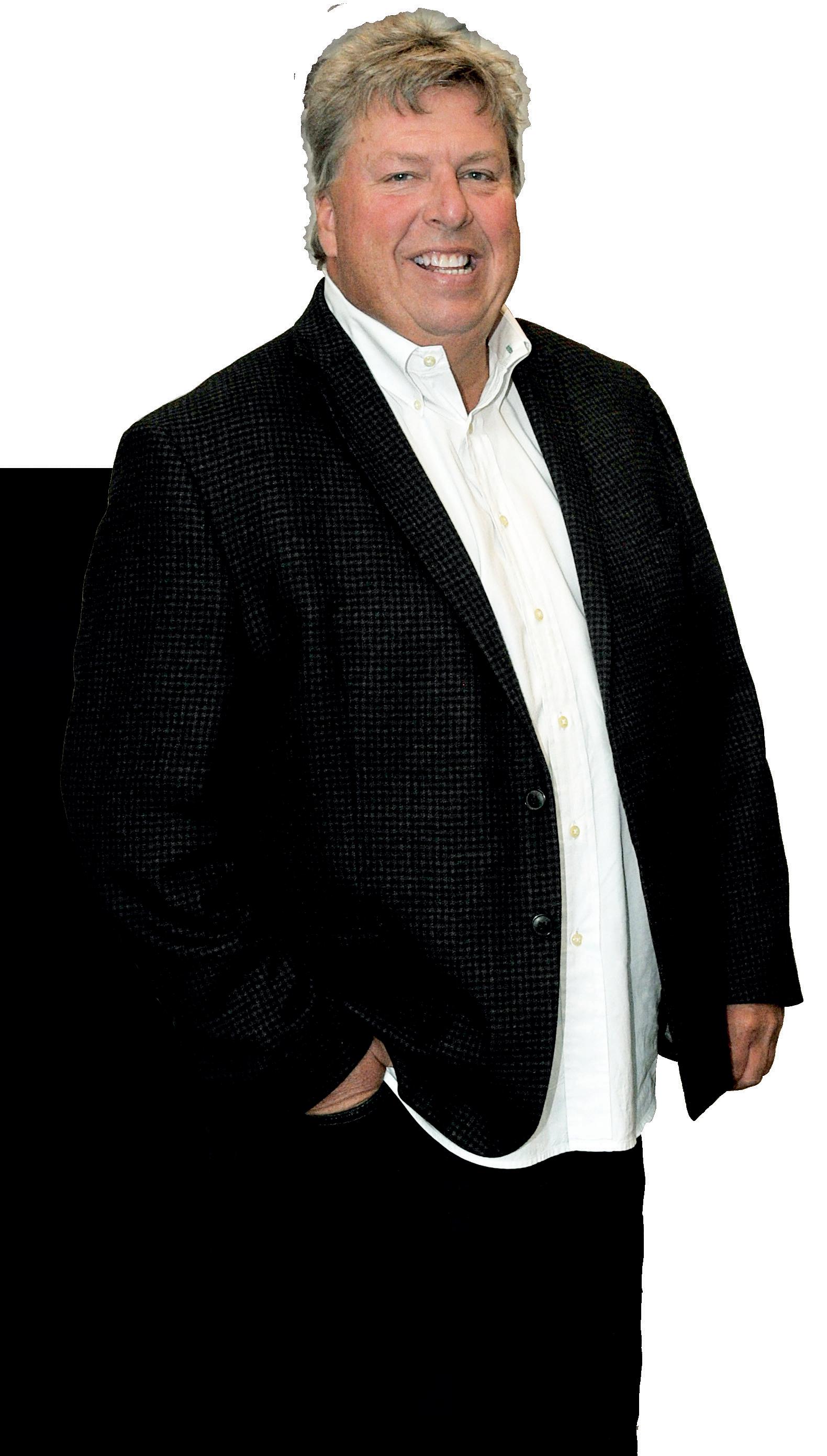
A close look at Canada’s RV industry
Shane Devenish, President of the Canadian Recreational Vehicle Association (CRVA), explains the successful results of advocating efforts, working with its industry partners and navigating the economic landscape north of the U.S. border
Words Steve Fennell
Based in Ontario, Canada, and with the support of its three industry partners, Shane Devenish and the CRVA have been successfully addressing and advocating issues within the Canadian RV industry. Taking the reins of the CRVA in 2014, Devenish’s leadership and team’s efforts in the last decade have brought many positive changes for Canadian manufacturers, dealers, and consumers. We spoke to the CRVA president in late May to discuss the association’s past and present accomplishments, the impact the economy has had on the Canadian RV industry, and future goals and initiatives.
Aboutcamp BtoB − The CRVA supports the Canadian RV industry by advocating issues at the provincial and federal government levels, addressing safety compliances, and even hosting one of Canada’s largest RV shows. What else can you tell us about the focus and goals of the Canadian Recreational Vehicle Association?
Shane Devenish − We are very fortunate to have the opportunity to work closely with our industry partners, which include the RVDA of Canada, GO RVing Canada and the Canadian Camping and RV Association (CCRVA). The CRVA and representatives from our three partners attend each other’s board meetings with open sessions about eight to ten times a year. During that time, we share concerns and perspectives about certain issues in the Canadian RV industry. We always have a good understanding of what our partners are working on and addressing throughout the year.
Members of the CRVA sit on the GO RVing Canada board and we are involved in their marketing efforts. We also have two seats on the CCRVA board and take part in as -
44 I nterview
with SHANE
sisting and supporting campgrounds across Canada. So, one of our goals is always maintaining these relationships.
Another one of our goals is to strengthen the perception of the RV industry to the consumer regarding certain safety mandates. I sit on the Canadian Standards Association (CSA) Z240 RV Series Technical Committee, the Z241 Park Model Standard and NFPA 1192 committees. At one time, we had wanted to harmonize the respective standards between the Canadian and U.S. RV industries, but achieving that was very difficult, almost impossible. However, we worked hard and over time managed to synchronize the standards, despite any differences that had existed previously between the two codes.
Aboutcamp BtoB − How many members does the CRVA currently have and what additional organizations are involved with the CRVA?
Shane Devenish − Our membership has stayed pretty consistent at around 83 to 88 members over the last 5 to 10 years. Those who belong to the CRVA are also members of the Recreational Vehicle Industry Association (RVIA) and 50 percent of our members are in the U.S.
The CRVA is a little different because we only charge parent companies for membership dues. For example, large
manufacturers like Thor or Winnebago pay for one membership but we include a list of all of their brands as members as well. Luckily, our membership revenue is not what we solely rely on. We also receive support from the RVIA based on Canadian RV shipments. Funds are dispersed through GO RVing Canada to the CRVA and with the RVDA of Canada.
Aboutcamp BtoB − How does the CRVA support innovation and technological advancements in RV manufacturing?
Shane Devenish − We certainly encourage technological advancements from manufacturers and we are very much involved in the safety aspects and compliances along with our good friends at the RVIA in the south. However, when new advancements are made or introduced, the priority is to make sure the consumer is protected.
It would be great to see more “European” advancements come to North America as the RV manufacturers overseas are very innovative. We’re a little conservative in Canada but that seems to be changing with some unique advancements, which we like.
Aboutcamp BtoB − What do you feel are the current trends in the Canadian RV industry?
Shane Devenish − Lithium batteries are becoming much more preva-
lent and we are seeing a lot of other electric innovations and solar power systems as standard features in new RVs, and we’re excited about what is being introduced.
Like our U.S. counterparts, the RV industry in Canada has been lobbying the government for electrical infrastructure improvements and by extension to our campgrounds. I believe that efforts have been more successful in the U.S. We haven’t seen similar infrastructure improvements here in Canada, but they are extremely necessary with so many rural campgrounds. Many of the outlying properties are unable to expand or upgrade their infrastructure, as the capacity is just not sufficient enough. This causes us a huge problem given the industry desperately needs more campsites.
As far as the business trends are concerned in Canada, the Canadian RV industry recorded the lowest number of RV shipments in its history last year as a result of the economic downturn. There were just a little more than 26,000 units shipped into Canada in 2023. To better gauge this, our highest year was in 2010 when a little more than 61,000 units were shipped here.
Typically, the Canadian RV industry accounts for nine to 11 or 12 percent of the total North American RV shipments as reported by the RVIA. So, with the U.S. forecasting approxi-
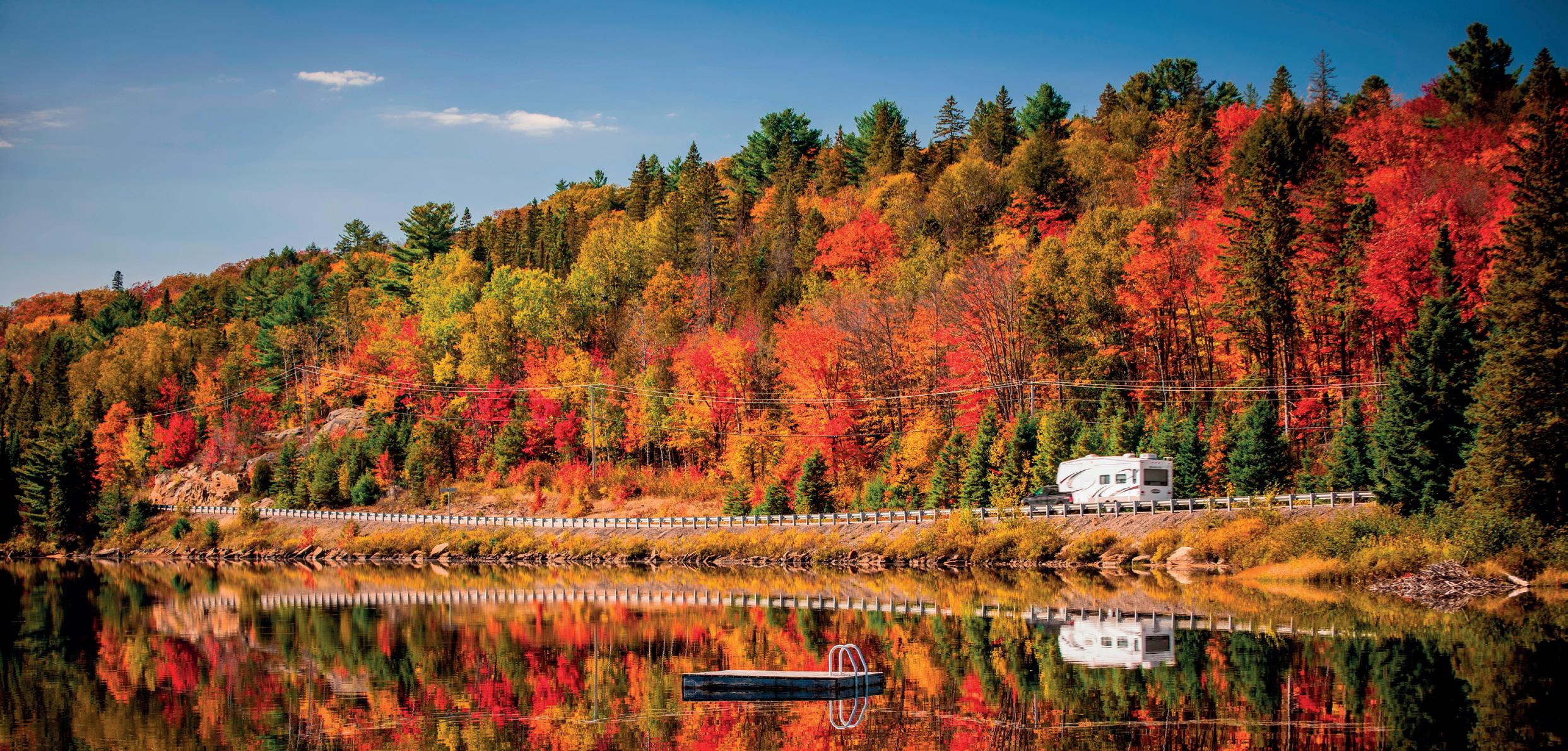
45
I nterview with SHANE DEVENISH
mately 360,000 units to be shipped this year, it makes sense to anticipate that approximately 36,000 units will be shipped to Canada. We are hoping the interest rates will start to come down and some of the economic uncertainties that exist today will stabilize in the near future. I believe consumers are also waiting for the right time for bigger purchases. Hopefully, it will be much sooner than later since RVing is extremely popular in Canada.
Aboutcamp BtoB − What other reasons do you think are the cause of the lower RV shipments into Canada?
Shane Devenish − We had a transportation issue at the start of 2023, which was a contributing factor to the lower shipment number. On Jan -
uary 1, 2023, commercial vehicles in Canada, including the RV driveaway/tow-away industry, were required to have an electronic logging device (ELD) attached to the vehicle to monitor hours of service driving. Many independent U.S. commercial drivers didn’t want an ELD on their vehicles, and they avoided coming to Canada altogether.
While it was mandated in January 2023, CRVA and RVDA of Canada had been lobbying Transport Canada since 2021. Although we were successful in obtaining an exemption in October 2023, the impact carried for most of the year. With the exemption, we anticipate that shipments coming into Canada will not be impacted for 2024.
Another reason for the lower shipments into Canada was that in
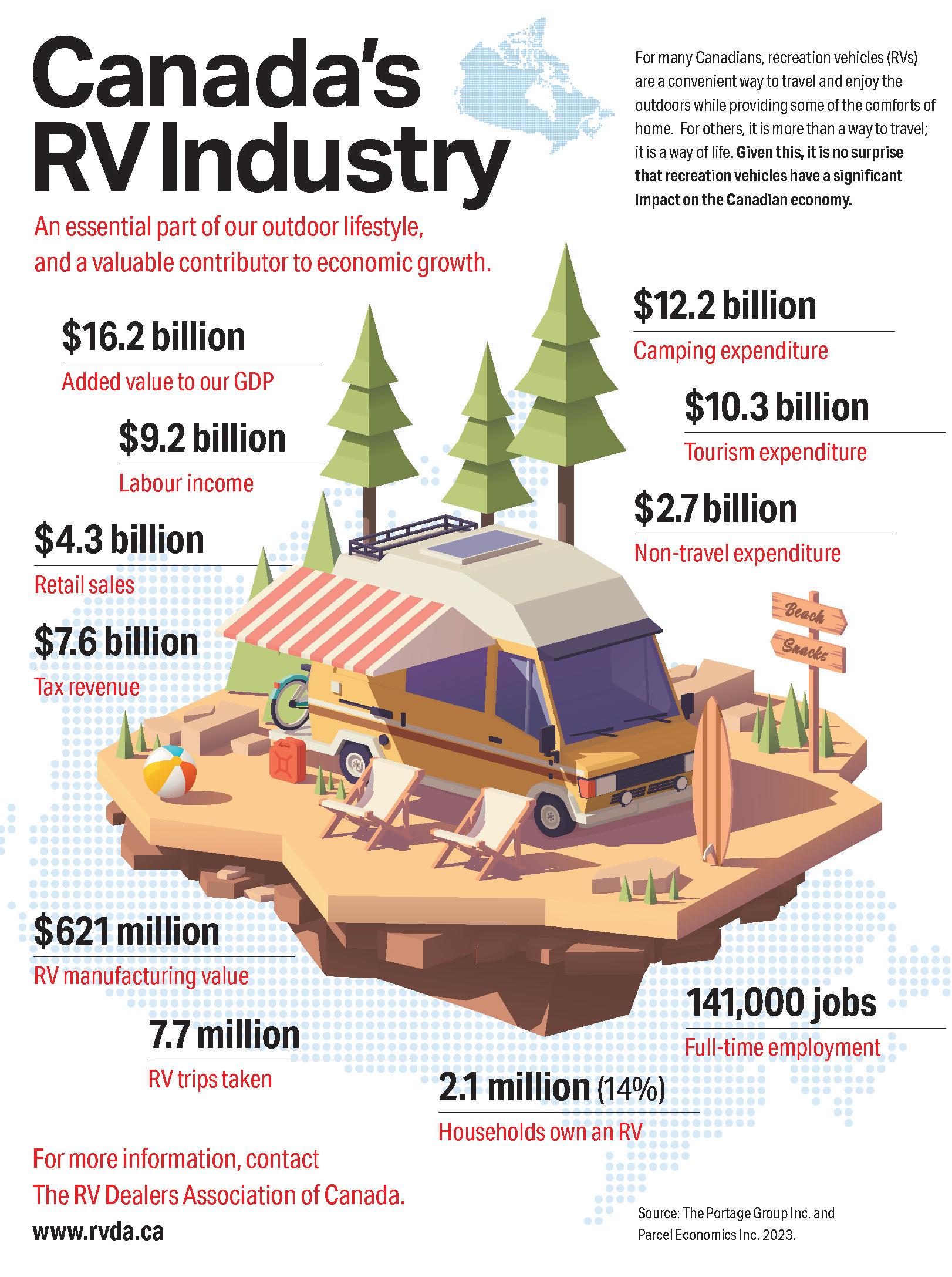
2022, when we were getting out of COVID-19, the availability of new units from the U.S. seemed to be limited to Canadian dealers. We finally saw shipments in August and September 2022 to Canadian RV retailers but being past the selling season many were carried over to 2023. As a result, many dealers avoided ordering new 2023 units until they sold their older inventory.
I do not envy our Canadian Dealers and I am sure that forecasting their inventory requirements would be a lot easier if the market was more stable, but it’s the condition of the industry right now. However, I feel we are much stronger now than we were last year at this time.
Aboutcamp BtoB − Can you discuss any recent government advocacy by the CRVA on behalf of the RV industry?
Shane Devenish − We are currently working with The Canadian Council of Motor Transport Administrators (CCMTA) as motorhome registration is not consistent from province to province, making it confusing for consumers, manufacturers and dealers. Some provinces use the OEM number, while others use the chassis number to register a motorhome when it’s sold. The problem was exasperated during COVID-19 when there was a backlog of chassis. For instance, the effect would be that the motorhome would be licensed as a 2020 model instead of the OEM VIN number, which may have been a 2022. In some provinces, consumers get a 2022 Motorhome while in other provinces it may be registered as a 2020. So, to serve our consumers and stakeholders better, we are making efforts to get consistent status across Canada.
We have also joined with the Ontario RV Dealers Association (ORVDA) on a driver licensing issue in Ontario. For instance, if someone is buying a heavy Class A (over 11,000 kg), they need to upgrade their license from a G to a Commercial Vehicle D license. The problem with a commercial D license is that there are stipulations and controls in place for Commercial Vehicles. We have joined the ORVDA to develop a new license category for motorhomes from being a Commercial Vehicle upgrade. This will make it a little easier for high-end class A dealers and also safer for consumers with proper training. Those are just
46
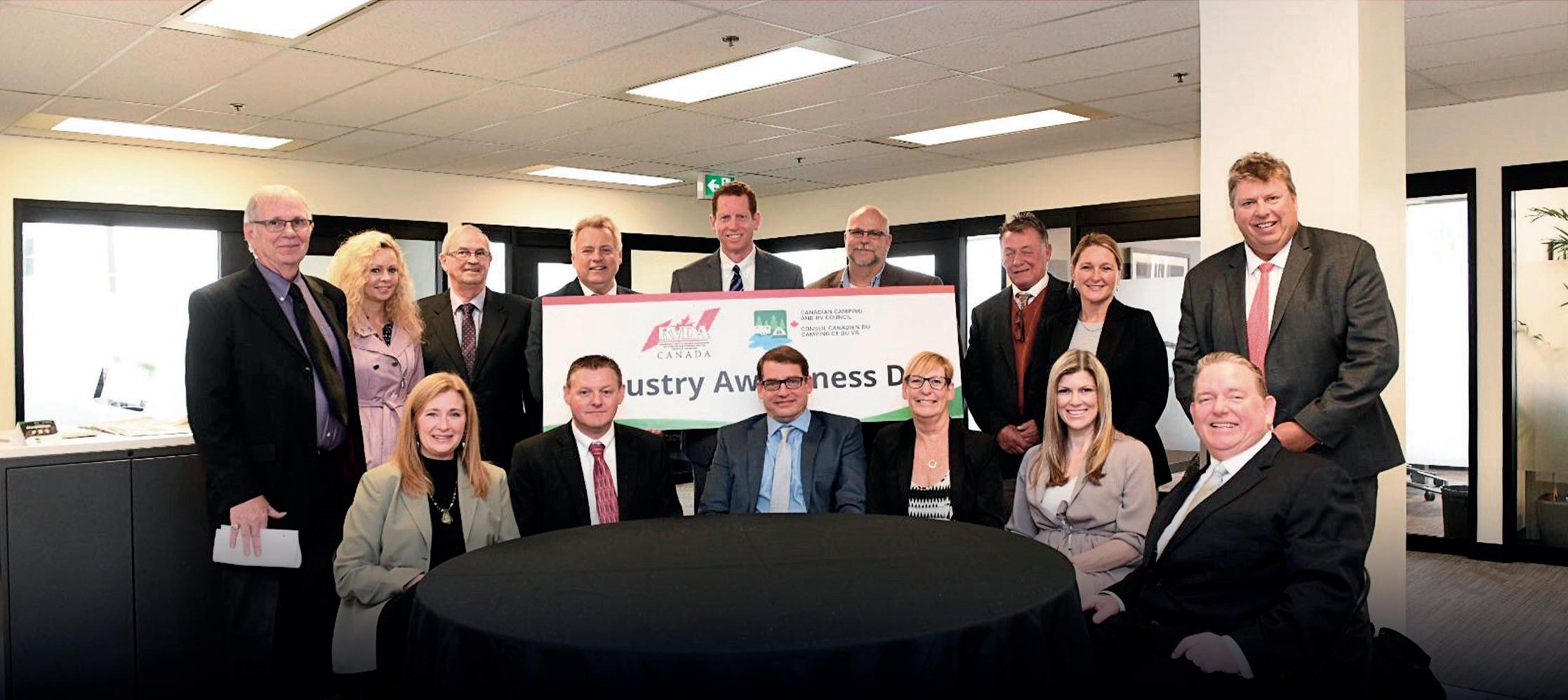
some examples of the most recent issues we are addressing.
Aboutcamp BtoB − Can you provide insights into the overall size and growth of the RV market in Canada?
Shane Devenish − The RVDA of Canada and CRVA completed a statistical report that was based on the Canadian RV industry in 2022 and we introduced it last year. We learned that 14 percent of Canadians own or have access to an RV, there are one million units on the road, and the industry generates $16.2 billion in economic activity.
There is the consumer perception of a lack of camping destinations. Although provinces like Ontario have a lot of seasonal campgrounds, there are not a sufficient number of transient or overnight locations. This is a concern and we have been advocating levels of government to promote and/or facilitate having new campgrounds approved as it’s often a difficult process.
We are also seeing some equity groups buy up some campground properties, but we need to find a way to expand the campground site availability simply because the number of RVs on the road is increasing and our campsite destinations are staying the same or even decreasing.
Aboutcamp BtoB − What are the most significant challenges facing the Canadian RV industry today?
Shane Devenish − Right now, we want to get the RV shipments back to where they were a few years ago. Historically, our shipments have been
between 40,000 to 50,000 units. That is an ideal range for us. We are seeing a lot of innovative products being introduced such as lithium batteries. The key is continuing to work on the safety standards and compliances to keep up with innovation and make sure that RV consumers are aware of the issues.
Aboutcamp BtoB − How has the demand for recreational vehicles changed in recent years?
Shane Devenish − I think everybody is talking about the younger buyer/ demographic and the smaller, offroad units have become very popular. While the shipments - and even production numbers - for pop-up campers are not as high as they used to be, Canada still gets a large percentage of the North American shipments, which is good news. Everyone remembers their family entering the RV lifestyle using a pop-up camper first and then trading up afterward. However, we are also recognizing that consumers are purchasing larger class A models or fifth wheels and people going full-time. It is key, however, to differentiate between RVing full-time and using the RV for an affordable house. Dealers often get asked, “can I buy that $3,000 used trailer to live in for the winter because I can’t afford rent?” As an industry, we are working hard trying to get the message
out that we know there is a problem with affordable housing in Canada, but the RV industry is not the solution.
Aboutcamp BtoB − How does the Canadian RV market’s relationship with the U.S. market influence the CRVA’s strategies and operations?
Shane Devenish − We are extremely fortunate to have a very good relationship with the U.S. and the RVIA and RVDA of America. The RVDA of Canada attends the RVDA of America’s board meetings and the CRVA attends the RVs Move America Week, which was held in June of this year in Washington, D.C.
During that time, we will have a Canadian Coalition Committee meeting to exchange ideas to become aware of what’s happening in our respective countries. The CRVA is extremely fortunate to work closely with RVIA and successfully address common or new issues that arise.
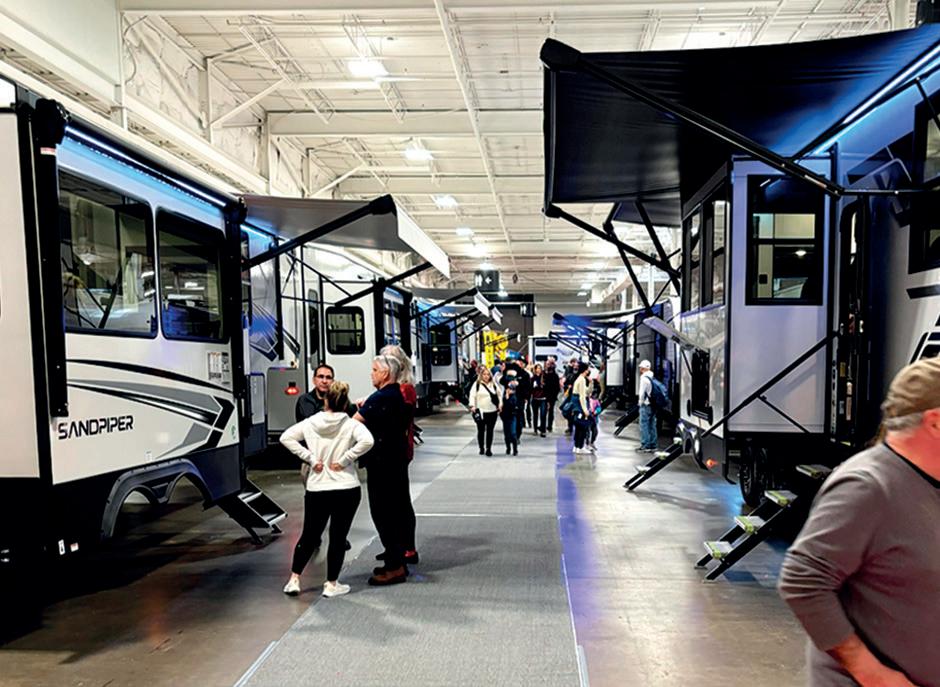
47
The CRVA/RVDA/CCRVA during the annual RV and Camping Industry Awareness Day in Ottawa, ON, Canada
The popular Toronto Spring Camping and RV Show March 2024, produced by the CRVA
F ace to face with MARIO BISSON
Surfaces beyond technique
An interview with Mario Bisson, the Director of the Master in Sensorial Surface Design programme at the Politecnico di Milano (university) to discuss the technical and multisensory aspects of surfaces in relation to RV interiors and the environment they create
Words Renato Antonini
Among European universities, the Politecnico di Milano plays a key role in the field of design. It hosts professionals with diverse expertise who are dedicated to training future designers. We interviewed Mario Bisson, who has been studying the perceptual, sensorial, and technical aspects of surfaces for years and is the Director of the Master in Sensorial Surface Design course. He shared his vision of the world of surfaces, which play such a significant role in defining the furniture and living spaces of motorhomes, caravans, and camper vans. The main question is: can surfaces be reduced to just technical perfection, or is there much more to them?

now in the second edition, preparing courses for the third year. The educational path focuses on the project of the emotional identity of furniture products and interiors, starting from the functional and sensory qualities of surfaces.
Aboutcamp BtoB - You are the Director of the Master in Sensorial Surface Design course at Politecnico di Milano: could you explain what this is about?
Mario Bisson - It’s a master’s degree programme open to students who have completed their bachelor’s degree after a three-year course. We have students from faculties of architecture, design, and engineering. Fifty percent of the students are Italian, but we also have an interesting fifty percent of international ones, confirming the international role of Politecnico di Milano. The master’s programme started last year, and we are
Aboutcamp BtoB - From what need did this course arise?
Mario Bisson - The masters programme was born to go beyond the themes of production, technique, and the functional aspect of design. Certainly, we cannot ignore these issues when we talk about the design of elements related to interior furnishings, but we cannot stop at the technical and functional aspects. There is also an emotional part that is often overlooked, a part linked to sensory experiences and emotions that our brain can receive from the perception
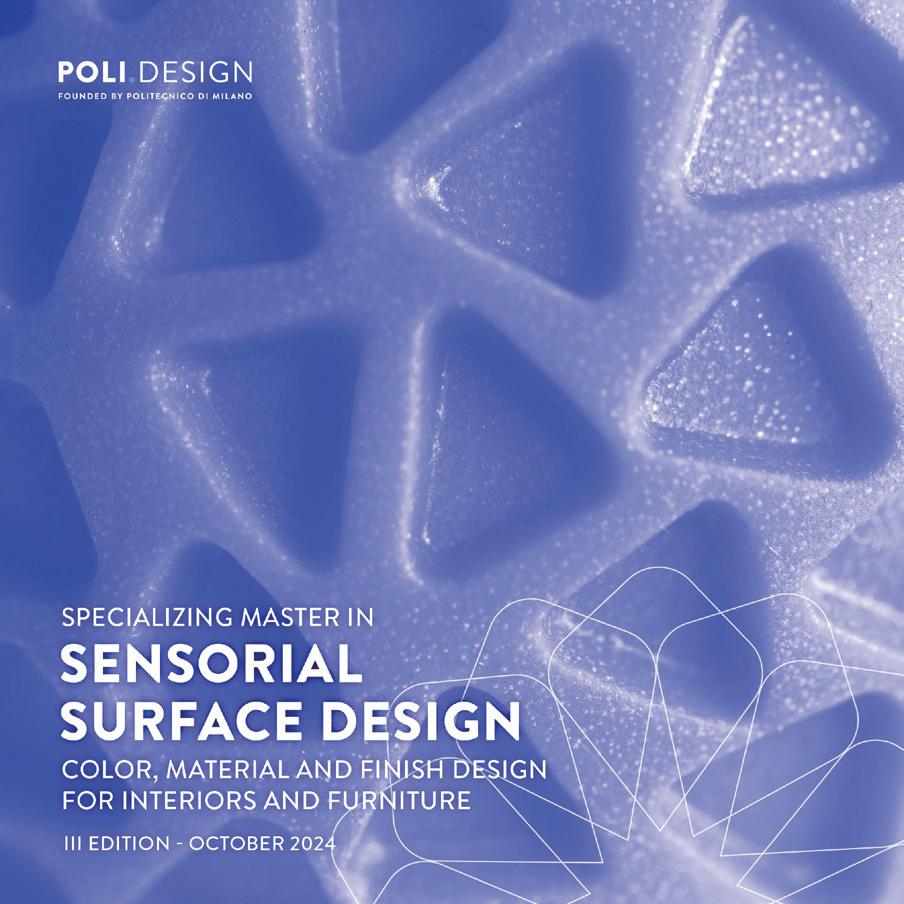
of the surfaces that make up the environment in which we live: the surfaces of the furnishing elements, but also the floor, walls, etc. Worldwide, there are really few design courses specifically on these topics, so a few years ago, I proposed this project to the Politecnico di Milano, which accepted it. Together, with a cohesive and motivated team, including Cristina Boeri as co-designer, I gave life to this Masters programme. It
48
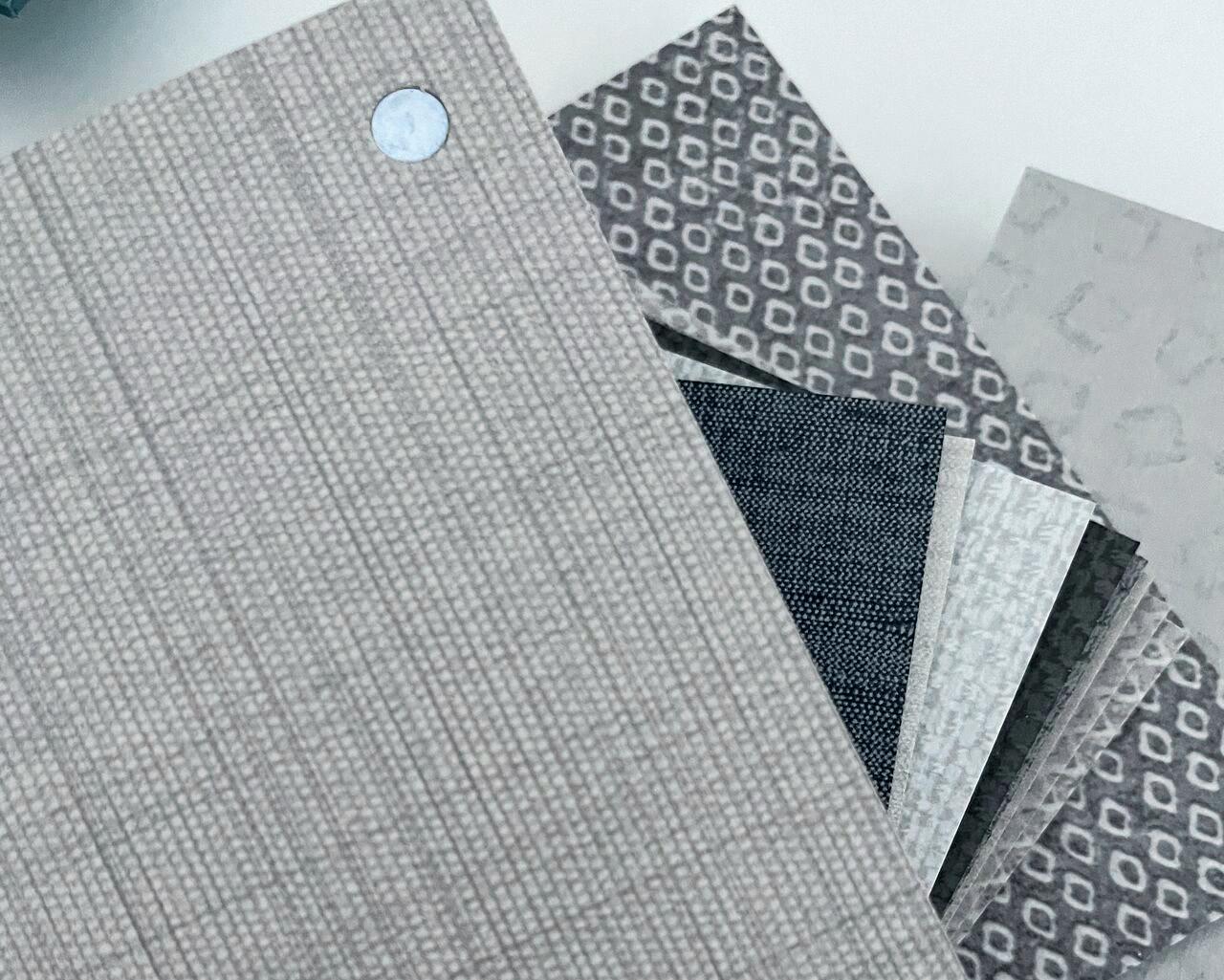

was a challenge that we won.
Aboutcamp BtoB - From what experiences did this area of research emerge?
Mario Bisson - I have been teaching design since 1991, first at the European Institute of Design and then at the Politecnico di Milano. Coming from a humanistic background, I have always noticed a lack of attention to the emotional components, the human side of design, which was often sidelined in favour of functional and technical-production needs. For a long time, it was believed that the creation of industrially produced objects, especially furniture elements, had to be perfect in execution, but the cognitive component was often overlooked. Our research starts from synesthetic perception. We refer to the concept of primary design, to CMF Design (Color Material Finishing), as theorized by three prominent figures in Italian design since the 1970s: Clino Trini Castelli, Andrea Branzi, and Massimo Morozzi. I have written several articles on the memories that our brains hold of particular smells and sounds associated
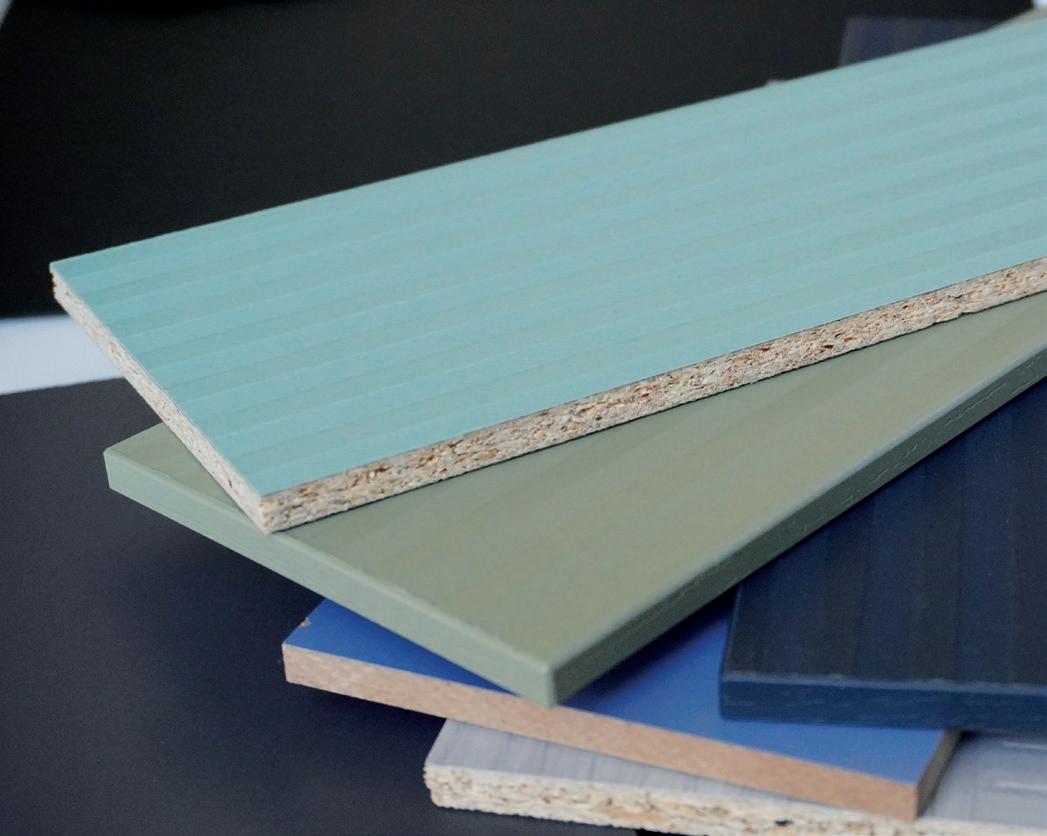

with environments and situations. For example, certain smells from our childhood, the scent of the furniture in the house where we lived, the smell of the stationery store where we bought our notebooks, or the sound of the wooden floor in a former bedroom.
Aboutcamp BtoB - Do you have the support of many companies?
Mario Bisson - We found great interest from some companies right from the start, and there are many others eager to support the next edition of the Masters programme. I can mention companies like Abet Laminati, Cleaf, Fantoni, Schattdecor, Saib, Alpi, Lanta, Tabu, and Gruppo Mauro Saviola. These companies help with student projects, attend our courses, and understand their needs. Companies are interested in supporting us; they see value in contributing to the development of professional profiles that can later be integrated into their teams.
Aboutcamp BtoB - Let’s talk about surfaces related to the world of furnishing: what has changed?
Mario Bisson - There has been a continuous evolution. At the beginning of the 20th century, the goal was to speed up production. Then came synthetic materials, from linoleum to carpeting, and in the 1980s, technology entered the game at various levels; think of electric windows in cars, for example. From around 2010 to 2020, there was a significant push in design from the sharing economy theme, where the focus was on using an object without owning it. Now, in the field of design, the emotional component has finally become highly relevant.
Aboutcamp BtoB - Are there any changes underway?
Mario Bisson - Certainly, yes. In addition to trends related to colours, new materials are emerging, and it’s increasingly possible to embed technology and electronics into surfaces. Technology today enables us to do things that were unthinkable just a short time ago. It’s important to pay attention to these changes, including technologies used in other sectors unrelated to furniture. The digital world is also changing, with arti-
49
F ace to face with MARIO BISSON
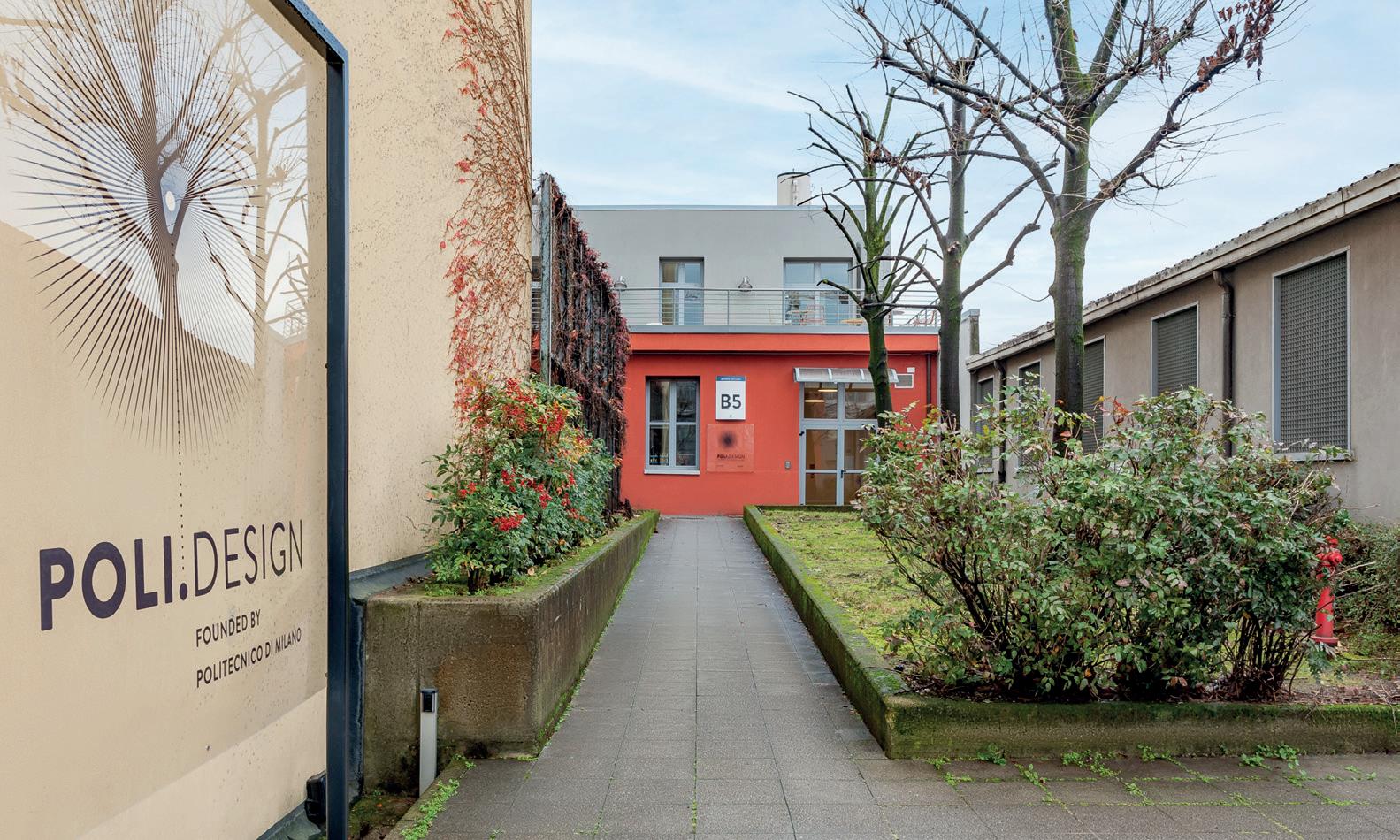
ficial intelligence now making a strong appearance. With Industry 5.0, it’s not just systems communicating with each other but a dialogue being established between humans and systems. The risk is that humans might become overly reliant on technology, so it’s crucial to strike the right balance.
Aboutcamp BtoB - How does the theme of environmental sustainability fit into this?
Mario Bisson - Designing and producing sustainable products is a requirement and Europe has set this goal with a specific deadline by 2030. Every industrial process must consider environmental sustainability. For example, some types of adhesives and welding techniques are no longer acceptable today, and there’s a significant issue of disposing of products at the end of their lifecycle. It’s a complex matter because nowadays, there’s less talk about simple materials and more about composite materials. So, there’s work to be done upstream before composites are even made. The chemical sector is working hard to eliminate materials that cannot be reintroduced into the production cycle. Environmental certifications now cover materials, processes, and products. However, it’s only a matter of time: the right sustainable materials will come, I am convinced of that.
Aboutcamp BtoB - The research of your team focuses on the surfaces of the furnishings in our homes, our offices, but what about other environments, such as those of motorhomes and camper vans?
Mario Bisson - First of all, let’s talk about dynamic environments that are not stat-
ic. In an environment that moves on wheels, materials and components are under a lot of stress. The issue of noise is not secondary. Silence is valuable, and is associated with premium products. In the RV world in recent years, there has been increasing attention to surfaces, but much more can still be done. If I look at the current production of campers, there is room for improvement in surfaces, as well as finishes, edging, etc. Attention to detail makes the difference.
Aboutcamp BtoB - In a Masters programme like yours, could there be space for companies or associations in the RV sector?
Mario Bisson - Absolutely, yes. The role of surfaces also concerns vehicle design, and even more so, the design of large and complex mobile environments such as caravans and motorhomes. Therefore, I believe that the RV sector could also bring new stimuli to our research.
Aboutcamp BtoB - What is the role of artificial light in defining surfaces and what has changed compared to the past?
Mario Bisson - Light is of fundamental importance, and it’s directly related to the colour of surfaces. Much has changed with the evolution of LED technology in recent years. We can now enrich environments with light everywhere, and we’re not just talking about spotlights but also diffused lighting. We can work on the frequency of LED lights, using different frequencies to achieve either cool or warm lighting. This has a significant impact on the user’s perception
of the environment. These opportunities offered by light frequency, not just intensity, have been utilized for years in various commercial activities, including different types of stores, even those selling food, to provide a better perception of the products being sold. Undoubtedly, warm light is better in an environment like that of an RV. And then with light, I can enhance certain surfaces, I can work with light incidence and surface angles to create special effects. Ultimately, artificial light can either enhance or kill an environment, and we spend a lot of time in environments during the dark hours, when artificial light plays a crucial role.
Aboutcamp BtoB - What’s the relationship between surfaces and production costs, and what are the limits?
Mario Bisson - Production costs are determined upstream; first, we need to decide on the costs we can bear, and then we determine the materials, finishes and technologies to adopt accordingly. Based on the expected costs, we seek the most suitable materials to achieve the highest product quality. It is necessary to understand the context in which we operate. For example, in a global production scenario, Italy must undoubtedly focus on premium products; otherwise, it risks being uncompetitive. Abroad, the “Made in Italy” label is an added value.
Mario Bisson
Mario Bisson, an architect, is an associate professor at the Department of Design at Politecnico di Milano. He has been teaching at Politecnico since 1996, focusing on Industrial design courses. He is the Scientific Director of the Colour Research Laboratory at the Department of Design at Politecnico and is the promoter and co-founder of the Interdisciplinary Laboratory EDME (Environmental Design and Multisensory Experience). He is also a co-founder of MDA (Mediterranean Design Association), that deals with topics related to environmental design. He has been and still is a member of scientific and editorial committees of scientific journals, and he is also the author of numerous publications related to design culture.
Mario Bisson also collaborates with manufacturing companies and public institutions on research topics related to Color and Environmental Design.
50
Looking for High-Performance Adhesive Solutions?
H.B. Fuller sets the standard in high-performance transportation adhesives, sealants and tapes for recreational vehicles. Our full RV product line is designed with recreational vehicles in mind, making lightweight, durable trailers possible and our various chemistries offer a broad range of solutions, many of which reduce or eliminate VOCs. With years of experience formulating solutions for the recreational vehicle market, we specialize in the development of custom formulations to meet your specific needs.
Take the right path at the right pace. Contact us today!
www.hbfuller.com
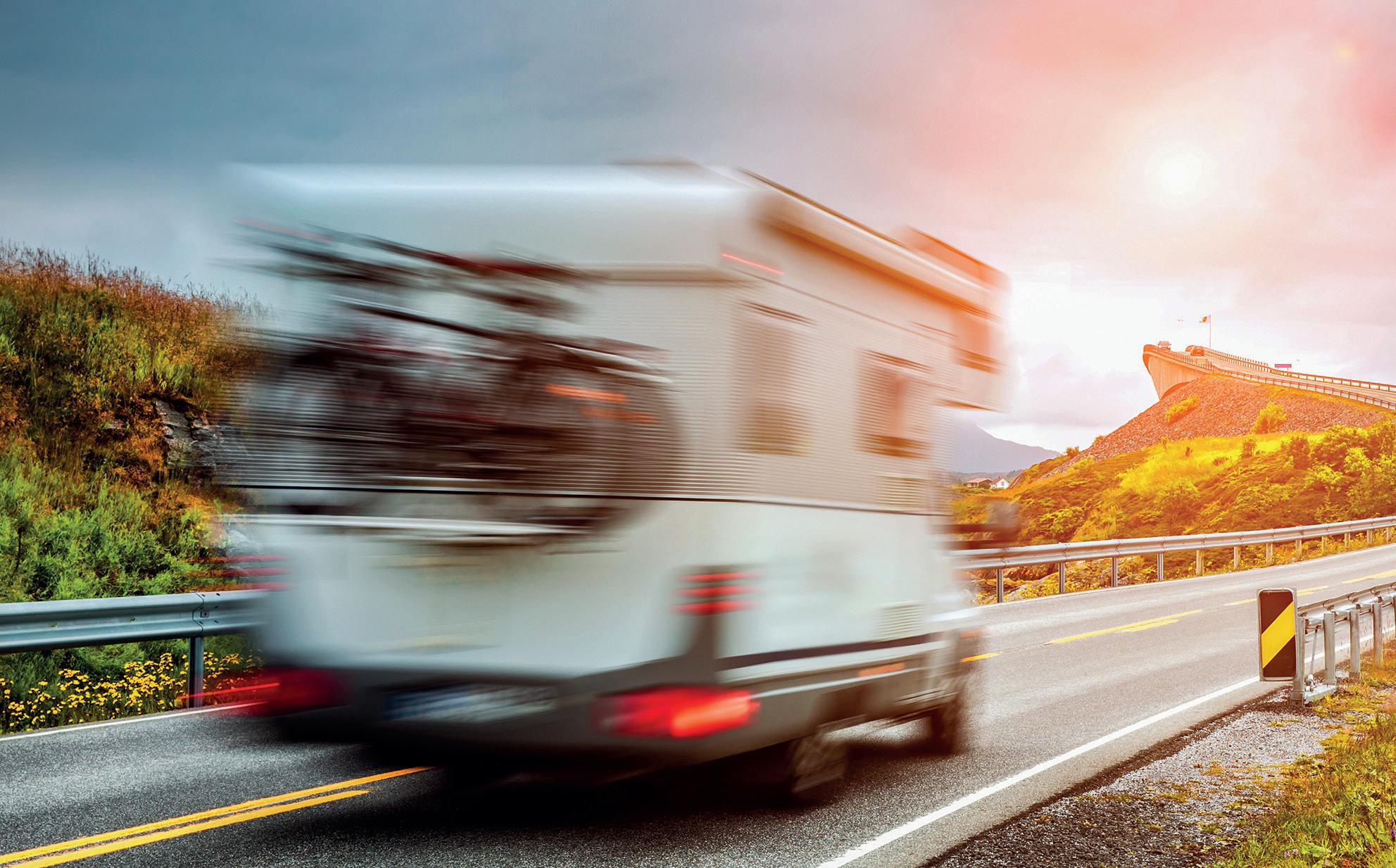
for the Global RV Industry
One-Stop Adhesive Solutions
© H.B. Fuller Company, 2024
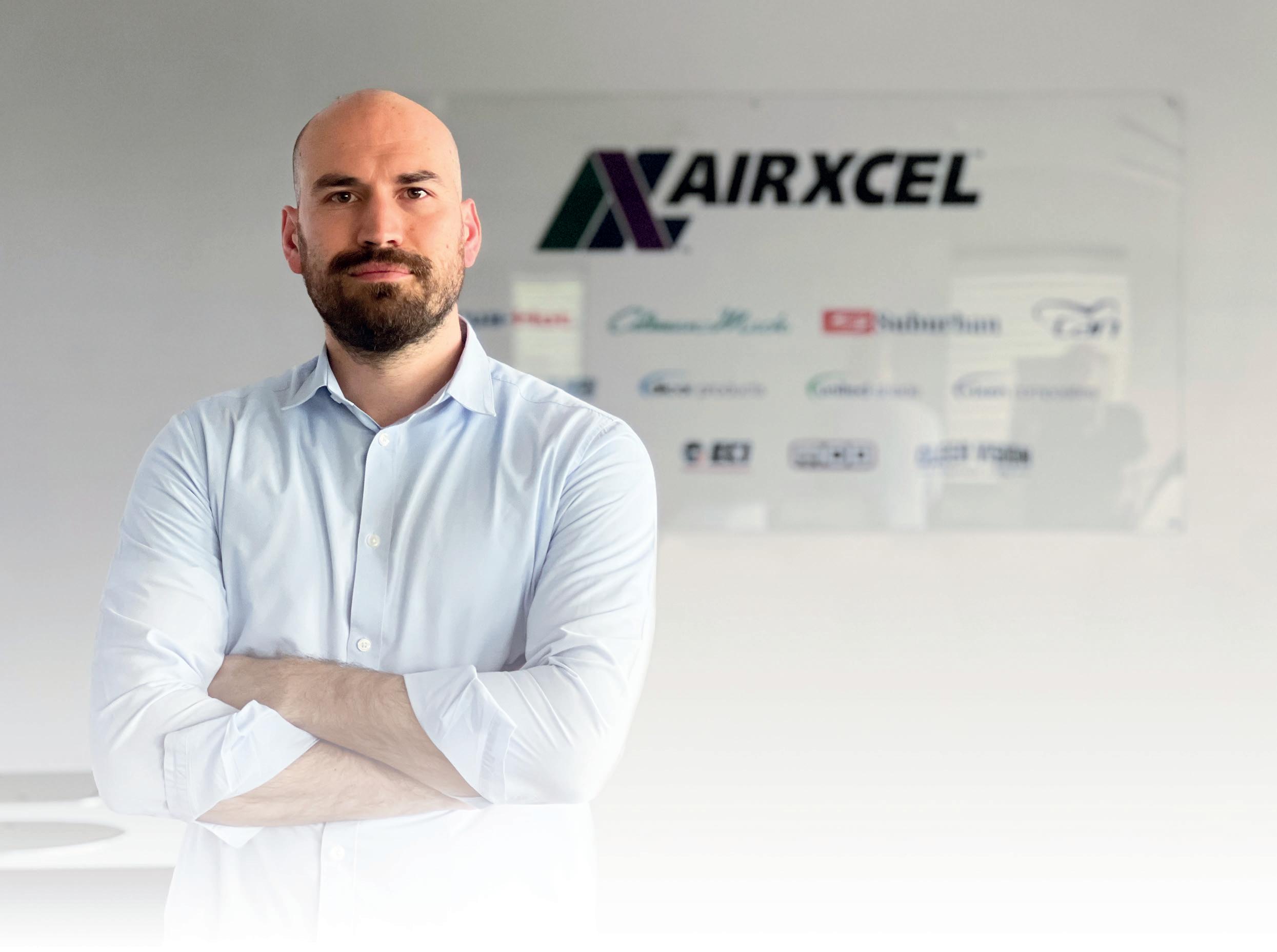
Investment and innovation
are the keys to success
We met Pietro Zannoni, product manager of Airxcel Europe, to learn more about this American group, its brands and its European soul. With future projects that promise to further expand Airxcel’s presence on the international market
Testo di Antonio Mazzucchelli
Airxcel, known for its significant presence in the recreational vehicle market, is gearing up for future projects that promise to further expand its international footprint. In this interview, Pietro Zannoni discusses his background, the company’s strategic direction, and the innovative products that are set to make waves in the European and global markets.
Aboutcamp BtoB − When you joined this company, what experiences did you previously have and what is your role today within Airxcel Europe?
Pietro Zannoni − Before joining CAN, now part of Airxcel, in 2019, I had worked for three years at Dometic Italy in a cross-functional position that
gave me a comprehensive view of the product. That experience allowed me to deepen my knowledge of the sector, interface with manufacturers, and visit various production plants in Europe. I was brought into Airxcel in anticipation of a strategic acquisition, tasked with managing various American brands for the European market and integrating into CAN’s expanding market presence.
Currently, I am resuming the role of Product Manager for various brands, from Maxxair to Coleman Mach, and the most recent Invision and Dicor Power. We launched these last two brands at the Elkhart Showcase in America last October, and we will soon introduce them in Europe as well.
Aboutcamp BtoB − As Airxcel Europe, do you only manage strictly European markets?
Pietro Zannoni − No, our reach is not limited exclusively to Europe. In terms of product distribution, we serve practically the entire international market from here, with the exception of the American one. This includes Asia, Turkey—where we started very early—the Middle East, and Australia, a market in which we are particularly strong and have invested significantly. Regarding service and warranty management, as well as customer support for Maxxair products, we have global responsibility, with the exception of Canada and the United States. Therefore, we provide all the necessary assistance to
52 Company news AIRXCEL
what is considered the international market.
Aboutcamp BtoB − In terms of strategy, how does marketing and distribution differ in Europe from that in the United States?
Pietro Zannoni − The American market tends to be more oriented towards catalog products, which are less specific and less personalized for the customer. American manufacturers are generally more willing to accept
In partnership with
represents your spearhead. Can you tell us about this brand?
Pietro Zannoni − Even though CAN is not directly one of the brands I manage, it deserves special mention for its significant development in recent years. CAN has grown enormously and has established itself strongly in the original equipment market. The exponential growth of the last five years has been remarkable, and I believe it is mainly due to our competence and flexibility. Many people think that by imposing their brand strength or history, they can achieve easy results; however, the world of motorhomes is inherently customized and requires constant adaptability.
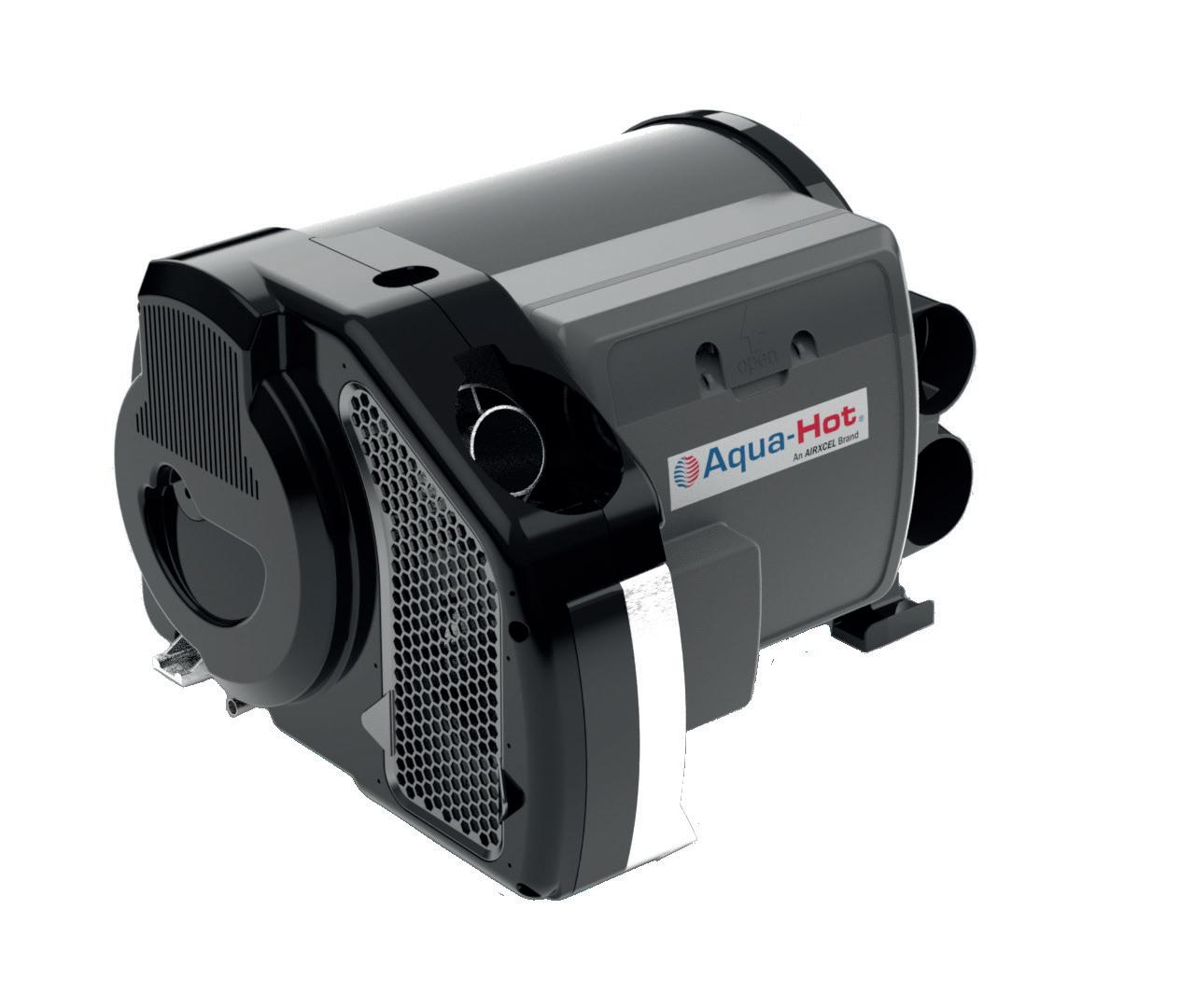
European customers are much more attentive to certain details and are more demanding overall. In Europe, our distribution network relies heavily on trust-based relationships that support the company’s sustainable growth, not just immediate sales. Additionally, in the United States, Airxcel is much better known, along with the brands that are part of it. Our group is considered a leader in the industry, and despite not being a brand in the strict sense, but rather a company that includes 14 brands, the name is highly recognized. In Europe, on the other hand, we are still establishing our presence. Here, we are probably best known through individual brands such as CAN and Maxxair. It is important to remember that behind these brands is a very large group that is investing significantly in both the European and American markets, with a long-term vision that, in my opinion, always pays off the most in the end.
Aboutcamp BtoB − You mentioned CAN, which was Airxcel’s first (and so far only) acquisition in Europe and
This flexibility, combined with our ability to respond quickly to customer needs, has allowed us to invest significantly in tailor-made solutions. We have never shied away from designing practically anything the client asks for, and we do it within a reasonable timeframe. Speed, together with our expertise and flexibility, has been crucial to conquering a large part of the market. Looking to the future, thanks to the agreements we already have in hand, we plan to further and significantly expand our market share.
Aboutcamp BtoB − Is it here at the Airxcel Europe headquarters that you manufacture CAN cookers and Aqua Hot heaters?
Pietro Zannoni − That’s right. The Bassano del Grappa site is the heart of our European production. We moved here in 2020 due to the exponential growth we were experiencing, which made our previous facility insufficient. This new location offers us an adequate space that supports the entire production process. Here we manage the entire production cycle of CAN kitchens, starting from the steel coil up to the complete assembly of the products. Additionally, we have the necessary space to assem ble the Aqua Hot stoves, which we plan to produce in significantly larger volumes in the future. We also have a warehouse where the entire distribution network of our products and the other brands that are part of Airxcel is logistically managed.
Aboutcamp BtoB − How did you


come up with the idea of producing the Aqua-Hot Gen 1 heater with an integrated boiler?
Pietro Zannoni − It was a joint effort, as with all the products we are introducing to the European market, in collaboration with our American colleagues. We combined American experience with our experience in the European market to develop a product that would meet market demands. The product is mainly developed in the United States, with some components coming from Asia, but the design and production of various plastic components, some software specifications, and final assembly are handled here in Italy.
Aboutcamp BtoB − Is it already available on the market?
Pietro Zannoni − Yes, the heater is already available for purchase. We have four models, available in both diesel and gas versions, with power outputs of 4 kilowatts and 6 kilowatts. We have modified, adapted, and improved the product, and we are very proud of the result. We expect great success, thanks also to its features, many of which are included as standard, unlike the competition. This is an advantage for both manufacturers and the aftermarket due to its ease of use, installation, and superior performance compared to expectations. Some manufacturers are already testing the product, and we are very satisfied with its performance. Compared to the competition, our prod-
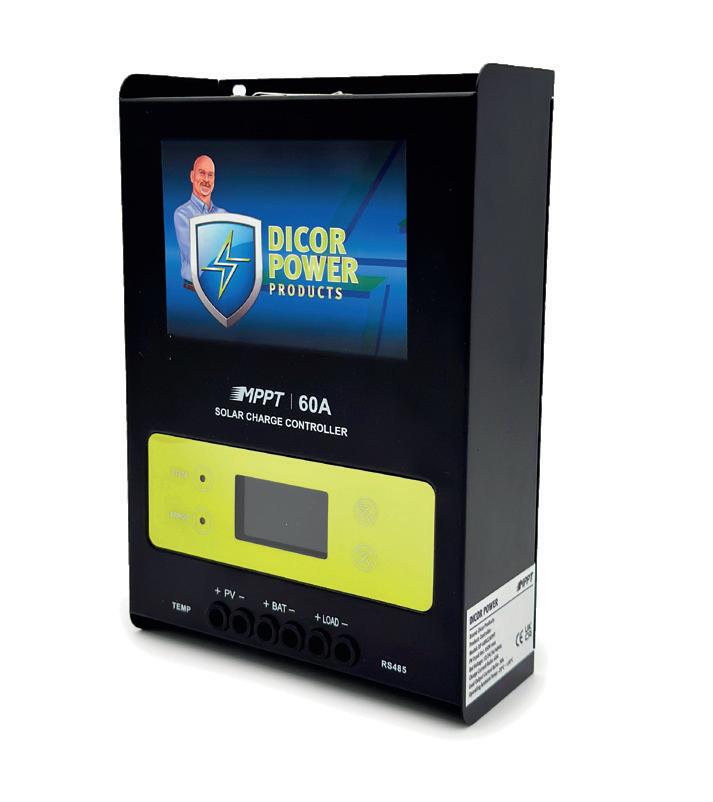
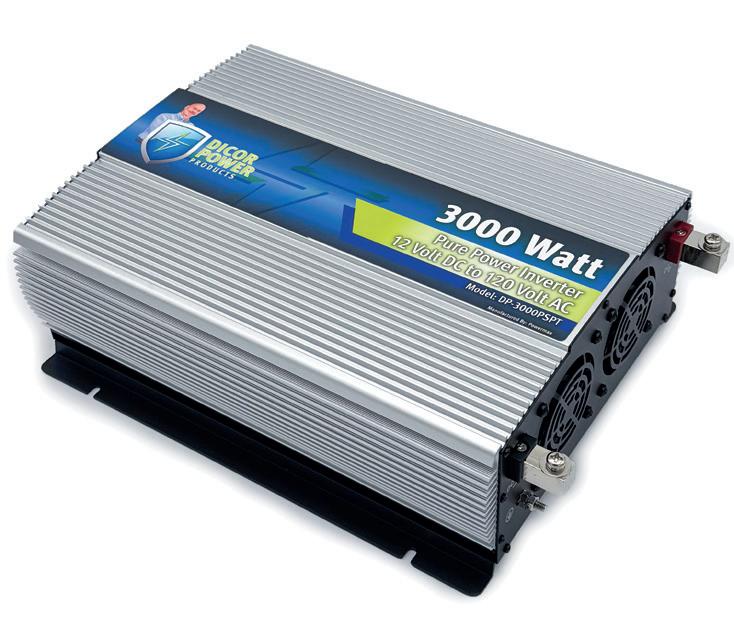
53
Dicor Power: Solar Charge Controller (right) and Power Inverter (below)
Company news AIRXCEL
uct offers a complete package that is advantageous not only in terms of cost but also in ease of use and installation. It is also compatible with the BUS CI protocol. To implement this compatibility, it was essential to combine synergies between us and the manufacturers.
Aboutcamp BtoB − How will you set up a service network for this product?
Pietro Zannoni − We are relying on our distributors to create a service network, also offering training courses at our headquarters and in dealers’ offices, where we also issue certifications. We will soon have a network that will cover all of Europe.
Aboutcamp BtoB − What products do you have available on the European market in terms of air conditioning?
Pietro Zannoni − man-Mach brand is part of the Airx cel Group, we can say that we are leaders in this segment, having pro duced the first air conditioner back in 1967, and more than 9 million since then. The models we have introduced in Europe are based on an orig inally American de sign, which we have adapted to meet the specific needs of the European market. In terms of cooling power, our systems are among the best performing avail able, thanks in part to the optimized arrangement of the internal components. However, we recognize that there are customers in Europe who prefer quieter, less energy-intensive, and lighter products, especially due to the weight restrictions imposed by the B license. Additionally, with the trend towards smaller vehicles and the need for more compact and lighter air conditioners, our standard product does not always perfectly meet these needs. For this reason, we have started a partnership with an Italian brand that produces an air conditioning system that reflects the needs of lightness and silence required by the European market, which we market under the Maxxair brand. At the same time, we sell this product in the United States, where the campervan market is also growing and where there are similar demands for more compact and lighter air conditioners.
Aboutcamp BtoB − Earlier you mentioned Dicor Power among the brands that are under your management. What is it about? Is it a new product line?
Pietro Zannoni − Yes, Dicor Power represents our new range of products dedicated to energy. Traditionally, Dicor is known in the United States for the production of fiberglass-reinforced composite materials used in walls, ceilings, and roofs. These products are in high demand in early installations. We are taking advantage of Dicor’s strong name and sales network to launch this new line, which focuses on electronics and has nothing to do with their traditional products, hence the name Dicor Power. We have developed it for both America and Europe, despite the fact that the energy market is already quite saturated and there are many com-
ed gradually, fully customizable, and designed for the European market. We presented the first products in Stuttgart, and they aroused a lot of curiosity. For the Düsseldorf show, we plan to expand the range and further strengthen Invision’s presence in the European market.
Aboutcamp BtoB − Are there any other new products you are developing?
Pietro Zannoni − Yes, we are enthusiastically following the success of the Maxxair brand in Europe, which has achieved great results in the last five years. This success has, of course, attracted the attention of competitors, stimulating healthy competition that pushes us to continue to innovate and remain a leader in our industry. To ensure we never find ourselves in a follower position, we are working on updating one of our flagship products, the MaxxFan Deluxe. We will present this updated version at the Düsseldorf trade fair, enriched with new features. Additionally, we are developing a new version that will be particularly suitable for the campervan market. These products, developed in Europe, have already been in the pipeline for some time. We look forward to revealing more details at the Caravan Salon in Düsseldorf.
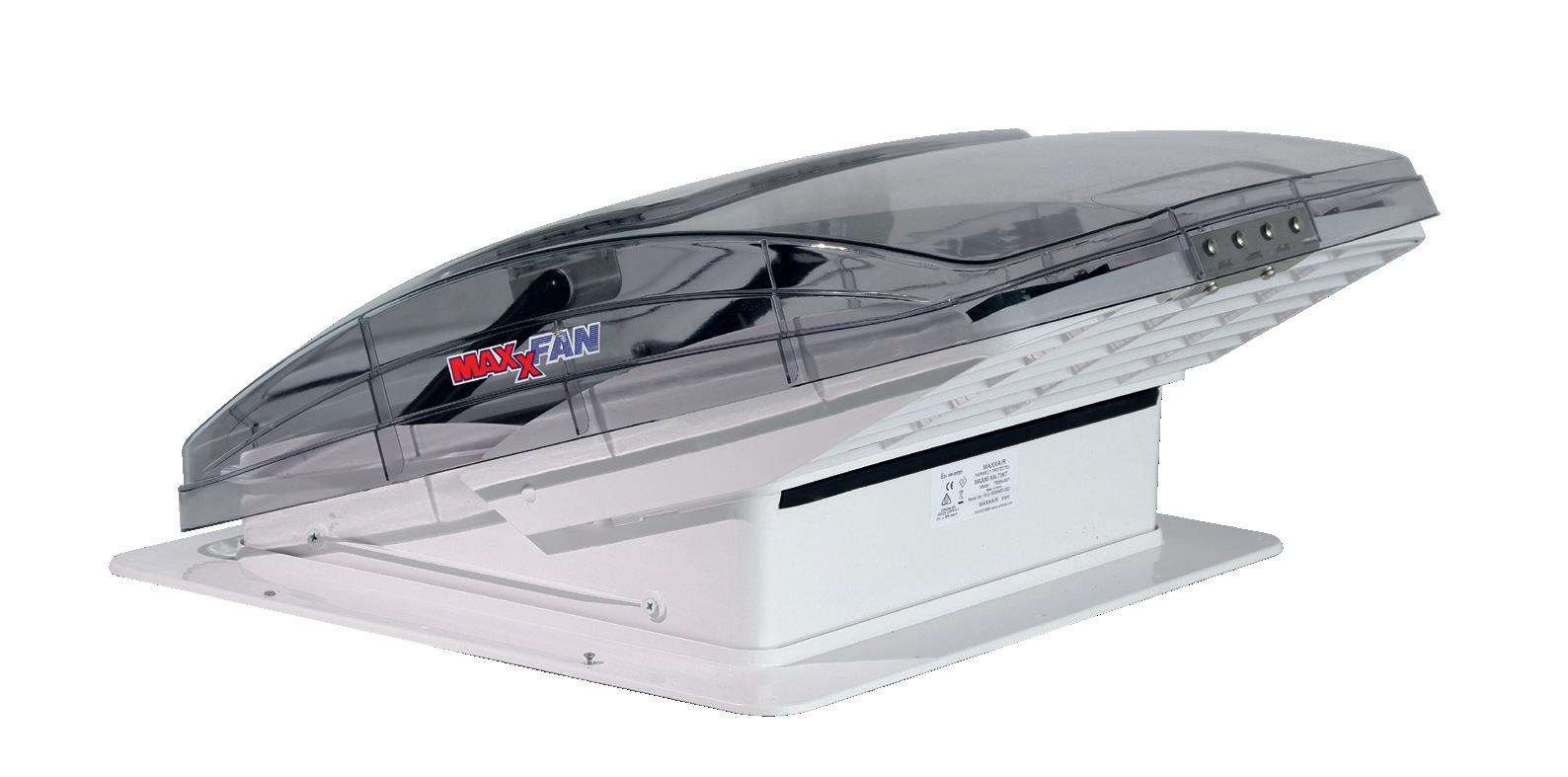
Asia. Dicor Power’s product range includes photovoltaic panels, controllers, inverters, and batteries, offering a complete energy system. This approach allows us to leverage our expertise and established position in Europe, as demonstrated by brands such as CAN and Maxxair. Our goal is to offer a tailor-made alternative for manufacturers, which not all competitors are able to offer, focusing on solutions that specifically meet their needs.
Aboutcamp BtoB − Invision is also a new brand. What is it about?
Pietro Zannoni − Invision offers a spectrum of products ranging from the most outdoor-oriented ones for the end user, such as portable refrigerators, to more technical products such as built-in refrigerators and kitchens, as well as other products for the RV world. It is a very fast and evolving phase, with products that will be add-
Aboutcamp BtoB − You are responsible for introducing some products developed in Europe to the American market and you often visit North America. What do you learn from collaborating with your colleagues overseas?
Pietro Zannoni − What I have understood most is the importance of always maintaining a positive attitude. Being positive attracts positive results, and this mindset is key to achieving and maintaining positive outcomes. Presence and continuous investment are essential to delivering meaningful innovations and changes. I welcome the task of introducing some products to the American market with enthusiasm, and this assignment reinforces my conviction that Airxcel Europe is destined for continuous growth in the coming years, thanks to the proactivity and ability to innovate of the entire European team of which I am a part.
54
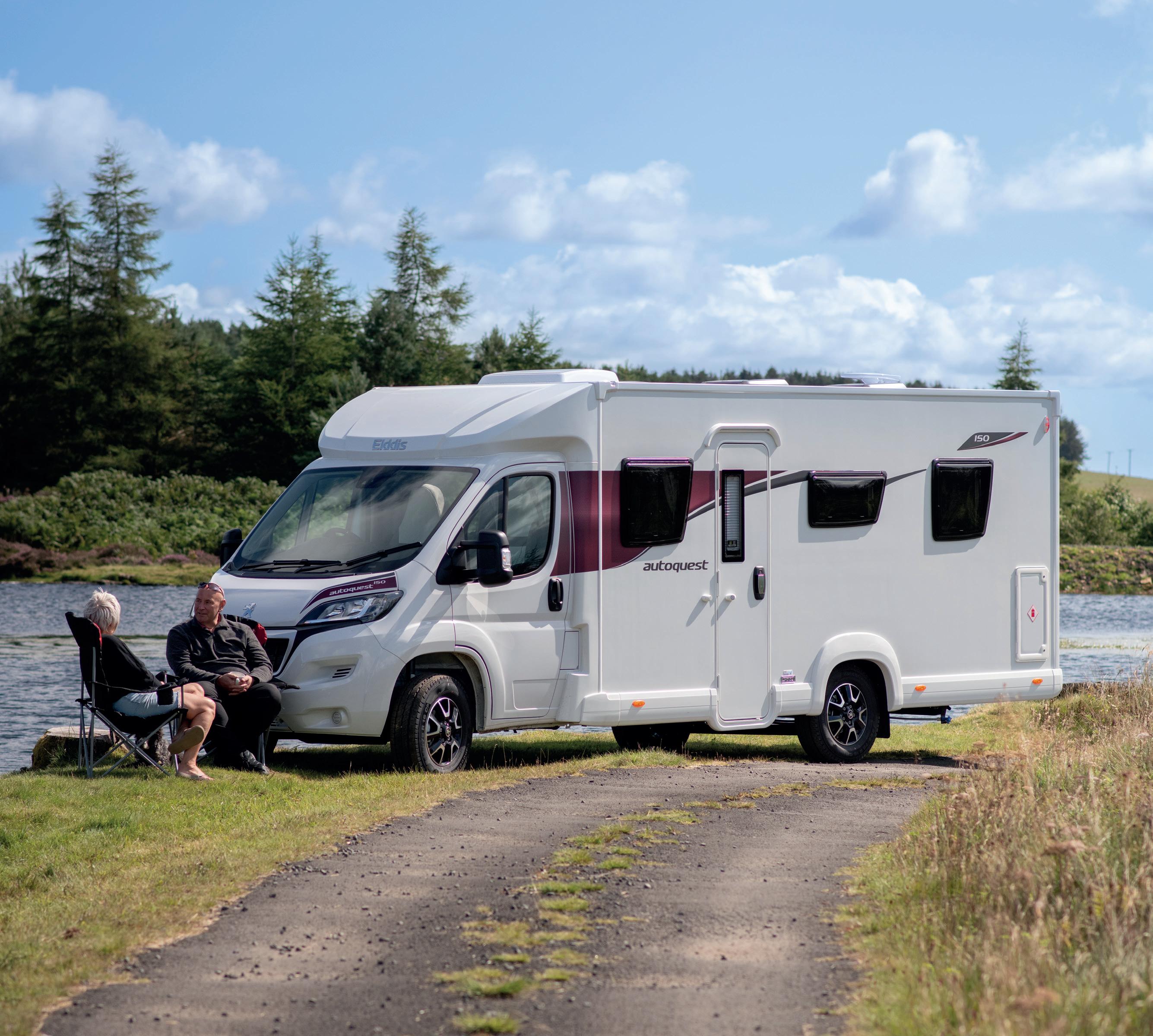
CAREFREE CARAVANING WITH LAMILUX SUNSATION® GRP SIDES



LAMILUX SUNSATION® - the world’s most colour and gloss resistant composite material



LAMILUX SUNSATION® is the long-awaited revolution in composite materials and it defines the new standard for exterior applications. Its outstanding UV-stability broadens the horizon regarding image, look, care and value.
Your benefits:
+ Extreme gloss resistance, extreme colour resistance
+ Brand new look even after years in the sun
+ 90 % less effort and costs for maintenance & care
+ Higher resale value
+ Carefree holidays
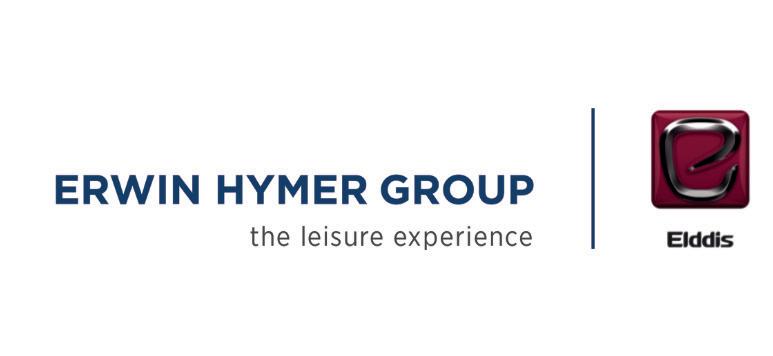
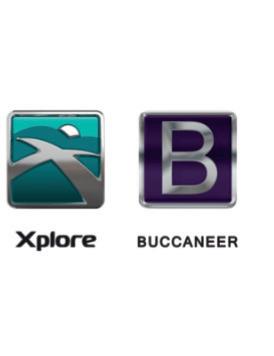





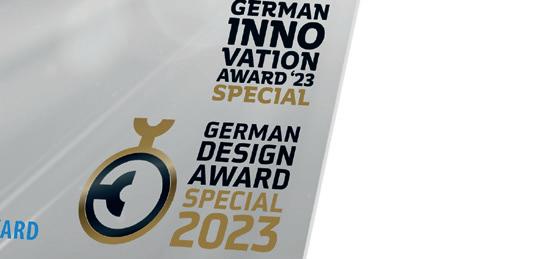


55 LAMILUX COMPOSITES GMBH | Zehstraße 2 | 95111 Rehau | Tel +49 (0) 92 83 / 5 95-0 Fax +49 (0) 92 83 / 5 95-290 | E-Mail: composites@lamilux.de | www.lamilux.com
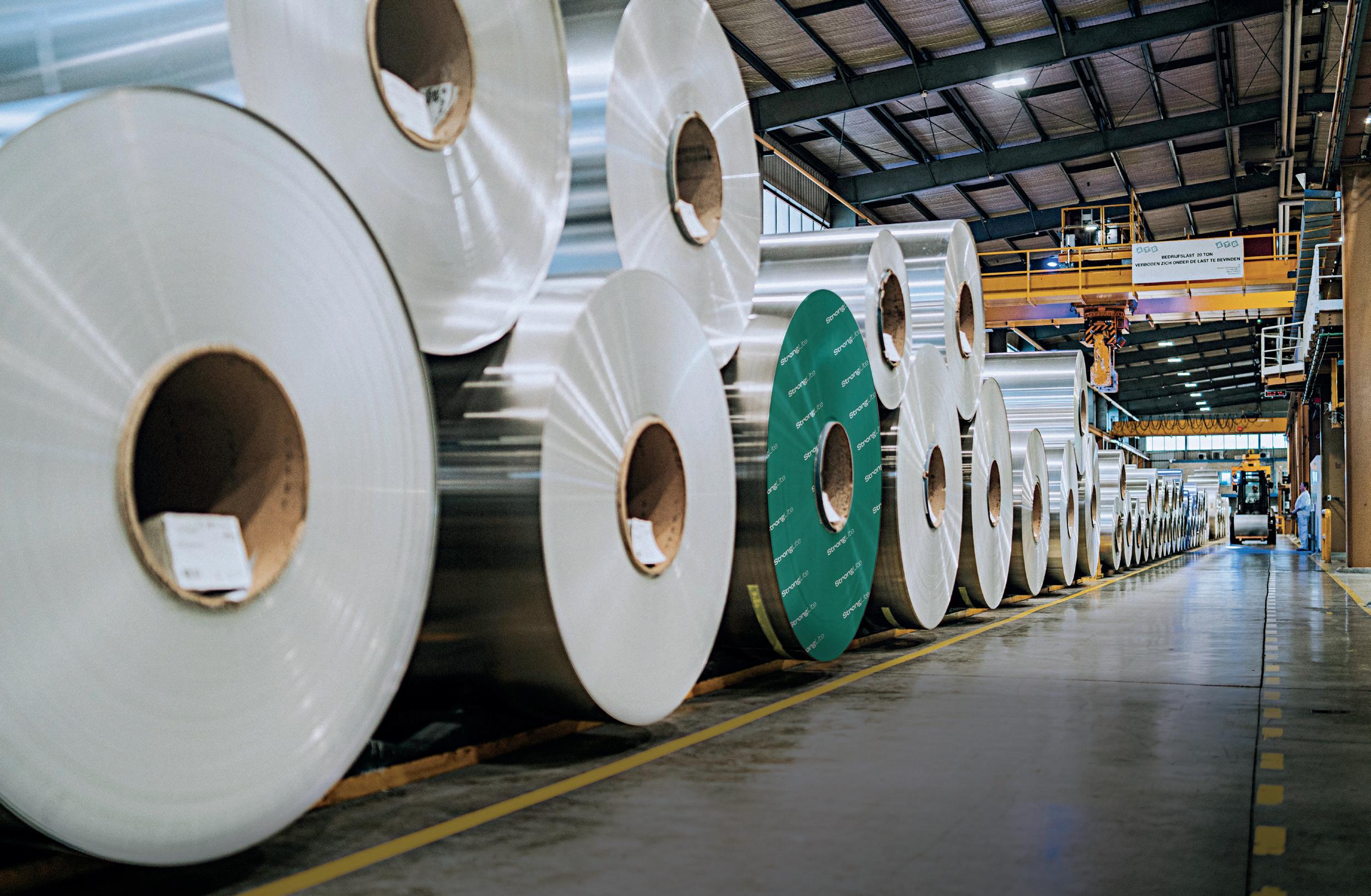
Aluminium is ‘The Green Metal’
The world is increasingly focusing on reducing carbon emissions and combating climate change. ‘Aluminium aligns perfectly with a circular economy, which is crucial for reducing CO2 emissions’
Words Editorial Staff
At Euramax for Mobility, they notice the enormous potential of aluminium in realizing a circular economy, which is important for reducing CO2 emissions. We’ll see more about the green advantages of aluminium for the RV industry and how they are working towards our goal of zero-carbon aluminium. “When manufacturing vehicles, the use and selection of certain types of materials can make a significant impact on the environment,” says Roel van den Heuvel, Chief Commercial Officer at Euramax for Mobility. “Nowadays, investing in sustainable materials does not require compromising on strength, durability or aesthetics. Aluminium is the perfect material to build your vehicles in a sustainable way. It boasts a significantly lower CO2 footprint compared to plastic, with its full life cycle emissions roughly 85% lower than those of plastic.”
Closing the loop with aluminium
Aluminium can be recycled over and over again without compromising on quality and without costly recycling processes. In fact, producing recycled aluminium is very cost effective: recycled aluminium requires only 5% of the energy needed to produce virgin aluminium. “Recycling of aluminium is already done at scale with very high recycling rates: over 90% in the case of the European vehicle and automotive sector,” explains Roel van den Heuvel. “In contrast, plastic (GRP) cannot be recycled effectively due to the physical property that gives it its strength: as a thermosetting plastic it cannot be remelted. This is a serious dilemma for the industry, as plastic ends up in landfill or is incinerated, resulting in additional greenhouse gas emissions. Aluminium aligns perfectly with a circular economy, which is crucial for reducing
CO2 emissions. Hence, we like to call it ‘The Green Metal’.”
Major shifts in the aluminium industry
Many people still associate aluminium with high energy intensity and carbon emissions, which has everything to do with history. Aluminium is a relatively new material, this meant that we have relied mostly on virgin aluminium in the past. Now that aluminium has become such an important material, more and more scrap is available for recycling. Already today, ~40% of global demand is covered by recycled material. Looking to the future, the aluminium industry is serious about circularity. Recycling rates of aluminium are increasing and the first alloys consisting of 80% or more recycled aluminium are being developed and will soon be introduced – an exciting development that Euramax monitors closely.
56
Company
news EURAMAX FOR MOBILITY
Another important development that has allowed the aluminium industry to reduce its emissions is the rise of clean energy. Aluminium production relies on electricity and is therefore well-positioned to benefit from the clean energy transition. This is a clear difference with other materials, such as plastic, which require fossil fuels as feedstock for their production. In fact, the European and North American aluminium industry already uses 80%+ renewable energy, mainly hydropower.
Advancing towards zero-emission aluminium
“At Euramax for Mobility, we actively seek ways to further decrease the carbon footprint of our aluminium, aiming to transition to zero-emission aluminium,” adds Roel van den Heuvel. “Of course, we look at ways to decarbonize our own process, for example by shifting our coating operations from gas-powered to hydrogen-powered ovens once there is sufficient hydrogen available to do so. However, the sustainable initiative we are most fond of is the continuous development of even greener, high-performing aluminium. We are already le-
veraging the recyclability of aluminium. Our products use up to 50% recycled aluminium content, which puts us ahead of the average in the global aluminium industry. This results in a reduction of CO2 emissions by approximately 40% compared to plastic. We aim to further reduce emissions by an additional 30% in the near future, by offering our customers the option to use low-carbon aluminium, a product currently being developed by the London Metal Exchange”.
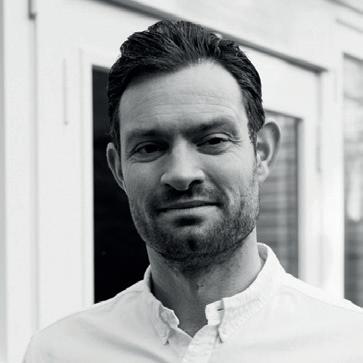
At Euramax for Mobility, they are proud of the steps that they are taking and strive to offer full transparency in their carbon footprint. The Dutch company will soon be providing its customers with emissions reporting on the products they’ve purchased. This doesn’t just bring transparency but also helps customers meet their CSRD reporting requirements.
StrongLite: stronger and lighter for lower material use and vehicle weight Besides using green materials, another important way to be more sustainable is to use less material in the first place. This is where StrongLite comes in as an

example of Euramax’s commitment to a cleaner future. According to the Dutch company, StrongLite is a game-changing proprietary alloy, setting new standards in the industry. It surpasses traditional alloys in terms of sustainability, strength, and lightness. StrongLite incorporates additional magnesium and undergoes three additional rolling steps. This results in a product with an exceptional strength-to-weight ratio that allows for the use of 0.7mm for the exterior walls of a caravan or camper, rather than using conventional 0.8mm aluminium, while maintaining the properties of the sidewall. “By using StrongLite you build lighter vehicles,” concludes Roel van den Heuvel. “Using less material almost by definition reduces the carbon footprint associated with producing the vehicle. And once on the road, vehicles constructed with StrongLite will consume less fuel and emit fewer pollutants due to their reduced weight. Additionally, at the end of the vehicle’s lifetime, the recyclable material is perfectly suitable for being turned into sidewalls for a new RV (or any other aluminium product). Isn’t it a great feeling to know that the materials in your vehicle can be reused over and over again?”
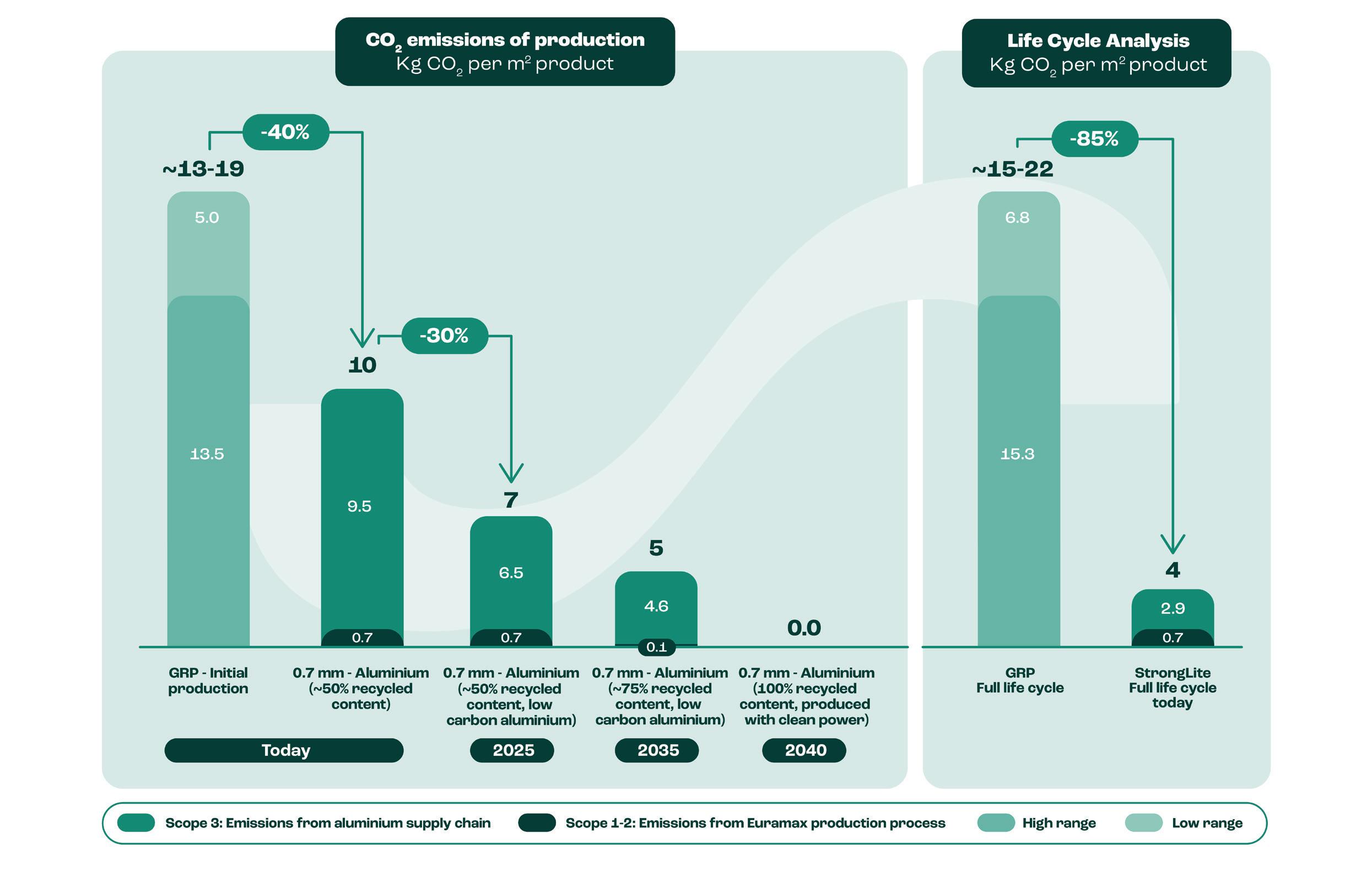
57 In partnership with
Source: Euramax for Mobility
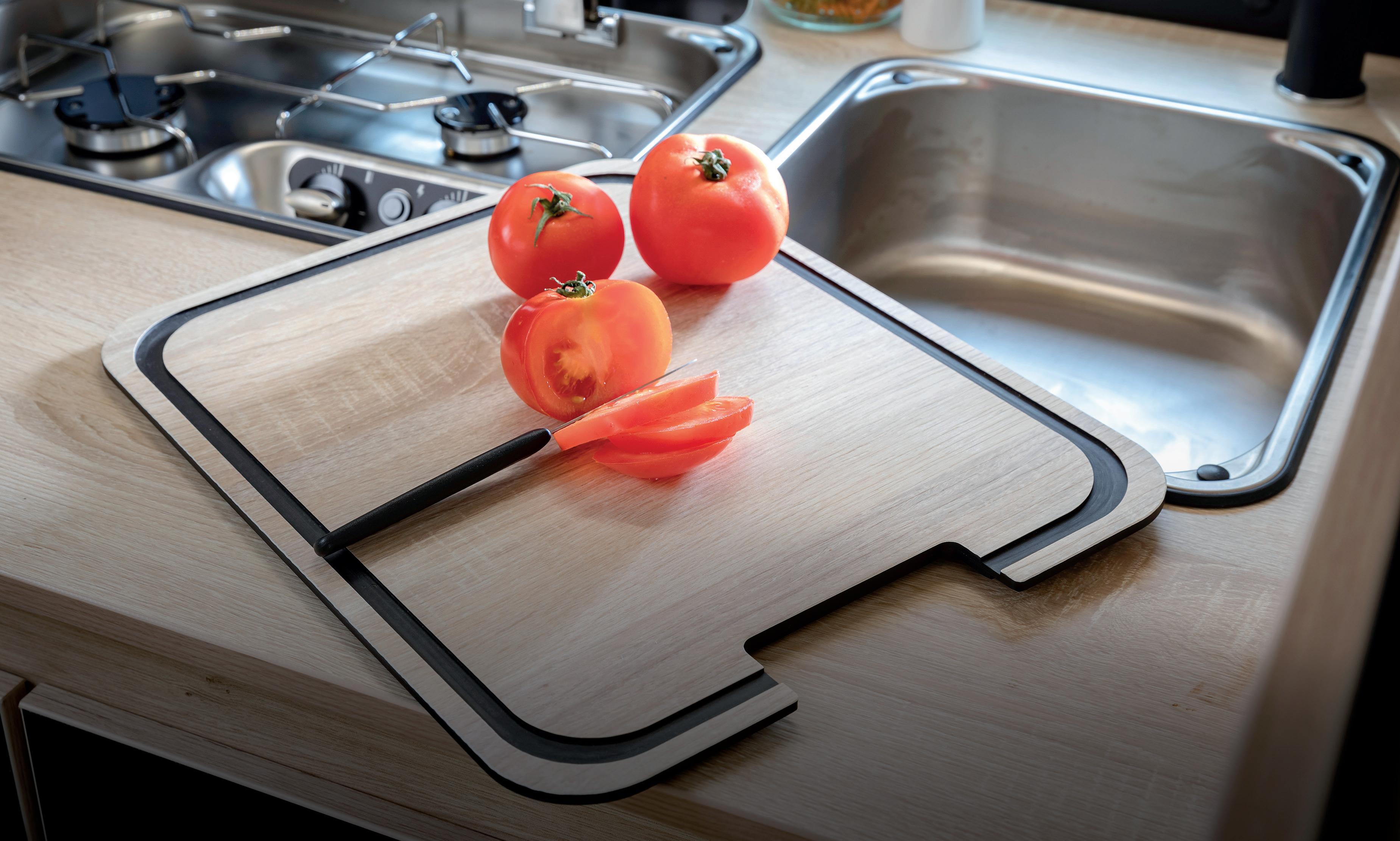
Beyond panels: accessories and furnishing components
The consolidated production of laminated panels is increasingly complemented by the production of furnishing components and accessories for specific areas of the RVs: apparently simple, these are more than just details that combine practicality and design, and are suitable for both OEMs and the after-market
Words Renato Antonini
As every year since 2003, Filippi 1971 is getting ready for the Caravan Salon Düsseldorf, but the company recently also took part in the first edition of Fit Your Camper, which was held from 4th to 7th April 2024 in the pavilions of the Lariofiere center in Erba, near Como. A trade fair that could become strategic for companies in the RV sector: it is in fact dedicated exclusively to accessories and components. For Filippi 1971 the event was an opportunity to gather stimuli and suggestions regarding the supply of accessories and furnishing components to RV manufacturers, yet also of interest to dealers and distributors for the after-market.
“We have significantly intensified our presence on the RV market, – states Francesca Filippi, International Sales Manager of Filippi 1971 – establishing
ourselves among the leading producers of laminated panels for built-in furniture of every type of RV. In addition to this, we provide an industrial joinery service. Working closely with our international customers, we have captured an increasing request to further develop more detailed furniture components and accessories for RVs that could offer functional and aesthetic improvements compared to the existing ones. By combining the technologies present in the company with our availability to accommodate requests for customizable products, we have been able to build up a wider range of accessories and furnishing components, more and more requested by OEMs”.
© Wingamm
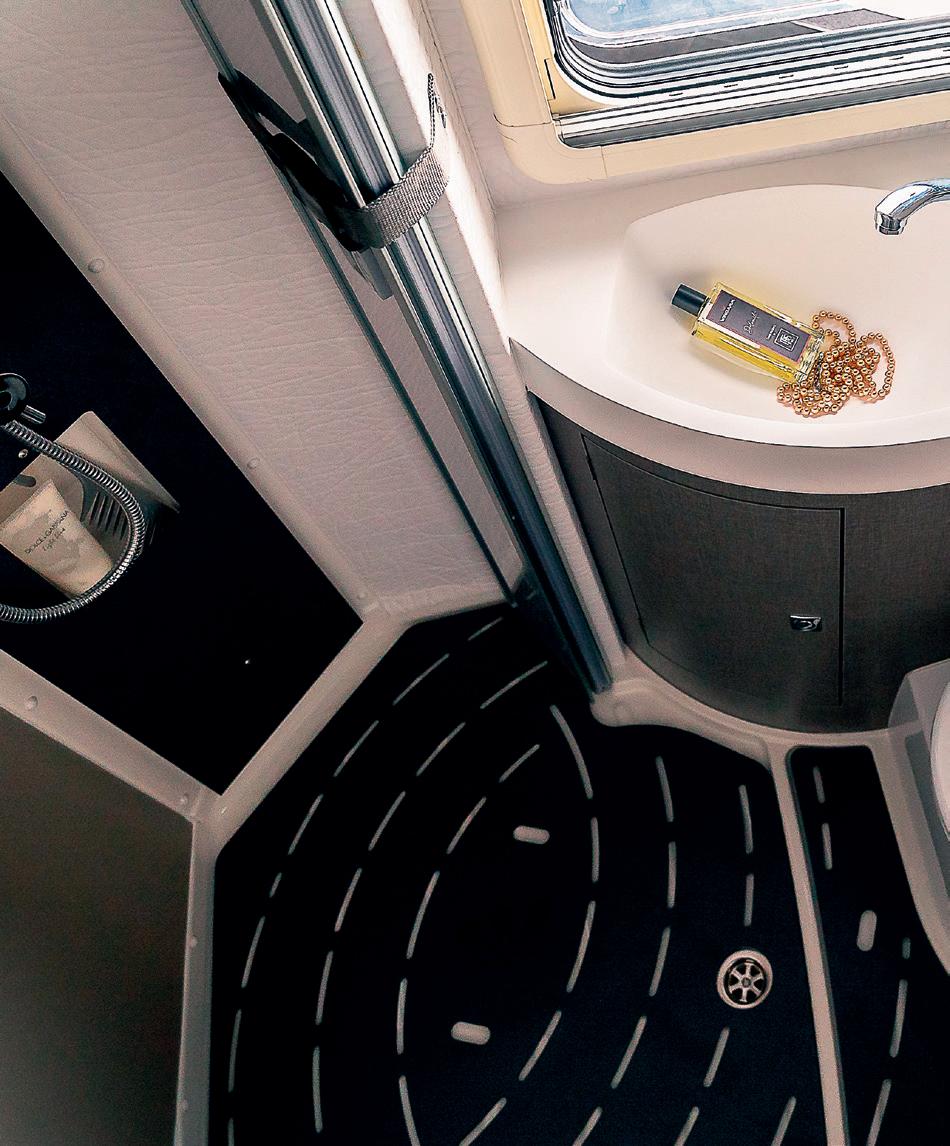
Salvatore Filippi, CEO of the company,
adds: “We are structured to supply large batches to OEMs but we are also able to manage smaller quantities. We have equipped a part of our joinery shop to ensure sufficient flexibility to deal with
58
Company news FILIPPI 1971
© Chausson
Accessories and components
The product range of Filippi 1971 is now very vast: in addition to the core-business production of laminated wood-based panels and complete furniture kits, smaller accessories and components are available. They may be smaller in size but decidedly im portant on a functional and aesthetic level. Here are some examples.
• Splashbacks: VittEr sheet to be ap plied to the kitchen walls, behind the stove and the sink. It has an aesthetic but also functional protective function. A very thin layer of VittEr is used (2 or 3 millimetres), reproducing various digital prints such as marble, geometric textures, fabric effects or tile decoration, even with a 3D machining. VittEr does not absorb water, is easily washable, is heat resistant and does not release formaldehyde.
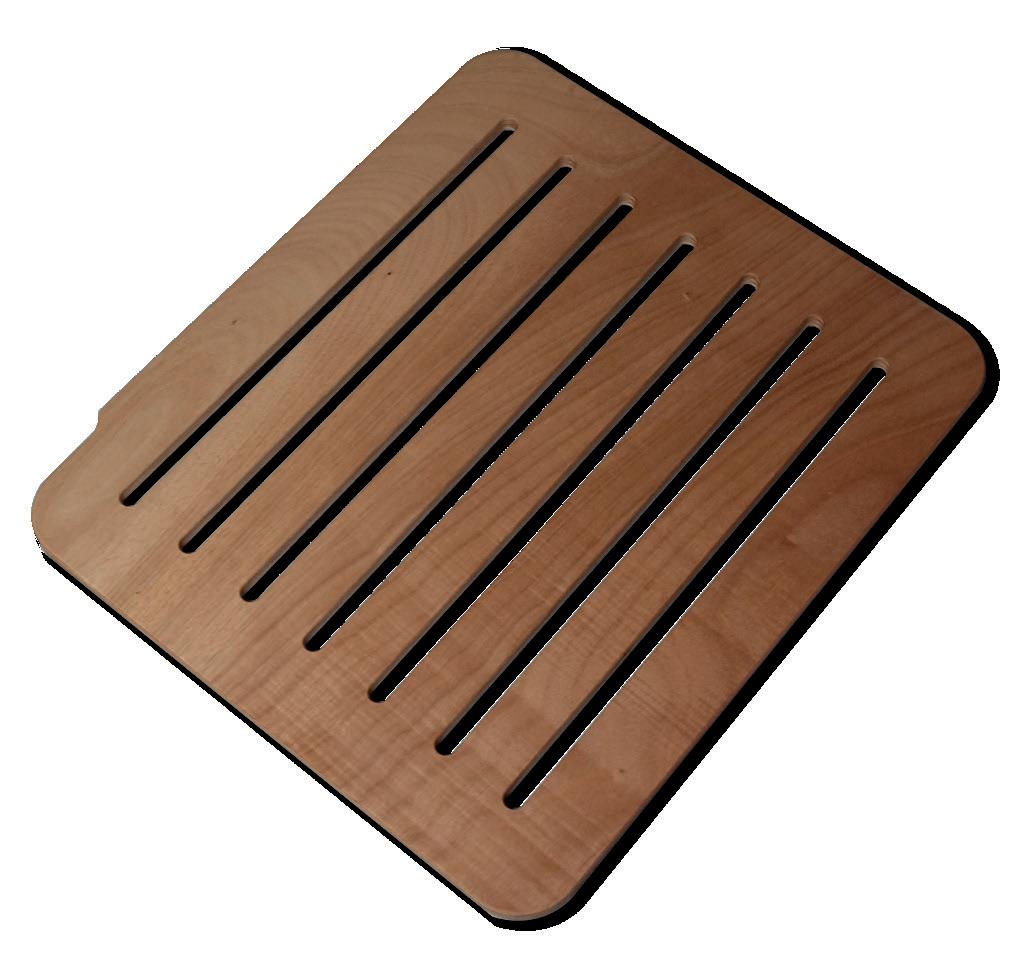
limited requests and mini-series. We work with large European groups involved in the construction of thousands of RVs, but we can also supply furnishing elements in limited batches to small builders and after-market distributors. Each product can be customized, even with an engraved or digitally printed company logo.”
• Shower boards: a simple but increasingly popular accessory, produced in various sizes in durable materials suitable for contact with water, i.e. marine-grade plywood or compact laminate. Customizable colors, sizes and finishes.
• Shower columns: they represent a decorative vertical insert where the taps can be featured, but they can also cover an entire wall. They have an important aesthetic value and are made of VittEr or other stratified materials that do not absorb water and at the same time are hygienic, durable and easy to maintain.
• Lids and cutting boards: various types of stoves and sink lids can be made. The sink cover can be used as a chopping board. A high-performance material such as VittEr is used: suitable for contact with food (food-grade certified), perfectly washable, with high mechanical resistance, does not absorb water and is heat resistant. Various finishes possible, including 3D.
• Shelves: shelves of various sizes can be made, suitable for the kitchen and bathroom thanks to the use of washable, waterproof materials with reduced thicknesses but high mechanical resistance.
Among the products that are gaining more and more popularity there are shower boards in marine-grade plywood or in compact laminate, customizable in shape, thickness and design. But sink covers and splashbacks are also increasingly popular, both made of VittEr, the material exclusively produced by Filippi 1971 which boasts versatile properties: fireproof in class BS2,d0 as well as waterproof, formaldehyde-free and food-grade, therefore an excellent material to be used in the kitchen environment.
Francesca Filippi specifies: “VittEr finds great expressive and functional strength in the kitchens of vans and motorhomes, where attention to even the smallest detail and optimization of space are, more than ever, fundamental requirements for
Filippi 1971 in Australia
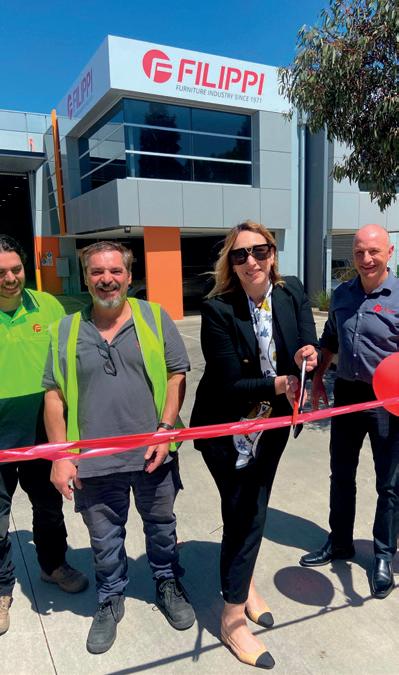

every designer and architect. We can provide VittEr splashbacks with digital printing and customizable, easy to clean and resistant finishes. But, with great design and production flexibility, we also offer tailor-made, easy to maintain sink covers, which increase the usable surface area and add a practical chopping board function.”
In the bathroom, VittEr and the laminates produced and processed by Filippi 1971 can represent the ideal solutions for shower columns and boards, as well as for shelves, enriching the environment with details that add comfort, warmth and practicality.
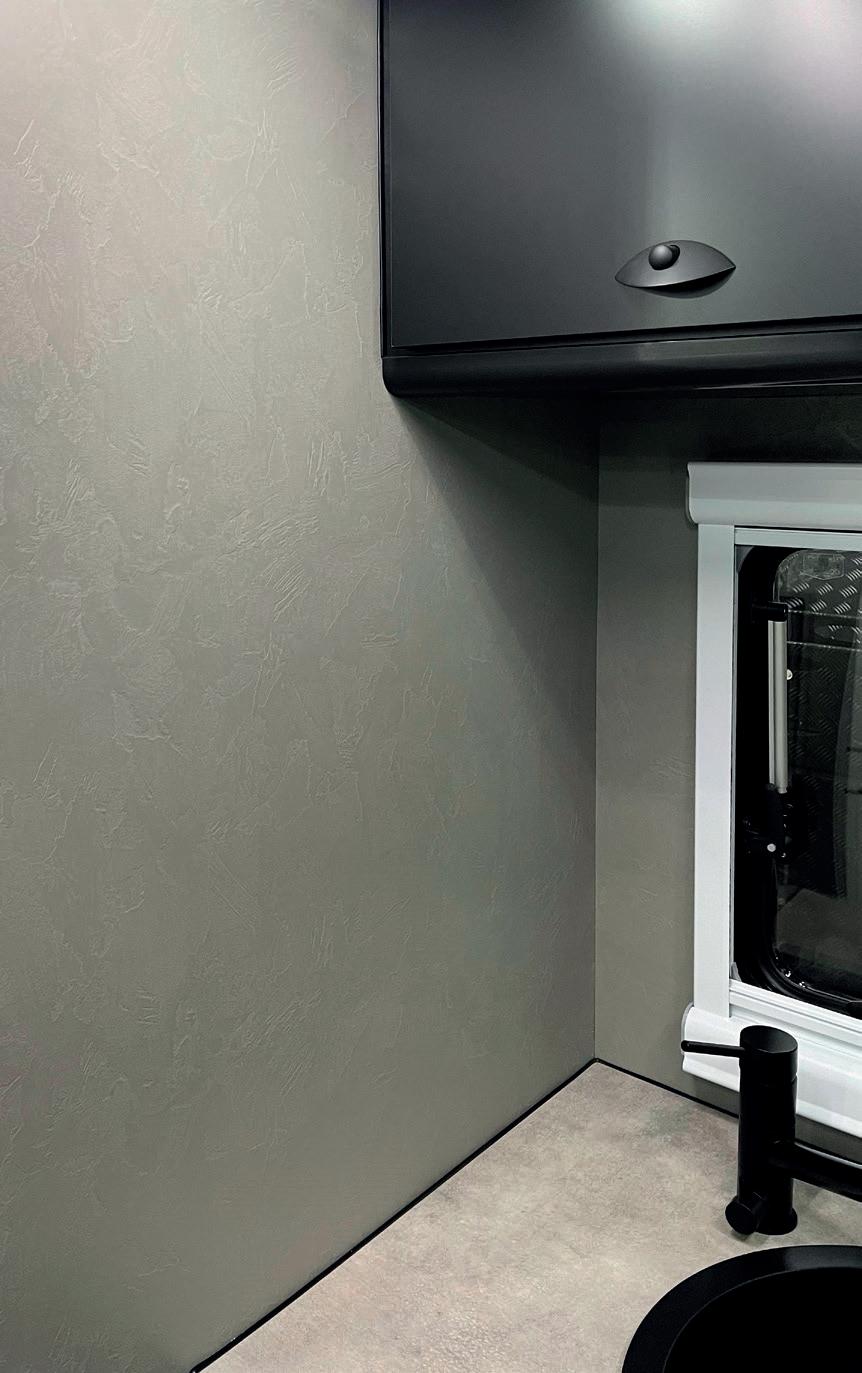
Splashback
Filippi 1971’s consolidated presence in Australia has recently been intensified, with the creation of a branch in Epping, in the heart of the Australian RV district. Founded in Melbourne in 2021, Filippi 1971 Pty inaugurated a new 1000 m2 warehouse in February 2024. An important step, precisely at the time of the logistics crisis due to the wellknown problems of passage of cargo ships in the Red Sea. “The crisis in the Middle East has increased the international transit times of goods, but with the expansion of the Melbourne warehouse we are able to promptly meet the demands of the Australian market, – states Francesca Filippi – being able to count on the availability of tens of thousands of ready-to-deliver panels, as well as providing reassurance for the local market of our strong and regular presence”.
59
VittEr
Shower board in Okoume
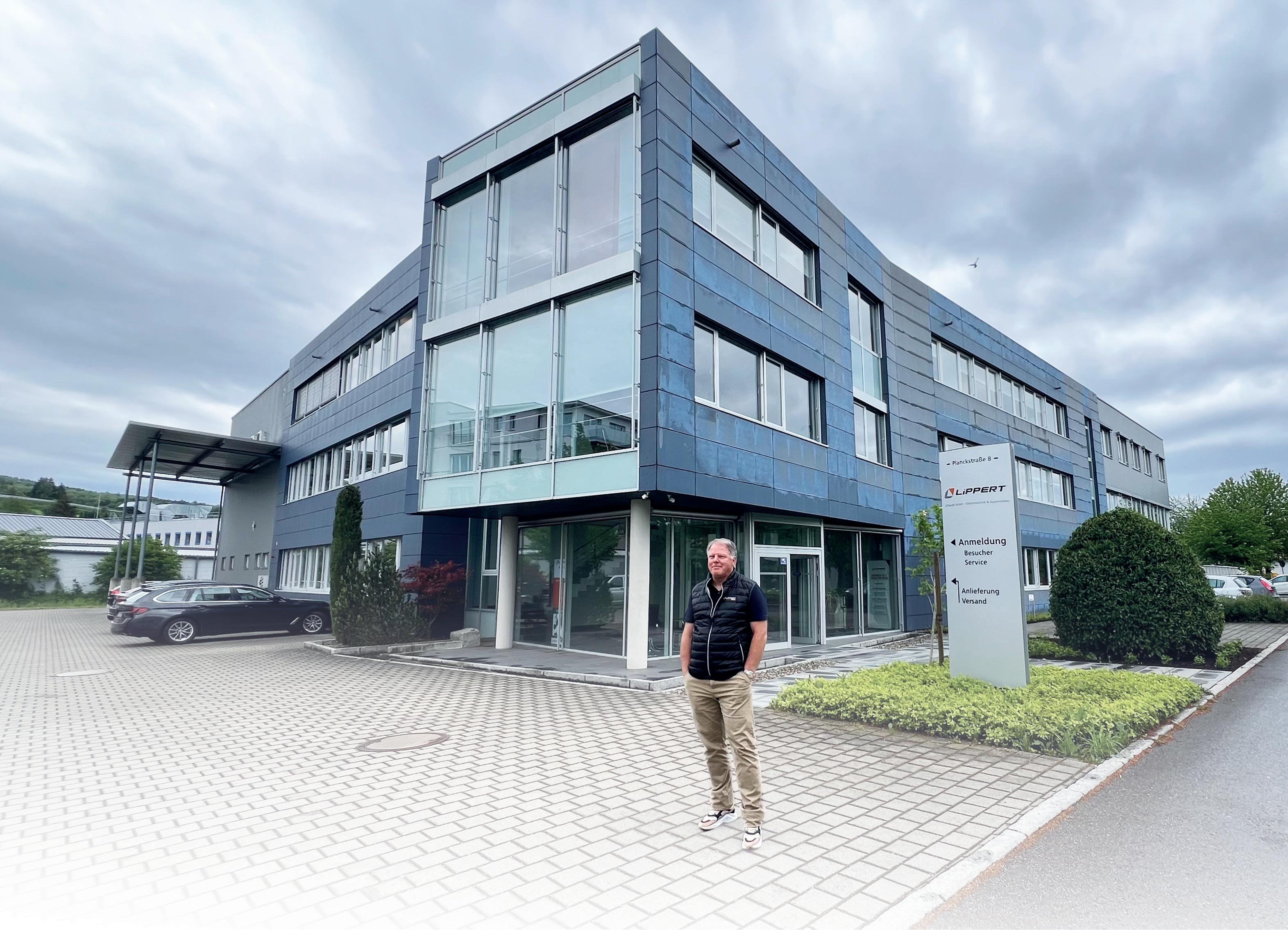
Long-standing reliable partner
Since its foundation in the early 1970s by Erich Schaudt, the company has specialized in creating electronic systems for RVs. With its acquisition by Lippert in 2021, Schaudt has become a vital part of a broader European strategy, continuing its legacy of innovation. We met Ralf Zahn, Product Manager at Lippert’s Plant 317 in Markdorf near Lake Constance
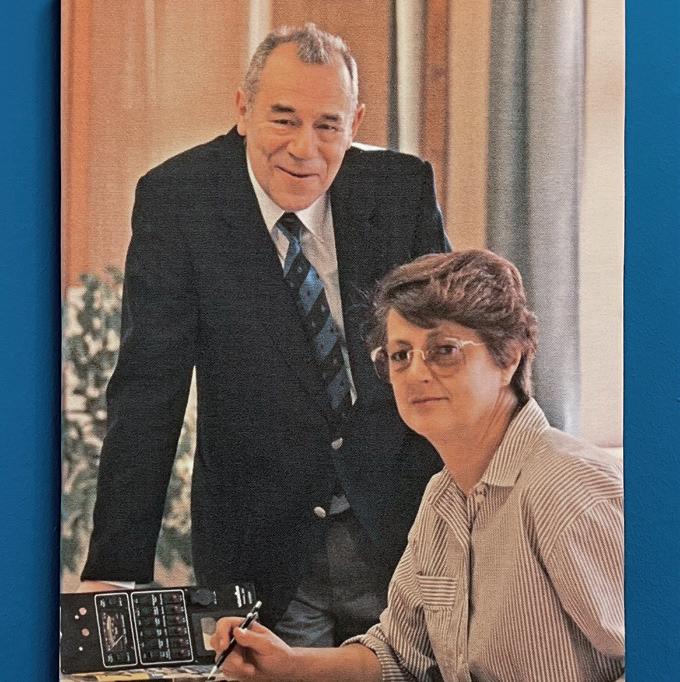
For over three decades, Schaudt has established itself as a leader in the German recreational vehicle market, thanks to its sophisticated monitoring and controlling systems that enrich the RV experience. Schaudt’s product lineup is distinguished by its comprehensive range of electronic systems for recreational vehicles, including 230V AC to 12V DC battery chargers, 12V system control panels, solar charge regulators, water tank level measurement accessories, battery monitors, 12V boosters, and lighting dimmers and switches. Their
systems are known for their reliability, ease of use, and capability to be customized to both the vehicle requirements and the user’s comfort needs.
Aboutcamp BtoB: Let’s start from the beginning.
Ralf Zahn - Erich Schaudt founded his company in the early 1970s. Initially, he recognized that RV and caravan builders needed a dedicated power supply, especially as electric pumps for water tanks began to emerge and lighting still predominantly used propane. This insight led to the idea of electrifying
60
Company news LIPPERT
Erich and Ursula Schaudt
Words Giorgio Carpi
these components, ensuring a consistent supply voltage of 12 volts to safely power devices like water pumps.
Tabbert was among the first to conceptualize this, and Erich Schaudt was pioneering in creating such power supplies early on, establishing Schaudt as a key supplier. Erich started his venture from his own basement. From these humble beginnings in the basement, the business expanded and eventually moved to Kluftum, a small village close to Markdorf. About a decade later, he purchased a building in Markdorf right below his house. Ten years after that, the company relocated to Daimlerstrasse, and in 2008, a building was constructed specifically for Schaudt. In the early days, deliveries were personally handled by Ursula Schaudt, who would load the equipment into her car with her children, Barbara and Thorsten, and deliver it to the Hymer Group in Bad Waldsee. Intriguingly, Barbara has been involved in the business since her childhood. She officially joined the company in 1988, began her studies in business administration in 1989, and was appointed co - CEO by Erich Schaudt in 2003, together with Armin Steinmetz, that is still the CEO. From then until Lippert’s acquisition in 2021 the company’s volume grew by 300%, with a significant boom during the COVID period, a surge that was beyond anyone’s expectations.
Aboutcamp BtoB - How is the management of Schaudt currently structured?
Ralf Zahn - Armin Steinmetz, who has been the co-CEO from nearly the beginning, is still managing the company. It’s important to acknowledge him as he is the mastermind behind all the circuitry in our facto ry. He has designed nearly all the systems we currently use, including the EBLs and the charge boosters. Armin has played a crucial role in our success, just as Barba ra has. During our period of significant growth, Barbara managed customer relations and overall management, while Armin was responsible for developing all our equipment.
Barbara is no longer part of the “man agement team” however, she is still working in the plant and leading the D365 project, an ERP system implementation. We are transitioning from an outdated IBM system to Dynamics 365, which is used by Lippert Worldwide. This shift requires meticulous
integration of our company’s processes, which need to be clearly defined and structured. Barbara manages this critical transition because her deep understanding of the company is unparalleled.
And we have a General Manager “ad interim” who joined us three months ago. Bringing him on board was a strategic move by Lippert, benefiting from his extensive experience across various industries. Although new to the RV industry, his broad managerial experience is invaluable. Whenever a new problem arises, his insights often provide fresh perspectives, helping us view challenges differently than we might internally. This external input is something I particularly value.
Aboutcamp BtoB - What changes have occurred since Schaudt became part of Lippert?
Ralf Zahn - Since Schaudt was acquired by Lippert, a number of significant changes have taken place. The primary reason for the sale by Barbara and Armin to a large multinational was the need to meet the demands of OEMs that are sometimes challenging for a smaller company. For instance, an order increase from 2,000 e-panels to 12,000 on short notice can be daunting for a family-owned business. Being part of Lippert now means we have the backing for substantial investments and the ability to scale operations rapidly to meet such demands. Additionally, although our collaboration with Lippert’s US electronic companies is limited due to different regulatory environments, particularly in data management, it opens potential avenues for us to enter the US market or introduce US products

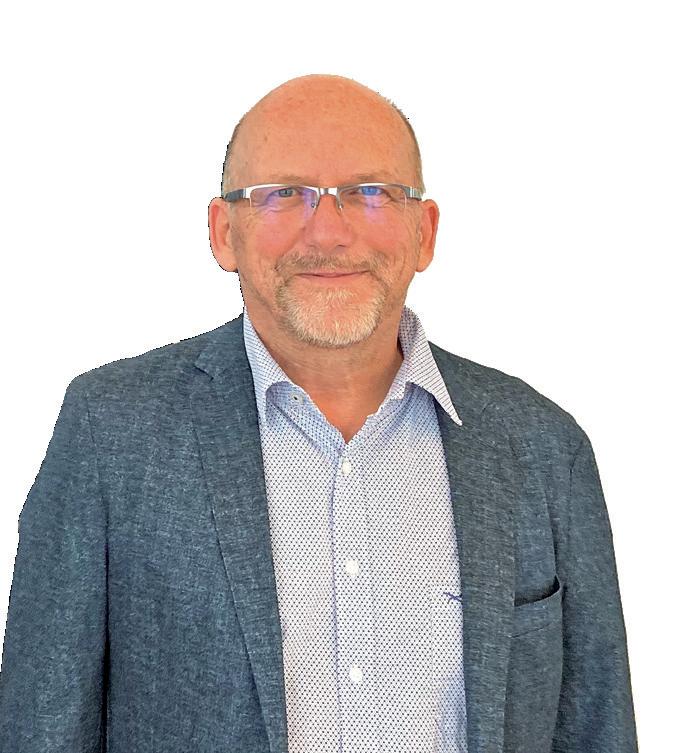
Ralf Zahn - I began my professional journey about 37 years ago, initially working in technical documentation for a small company in Friedrichshafen. I then spent many years with MTU, which is now known as Rolls Royce Power Systems. They manufacture diesel engines for a variety of applications, including boats, yachts, and power containers for electricity. My father also worked for this company when it was still called MTU (Motoren und Turbinen Union) Friedrichshafen. My role there was primarily focused on documentation, which I did for about 20 years, gaining extensive experience in electronics, particularly in BUS systems. I initially joined Schaudt to handle documentation but soon took on responsibilities related to regional affairs, including ECE R10 certifications and GS certifications for some of our products.
I’ve been with Schaudt since 2008 and transitioned to a full-time role and took on the product manager position at the beginning of this year. My job encompasses more than the typical duties of a product manager since I’m also actively involved in the development and strategic planning for our systems. I work on creating systems and developing ideas for OEMs, particularly focusing on future directions for power supply systems.
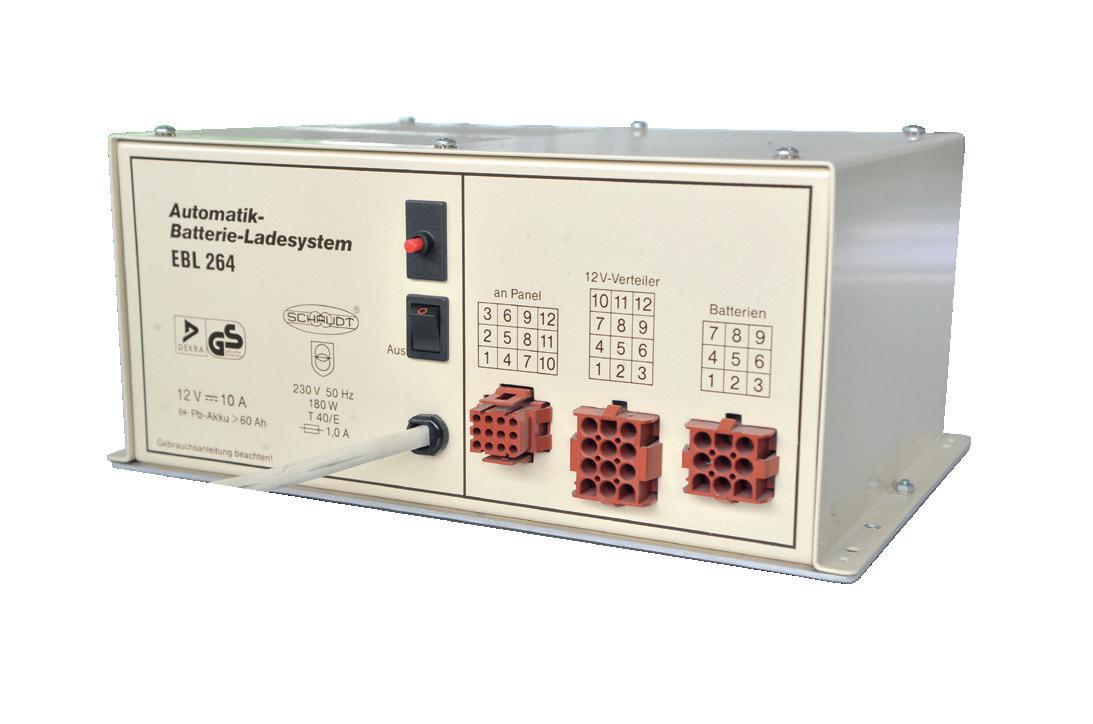
Above: EBL as designed in 1980
dynamics of international markets and the stringent regulations like Europe’s DSGVO that govern data usage.
Aboutcamp BtoB - What’s your past experience and what is your role here at Schaudt?
Aboutcamp BtoB - What are these future directions?
Ralf Zahn - The future directions for our power systems, for instance, are focused on developing a modular, integrated approach that simplifies installation and enhances functionality within recreational vehicles. Currently, we are collaborating on a project, which involves creating a unified system that seamlessly integrates various power generation methods. This includes har-
61 In partnership with
Armin Steinmetz
Company news LIPPERT
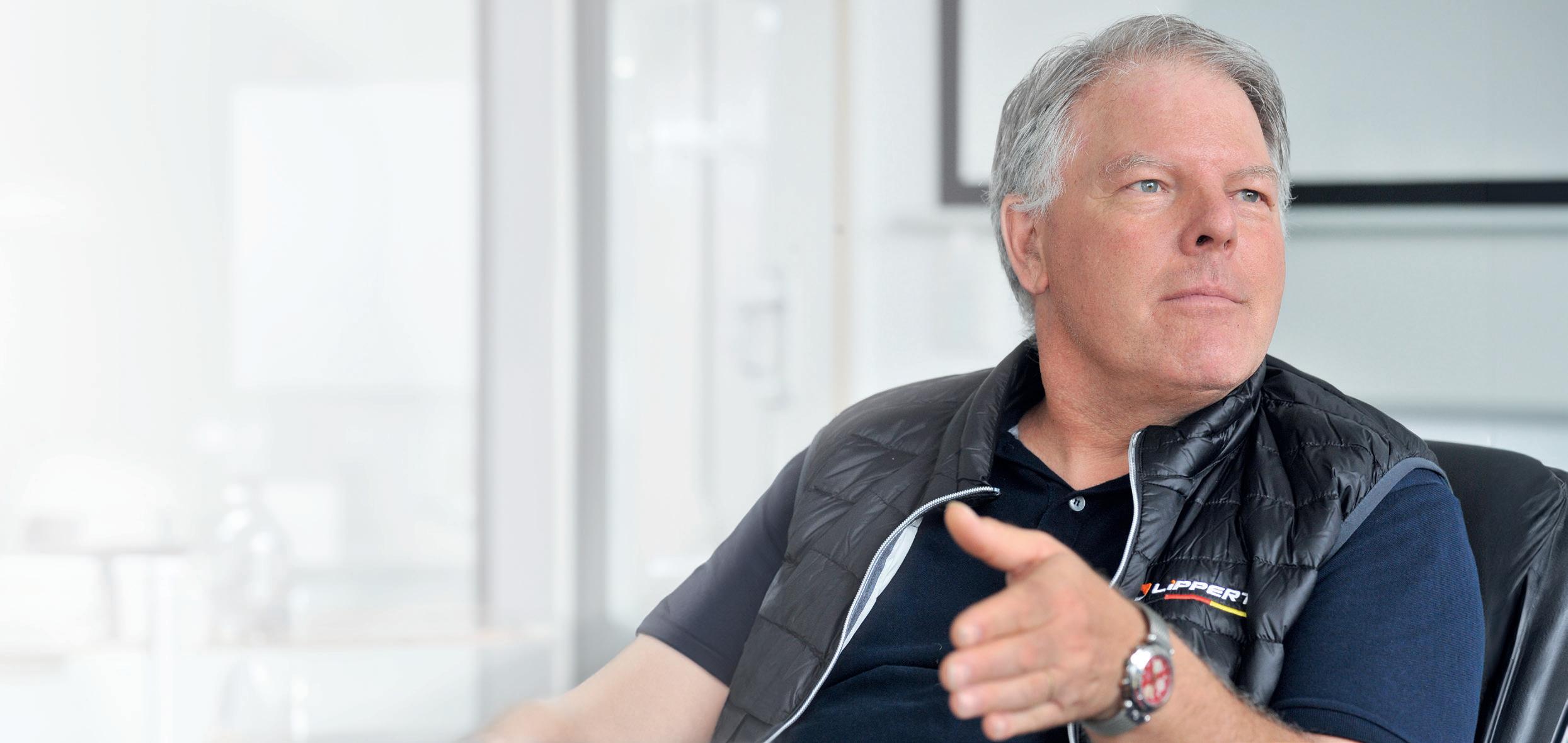
nessing solar energy while stationed at campsites, utilizing the vehicle’s engine for charging during travel, and connecting to 230 volts for additional power sources, ensuring that the leisure batteries are consistently fully charged.
Presently, our products, like the EBL (Elektroblock), chargers, and boosters, are housed separately within the RV, requiring multiple installations and extensive cabling. The next step is to develop a compact modular system where all these components are housed together, minimizing the need for extensive cabling and space. This integrated system not only reduces the weight due to fewer cables but also simplifies the setup process—essentially, it’s a plug-and-play solution that can be easily integrated into the vehicle’s existing wiring harness. This innovative approach aims to cut down on installation time and costs, save space and weight, and improve overall efficiency and reliability of power management in RVs. While we haven’t officially named this integrated product yet, it represents a significant leap forward in our design and manufacturing philosophy.
Aboutcamp BtoB - Do your products work with CI-BUS?
Ralf Zahn - Yes, our products are fully compatible with CI-BUS. We offer both traditional systems and CI-BUS integrated solutions. Our conventional systems have been in use for many years, featuring a panel connected to the EBL by 8 or 10 wires, which handle the crucial signals. Additionally, tank probes connect directly to the panel. On the other hand, our CI-BUS system includes an EBL that is designed to comprehend CI signals. This setup al-
Ralf Zahn
lows for the effective management of lighting and other electrical loads within the RV, including dimming lights and turning devices on or off. Importantly, our system integrates seamlessly with Truma heaters and air conditioners, all controllable via a single panel. This eliminates the clutter of having multiple panels—often found above the door with three to five different con-
“By collaborating with ECF and CIVD on a unified bus system, we aim to simplify these integration challenges and pave the way for a more unified and efficient future in RV manufacturing.”
trols—replacing them with just one, such as the DT740 touch panel.
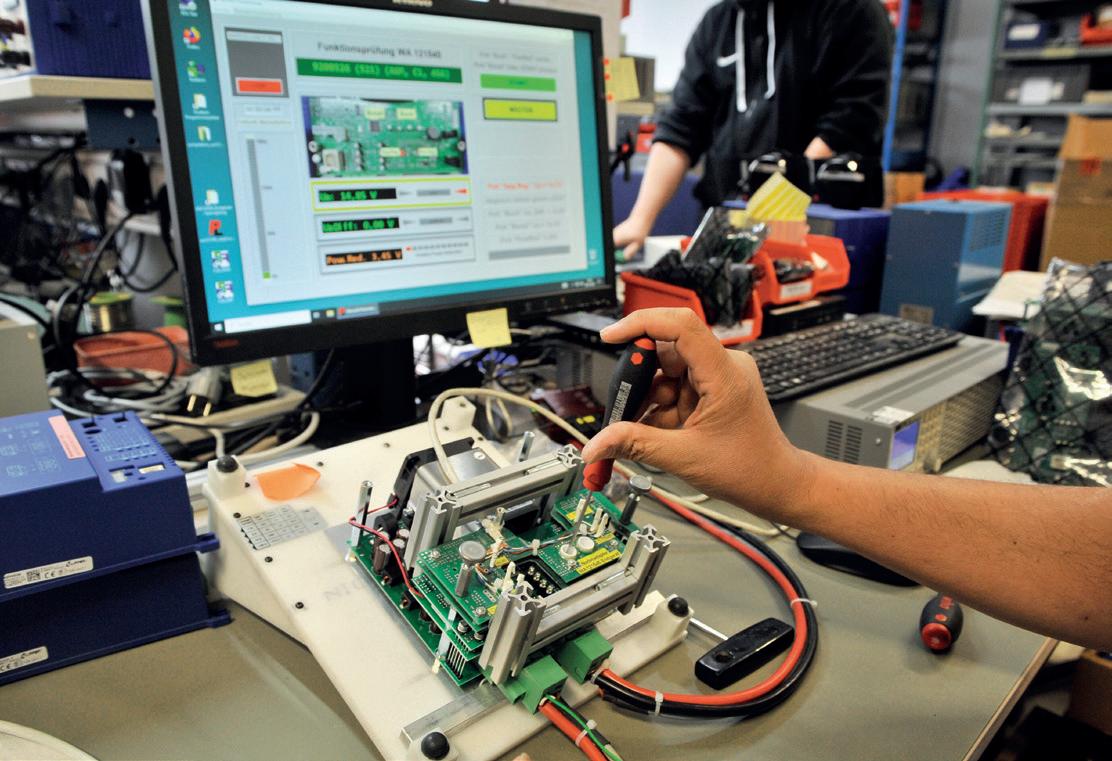
We will showcase these capabilities at the upcoming Caravan Salon, where attendees can see firsthand how our system, through a single panel, can control not only Truma devices but also other CI-BUS-compatible systems like leveling systems or refrigerators.
Aboutcamp BtoB - Is the CI-BUS, in your opinion, still the best solution for the RV Industry?
Ralf Zahn - As Lippert, we are involved in the ECF project, which focuses on the future of RVs and the bus systems we will use. Currently, the CI-BUS system is limited as it supports only up to 32 components, which is often insufficient because it fills up the available addresses quickly. Moving forward, we are likely to transition to a specialized form of CAN bus that can accommodate several hundred devices, similar to the systems used in modern automobiles.
We are advocating for an open CAN BUS that would be accessible to all manufacturers, akin to the automotive industry’s SAE J1939 bus. This system works nearly flawlessly; for instance, you can purchase a speed sensor from one supplier and a speed gauge from another, connect them, and they will function together seamlessly because the bus telegrams are precisely defined.
The goal for an RV-specific CAN BUS is similar. We envision a system where, for example, our display could recognize a specific bus telegram as the battery voltage. If all suppliers adhere to this standard, it would allow different manufacturers’ systems to interconnect effortlessly. This would be a substantial benefit to OEMs, reducing the complexity of integrating various components from different suppliers. Currently, address conflicts can occur if two suppliers use the same address
62
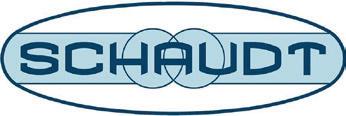

1975
Founded by Erich Schaudt 2021 Lippert acquires Schaudt
on the LIN-BUS, requiring coordination and reprogramming, which can be error-prone and labor-intensive.
By collaborating with ECF and CIVD on a unified bus system, we aim to simplify these integration challenges and pave the way for a more unified and efficient future in RV manufacturing.
Aboutcamp BtoB - Are companies that manufacture accessories truly interested in allowing third-party control of their products through the CI-BUS standard or similar future standards?
Ralf Zahn - Indeed, it’s a challenging issue. The pressure from RV OEMs to adopt a standardized approach is so significant that it leaves us with little choice. To remain competitive in the market, one must align with these evolving standards. In Germany, there’s a saying about ‘cooking your own soup,’ which implies doing things your own way, but in this industry, customization to each OEM’s specifications is becoming a necessity. I’m confident that acceptance of open standards will grow in the future.
In the marine sector, for example, the
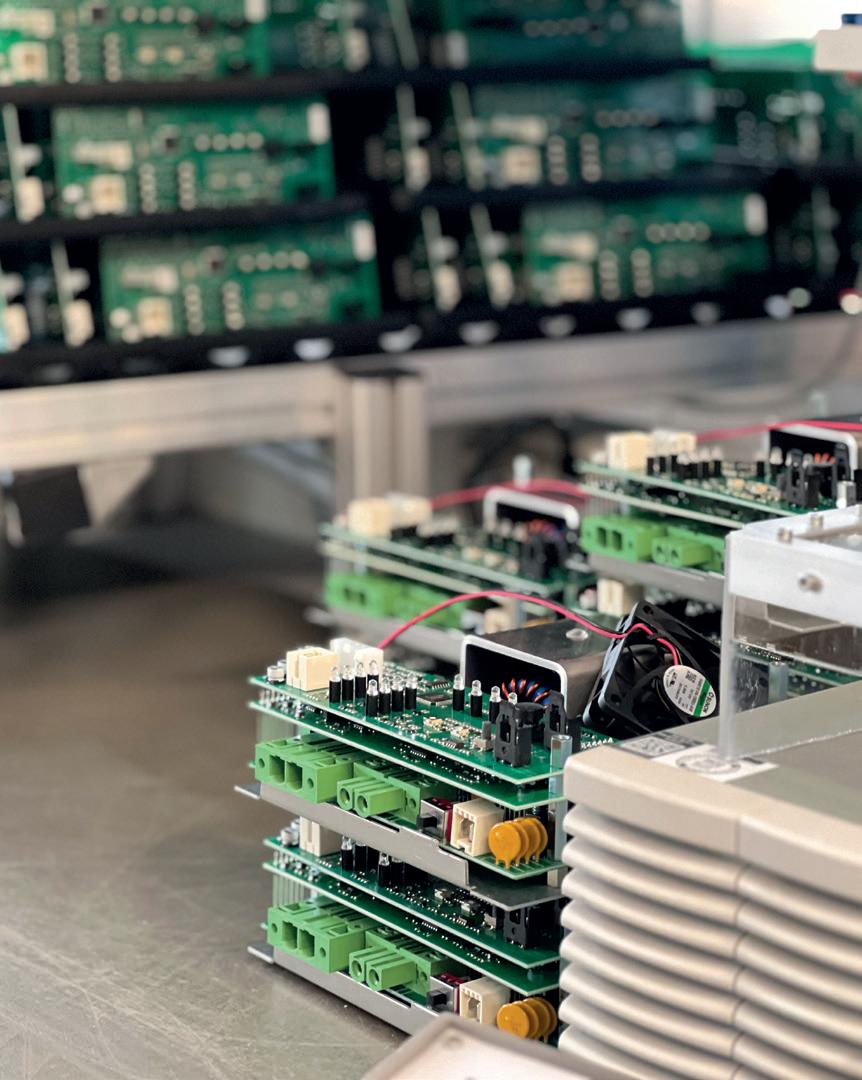
2023 Schaudt is rebranded as Lippert
NMEA 2000 (N2K) standard allows for seamless integration of devices from multiple suppliers, ranging from sensors to displays and control devices.
The NMEA acts similarly to organizations like the ECF or the CIVD, overseeing and approving integration standards.
Aboutcamp BtoB - Given that the electronic system is crucial for motorhomes and caravans, and considering the need for reliable partners and strong aftermarket support, do you think there is room for small companies in this market in Europe?
for excellent aftermarket support. It can indeed be expensive to replace entire systems due to a fault in one part. We have maintained a practice of supporting products dating back to their inception in 1981. We keep extensive records, such as drawings from as early as 1981 and 1982, which allows us to find solutions for even the oldest panels or EBLs. Whether it’s installing a new unit or a repaired one, our goal is always to ensure the end customer is satisfied. This deep commitment to service and support defines our role in the industry and underscores the
“Whether it’s installing a new unit or a repaired one, our goal is always to ensure the end customer is satisfied. This deep commitment to service and support defines our role in the industry and underscores the importance of choosing experienced, reliable partners for critical RV components.”
importance of choosing experienced, reliable partners for critical RV components.
Ralf Zahn - Opting for electronic components from lesser-known or generic manufacturers, especially those with no support, like some produced in China, isn’t advisable for RVs. The longevity of RVs often exceeds that of many electronic components used within them, making robust support and reliable service essential. We have a distinct advantage at Lippert, partly due to our long-standing reputation
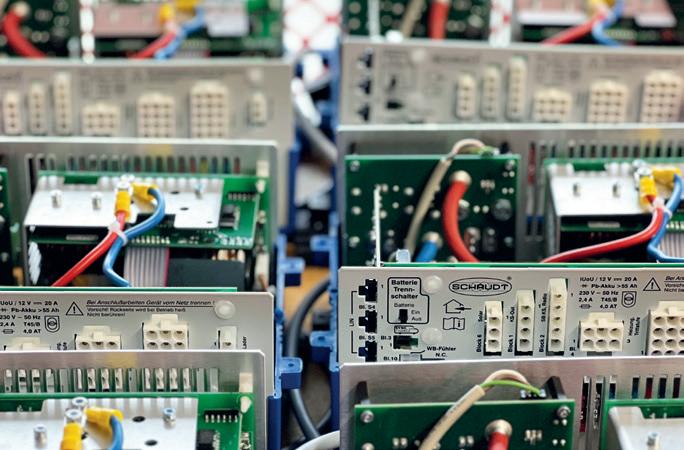
Aboutcamp BtoB - Are you currently working on integrating connectivity and smartphone devices into your products?
Ralf Zahn - Yes, we are developing an exciting project involving an integrated EBL that allows for connectivity between the Rv’s display and a smartphone app without the need for cloud services. This system ensures direct communication between your mobile device and your vehicle, which is a significant advantage. For instance, typical systems might rely on cloud data, which can lead to issues like being locked out of the vehicle if the cloud service is down. Our technology uses Bluetooth for nearby connectivity and GSM for longer distances. We’re looking forward to showcasing this innovative approach at the upcoming Caravan Salon.
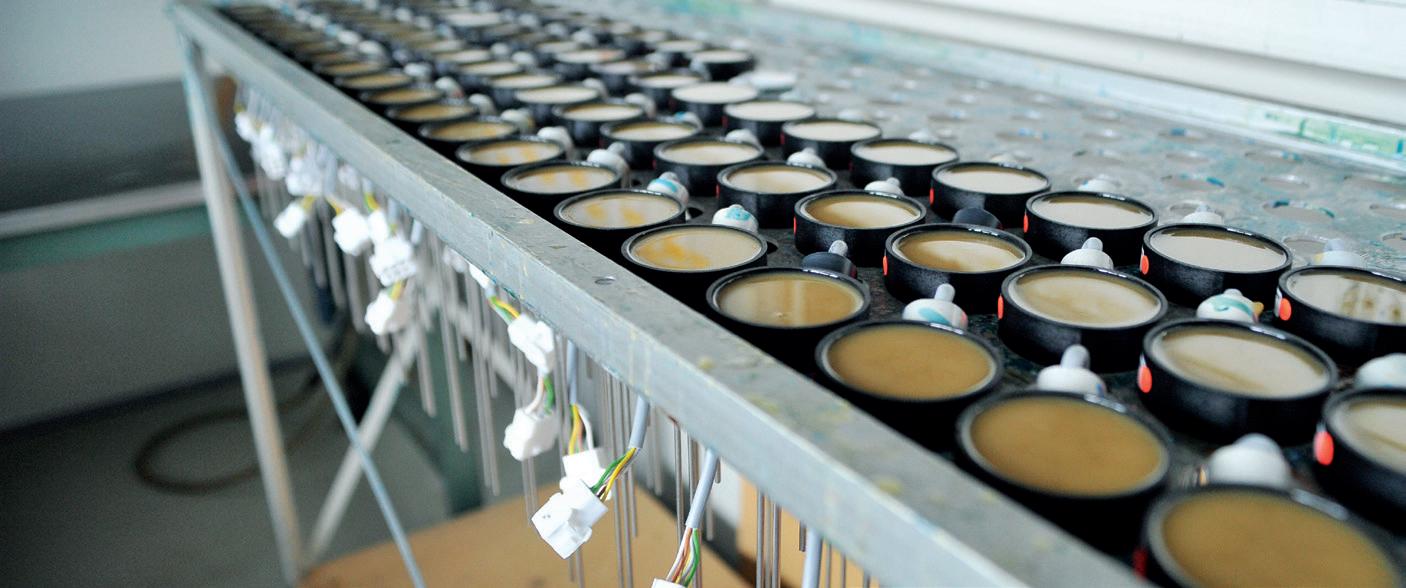
63
DESIGN
All the forces at play
The company has been making significant investments in facilities and machinery to create new product ranges and also in human resources to be ready to take on all the future challenges that are coming its way
Words Renato Antonini


It was a fruitful year for Bartolacci Design and the company is off to a dynamic and well-organised start to tackle the 2024-2025 season. There has been a lot of innovation both in the area of facilities and in the area of human resources. Well-established in the RV sector, where it makes most of its profits, the company has been branching out to other markets for many years with 80% of its production destined for export. Business has been moving along two tracks that often meet since 2015. The time-honoured production of interior lighting elements (lamps, ceiling lights, spots and LED strips) has been complemented by the ever-increasing production of elements made of methacrylate and other plastic materials for interior decoration, from simple shelves to entire equipped walls for bathrooms and kitchens.
“We have successfully concluded this year’s work with a turnover growth of around 20%”, said Andrea Bartolacci, owner of
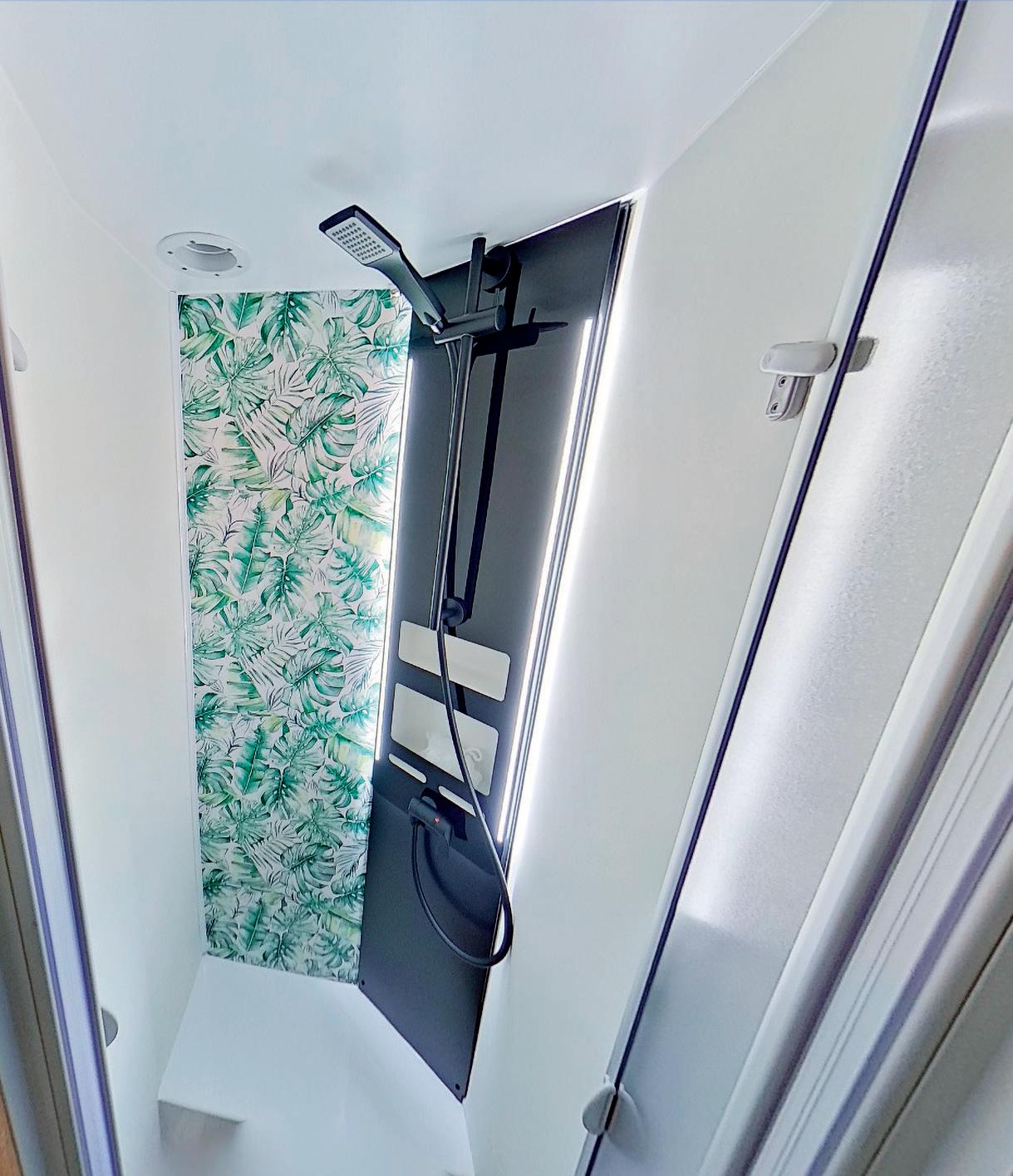
Bartolacci Design. “Sales have increased and the number of products in the catalogue has also been expanded. This is just the beginning because we have put all our forces on the field to be well-prepared to tackle the coming years. We have invested in facilities and machinery and new people have joined the sales and customer service teams. Furthermore, we have hired a new technical manager”.
Reorganised space and machinery
Bartolacci Design increased its production space opening
Technical drawings for the new Spotlight line
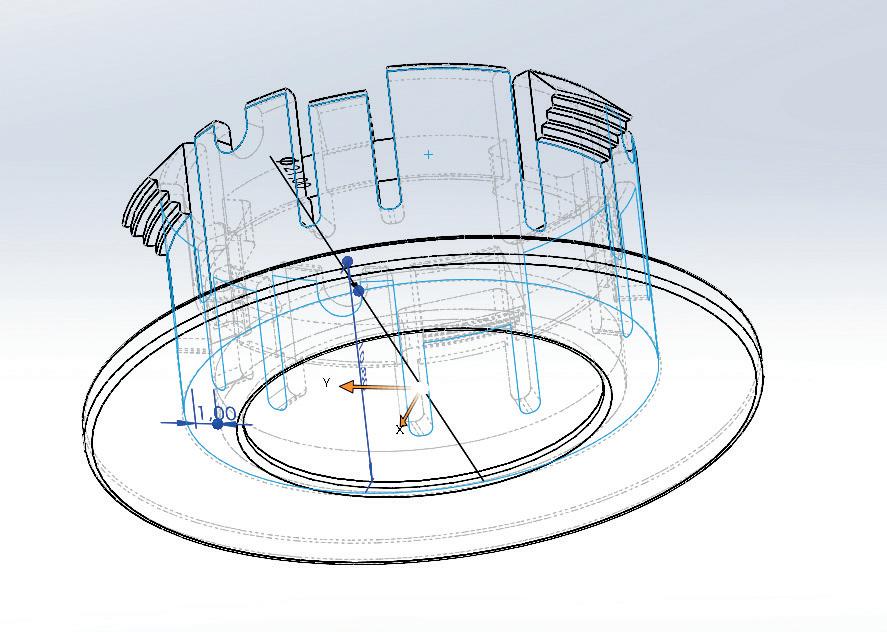
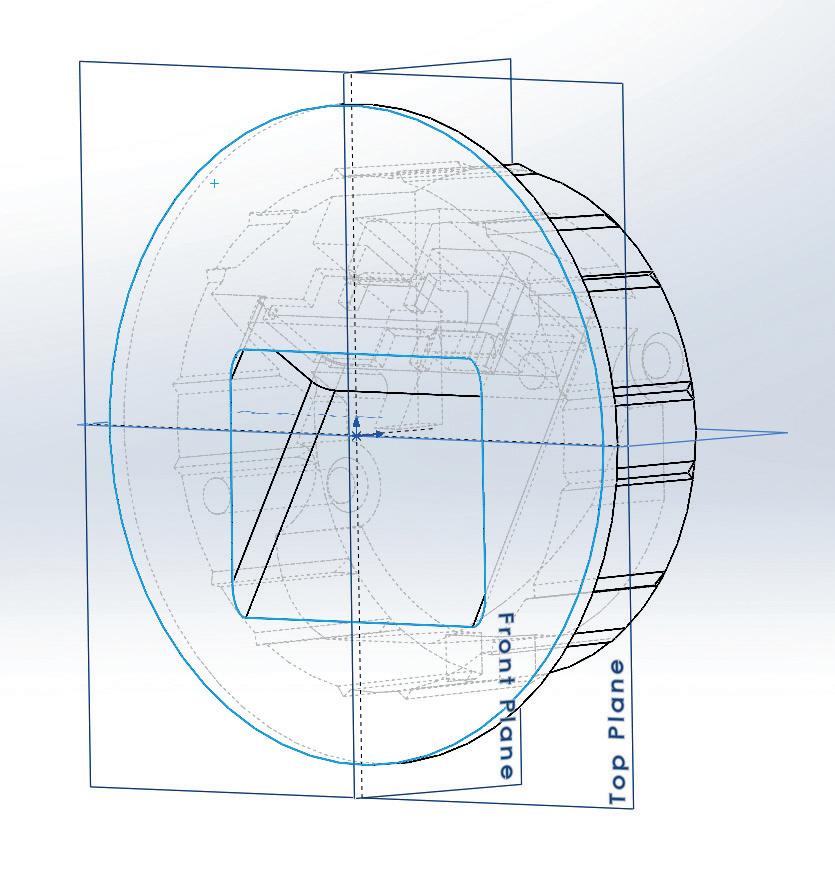
64
Company news BARTOLACCI
Eura Mobil shower column
Left: Monica Loesch and Marco Giannelli
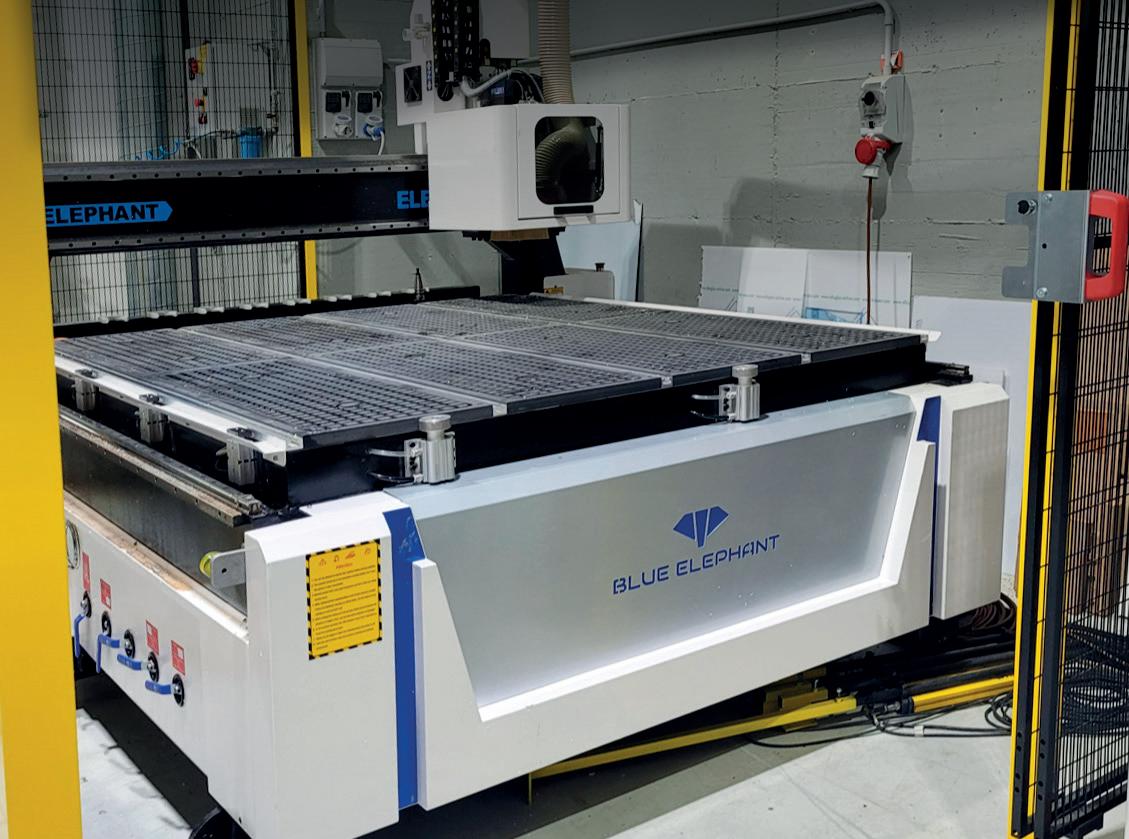
a new industrial building next to those already in operation in early 2024.
The 15% increase in floor space was a move designed to install new production lines for new ranges of RV accessories and furniture components.
All the buildings are owned by the company. New machinery made to Bartolacci Design’s specifications was added to increase and differentiate production. The recently purchased CNC pantograph was commissioned and a thermoforming machine was installed. A special machine for the automatic cutting of LED strips was also purchased, together with wiring equipment and a multi-core wire cutter-stripper.
New people
A major investment was made in human resources, bringing in experienced people who have plenty of experience in the RV industry, to prepare to meet future challenges. Marco Giannelli joined the sales area as Sales
Manager for the areas of Germany, UK, Italy, Austria, Switzerland, Eastern Europe and Japan. He is assisted by Monica Loesch, a native German speaker, who will mainly take care of the German market, including customer service and after-sales. Several new agents working locally have also been hired. Jason Dalton will deal with relations with manufacturers in the UK, while in Japan there will be support from NJY, which already distributes Bartolacci Design products in the nautical sector. Lorenzo Maggini, who has been with the company for years, will continue to be responsible for sales in three strategic areas: France, Spain and Slovenia.
“We have decided on a major reorganisation,” continues Andrea Bartolacci. “The support of Marco Giannelli and Monica Loesch will be key to following the crucial German market, allowing us to be very close to existing and potential customers. But the UK and Japanese markets can also be
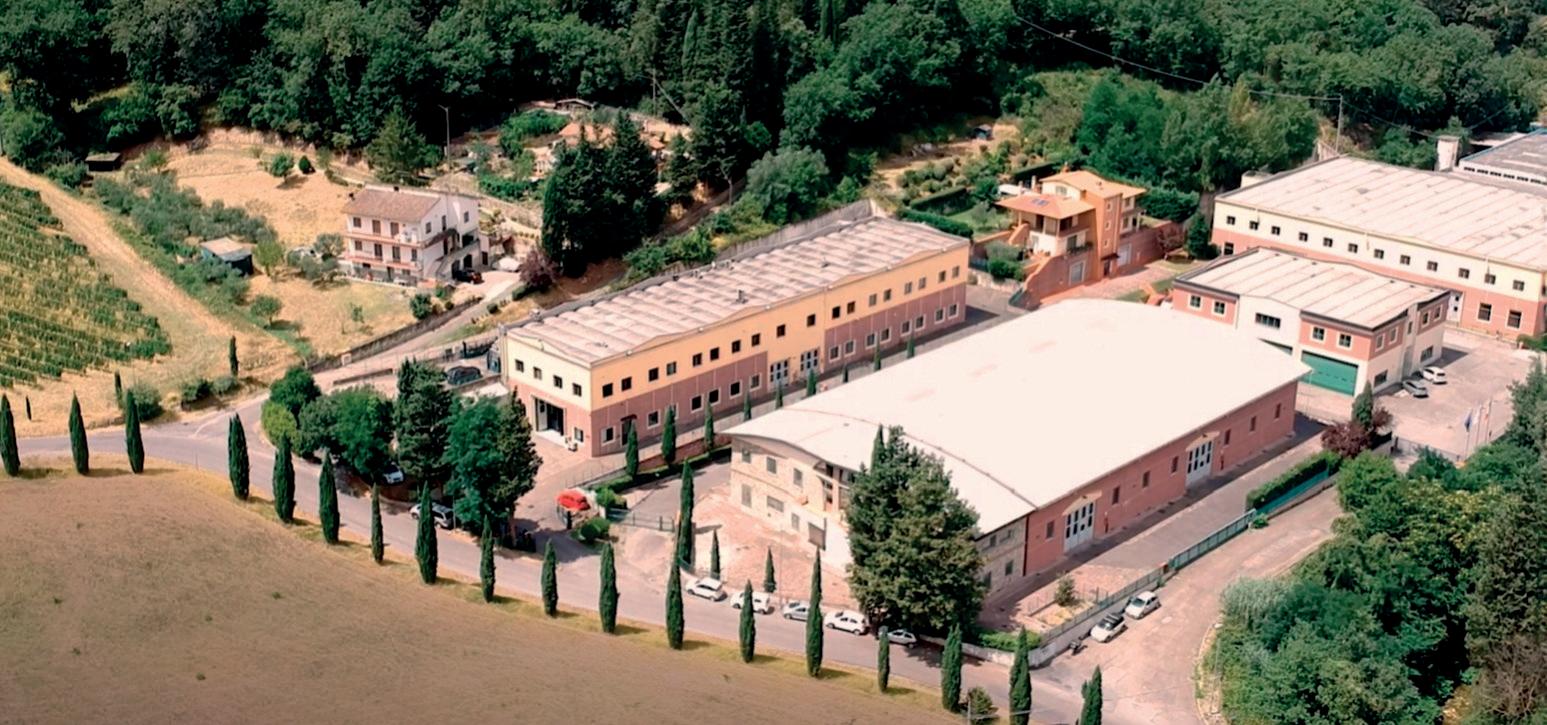


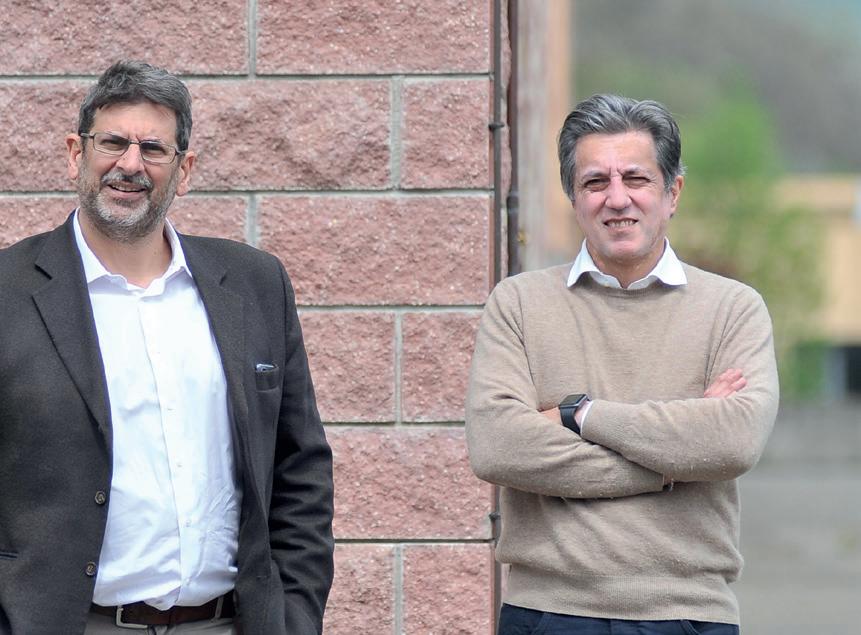
bolstered and I am sure that with this new organisation we will be able to do this very well”.
Last but not least, Davide Bambi has joined Bartolacci Design as the new technical department manager. He has had significant experience in the creation of products for shop windows and showrooms, particularly in the field of textiles and fashion. and will be in charge of developing new products.
New products coming soon
New facilities, new machinery and new people. That is not all because there will also be new product lines and new materials.
“We are engaged in a constant search for new materials capitalising on our experience in the furniture and fashion industry”, said Andrea Bartolacci. “I believe that interactions with other sectors can certainly bring innovation. For example, we offer a lightweight, scratchproof, waterproof and fireproof technopolymer called RV.Plus”.
The new material joins methacrylate, which is widely used for Bartolacci Design’s lines of accessories and furniture components. RV.Plus can have various decors (wood, stone and concrete, for instance) with a glossy or matt finish. The material will be used to make wall units, bathroom panels, dinette walls and more. Particularly noteworthy new products include new small recessed lights with direct or indirect light diffusion will be presented at the fair at the end of August. There will also be new T-profile light guides, the Square ceiling luminaire and the Minitrack linear track system with small adjustable spotlights for precise and effective lighting management. Finally, a new production line was opened for making a range of Side Markers to be applied to the outside of vehicles to signal their clearance. A variety of customisation possibilities will be offered.
65 In partnership with
Lorenzo Maggini and Andrea Bartolacci
Pantografo CNC
Bartolacci Design headquarters near Florence
Agility and innovation: the competitive edge of the medium-sized Teleco Group
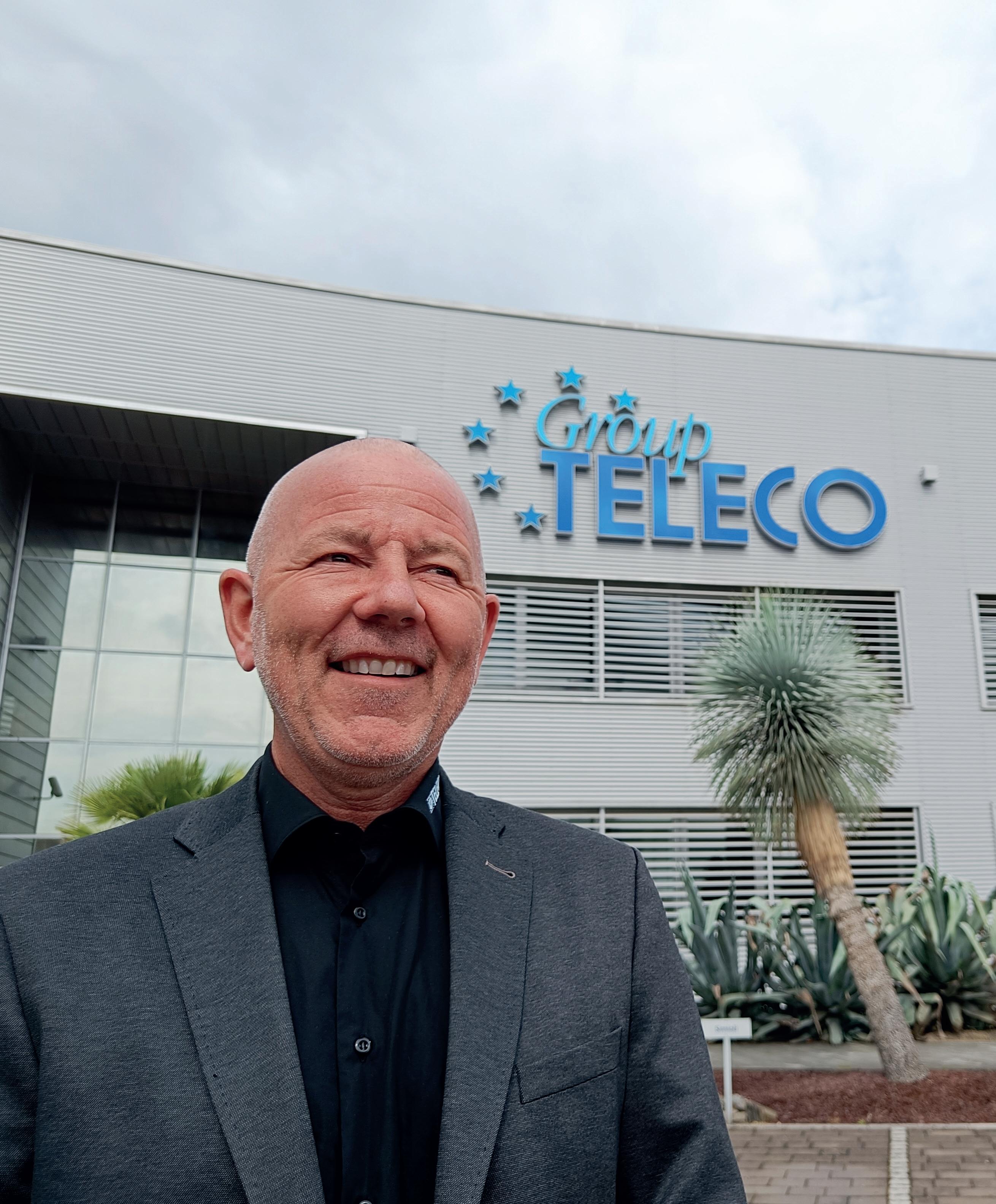
In a detailed interview with Jim Looijen, the new Commercial Director of Teleco Group, he shares insights into his extensive career and the dynamic role he now plays at Teleco, highlighting the company’s agility and innovation in a competitive market
66 Company news TELECO
Words Antonio Mazzucchelli
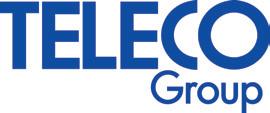
Jim Looijen has joined Teleco Group as the new Commercial Director, effective from April 1, 2024. With a robust background at Erwin Hymer Group and Knaus Tabbert, Jim brings a wealth of experience in managing top RV brands, driving market growth across Europe, and enhancing dealer relations. At Teleco, Jim will focus on expanding its market presence, fostering relationships with OEMs and aftermarket dealers, and steering the strategic direction to keep the company at the forefront of innovation.
Aboutcamp BtoB - What is your past experience and what skills do you bring to your role at Teleco?
Jim Looijen - My professional journey in the recreational vehicle industry began with the Erwin Hymer Group, where I served as the Senior Sales Manager for Bürstner and LMC from February 2010 until March 2017. Initially, I focused exclusively on LMC, but later my responsibilities expanded to include Bürstner as well, following a restructuring that consolidated several brands under one umbrella in the Benelux region. My role involved overseeing marketing and sales, engaging directly with dealers, and representing our brands at major European trade fairs, such as those in Düsseldorf and Stuttgart.
I joined Knaus Tabbert as the Area Manager for Benelux in April 2017, a role I held until April 2024. In this position, I was responsible for the strategic oversight of marketing and sales operations across the Netherlands, Belgium, and Luxembourg.
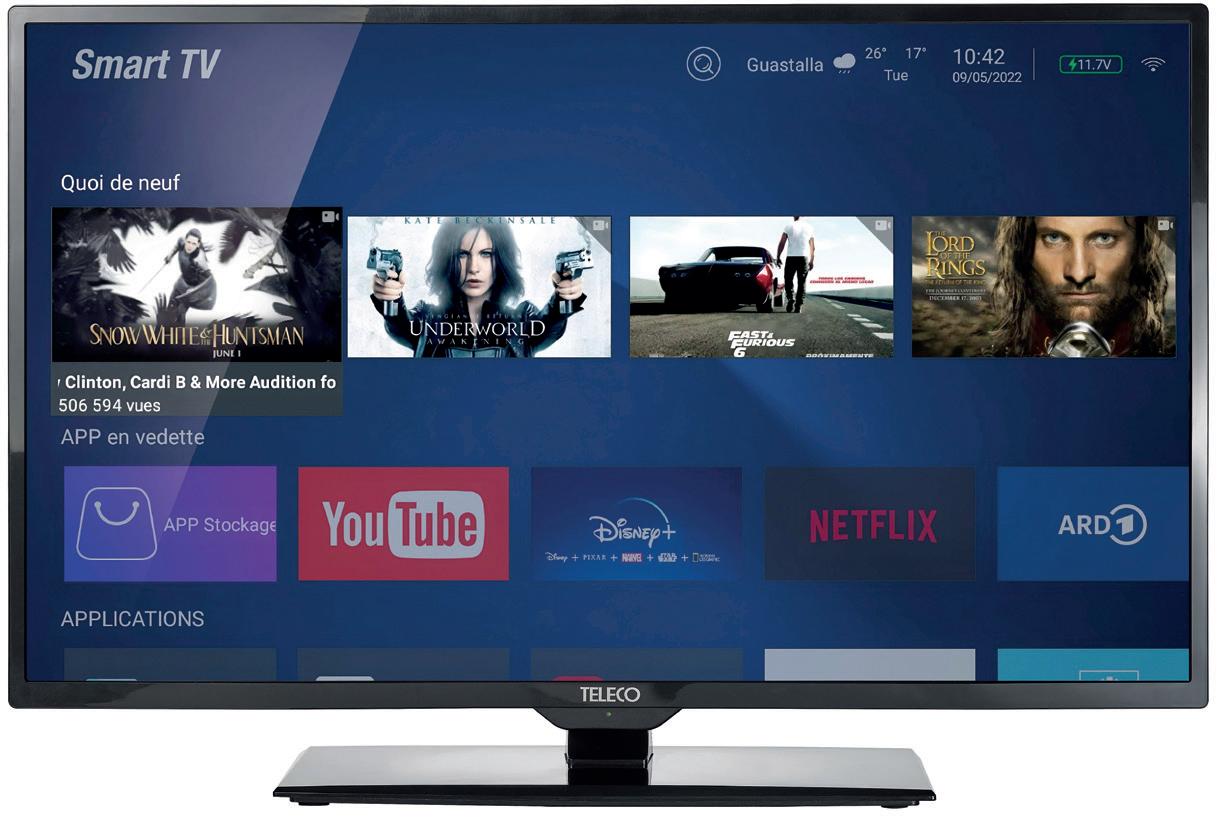
My duties included managing our dealer network, driving sales volume, and implementing marketing plans designed to secure and grow our market presence in these key regions. Currently, I am with Teleco Group, where I began in April 2024. My focus here is on business development, market research and the coordination and supervision of established and potential customer relationships across Europe. I also oversee the work of foreign agents, ensuring that our strategies are well-executed and aligned with the company’s longterm goals in the competitive European market.
Aboutcamp BtoB - What are your first impressions upon entering the Teleco Group?
Jim Looijen - My initial impressions of joining the Teleco Group are very positive; everything is well-organized. Teleco has impressed me as a highly innovative company. They are forward-thinking, with the right products poised for the future. It’s remarkable how well Teleco is recognized in the market, how they innovate their products and their broad dealer network which spans globally, not just in Europe. Their reputation for quality is well-founded; they rigorously test all products before they reach the market supported by a team of skilled engineers who ensure everything we deliver meets the highest standards.
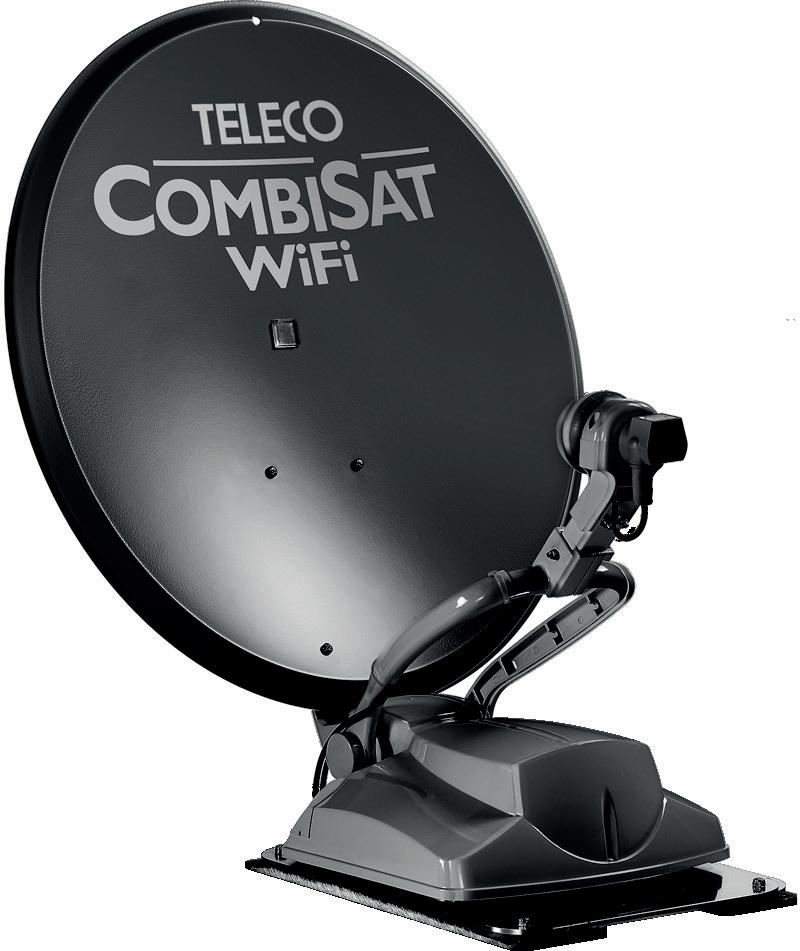
Aboutcamp BtoB - What are the advantages and potential challenges of being an independent, medium-sized company in a market dominated by large groups?
Jim Looijen - One of our key advantages is the ability to

maintain direct, personal contact with our customers. This proximity allows us to collaborate closely with them, quickly find solutions, and directly address any issues that arise. This immediate responsiveness is a significant strength compared to our larger competitors. The decision-making process at Teleco is fast, which is crucial in a dynamic market environment. With just two co-owners, our decision-making is significantly streamlined. When urgent decisions are required, they can be made promptly without navigating through layers of bureaucracy that typically slow down larger organizations. This agility extends to problem-solving as well. If issues arise, I can make a quick call to a decision-maker, discuss the matter, and often come up with a resolution within minutes. This ability to react swiftly and effectively gives us a competitive edge, ensuring that we can meet our customers’ needs and adapt to market changes rapidly.
Aboutcamp BtoB - Teleco began its journey with aerials and has now evolved into a producer of a wide range of technical solutions. How do you see the market for this foundational product evolving in the future?
Jim Looijen - In the evolving landscape of technical solutions, Teleco is expanding its product range, yet the core of our identity remains anchored in the reliability and design principles established over 20 years ago. The satellite antenna, a flagship product, is not just a significant part of our history; it embodies the essence of what Teleco stands for. While we are diversifying our offerings to adapt to new market demands, the satellite antenna remains central to our strategy. It
67 In partnership with
Company news TELECO
represents a pivotal element of our portfolio, continuing to assure the excellence and reliability that Teleco is known for.
Aboutcamp BtoB - How do you manage quality control at Teleco?
Jim Looijen - At Teleco, our commitment to reliability is underscored by rigorous testing processes. Every product destined for a dealer, customer, or business partner is individually tested before it leaves our facility. We do not employ random sample testing; instead, we test each unit one by one to ensure the highest standards of quality. This thorough testing protocol significantly reduces the incidence of defects, and we’ve found that only a very small percentage of our products experience any issues. This meticulous approach to quality control ensures that everything coming out of our warehouse meets our stringent criteria, drastically reducing the likelihood of faults once the products reach the market.
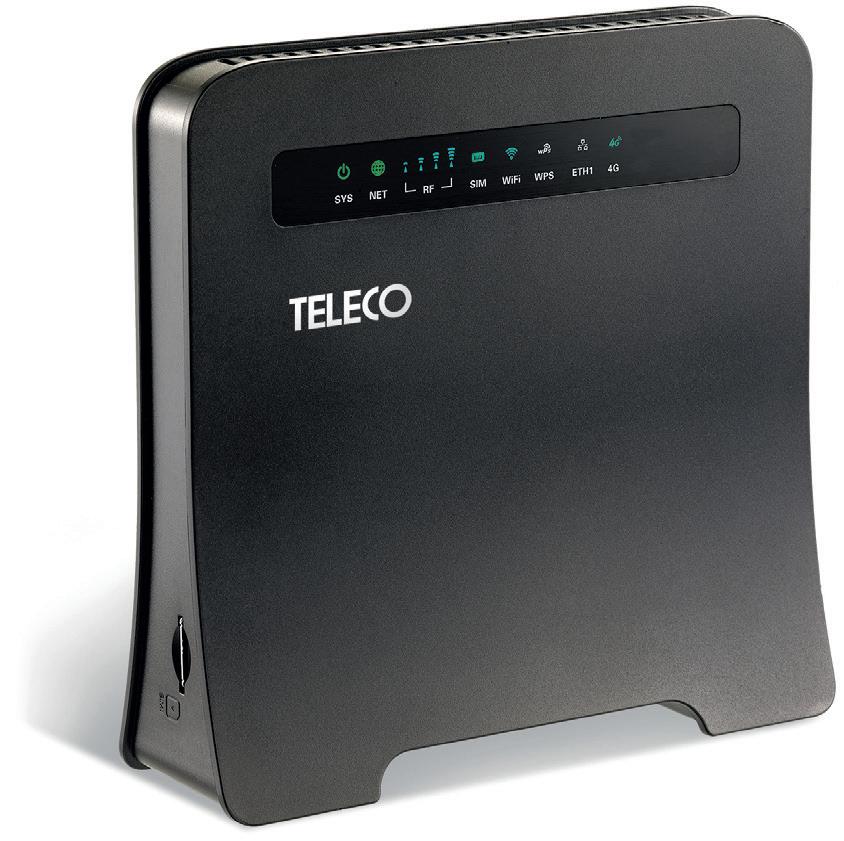
Aboutcamp BtoB - How do you manage technical assistance at Teleco?
Jim Looijen - At Teleco, our approach to technical assistance is comprehensive. We have a dedicated back office team ready to resolve issues as soon as customers or consumers contact us. For direct telephonic assistance, we’re well-equipped, but we also have a network of service partners globally. These partners are experienced in handling repairs and are an integral part of our support system. Additionally, we invest in the technical proficiency of our service partners and key customers through targeted training programs. We invite them to
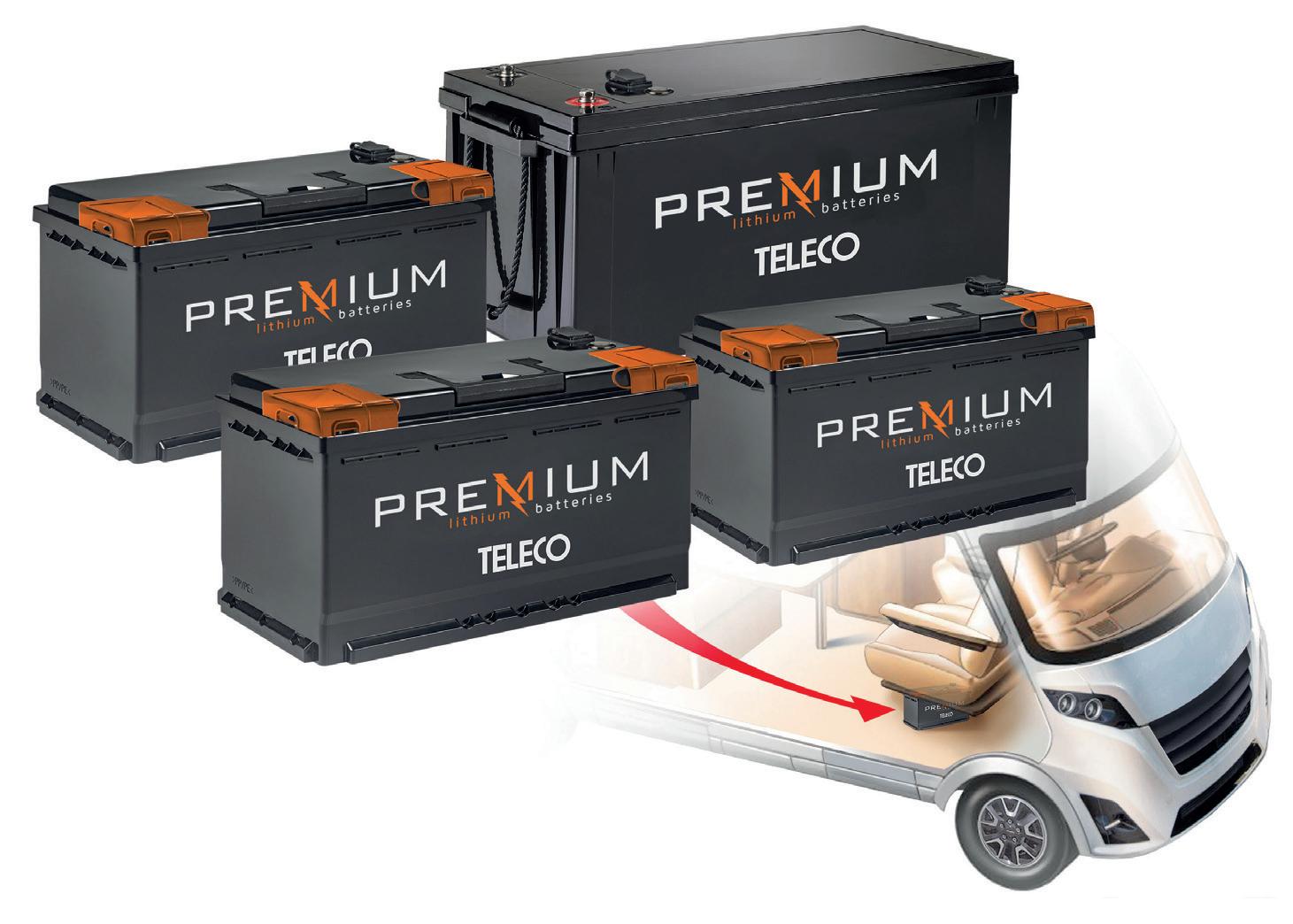
our company for two or three days of intensive training on our products. This not only enhances their capability to address issues but ensures that most repairs and maintenance can be handled effectively on the ground. In terms of remote support, around 85% to 90% of issues can be resolved over the phone, often involving updates to software or systems. If the back office team needs further assistance, they have immediate access to our engineers who can help diagnose and solve problems promptly.
Aboutcamp BtoB - How does Teleco manage orders from different sizes of customers, from large OEMs to small dealers?
Jim Looijen - At Teleco, we cater to a diverse range of customers, from large OEMs and well-known brand names to smaller van converters or dealers. Every customer, regardless of their size, is important to us. It doesn’t matter whether it’s a major OEM or a small company; our approach is to ensure that all are served with the same level of commitment and excellence. We understand that each customer has unique needs, and we are dedicated to fulfilling these needs effectively,
ensuring that everyone receives the attention and service they require.
Aboutcamp BtoB - Teleco actively participates in national trade shows across Europe. What is your perspective on this approach?
Jim Looijen - It’s commendable that Teleco leverages its extensive experience by participating in trade shows. This presence not only showcases its innovative products but also plays a critical role in understanding and meeting market needs. For a company like Teleco, maintaining direct relationships with both business partners and end customers is vital. Trade shows offer the ideal opportunity to establish and strengthen these connections. They allow us to present our latest innovations and directly engage with our clientele, which is essential for our development strategy. Moreover, it’s important that Teleco, and not just its agents, maintains a visible and personal presence in various markets.
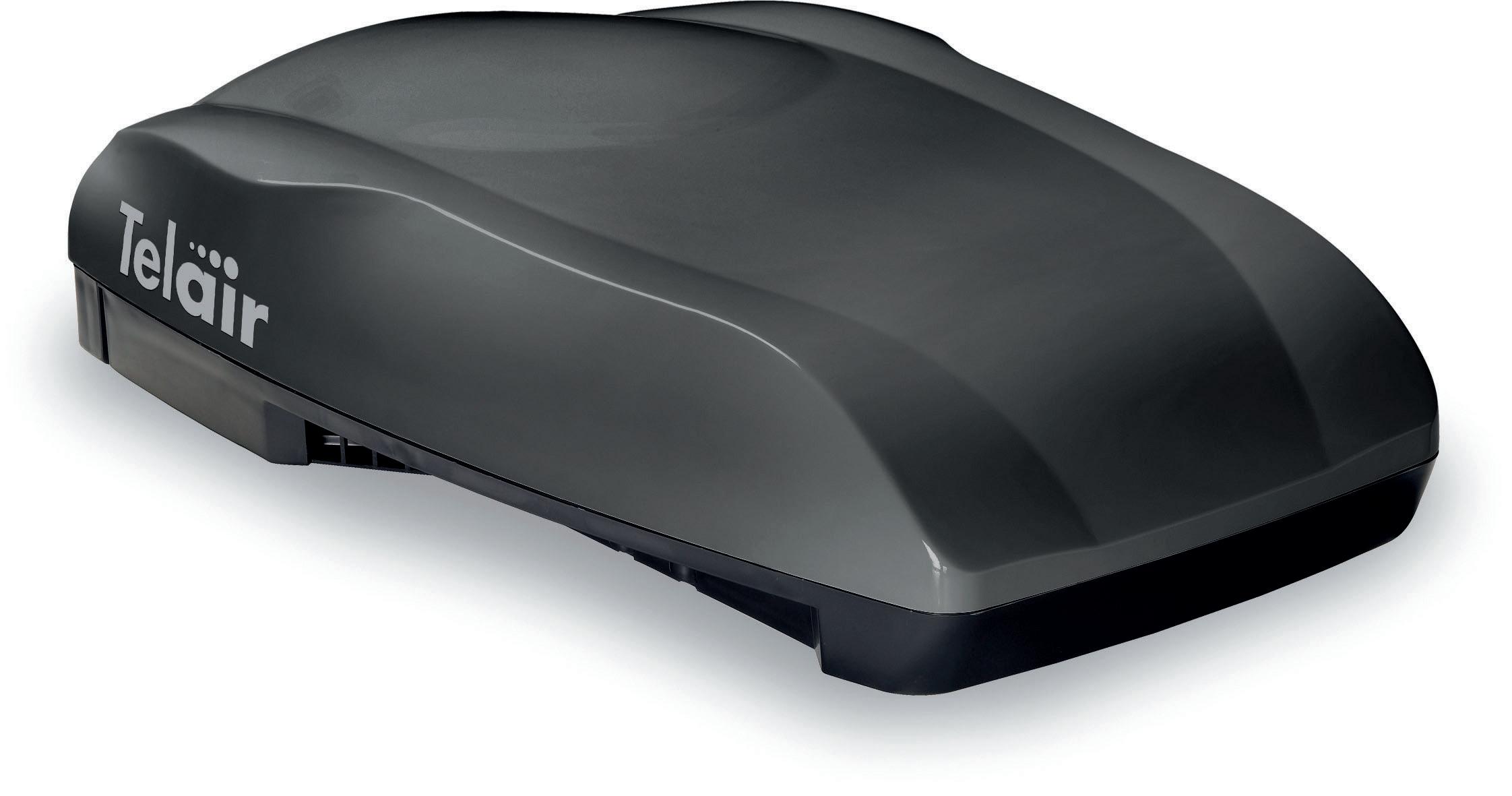
68

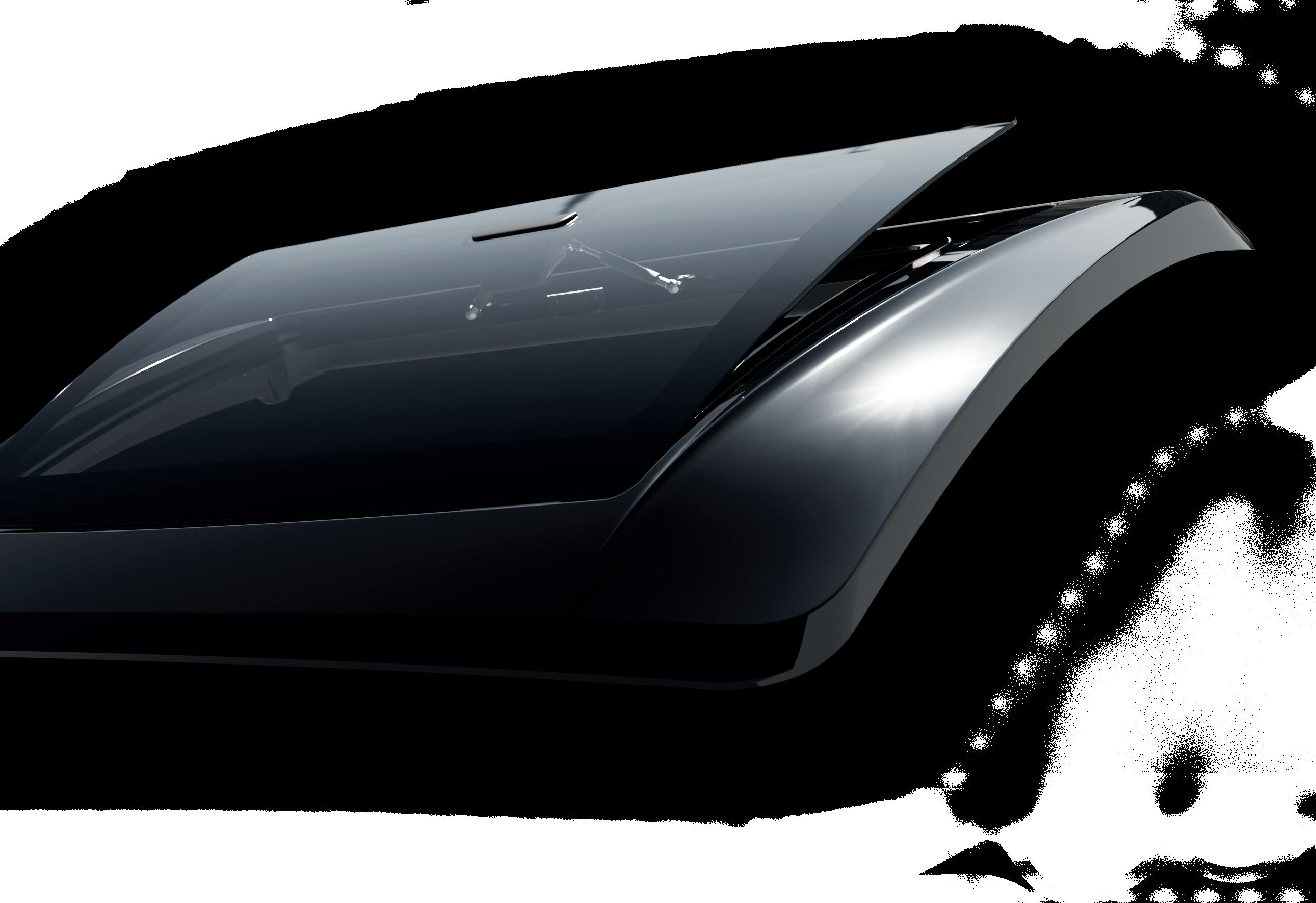
AERIS
modular glazed panoramic sunroof system
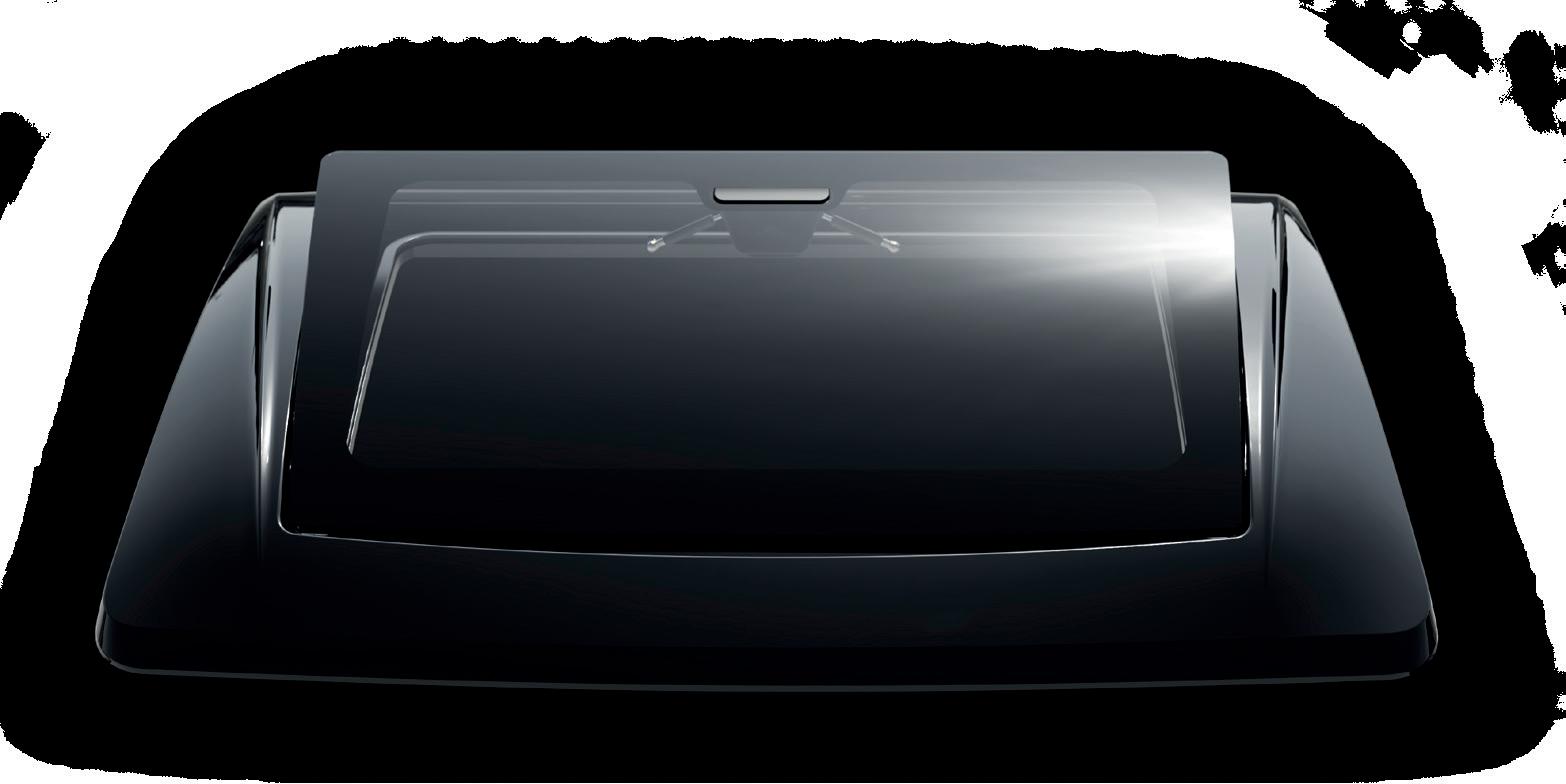
WE DESIGN YOUR LIGHT
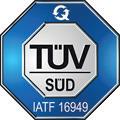

69 www.sguinzi.com
IATF 16949 Certified
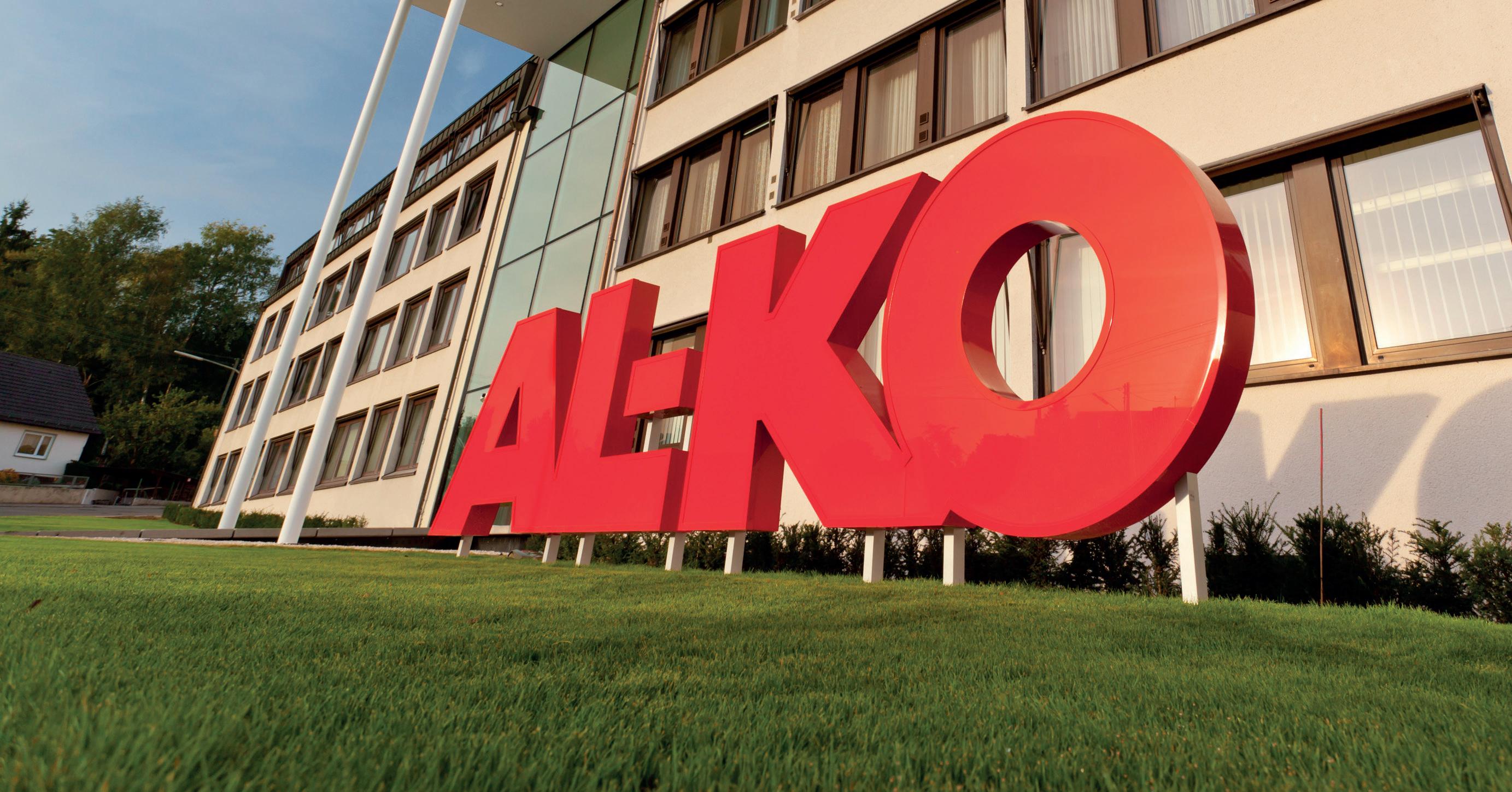
Innovating for ideas
The AL-KO Vehicle Technology Group, specialists in high-quality chassis and suspension components for motorhomes, caravans and recreational vehicles, is putting its faith in its workforce with innovations to encourage homegrown ideas to optimise processes and achieve greater efficiency
Words Editorial Staff
With around 3,500 employees at more than 40 locations worldwide, AL-KO has a wide range of experience and knowl edge within its organisation, and a new ideas management project will further exploit that in-house potential to strengthen the company in the long term. As experts in their field, each employee is recognised by AL-KO not only as an important part of its wide-ranging business, but also as a source of inspiration to improve all aspects of company operations. Too often, great ideas remain in the back of an employee’s mind, or if they are expressed, can get lost within the everyday stresses and strains of a large organisation. Encouraging ideas to be shared and providing a streamlined pathway for them to navigate through the company is the key element of ALKO’s ideas management philosophy. It aims to make submitting, evaluating,
and implementing ideas easier, more transparent and faster by eliminating unnecessary stumbling blocks.

Alexander Kneer, Environment, Health and Safety Manager and part of the project team, explains: “For me, idea management is a really clever business strategy: profitability through commitment. After all, the multi-purpose tool of idea management is about improving products, optimising processes, making progress in working methods and procedures, increasing occupational safety and strengthening environmental and health protection as well as promoting cooperation throughout the company.”
By encouraging employees to contribute ideas via a new streamlined process, AL-KO believes it can unlock a range of benefits, including design improvements, optimised processes, cost reductions, a safer working environment and greater employee motivation. The proj-
ect to merge and enhance existing processes, alongside software support, has been rolled out at the AL-KO facilities in Kötz and Ettenbeuren. The company’s site in Vintl, northern Italy, is already adapting its processes to the new approach, which will be expanded to other AL-KO locations in the future.
First results from the implementation Kötz and Ettenbeuren are positive, according to Kneer: “The increase in effi-
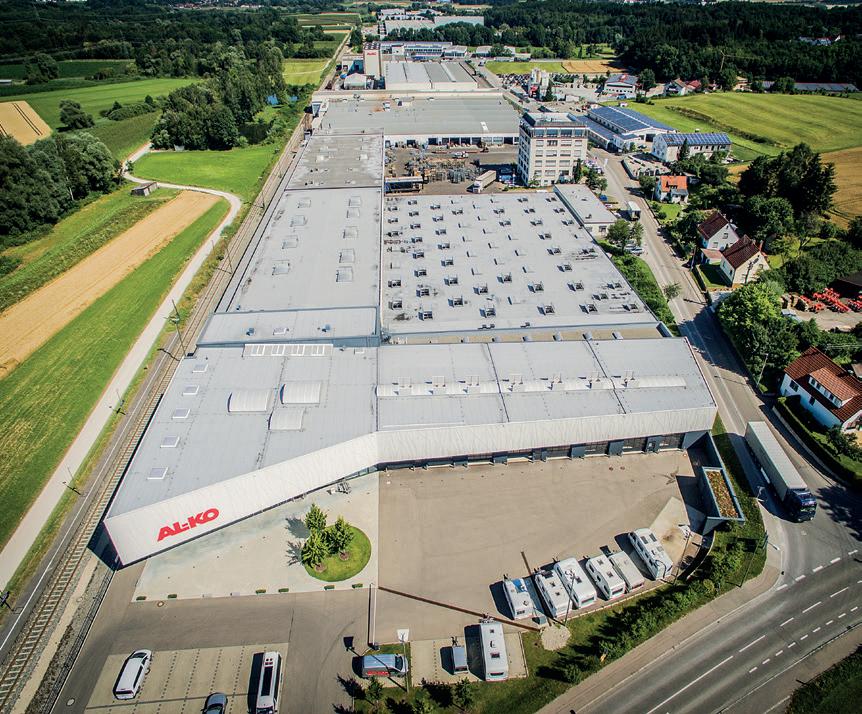
70
Company news AL-KO
Alexander Kneer
Kötz facility
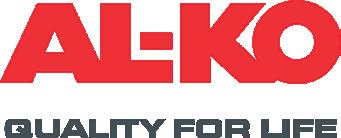

ciency of the new tool is enormous, we move completely within one system without communication gaps. This drastically reduces throughput times. We are therefore currently examining with R&D how innovation management can also be controlled via this platform. In order to think of things that don’t yet exist, we need a transparently functioning knowledge management system.”

The ideas management tool expands and enhances AL-KO’s existing commitment in this area. Since 2019, Jasmin Strobel has drawn on her 25-year experience of working at the company in a role as Ideas Management Officer, which includes processing suggestions for improvement, moderating meetings with a view to a productive outcome and helping guide ideas through the various hurdles. Strobel leads the project as part of a team effort alongside Kneer and Plant Manager JJ Canteli. Through regular exchanges with contemporaries at the Centre for Ideas Management, the Swabian Ideas Circle and the Bavarian Network Meeting, Strobel brings new concepts and impetus to AL-KO’s support for productive new ideas. “Above all, I can help employees to im prove structures, processes and products,” she says. “It’s a great feeling when we imple ment new ideas together and the improvements become effective. Every little cog in the wheel can have an impact on the big picture and is appreciated.”
AL-KO’s latest product ideas
AL-KO recently boosted its product line-up for the motorhome and caravaning world with two new additions. The LevelM Pro levelling system, introduced by ALKO subsidiary E&P, reaches new standards in terms of weight and ease of use. By reducing the weight of a single sub-system by 16%, it sets a new standard in the motorhome sector thanks to the unique material mix in the hydraulic cylinders. A new control system offers smooth alignment, while brushless actuators allow unprecedented precision, with no jerking or no coasting. A touch control panel that can be installed at the owner’s chosen location in the interior. Newly designed installation aids are an advantage for vehicle manufacturers; only one person is now needed to install components.
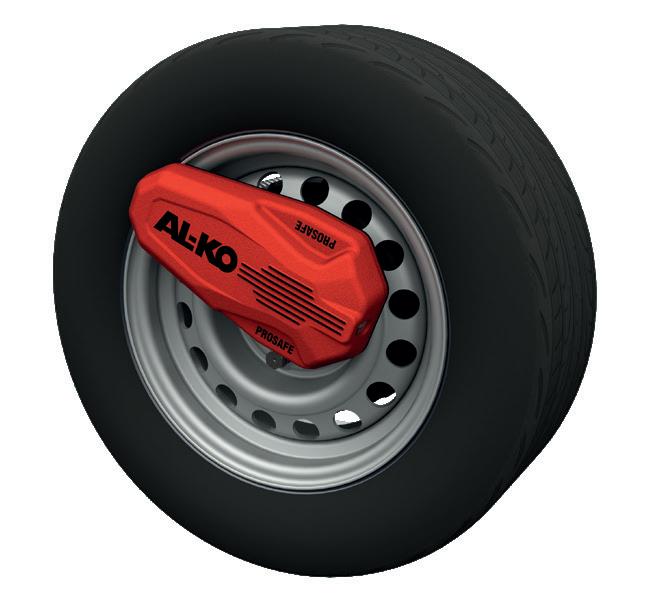

Canteli, as plant manager, explains how the cumulative effect of small improve ments can make a major difference to the bottom line, and therefore to the company and the customer. “Every day we have to look at how we can improve and reduce production costs,” he says. “How can we do things more effectively and efficiently? All the small projects together quickly add up to real savings. We all win if we look for such ideas every day at all levels of the organisation. I would therefore be delighted if we could use this tool to create a standard for the entire company.”
By putting a priority on ideas and creating a smooth path through the company, AL-KO is drawing on its most valuable resource – its employees across Europe – to sharpen its competitive edge and deliver better value for customers.
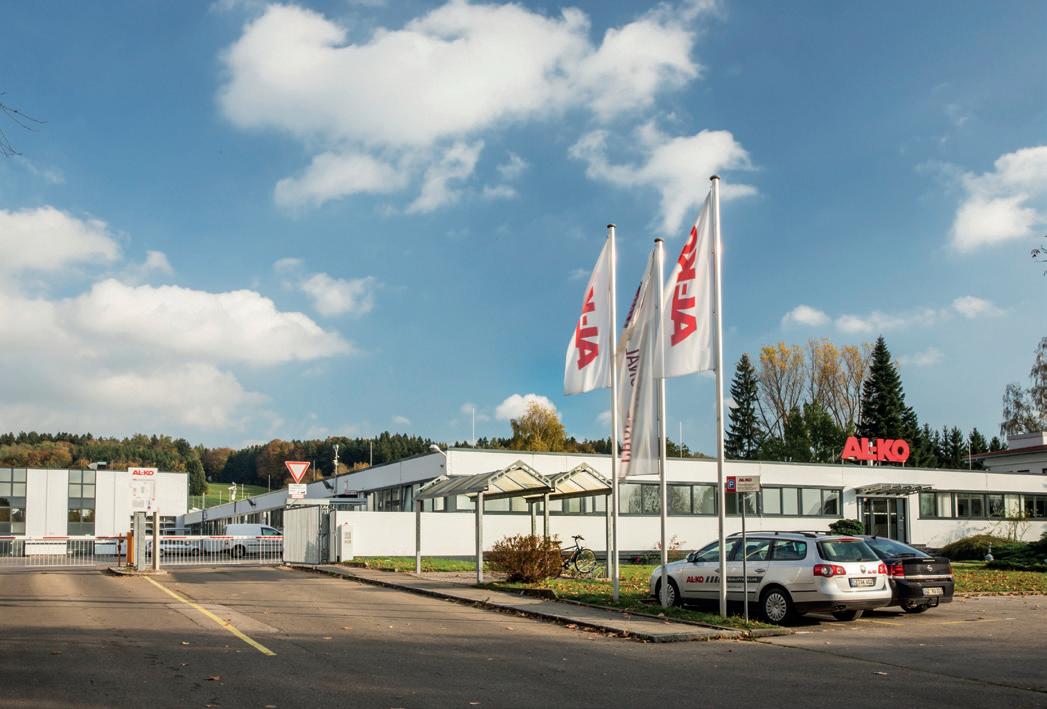
Another innovation, the AL-KO PROSAFE wheel clamp, delivers exceptional anti-theft protection. Specially designed for caravans and other trailers, it is suitable for 13- to 17-inch wheels with standard steel or aluminium rims. It features a unique multi-layer structure made from a resistant mix of materials and locking cylinder with anti-drill protection. Installing the AL-KO PROSAFE is easy and done in a few simple steps, while wheel rims are safe thanks to scratch and wear protection.
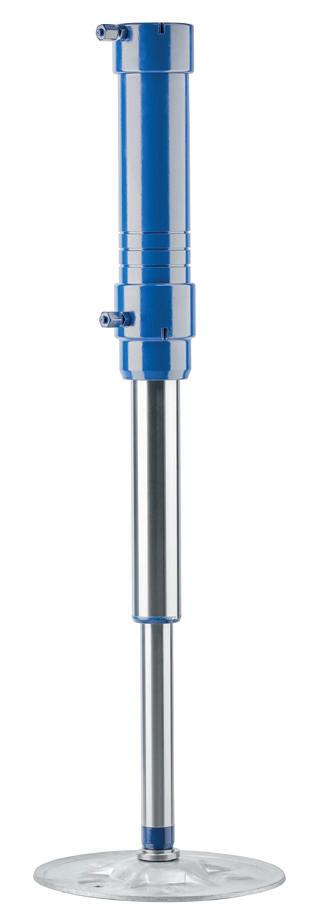
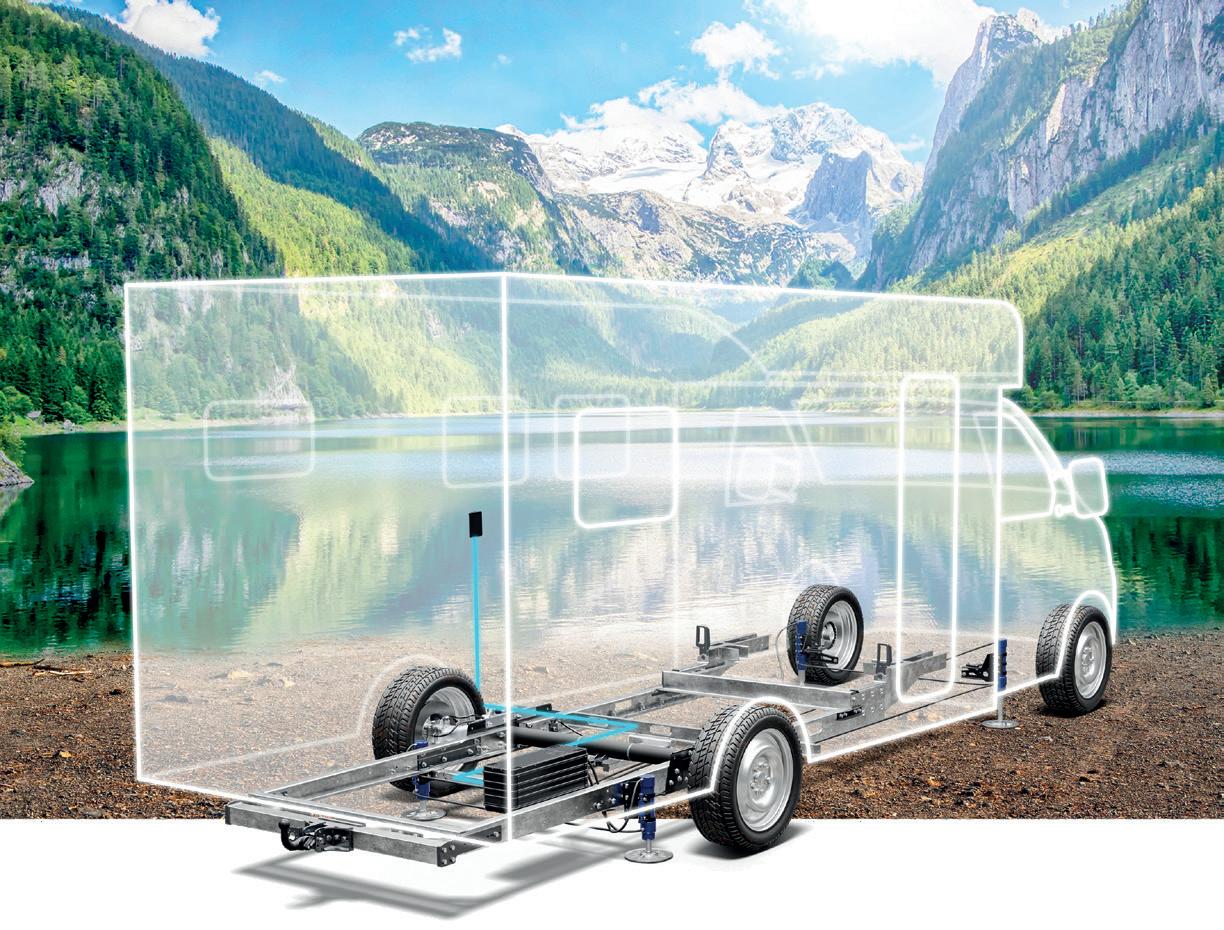
71 In partnership with
Above: AL-KO PROSAFE
Right and below: LevelM Pro
Jasmin Strobel
Ettenbeuren facility
Company news VETRORESINA
Vetro Guardian, fire-resistant laminates
With Vetro Guardian laminates, the Italian manufacturer is offering a product of excellence that guarantees safety in the event of a fire
Words Renato Antonini
For at least the past two years, Vetroresina S.p.A. has been intensifying the supply of laminates made with strong fire resistance properties. The Italian manufacturer has added a specific product, called Vetro Guardian, in different thickness variants, to the catalogue. Penetration in the RV sector is still limited for the time being but interest is on the rise while supplies are already going strong in other markets, including prefab buildings and shipbuilding.
“News of fires involving motorhomes and caravans has often hit the headlines” , said Fabrizio Baglioni, Commercial Director of Vetroresina S.p.A. “These events have created a penalising image for the entire RV sector that goes well beyond the dismay and fear sparked by the single tragic event. Fires are often caused by a lack of maintenance or inappropriate modifications to the original systems but of course motorhomes and caravans are equipped with a kitchen, a heating system and an onboard electrical system and soon they will be electric. For these reasons, Vetroresina S.p.A. is offering suitable answers to manufacturers who, now or in the near future, want to guarantee greater safety for the users of the RVs they make”.
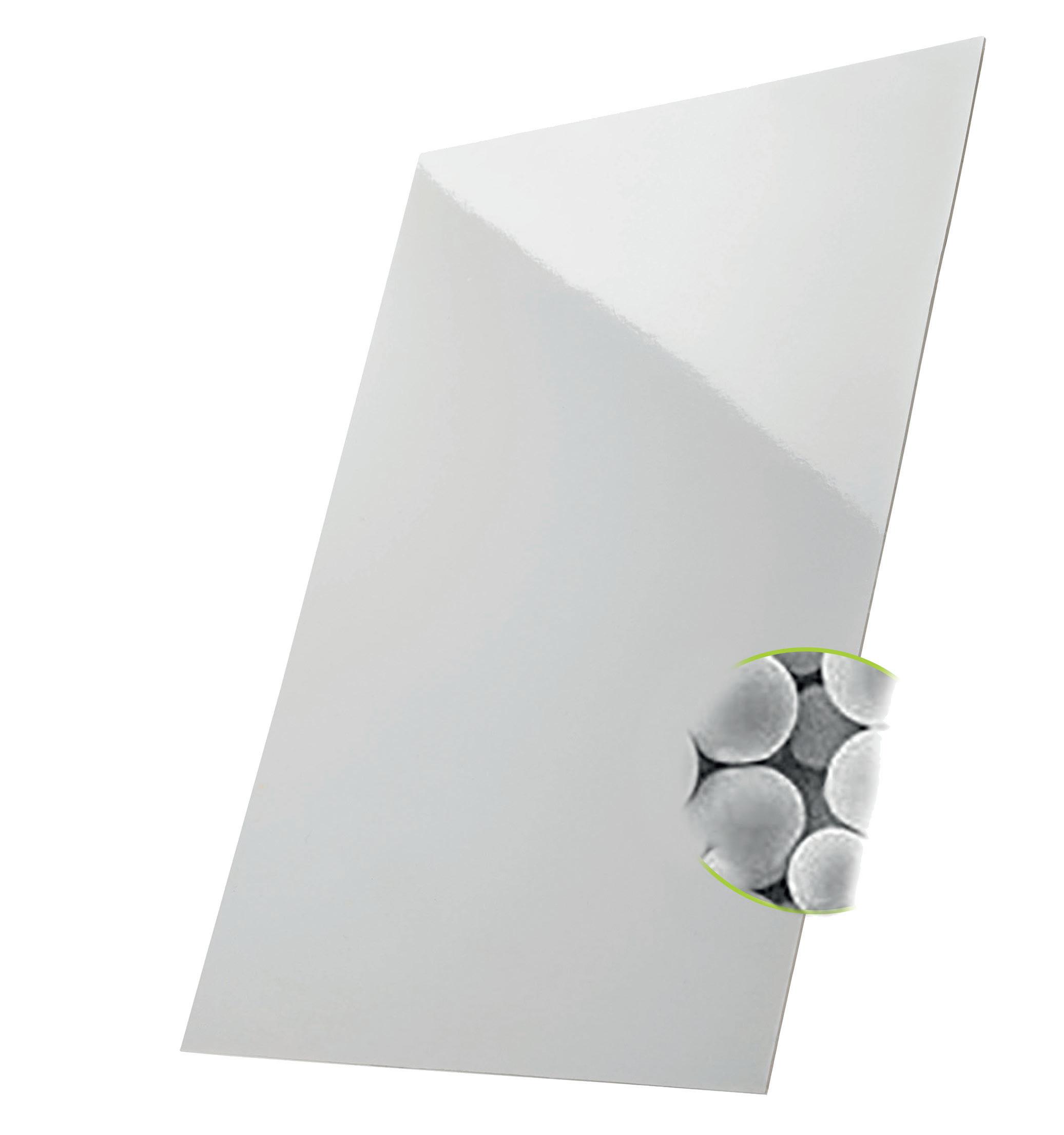
prefabricated

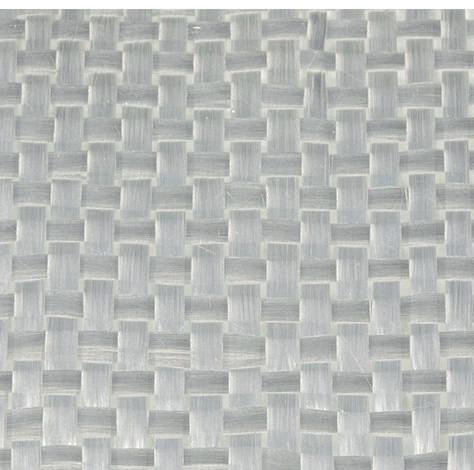
bathrooms and kitchens, electrical substations, temporary fire shelters and compartments for the protection of special equipment. In North America, it is being often applied in service rooms at the base of mobile telephone masts. I believe the time is ripe for Vetro Guardian to enter the RV sector as well”
Vetro Guardian is a fire-resistant, self-extinguishing laminate with low smoke emission. Aluminium dioxide additives, a material that generates H2O when hit by flame, are used in its manufac-
Certification in Europe and America
The Vetro Guardian laminate range has been in production for several years. It is a tried and tested product that has earned several European and American certifications. For instance, it is certified according to the European UNI EN 13501-1 standard, the French NFP 92-5011 standard and the American ASTM E84 standard. Vetro Guardian is already being successfully used in constructions, for components for buses and in cargo compartments of trucks, and for mobile workshops and clinics. “Vetro Guardian is gaining traction on the market with growing demand in the shipbuilding and prefab home sectors” , added Fabrizio Baglioni. “Its use in constructions is well-established. It is used to make wall panels,
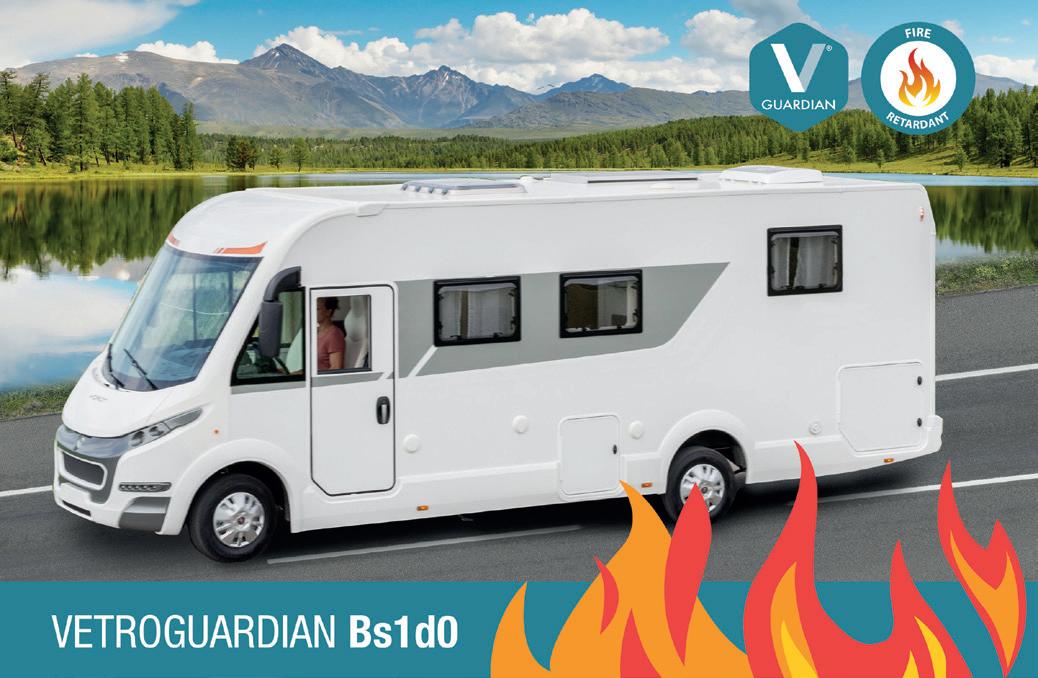
72
ME FIRERETARDANT
ME FIRERETARDANT
GUARDIAN
GUARDIAN

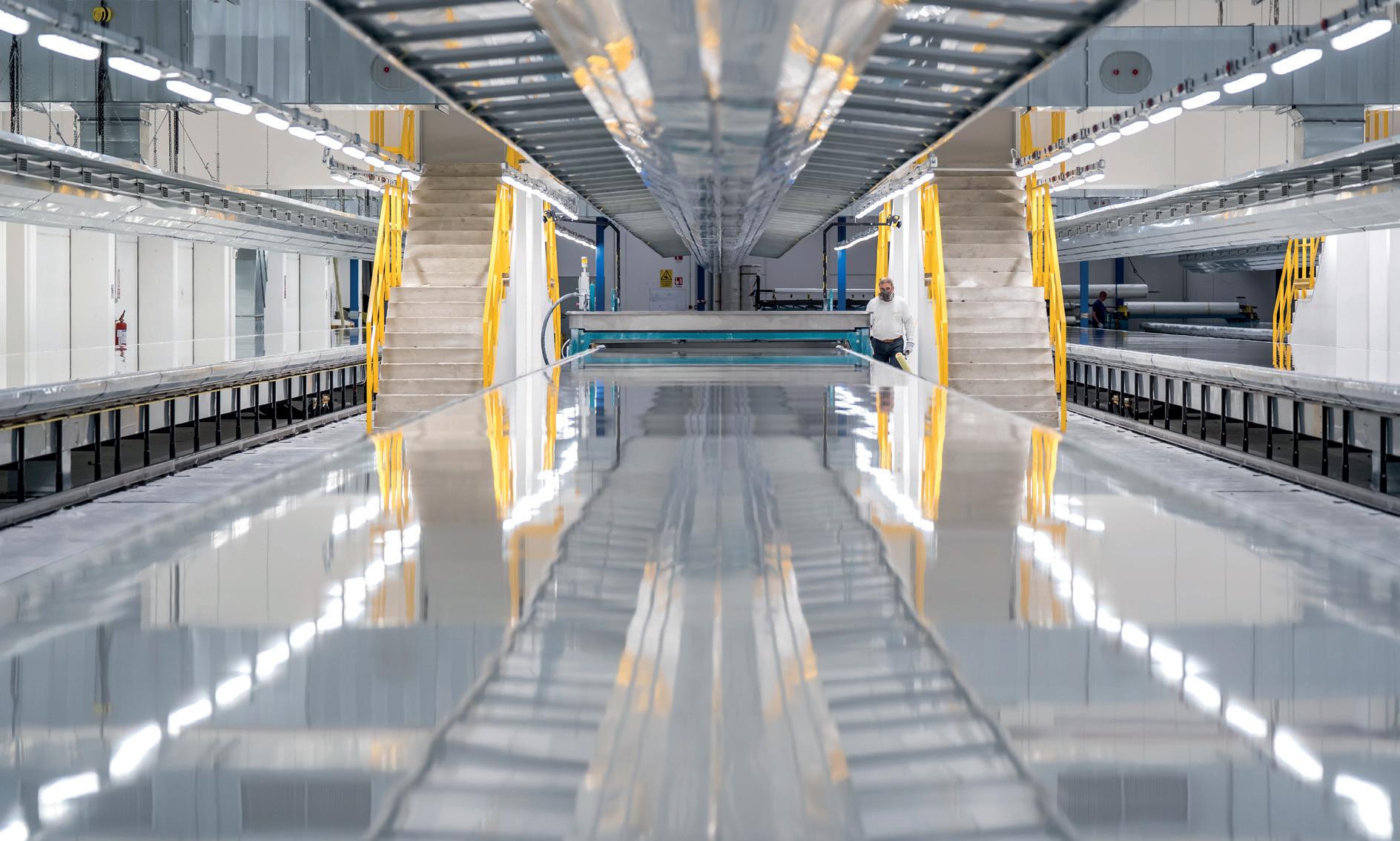
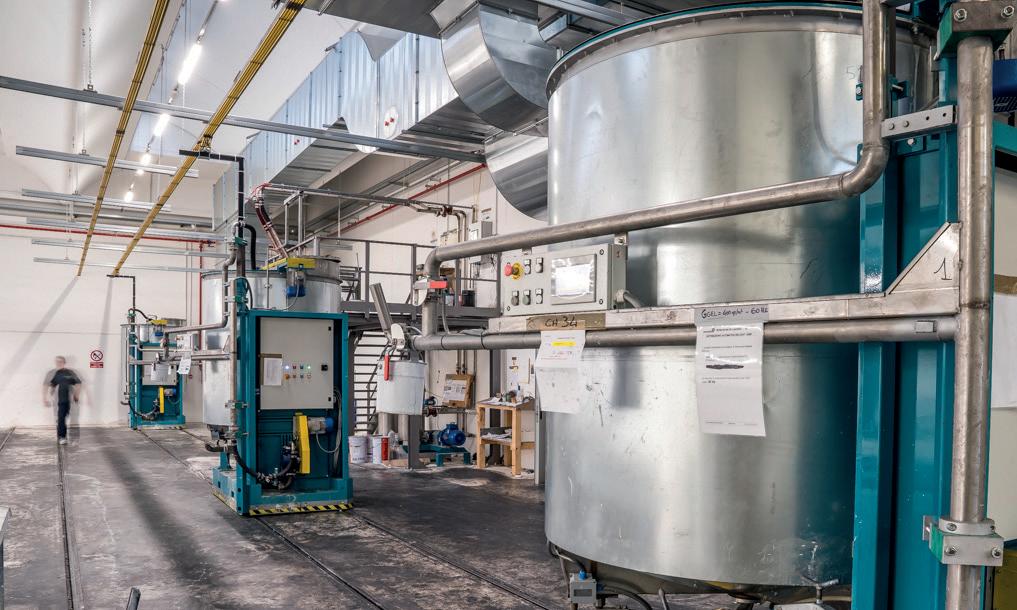
ture. It can be finished with or without gelcoat. On RVs, it can be used inside the living pod or outside. For instance, Vetro Guardian laminate without gelcoat can be used to make floor sandwiches. The laminate can have a high-gloss or matt finish when it is used for side panels in sight. Vetro Guardian laminate can be smooth, die-sanded (for bonding with structural polyurethane adhesives), mechanically sanded (for bonding with polyester resin) or calibrated (to reduce thickness tolerances) for application in visible areas inside the vehicle. In addition to classic white, Vetro Guardian can be produced (after testing) in various RAL colours that can even be customised. This laminate made by Vetroresina S.p.A. is currently produced in different thicknesses in compliance with the reference standards according to which fire tests are performed. Vetro Guardian panels range in thicknesses from 1.4 to 3.1 mm and in weight from 2.6 to 4.90 kg/sqm. Obviously, the most suitable product for the various uses must be chosen.
The new Vetro Guardian Force B-s1-d0 glass with the highest level of fire resistance for plastic laminates according to UNI EN 13501-1 is of particular interest to the RV sector. It is just 1.7 mm thick but remarkably strong. It weighs 3.20 kg/sqm. It is a laminate designed for interior cladding but is easily paintable, with polypropylene or water-based paints.

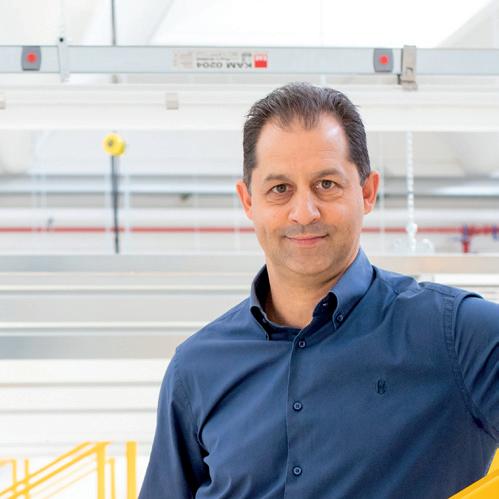
“This specific version of Vetro Guardian Force is definitely a product of excellence that could have interest ing applications in the RV sector” , Fabrizio Baglioni explained. “It is produced at our site in Masi San Giacomo near Ferrara and we have made significant investments to achieve these results. We have invested in equipment to contain the additives, machinery to mix the additives with the resin and in laboratory tests to finetune the right recipe that allows us to pass the tests required by the standard”
Classification B-s1-d0 is set by the UNI EN 13501-1 standard, which de-
fines the main classes of flammability ranging from A (non-combustible materials) to F (combustible and easily flammable materials). The laminate is in class B that includes with a very limited contribution to fire, meaning that it is a combustible but non-flammable material. The standard then provides for an ancillary classification with regard to smoke production and dripping. The production of smoke in combustion is indicated by the letter S (smoke), with levels ranging from 1 to 3: the higher the value, the more smoke is produced. This version of Vetro Guardian Force is class s1 meaning minimal smoke production. For dripping, indicated by the letter D, the values range from 0 to 2.
This laminate is in class d0, thus with the lowest production of leachates during combustion.
In many applications, Vetro Guardian Force is an alternative to metals. It is very strong and weighs much less. It also has greater thermal insulation, limits condensation and is resistant to corrosion.
“Vetro Guardian Force is the highest expression of our work in this field” , concluded Simone Colombarini, President of Vetroresina S.p.A. “We are constantly striving to develop new solutions that are advantageous in terms of weight and cost”.
73
Vetro Guardian Force B-s1-d0
In partnership with
The main Vetroresina plant near Ferrara, North of Italy
Fabrizio Baglioni
Simone Colombarini
150 years of outdoor experience
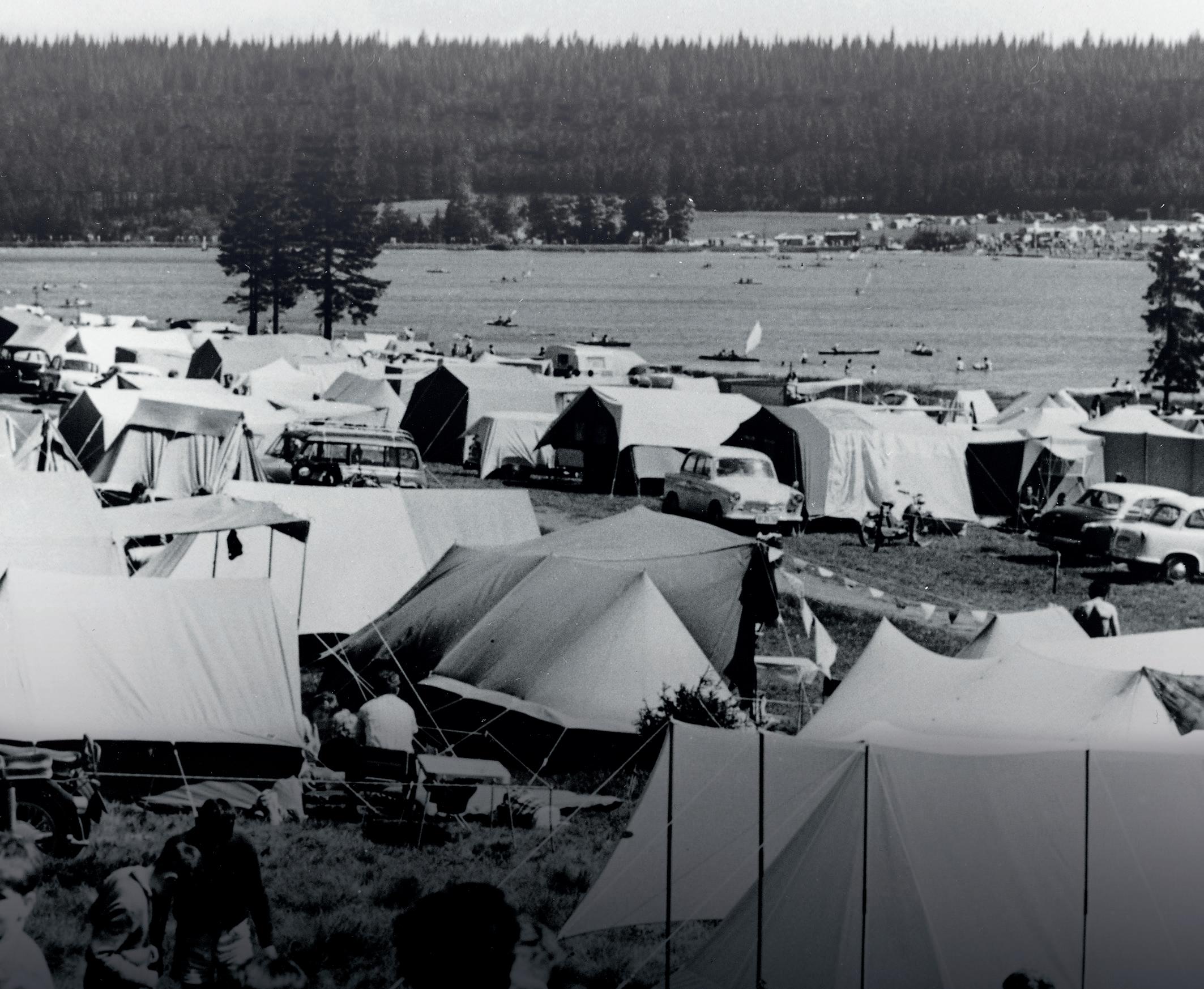
TOpposites are known to attract. And this year’s company anniversaries of Truma and Alde show that this attraction can lead to an extremely successful outcome. The former competitors will both be celebrating their 75th anniversary within the Truma Group in 2024
www.trumagroup.com
he year 1949 marked the start of a successful company history for both companies. Philipp Kreis returns from the war and opens a language school in Munich, Germany. A fundamental problem for evening classes is the lack of electricity in the post-war period. This gives him the idea of developing gas lamps. Due to the increasing demand, he manufactures and sells gas lamps in large quantities after only a short time. On 27 October 1949, Philipp Kreis registers his business and gives his company the name Truma. The brand name Truma goes back to the US President Harry S. Truman. Philipp Kreis honoured him because he made it possible for Germany to be rebuilt as an industrial nation. It was not until 1961 that Truma entered the camping industry with the Truma-matic, which was ‘the first officially recognised caravan heater’.
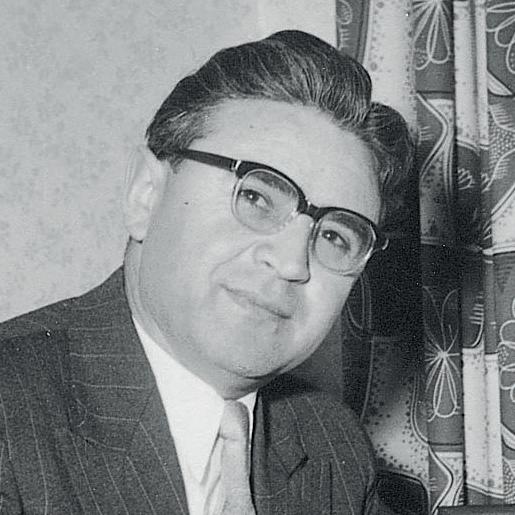
Alde Rask starts his company in Färlöv, Sweden. As there was a shortage of petrol and diesel in 1949, he built a wood smoke engine that allowed a car to run on readily available Swedish wood. In the 1950s, Alde designed a circulation pump for a car heater and in the 1960s, when interest in camping skyrocketed, Alde began manufacturing a wide range of products for caravans.
Chassis, support legs and the famous manual freshwater pump pave the way to success.
In 1966, Alde launches the first wet heating system for caravans - with its own patented circulation pump. The Alde heating system is an immediate success and is praised for its efficiency and comfort. In the years that followed, Truma and
Words Peter Hirtschulz
Alde both developed into leading companies in the heating and water heating sector. Thanks to their innovative strength, both became the most important market players.
In 1997, Truma took over Alde and since then both companies have been on a steep upward trajectory.
Alde and Truma are extremely future-oriented and have firmly anchored the topics of digitalisation, sustainability and energy efficiency in their product portfolio.
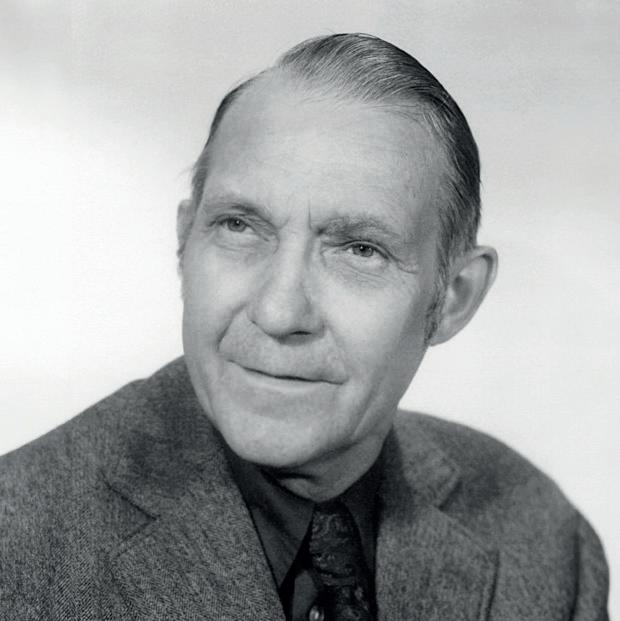
As a result, both companies are once again pioneers in technical development in these areas. Truma and Alde are focussing in particular on the development of quiet and convenient heating systems and a high level of customer orientation.
Truma and Alde - past and future driving forces in one.
74 Company news TRUMA GROUP
Philipp Kreis
Alde Rask


75 years of

Almost every camper in Europe knows the privately owned and managed Truma. Since the company was founded in 1949 by Philipp Kreis, it has been offering accessories for caravans and motorhomes.
It all started with a gas light that the company founder assembled himself in his living room. Today, Truma is a system supplier for heaters, air conditioning systems, water heaters, manoeuvring aids and the gas supply in caravans. With the Truma iNet X system, digital networking is increasingly finding its way into everyday camping - and the search for innovative ideas continues day by day. Truma benefits from the fact that many of its employees are enthusiastic campers themselves: They not only develop products, but also use them themselves. It is precisely this passion and identification that makes Truma so successful.
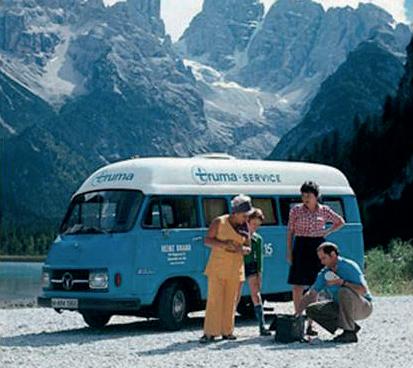
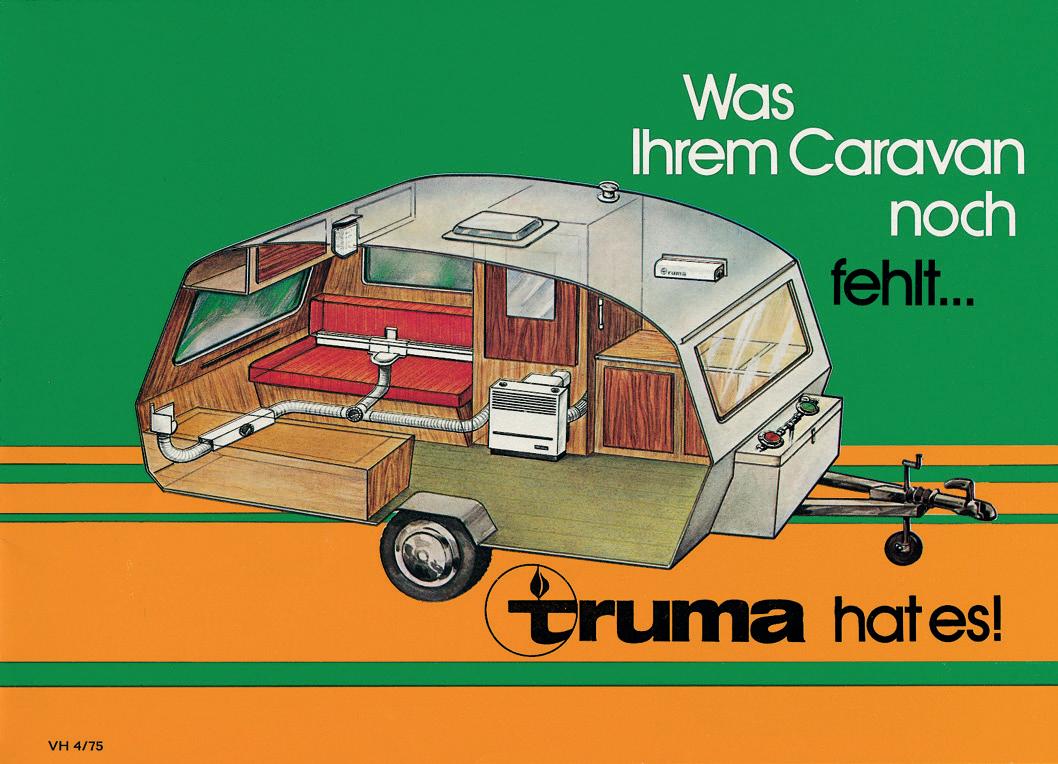
Truma has been the leading accessories specialist in the caravanning sector for 75 years. As early as 1961, Truma developed the first officially recognised caravan heater, making winter camping possible in the first place. Truma products are still an integral part of everyday camping life today. Truma has devel-
75 years of


Alde philosophy committed body and soul to Swedish inventiveness. Early on, company founder Alde Rask had the idea of developing the ultimate heating system for caravans - and even today, the company makes no compromises.
Driven by our passion, Alde wants campers to enjoy the most precious moments of leisure living to the full. Today, Alde is a global company that develops, produces and sells heating systems
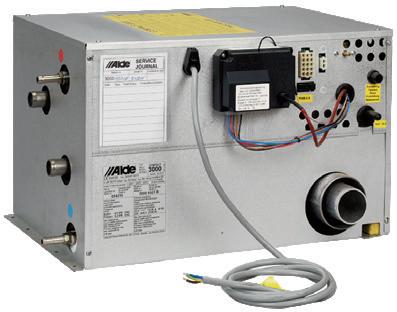
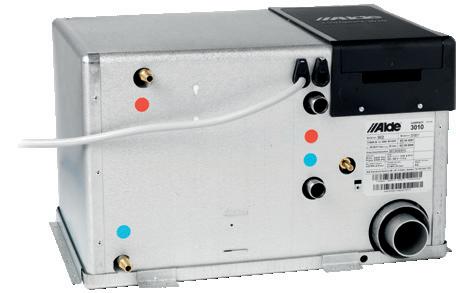
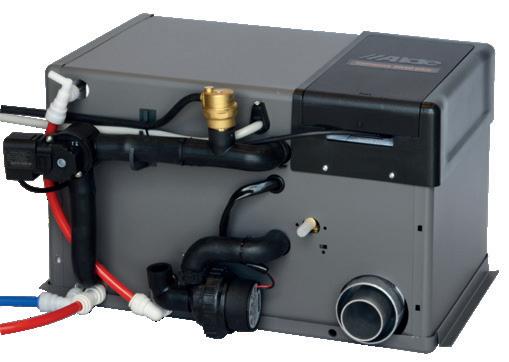
oped many innovations itself and set standards - for example with the first liquid gas heater and the first manoeuvring aid for caravans. Thanks to practical research and development, the company is constantly launching new and improved products on the market. Truma products are among the most powerful on the market - because they are highly reliable and extremely efficient. This is why Truma is regularly recognised by the trade press as the best accessory brand for heaters and manoeuvring systems.
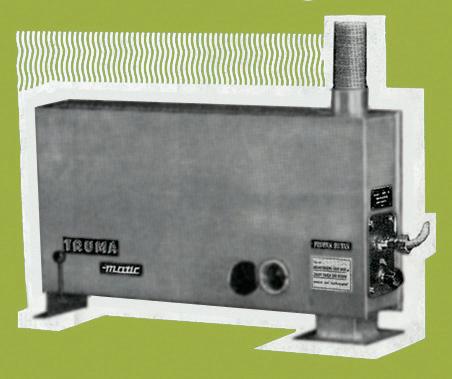
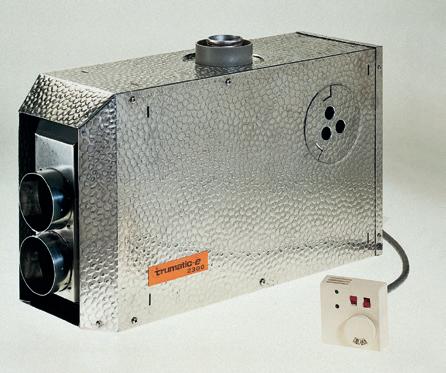
Whether on the hotline or in the Putzbrunn service centre, all service employees are able to put themselves in the customer’s shoes and provide expert help.
Fast on-site assistance is guaranteed by Truma service technicians, who are on the road throughout Germany with their service vehicles. Wherever the camper is, a strong sales network of specialist dealers and service partners ensures that they receive expert advice, spare parts, retrofit products and practical accessories. And that in more than 30 countries. www.truma.com
primarily for living on the move. The privately owned company has a longterm focus on internationalisation and product development. The head office is located in Färlöv, Sweden, exactly where the company was founded by Alde Rask in 1949. This is also where all heating systems are developed and manufactured. Alde employs a total of around 130 people, including its subsidiaries in Germany and the UK. In the cold Swedish climate, water-based heating systems have been developed over decades to reliably provide a high level of comfort all year round in caravans and motorhomes all over the world.
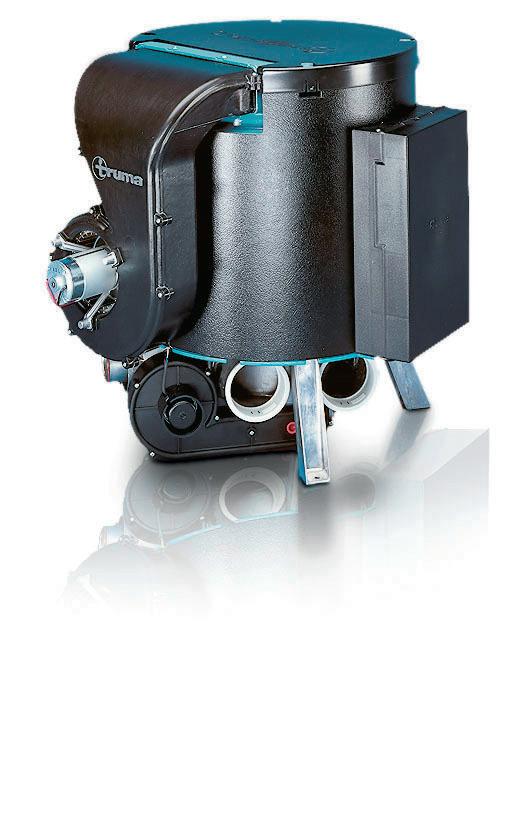
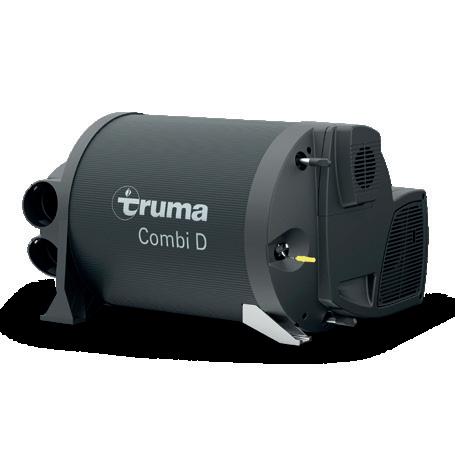
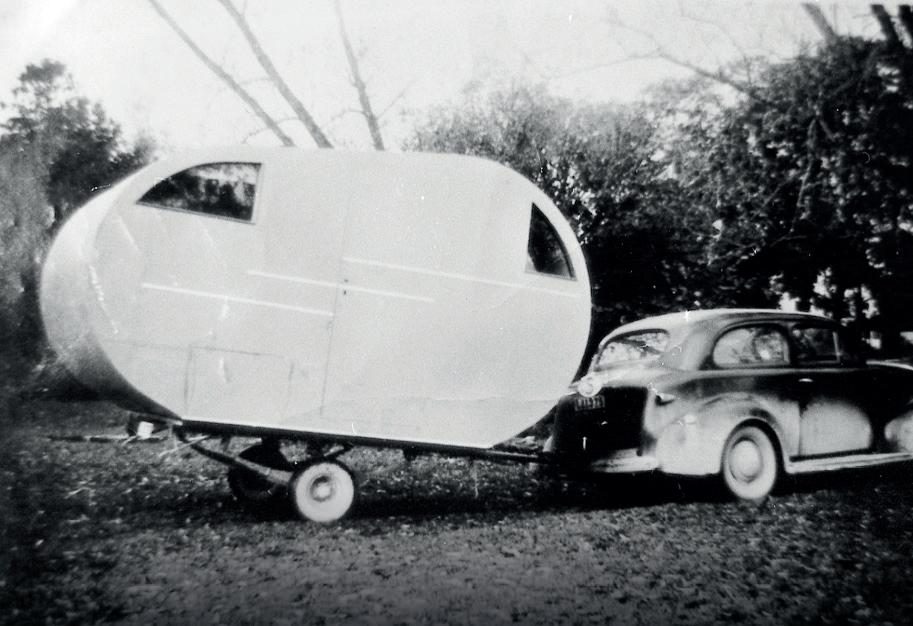
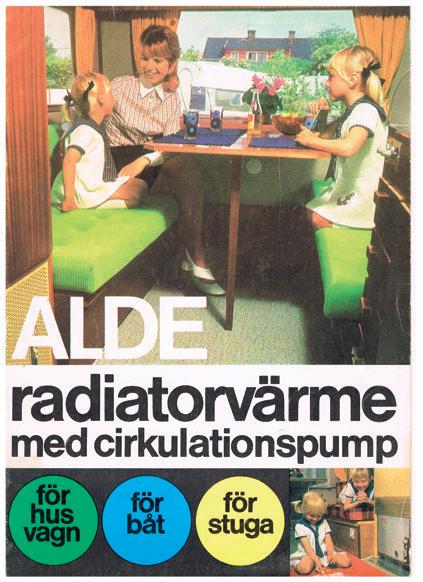
To optimise all systems, they are tested in special climate chambers down to temperatures of -35 °C. Production is quality-certified in accordance with ISO 9001:2015 and all products naturally fulfil all regulations and standards applicable to the markets in Europe and North America. www.alde.se
75
In
partnership with
From above:
Truma-matic 1961
Trumatic E 1975
Trumatic C 1994
Combi D 6 E 2022
From above: Alde Compact 3000 Alde Compact 3010 Alde Compact 3030 Plus
Alde Rask’s caravan
Winning team
New team members and new management to bolster the synergy between the companies of the group to the benefit of customers in terms of timing and quality
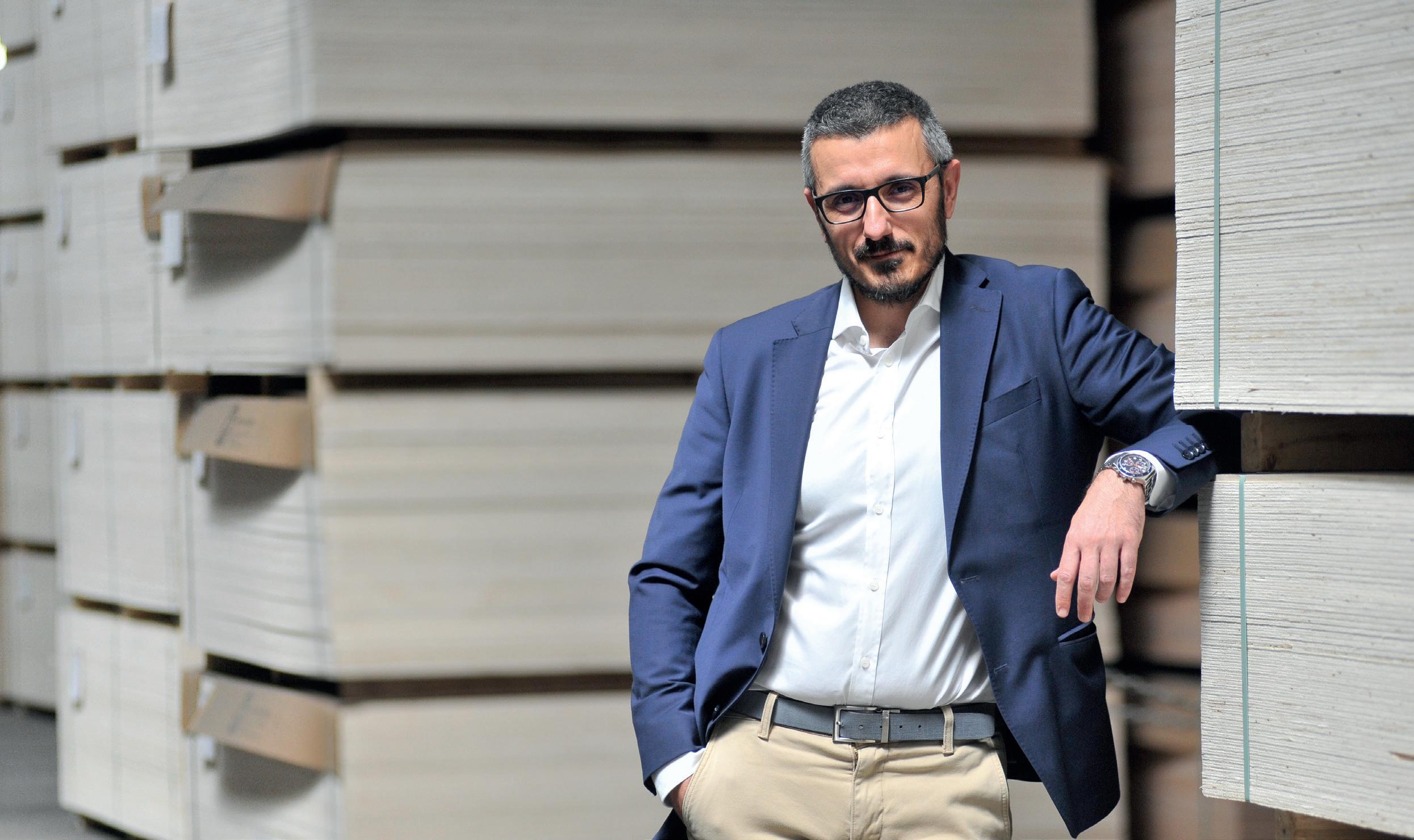
Plenty of new things are happening at Maller with changes concerning staff and at various production plants of the Sandei industrial group to which the company belongs. Of course, Maller is as strongly linked as ever to Industria Compensati Colorno which supplies the semi-finished products used for production. Maller specialises in the production of melamine-faced panels for the interior furnishing of motorhomes, caravans and mobile homes. Industria Compensati Colorno, on the other hand, makes wooden supports, including plywood, for the production of melamine-faced panels. The two companies operate jointly and have recently hired new man -
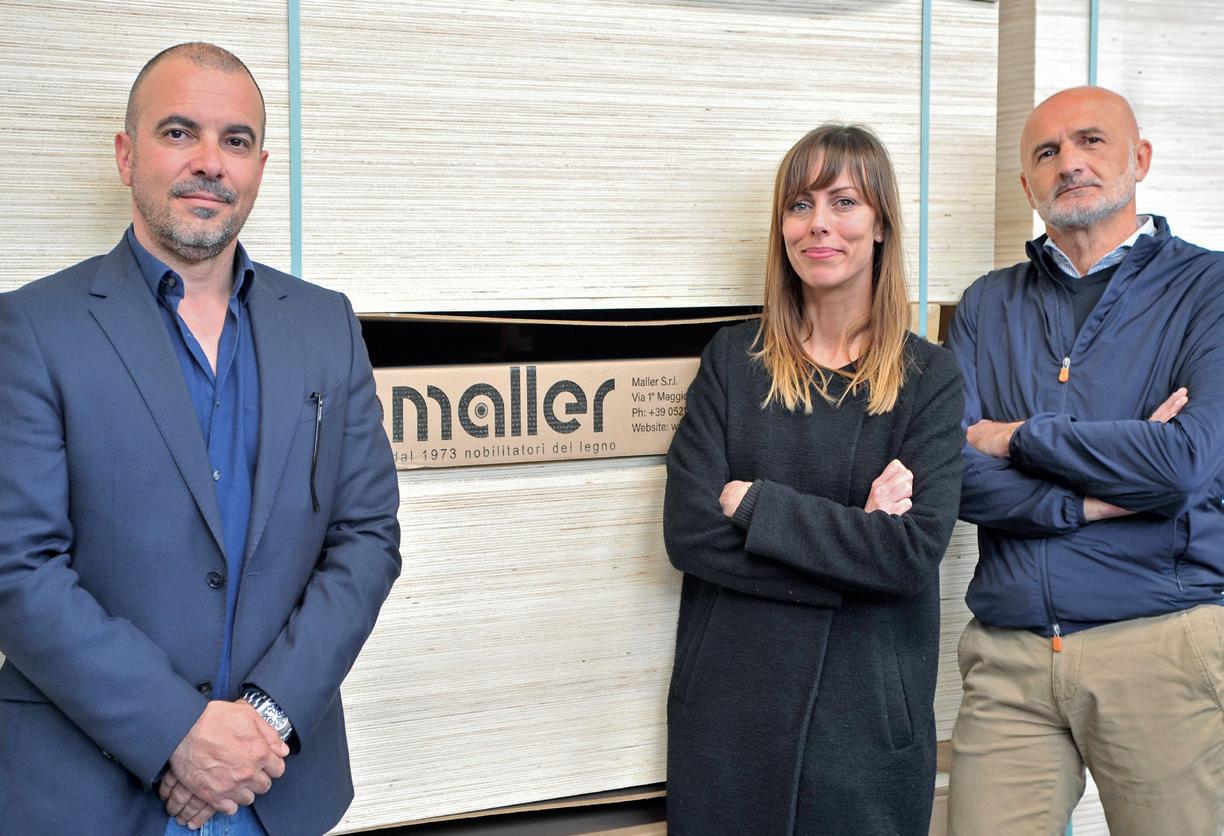
agers, with Georgia Oro (Marketing & Communication), Roberto Bigoni (International Sales), Andrea Rizzi (Italian Sales) and Francesco Ferramosca (Human Resources) joining the sales and marketing area, and Matteo Franza (CEO of Maller and Industria Compensati Colorno) taking on new tasks. The French company DDA, which produces semi-finished products for the wood industry, has also recently joined the Sandei Group.
“We are working to give the two companies a new identity”, explained Matteo Franza, CEO of Maller and Industria Compensati Colorno. “They have both been in the market for many years, so they have plenty of experience but they are also firmly projected into the future. We bring our experience and skills to the RV industry and have a clear focus on innovation. In the coming years, we want to continue innovating to satisfy our customers more and more”.
Although being firmly in the hands of the owners’ family, the Sandei Group is branching out in various areas to expand the international business and is organised to work with high numbers. The acquisition of DDA strengthens the Sandei Group. Both Industria Compensati Colorno and DDA select the logs, choose them according to quality and then move on to debarking and peeling. Industria Compensati Colorno can produce 100-120 m3 of plywood a day and DDA can make another 40-50 m3.
76 Company news MALLER
From left:
Roberto Bigoni, International sales
Georgia Oro, Marketing & Communication
Andrea Rizzi, Italian sales
Words Renato Antonini photo Enrico Bona
Right: Matteo Franza, CEO of Maller and Industria Compensati Colorno


“The partnership between Maller and Industria Compensati Colorno is a great advantage for customers because the plywood produced by Industria Compensati Colorno is sent to Maller for further processing” , continued Matteo Franza. “The fact that these two steps of the production process are carried out within the same industrial group means being able to control the entire supply chain. In this way, intermediate and end product quality is guaranteed to customers and so is timely delivery. The operations carried out in France are part of this fruitful synergy in the group. We work mainly in the RV sector and are unrivalled in our ability to
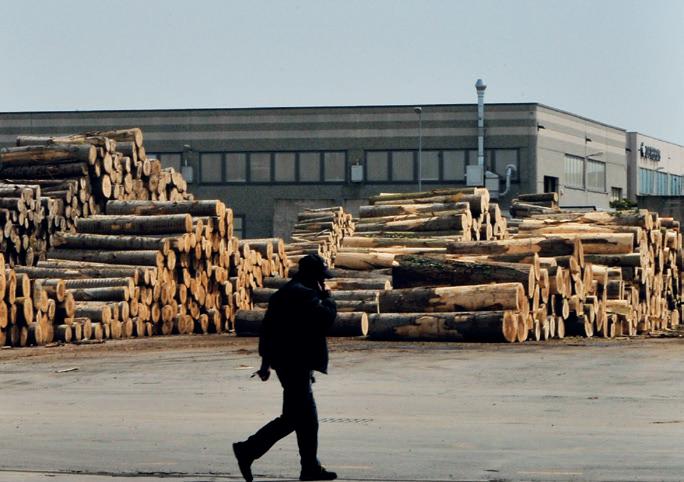
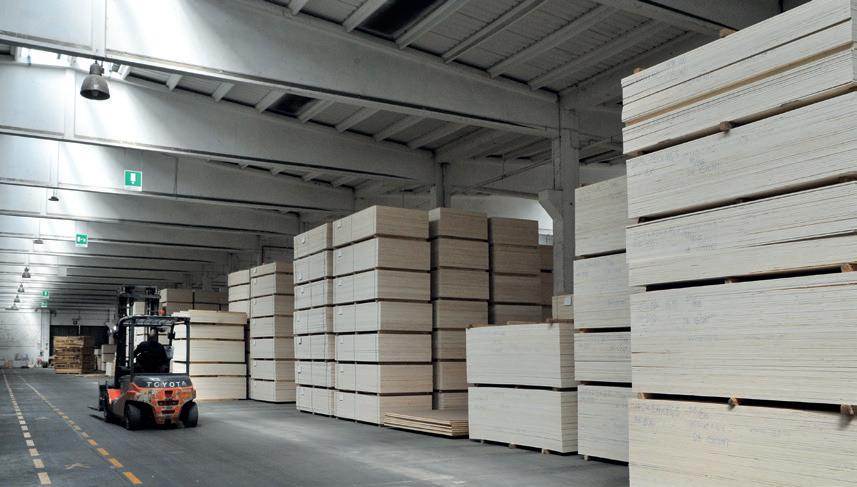
One panel
As far as products are concerned, the creation of a single panel for motorhome floors is certainly noteworthy. The goal of the Sandei Group is to increasingly meet the customer’s needs, eliminating the problems they might encounter in the production phase. This is where the idea of a single-panel RV floor came from. A single panel instead of assembled wooden panels ensures more structural strength and less work on the production line. “We have been working on this panel for quite some time now” , explained Roberto Bigo-
follow the whole process from plant seed to finished panel. Our customers do not have to interface with other suppliers and have a single contact. Consequently, we can streamline our processes and ensure continuous quality control. The search for quality starts with the logs. We have spent years selecting companies capable of working to the high quality standards we expect”.
People and the environment
The Sandei Group is keen on environmental sustainability. Maller and Industria Compensati Colorno have acquired FSC environmental certifications for forest sustainability and
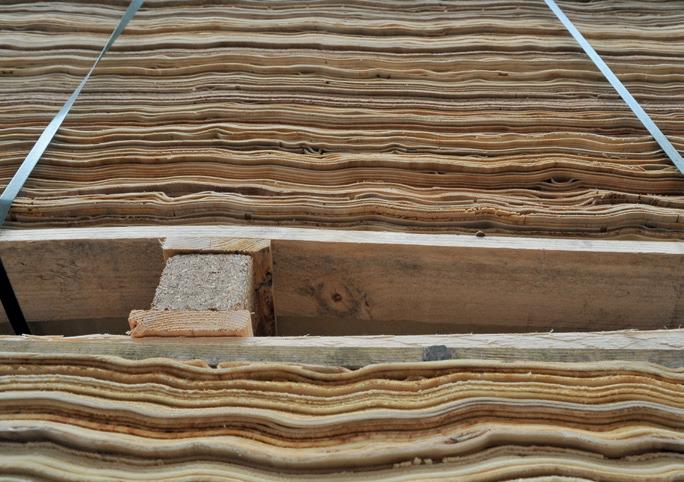

ni, International Sales Manager of Maller and Industria Compensati Colorno. “It was the founder himself, Maurizio Sandei, who wanted to take this project forward. We introduced the technology in 2016 and refined it. We ran many trials and now we have a tried-andtested finished product”. The new floor panel can be made in various sizes, customised and coated during production. Made of poplar plywood, it is lightweight but has high flexural strength and perfect flatness.
a recycling process for waste materials is in place. Several photovoltaic modules were also installed at the plan. The entire Sandei Group is committed to good environmental behaviour, such as using recyclable packaging wherever possible. Machinery authorised by Catas has recently been installed to control formaldehyde emissions at Industria Compensati Colorno.
“The focus on the environment is part of a broader picture linked to a focus on people that is strongly rooted in the Sandei Group” , said Francesco Ferramosca. “I recently joined the group after several years of experience in other companies. Here I found an attention to people that I wasn’t expecting and that amazed me. Here everyone works hard but the company also gives back so everyone works better. There are many projects in the field. We want to work on company values, on our reputation. I’ll give you an example: a few days ago, we sponsored a cancer prevention activity organised by the local authorities that involved taking prevention to the streets of Colorno, where our company is based, demonstrating that we are committed to our local community”.
The strength of the group
“We are involved in creating Sandei Holding, the parent company of several companies including Maller and Industria Compensati Colorno”, said Matteo Franza. “The Sandei Group is a very complex ecosystem, although the owners’ family is still behind it. We are preparing a major event for the employees of all the Group’s companies to promote our new identity. It will include highly symbolic team-building activities. Our employees will be invited to find their way out of a maze, but this will only be possible by working together with people from teams from other Sandei Group companies. The strength of the group will win and only by working as a team can the final result be achieved”.
77
In partnership with
on HYDROGEN - PART ONE
Hydrogen: a new goal for camper propulsion and energy autonomy? F
Words Terry Owen

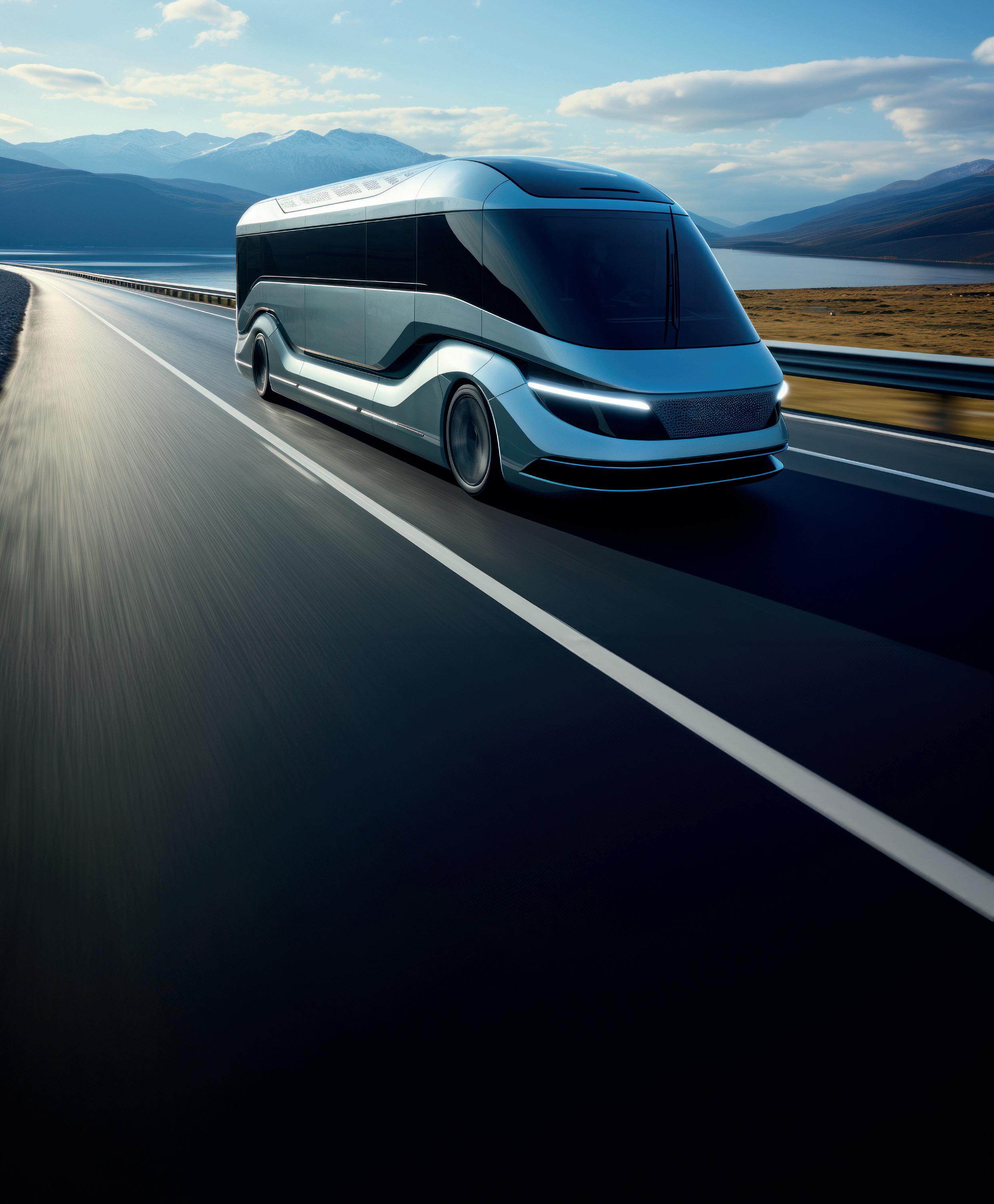
An investigation on what part hydrogen might play in campers of the future
In the constant drive towards zero emissions, battery electric vehicles (BEVs) are increasingly being seen as the future. Clean, efficient, and emission free, these vehicles point the way forward but they all rely on one thing – battery power and, for the time being at least, that means lithium.
Apart from the environmental impact of mining lithium and its associated battery metals such as cobalt, nickel and manganese, we still have limited driving ranges and long charging times when compared to fossil fuels. The technology is advancing slowly but the promised solid-state battery has yet to arrive.
That’s why, up to now, we’ve seen so
few battery-electric motorhomes, or cars capable of towing a caravan or travel trailer. Although the situation is slowly improving, recharging can double journey times and, if you’re towing, you’ll almost certainly have to unhook your trailer and find somewhere safe to park it whilst you take your towcar to the charging point. Towing also significantly reduces a vehicle’s range, often by 50%, meaning you’ll need to recharge twice as often.
Battery degradation is also beginning to become an issue as vehicles age, with new batteries often costing more than the value of the vehicle. Insurance too, can be a problem. It’s interesting to note that, both in
Europe and the US sales of BEV’s are now stalling as private buyers in particular continue to reject BEV models. According to the UK’s Telegraph newspaper, sales of electric vehicles (EVs) to ordinary drivers plunged by almost a fifth this year, amid calls for the government revive the stalling market by cutting taxes. It goes on to say that consumer EV sales were 17% lower for the first two months of 2024 compared to the same period a year earlier.
Meanwhile, in the US in November 2023, the Economist reported that 92 days’ worth of EVs languished on dealership forecourts, compared with just 54 days of gas-guzzler inventory.
78
ocus
A futuristic hydrogen-powered vehicle image generated by AI
The rise of hydrogen
Against this backdrop, hydrogen is slowly gaining ground as an alternative zero-emission fuel. With refuelling times akin to those of fossil fuels and the ability to produce heat and power off grid, hydrogen could just be the perfect fuel for the RV world. With motorhomes and campers in mind it also helps that hydrogen tanks are easier to package in a van type vehicle, while the lower weight of a fuel-cell or hydrogen-combustion van compared with a battery-electric one allows for a greater payload.
So far, the take up of hydrogen technology has been slow, partly due to the lack of refuelling points. However, the situation is now changing. In the EU a major piece of legislation boosting the use of hydrogen in transport came into force in September 2023. The Alternative Fuels Infrastructure Regulation (AFIR) requires the 27 member states to ensure that publicly accessible hydrogen filling stations for both heavy and light duty vehicles are set up in every “urban node” and every 200 km along the core routes of the planned Trans-European Transport Network by 2030.
Meanwhile, in the USA, the Biden administration has published its National Zero-Emission Freight Corridor Strategy to support the decarbonisation of medium and heavy-duty trucks. It has an eye toward ‘ubiquitous and convenient’ access to hydrogen refuelling stations and electric charge points by 2040.

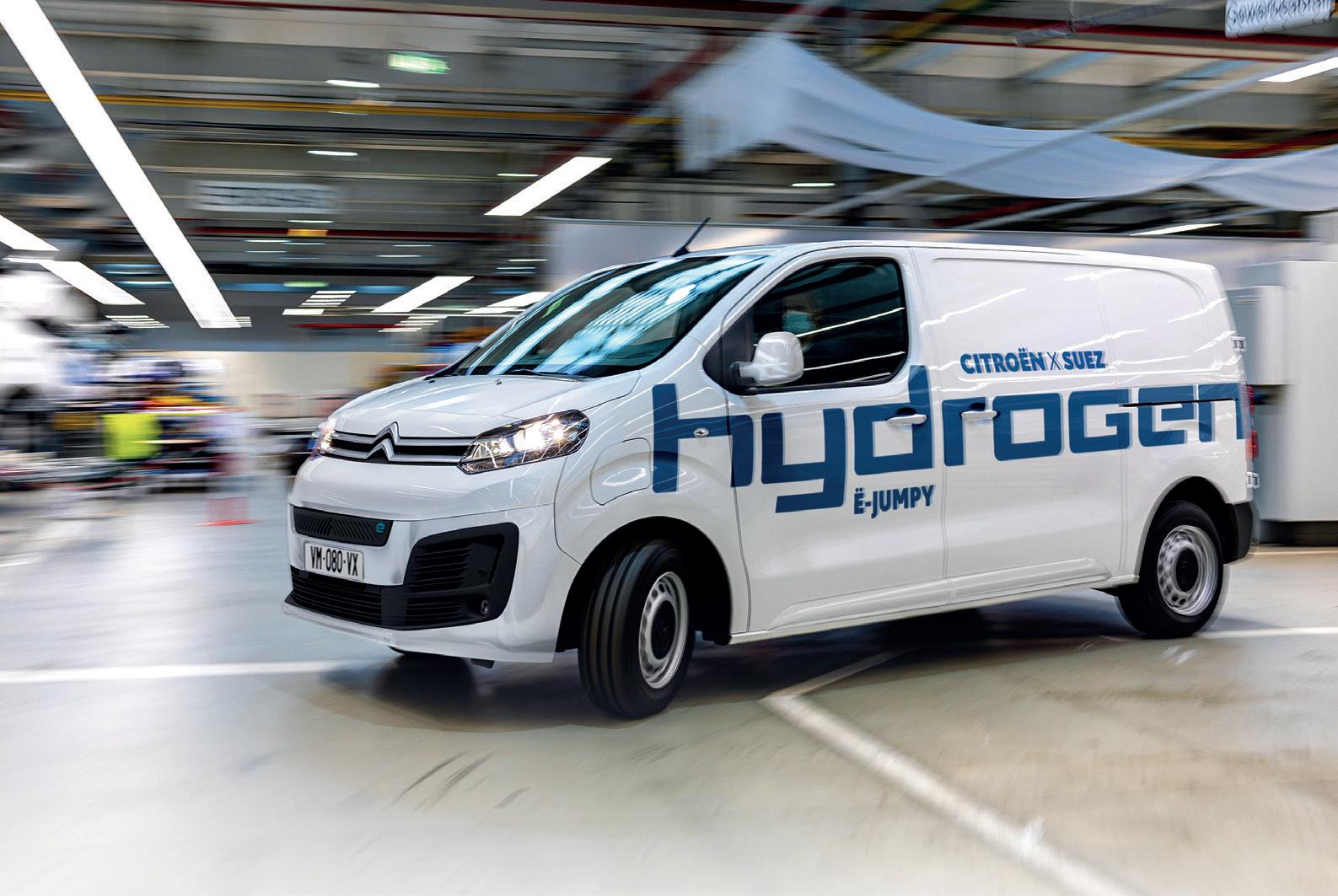
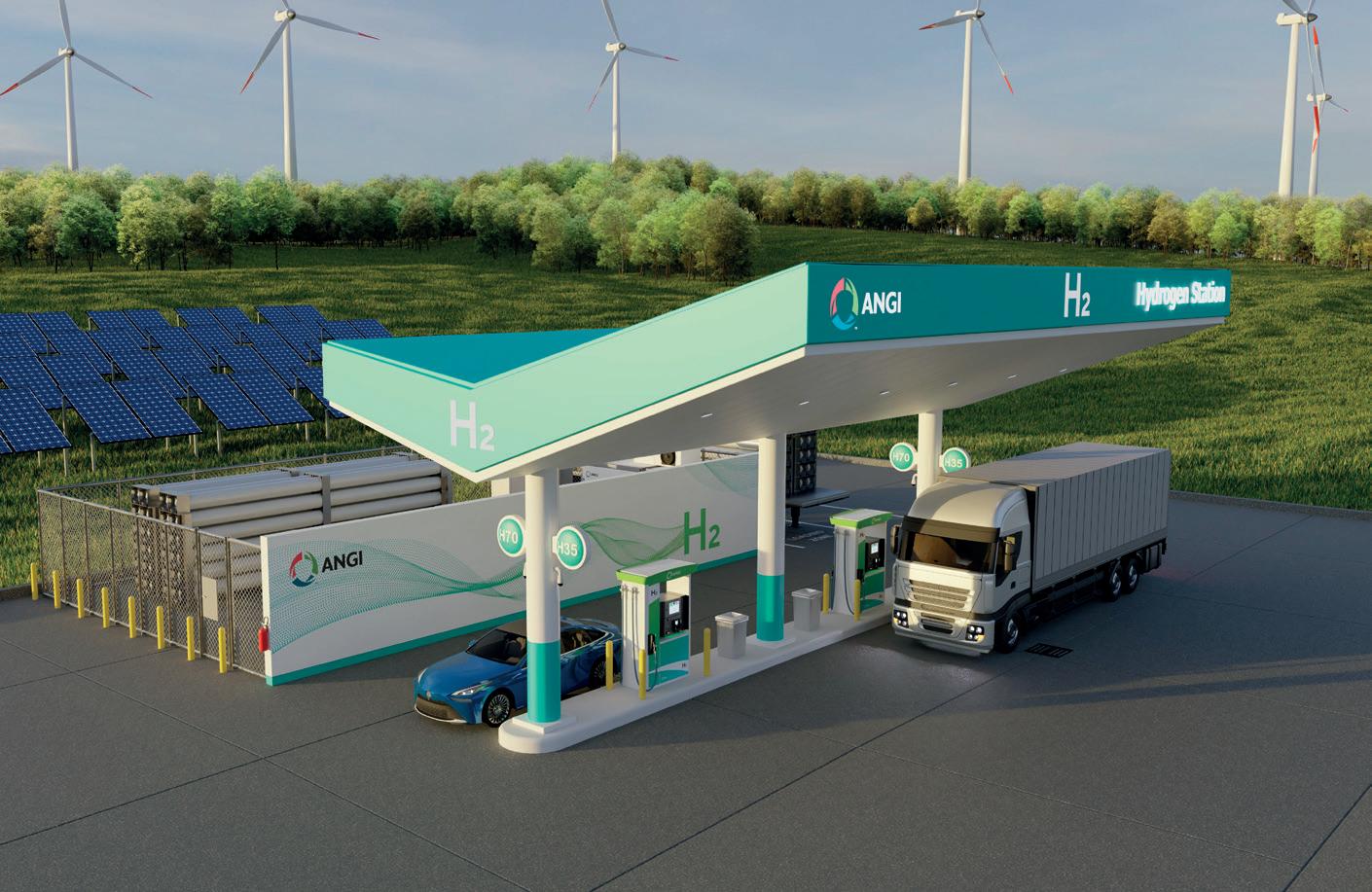
Fuel cell electric vehicles (FCEVs)
For vehicle propulsion, hydrogen is used in one of two ways. Most commonly, it powers a fuel cell to produce electricity for a battery which then acts as a reservoir to supply power for driving and other systems. This type of vehicle is known as a fuel cell electric vehicle (FCEV).
Fuel cell vehicles, using electric motors, are relatively energy efficient although not as efficient as using grid power direct from a battery. A fuel cell system can use 60% of the fuel’s energy—corre -
79
ANGI H2 station with hydrogen dispensers
Renault’s Master H2-Tech fuel cell van has been in production since 2022
Citroen’s first production fuel cell vehicle is for the Suez group. It has a range of 400 km and a refill time of just 3 minute.
F ocus on HYDROGEN - PART ONE
sponding to more than a 50% reduction in fuel consumption compared to a conventional vehicle with a gasoline internal combustion engine. Mercedes was an early demonstrator this technology with their F-Cell Sprinter van which debuted at the Caravan Salon in Dusseldorf in 2018. The big advantage of FCEVs over BEVs is fast refuelling times and potentially greater ranges. The downside is cost because of the complex nature of the technology when compared to BEV and internal combustion engine (ICE) vehicles. The lower efficiency of FCEVs compared to BEVs is due to energy losses in hydrogen production, compression, storage, and fuel cell conversion.
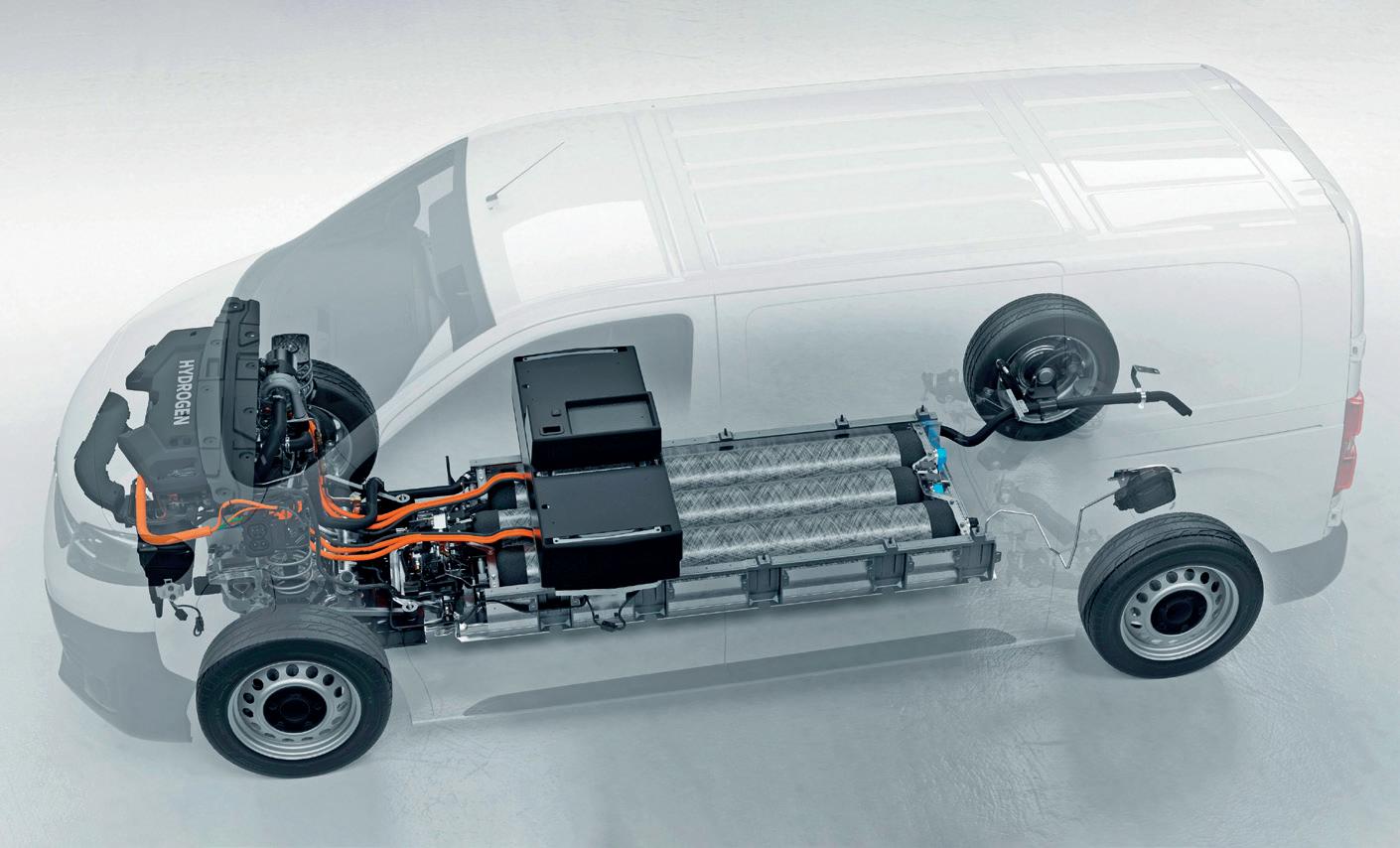
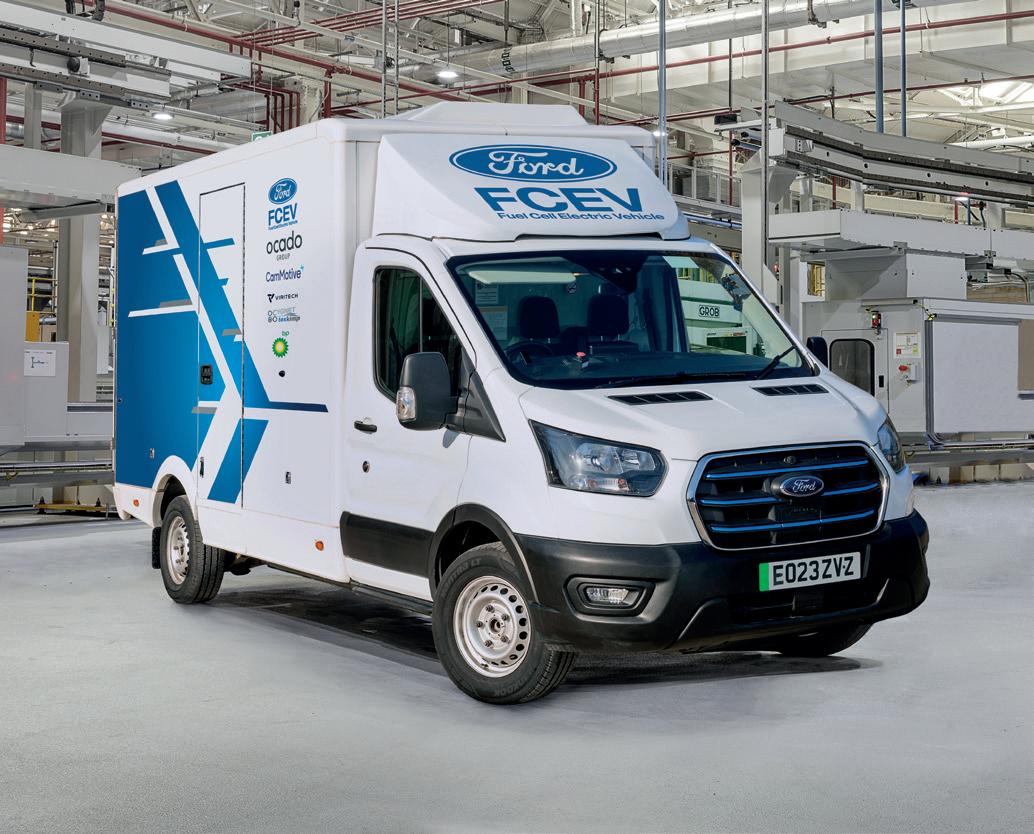
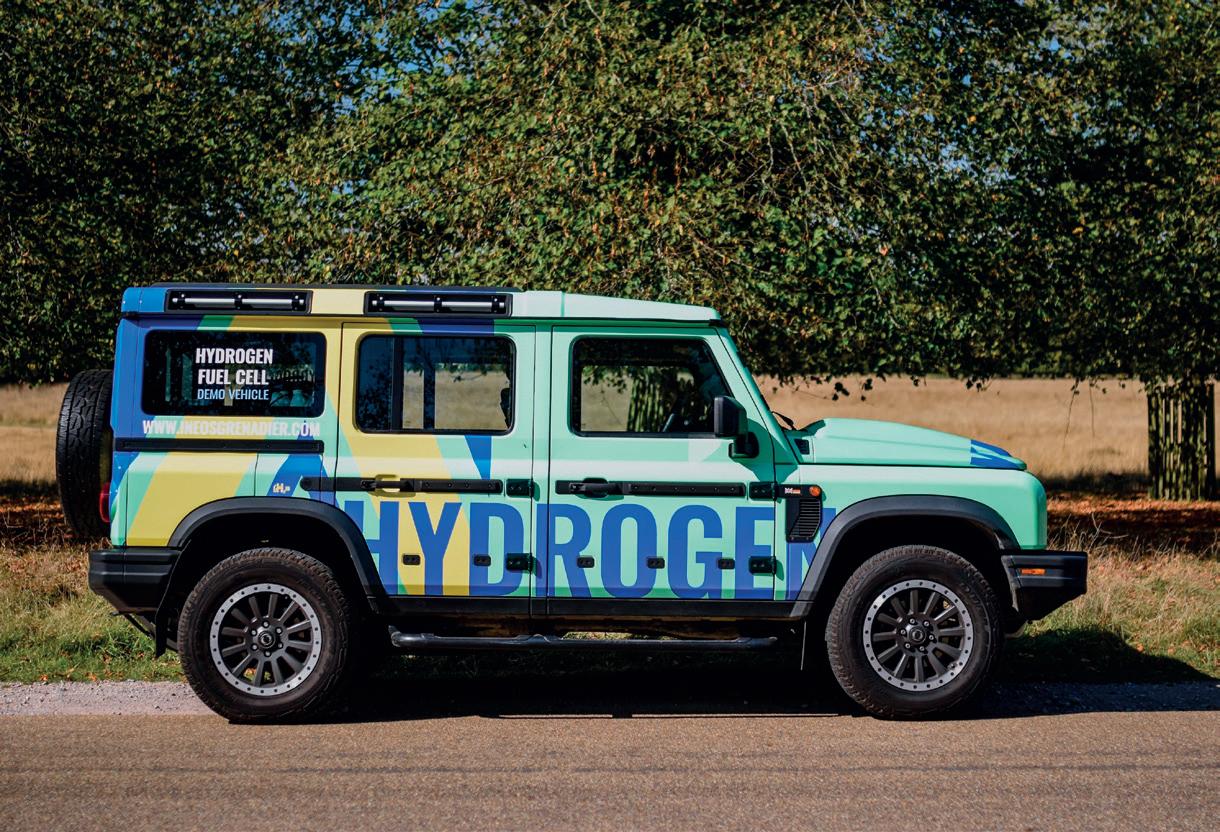
Hydrogen internal combustion engines (H2 ICEs)
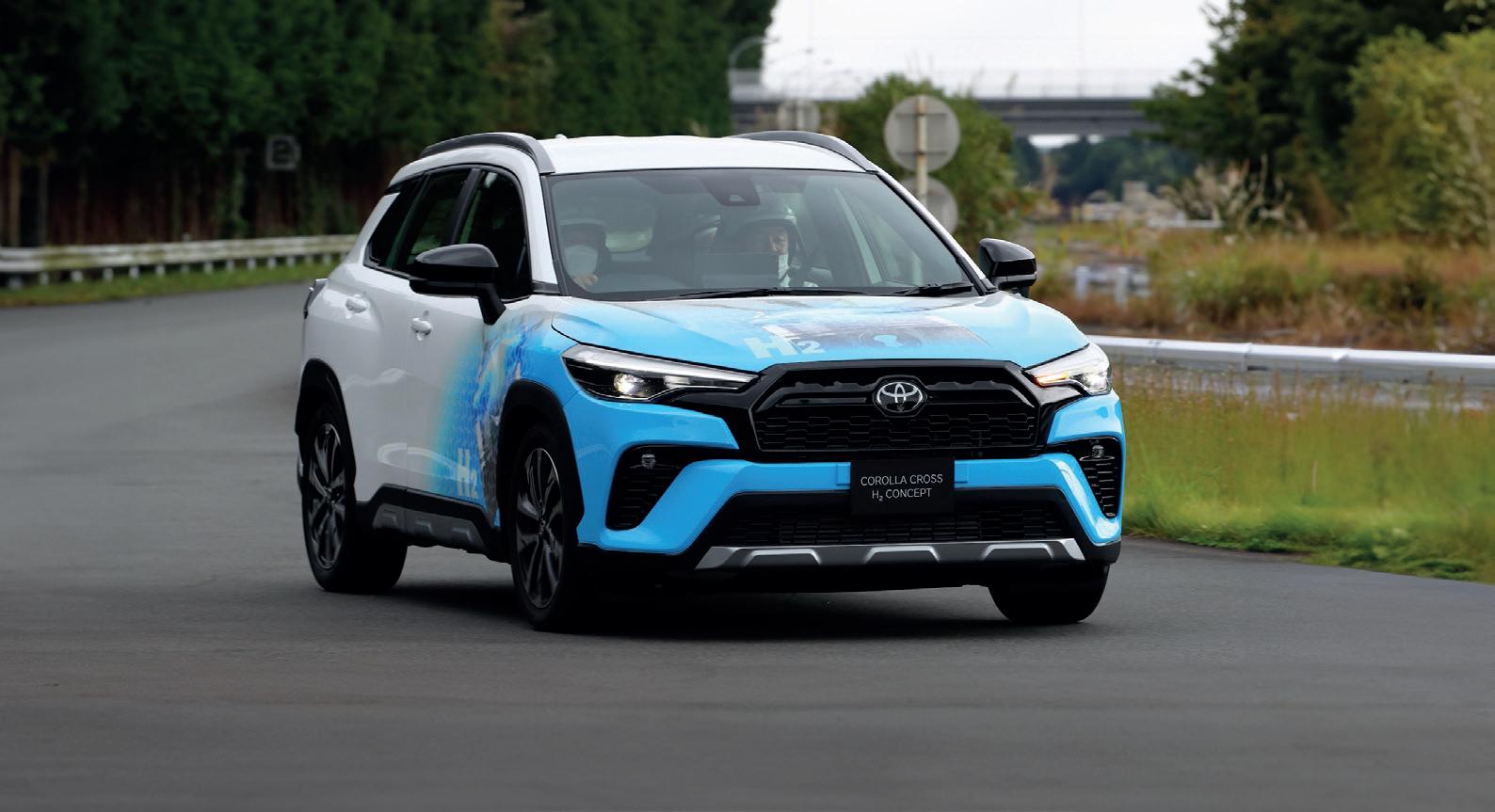
Another way to use hydrogen for propulsion is to burn it in a fuel in an internal combustion engine. This works in a similar way to petrol and diesel vehicles, but using gas instead of liquid fuel. The only emission is water and a small amount of nitrogen oxide (NOx) gasses which can easily be treated via conventional AdBlue technology. The downside is that it’s less efficient than FCEV technology in most scenarios, so you won’t go as far on a given amount of hydrogen. Internal combustion engines tend to be at their most efficient under high load, where they can come close to the efficiency of FCEV’s.
H2 ICE technology has none of the disadvantages of lithium power,
80
Opel Vivaro fuel cell vehicle
Ineos Grenadier Fuel cell demonstrator
Ford’s E-Transit based fuel cell vehicle is part of a small fleet test for customers hauling heavy goods long distances
Toyota’s Hydrogen H2 ICE concept Corolla Cross car has a turbocharged 1.6 litre three-cylinder engine converted to use Hydrogen as a fuel
Industry take-up of hydrogen technology
H2 ICE technology is particularly well suited to the truck and heavy-duty engine markets where high working loads prevail and rugged performance is a must. Space for gas tanks is also much less of an issue.
An early adopter was UK plant manufacturer JCB, who quickly realised the potential of the technology and developed engines with a performance similar to the diesel ones they replaced. Today JCB has been joined by other big names such as Cummins, Deutz and Volvo.
Volvo says “We see hydrogen combustion engines as eminently suitable for long haul applications where there is limited access to, or time for, recharging, and refuelling options are limited. Hydrogen combustion technology is a key element in the ongoing transition to net zero emissions that will support our customers’ journey and investments in reducing their carbon footprint.”
More recently Stellantis’ CEO, Carlos Tavares, has an-
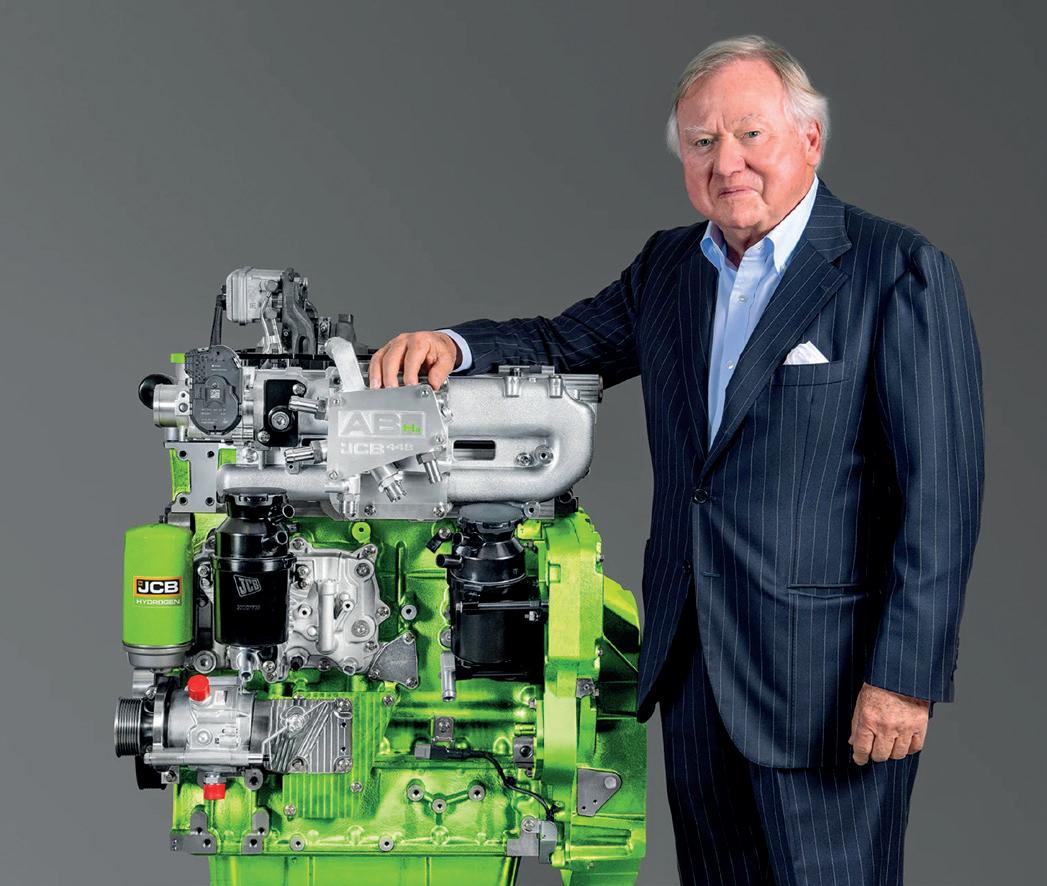
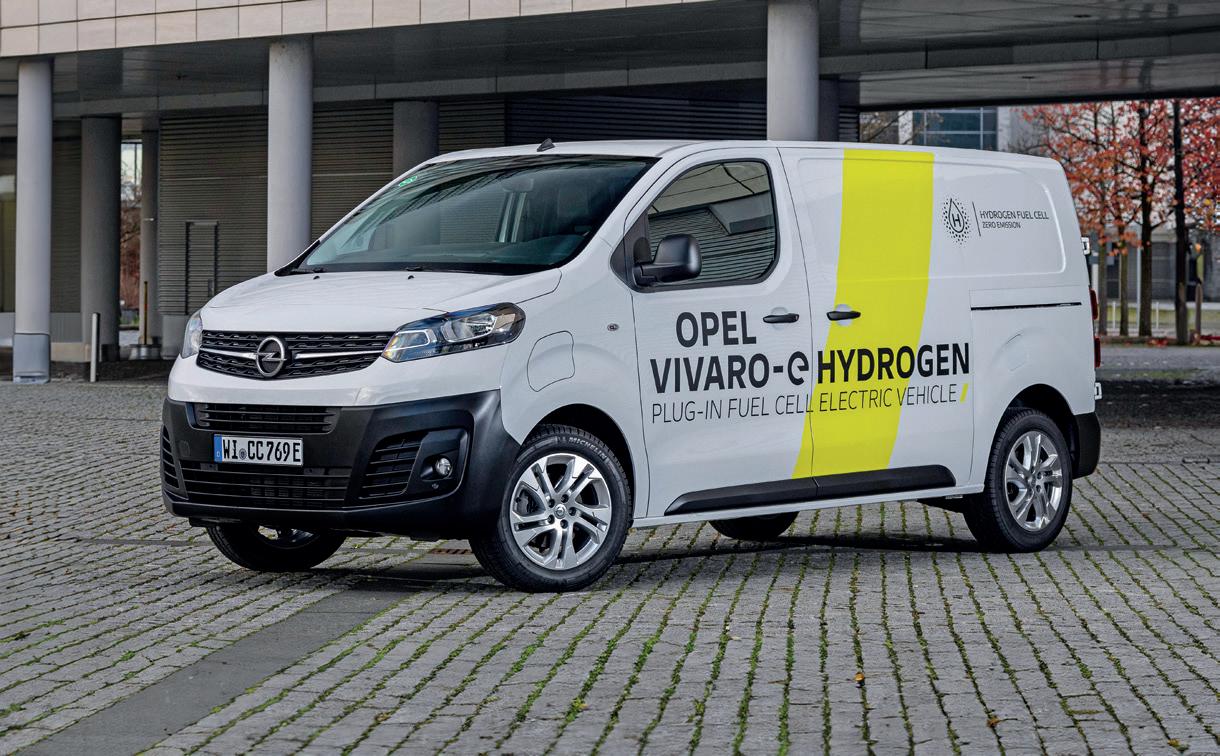
nounced that it too is working on hydrogen combustion engines as one of four different solutions to zero-emissions driving. Speaking at the opening of the Symbio hydrogen fuel cell factory in Lyon, France, in December 2023, Tavares went on to say that “The real competition is starting between fuel cell, EVs, hydrogen internal combustion engines and even synthetic fuels. We will see in the next few years what is going to be the best solution for the citizens.”
Tavares didn’t elaborate on which of its vehicles might be offered with hydrogen combustion engines but it is already selling its K0 range of mid-sized vans (e.g. Opel/ Vauxhall Vivaro) with fuel cell options.
Toyota is also a vocal advocate of hydrogen. In January this year its chairman and former CEO, Akio Toyoda, told industry executives he believed the share of battery cars would peak at just 30% of the market. The remaining 70% would comprise hybrid, hydrogen fuel-cell, and hydrogen combustion engines.
Based on fuel cell technology, Toyota’s Mirai is one of the few hydrogen-powered cars that are widely available (alongside the Nexo SUV from Hyundai). Toyota has also demonstrated hydrogen combustion engines in both the Yaris and Corolla race cars running in Japan.
whilst being virtually as convenient as fossil fuels. What’s more it uses much of current engine technology.
Indeed, the modifications to a gasoline or diesel engine to make it run on hydrogen are relatively minor and cheap. It also means that servicing and maintenance requirements are already well understood with very little additional training required. One advantage over FCEVs is that the quality of the hydrogen needed is quite a bit lower than that needed for a fuel cell. This makes it both less costly to produce and easier to source.
Add to this the lack of disruption to supply chains when compared with BEVs or FCEVs and it’s easy to understand why hydrogen powered combustion engines are progressively being seen as the easiest and quickest route to zero-emissions driving.
A further sign of the industry’s support for H2 ICE technology is the formation of the Hydrogen Engine Alliance. This is a consortium of companies including Daimler Truck, Claas, Isuzu, JCB, MAN and suppliers such as Bosch, BorgWarner and Dana that has been established to promote the case for the H2 ICE route.
Toyota Chairman, Akio Toyoda, believes battery cars will peak at just 30% of the market
In the next issue we conclude our investigation by taking a wider look at some of the issues we’ve identified here as driving the case for hydrogen.

81
JCB Chairman Lord Bamford with one of the company’s H2 ICE engines
The Opel/Vauxhall Vivaro hydrogen fuel cell van entered production at the end of 2021
eport Fit Your Camper 2024
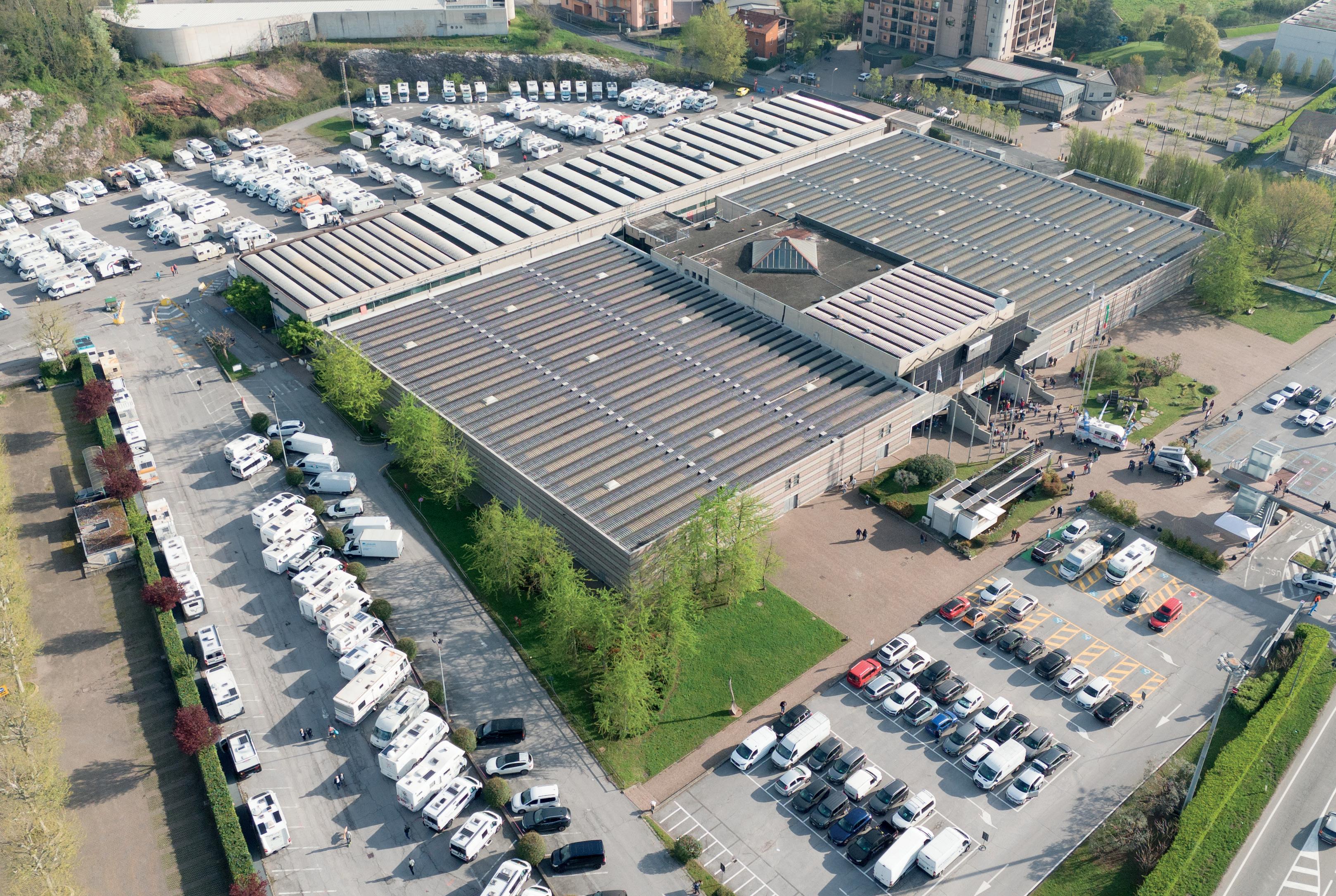

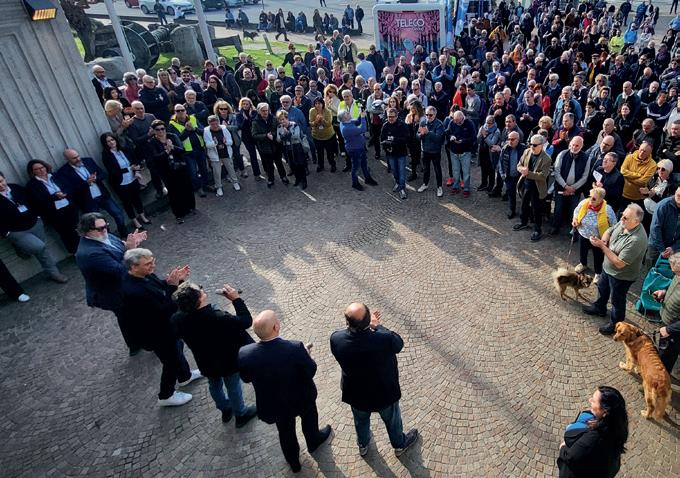
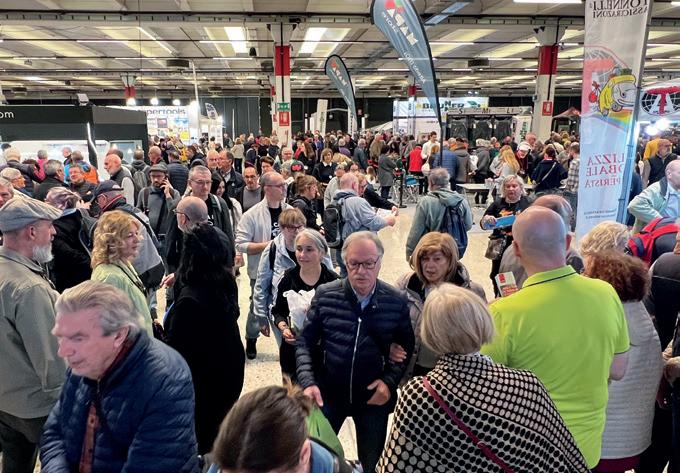
A surprising debut for a first edition
The first edition of Fit Your Camper exceeded all expectations, attracting 12,623 visitors and 484 industry professionals, solidifying its strategic role in the Italian trade fair landscape. The new dates for the second edition of Fit Your Camper are set for April 3 and 4, 2025, for B2B days. The doors will open to the public on April 4 after 2 p.m., and on April 5 and 6
Fit Your Camper, the fair dedicated to accessories for campers, caravans, vans, and leisure, concluded in Erba, near the Como Lake in Italy, with participation beyond the best expectations. From April 4th to 7th, the event, held at the Lariofiere venue, drew an enthusiastic and passionate audience, opening a new chapter among industry events.
With an attendance of 12,623 visi-
tors, Fit Your Camper has confirmed the great interest in the sector of accessories and equipment for outdoor tourism. The peak was recorded on Saturday, April 6th, with 6,902 visitors, followed by an equally lively Sunday with 5,721 enthusiasts crowding the exhibition spaces.
In addition to the public turnout, the presence of 484 industry professionals contributed to making the fair a strate-
gic meeting point for market operators. The number of tickets booked through the online platform was even higher (17,819 bookings for B2C days and 760 for B2B days).
The organizers conducted a survey among operators and exhibitors and the preferences lean towards the following choices for the 2025 edition: same period and same location; one and a half B2B days (Thursday and Fri-
82
R
day morning); Friday afternoon open to the public, free access. A fair where it is possible to sell accessories, but only those that do not require professional installation.
Initiatives and events
Numerous events characterized the days of the fair, enriching the experience for professional visitors and campers and caravanners. The organizers featured a networking dinner on Thursday, April 4th, where exhibitors and professional visitors enjoyed an evening of networking accompanied by jazz music and a well-received light dinner by Lariofiere’s internal catering service.
On Friday, April 5th, the first “Meet & Match” took place, marking a historic moment for the open-air tourism sector in Italy. This event saw enthusiastic participation from content creators, allowing companies to explore new dig-
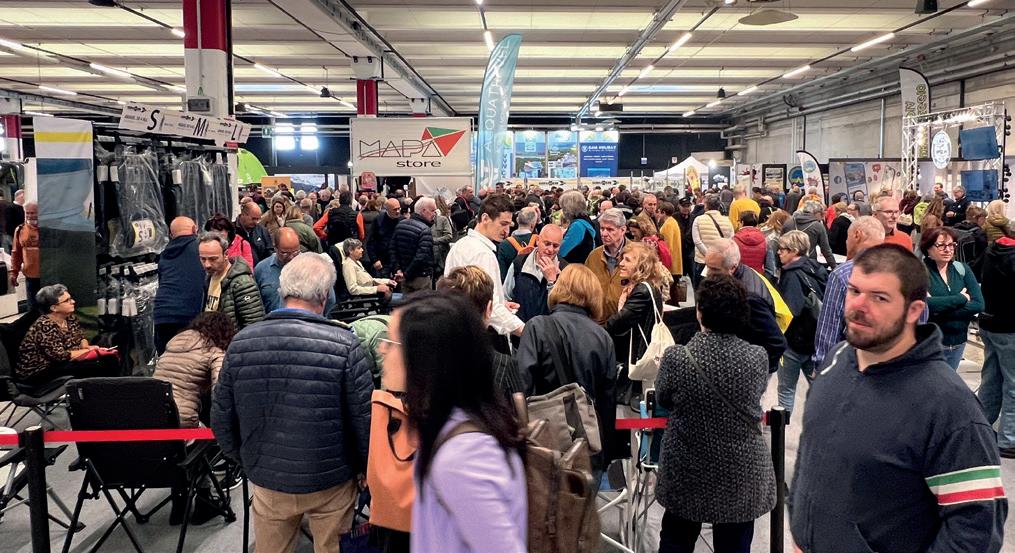
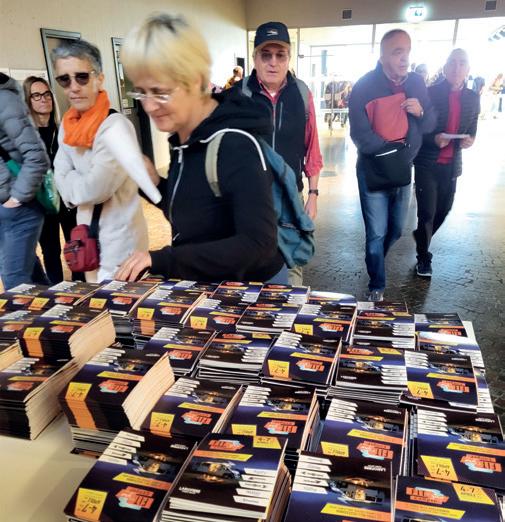

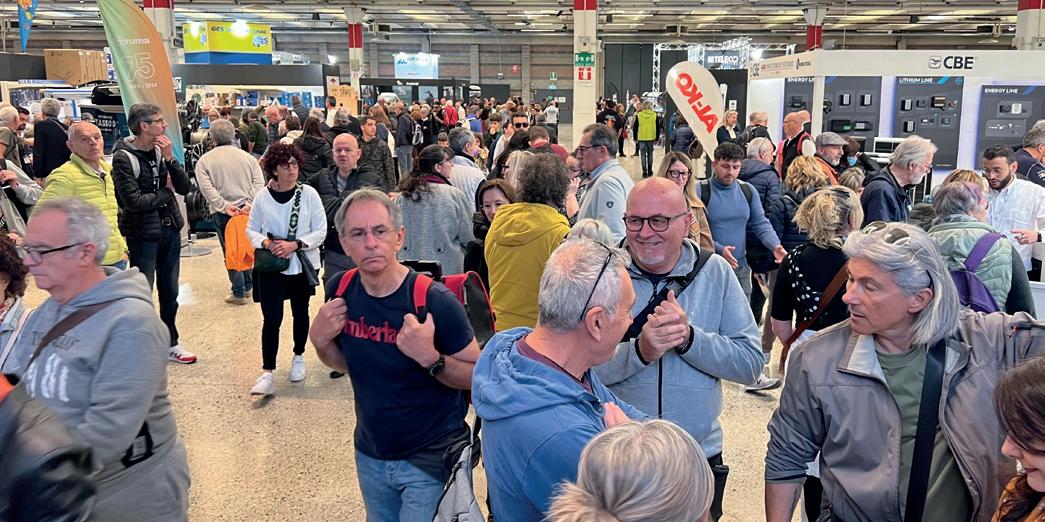
The future of distribution: insights from the expert
During the B2B days of the Fit Your Camper fair, dedicated to dealers, researcher Elisa Giubilato from Quintegia addressed various topics concerning the automotive and caravanning sectors in her talk titled “Transformations Impacting Dealers and Con-
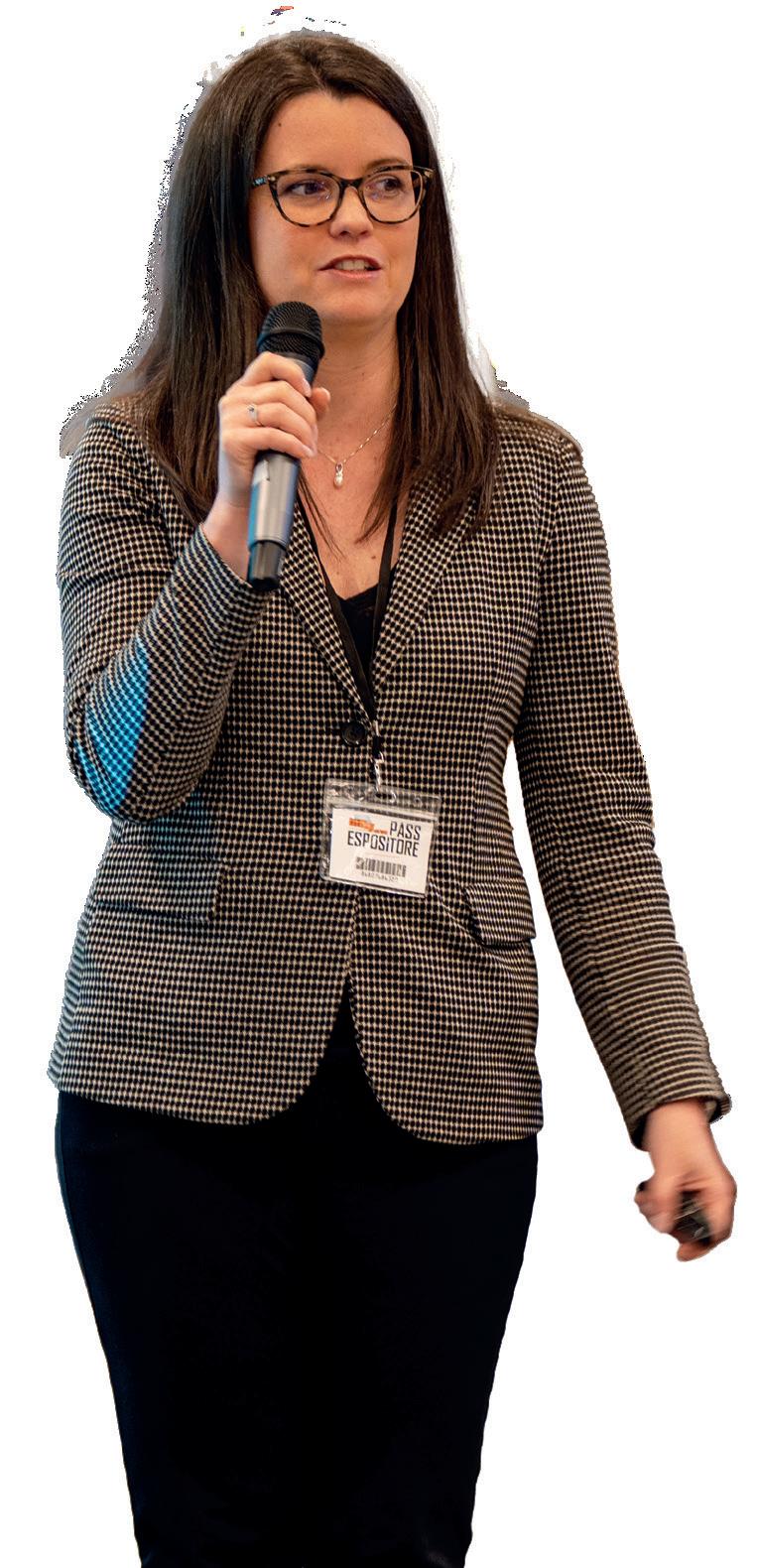
Elisa Giubilato, with over 15 years of experience in automotive distribution, shared her insights on the industry’s evolution and ongoing changes.
Significant industry changes
The automotive sector has faced several transformative events over the past fifteen years:
The 2008-2009 subprime market collapse and the public debt crisis until 2012 significantly impacted automotive registrations.
The COVID-19 pandemic disrupted production and caused stock overages, forcing a shift from a demand-driven distribution model.
• The transition to alternative energy sources like electric engines is reshaping the industry, requiring new skills and rapid adaptation to a changing market.
Agency model and dealership adjustments
The pandemic led to a stock shortage, prompting manufacturers to reconsider their distribution model, notably shifting towards an agency model where the manufacturer plays a more direct role in sales, reducing dealership risks and costs. This change is exemplified by brands like Smart and Mini adopting this model, with Stellantis expected to follow.
Dealer margins and market challenges
Dealership sales margins have significantly decreased over the last two decades, with a substantial reduction in invoice discounts and an increased reliance on variable bonuses linked to qualitative and quantitative criteria. The shift towards value over volume is prompting generalist brands to move towards the premium segment, while premium brands are advancing into the luxury market.
Consumer preferences and new mobility solutions
A survey by Quintegia revealed that half of the consumers would consider a new emerging brand for their next purchase, especially among Generation Z, reflecting a growing openness to innovative and less known automotive options. Dealerships are exploring new mobility solutions beyond traditional sales, including motorcycles, e-bikes, and scooters.
Digital engagement and customer experience
The importance of a well-structured website, social media engagement, and the management of online reviews are crucial for dealerships to attract and maintain customers. A focus on personalized customer experiences is key, with digital and physical dealership experiences needing to complement each other effectively.
83
R eport Fit Your Camper 2024
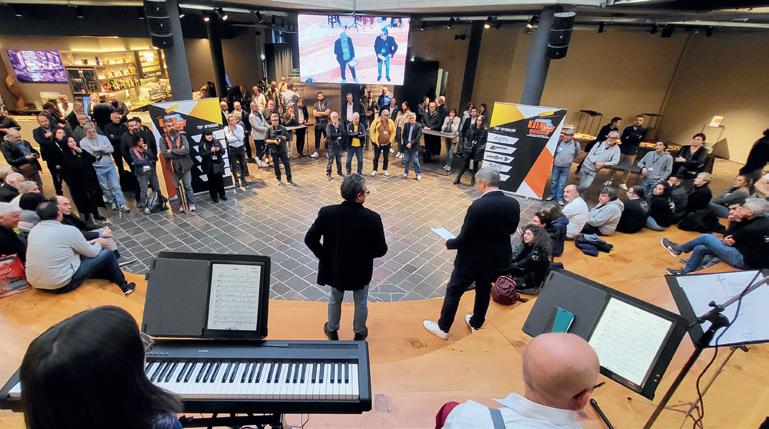
Networking Dinner
On the evening of April 4th, the organizers hosted a networking dinner, inviting exhibitors and professional visitors to continue their discussions over fine wine. Antonio Mazzucchelli and Fabio Viviani took the opportunity to thank all attendees. The evening continued cheerfully with jazz music by a trio and a well-received aperitif catered by Lariofiere’s internal service.
First “Meet & Match” Event
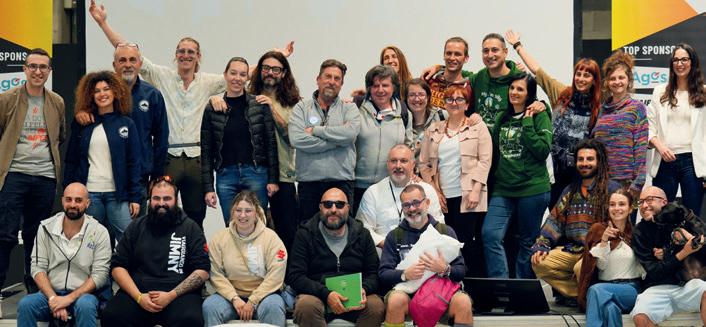
The inaugural “Meet & Match” took place on April 5th, marking a historic moment for the open-air tourism sector in Italy. The event saw enthusiastic participation from around fifteen content creators, offering companies a chance to interact directly with bloggers and content creators to discover new digital marketing strategies and explore potential fruitful collaborations.
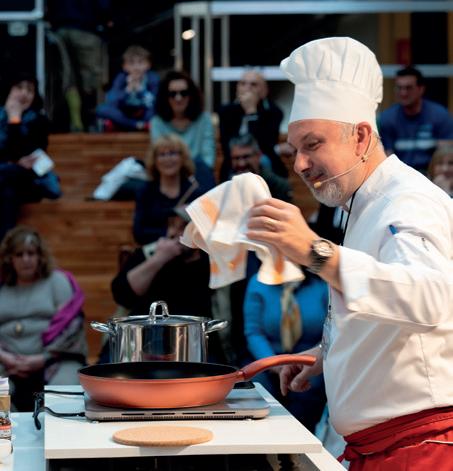
Fit Your Party!
Camper Chef Series powered by Airxcel/CAN
In the central arena of Fit Your Camper, a series of four culinary sessions led by expert chef Gianluca Gabanini took place. Visitors learned how to prepare a full menu, from appetizers to desserts, with techniques suitable for the confined spaces of a camper. Each session featured Chef Gabanini sharing the secrets of his dishes, focusing on a specific course and engaging a large audience.
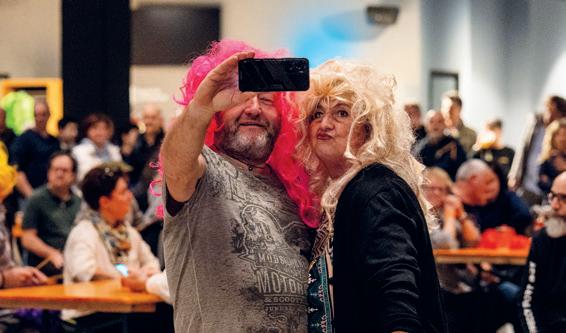
On April 6th, Fit Your Camper hosted the Fit Your Party, an exclusive event celebrating the passion for camping with an evening full of music, dance, and good food. Pavilion C was transformed into a lively space for the occasion, equipped with long tables and benches to create a convivial atmosphere. The night came alive with an eclectic selection of music, from traditional melodies to modern rhythms, perfectly mixed by DJ Luca Giorgini. His talent in integrating video and music provided a multisensory experience that kept participants dancing late into the night.
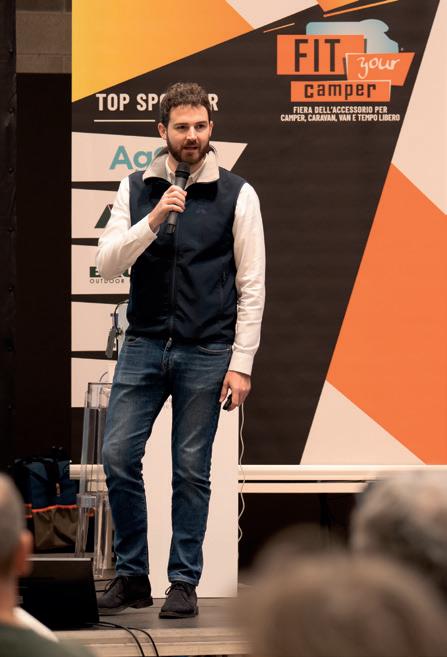
“At School of Safe Driving with the Experts” powered by AL-KO
On the technical stage, Alberto Orsatti, an expert in high-end and sports automotive, led discussions on the dynamic behaviors of vehicles and answered audience queries, providing authoritative advice on safety both in driving and in setting up one’s recreational vehicle. The discussions covered traction, stability, road holding, how to react and counter potential critical situations, and how to securely distribute and stow cargo in the camper before departure.
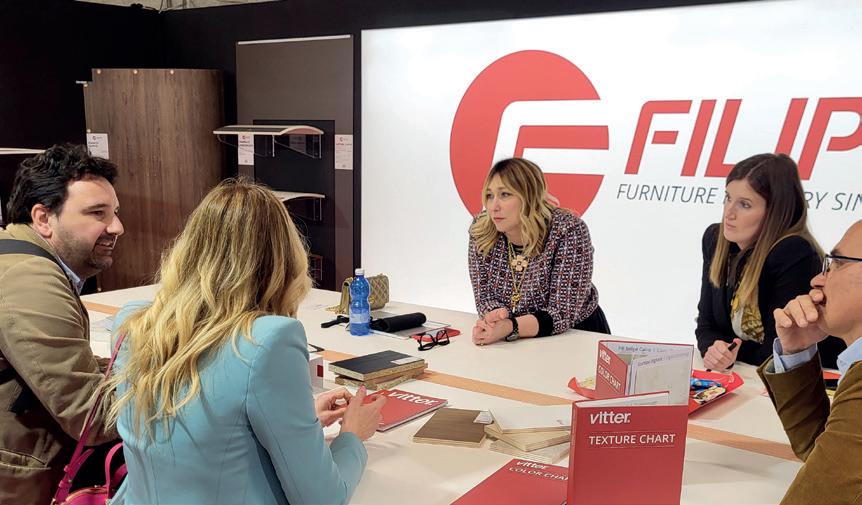
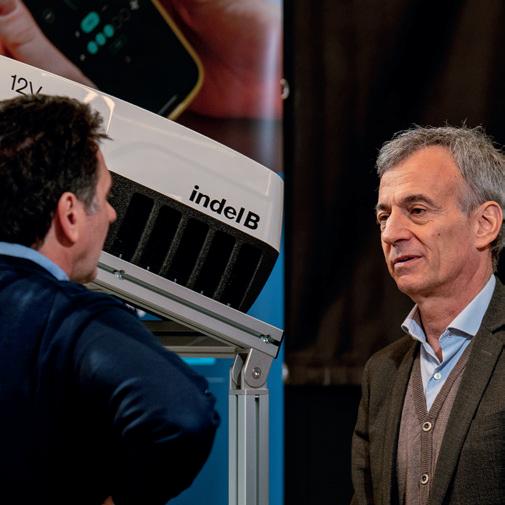
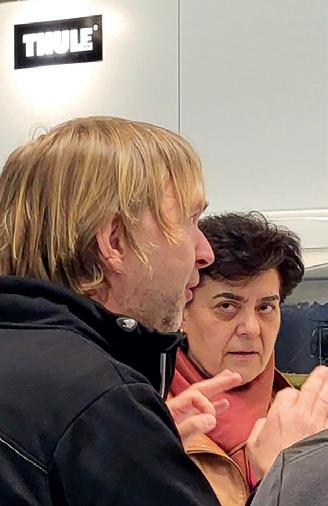
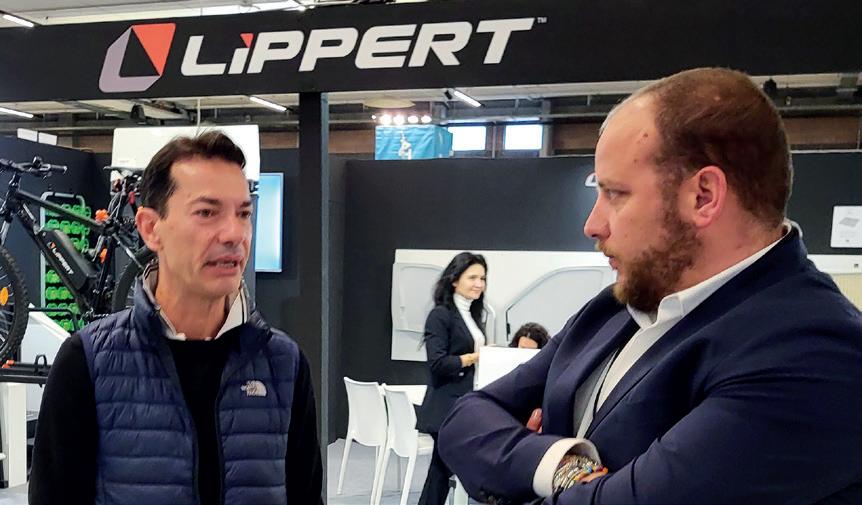
ital marketing strategies and potential collaborations. The content creators used their platforms to amplify the event’s visibility, further enhancing Fit Your Camper’s reputation.
The “Camper Chef” event, powered by CAN, featured four culinary sessions led by chef Gianluca Gabanini.
“Fit Your Party!” on Saturday, April 6th, celebrated the passion for camper life with an evening of music, dance, and good food. Noteworthy among the initiatives were the seminar “On the Path of Innovation: The Future in Automotive and Recreational Vehicle Distribution,” organized by Quintegia and Camper Professional Italia; the presentation of the Camper Professional Dealer Award 2024; the game “It’s Game Time: All Professors with Someone Else’s Camper,” organized by Camperisti Italiani; the meeting “Traveling with Four-Legged Friends,” presented by Marta Viviani; and Alberto Orsatti’s intervention “Safe Driving School with Experts.”
Journalist Giovanni Battista Bertolani from Plein Air magazine hosted a series of engaging public meetings with various companies, adding interest and energy to the events with his technical knowledge and charisma.
Luca De Gennaro, journalist and photographer from Plein Air, conducted popular photography courses, teaching participants to capture not just places but the stories and atmospheres of their
84


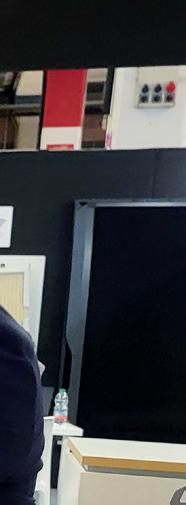
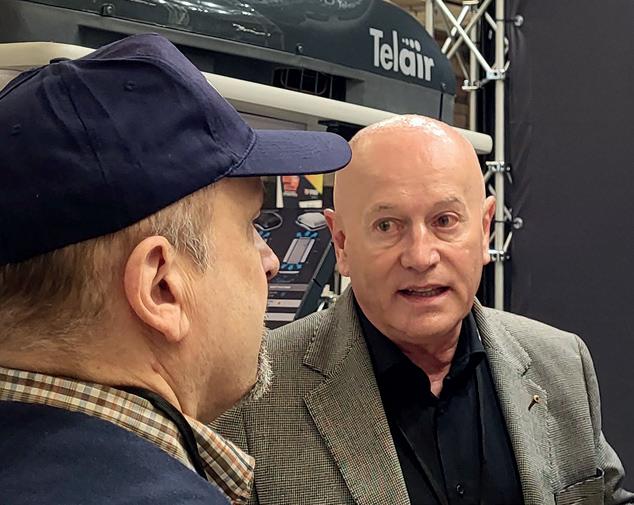
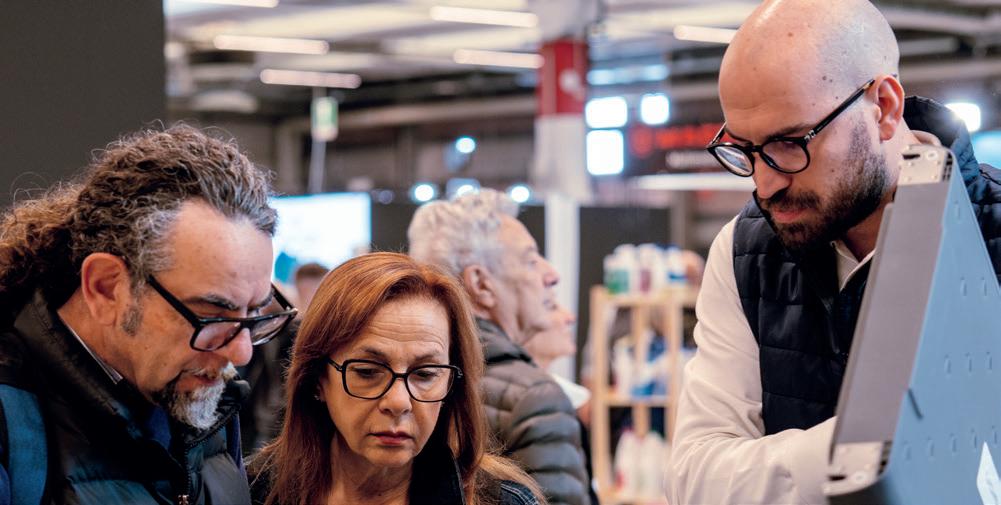
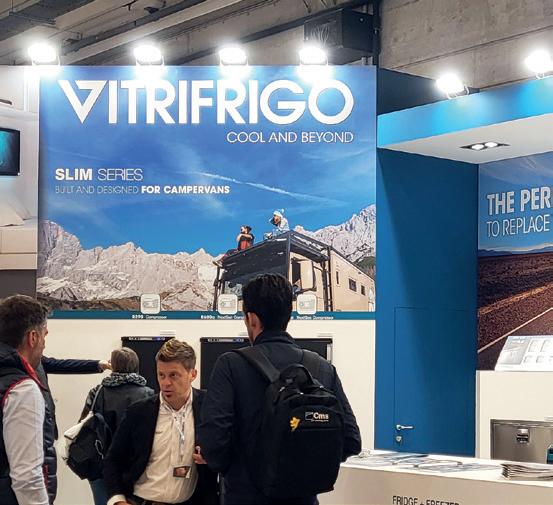
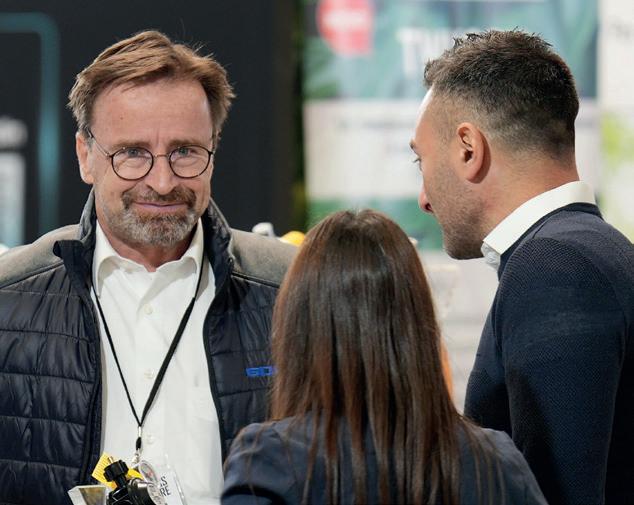
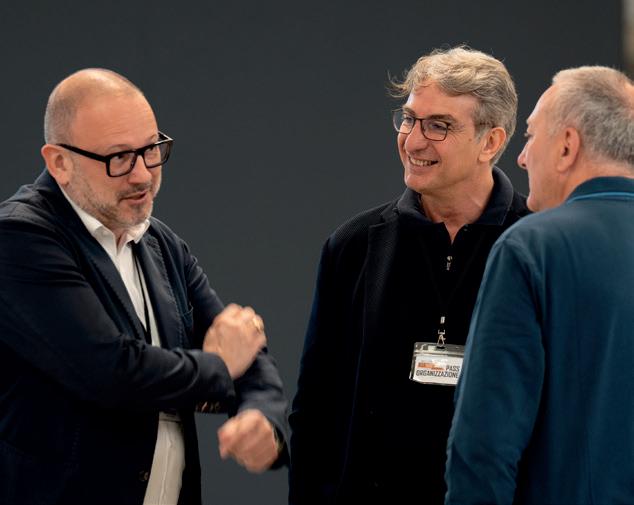
travels, turning travel photography into narrative art. The Fit Your Camper 2024 event was a comprehensive showcase of the latest trends and innovations in the camper and caravanning accesso-
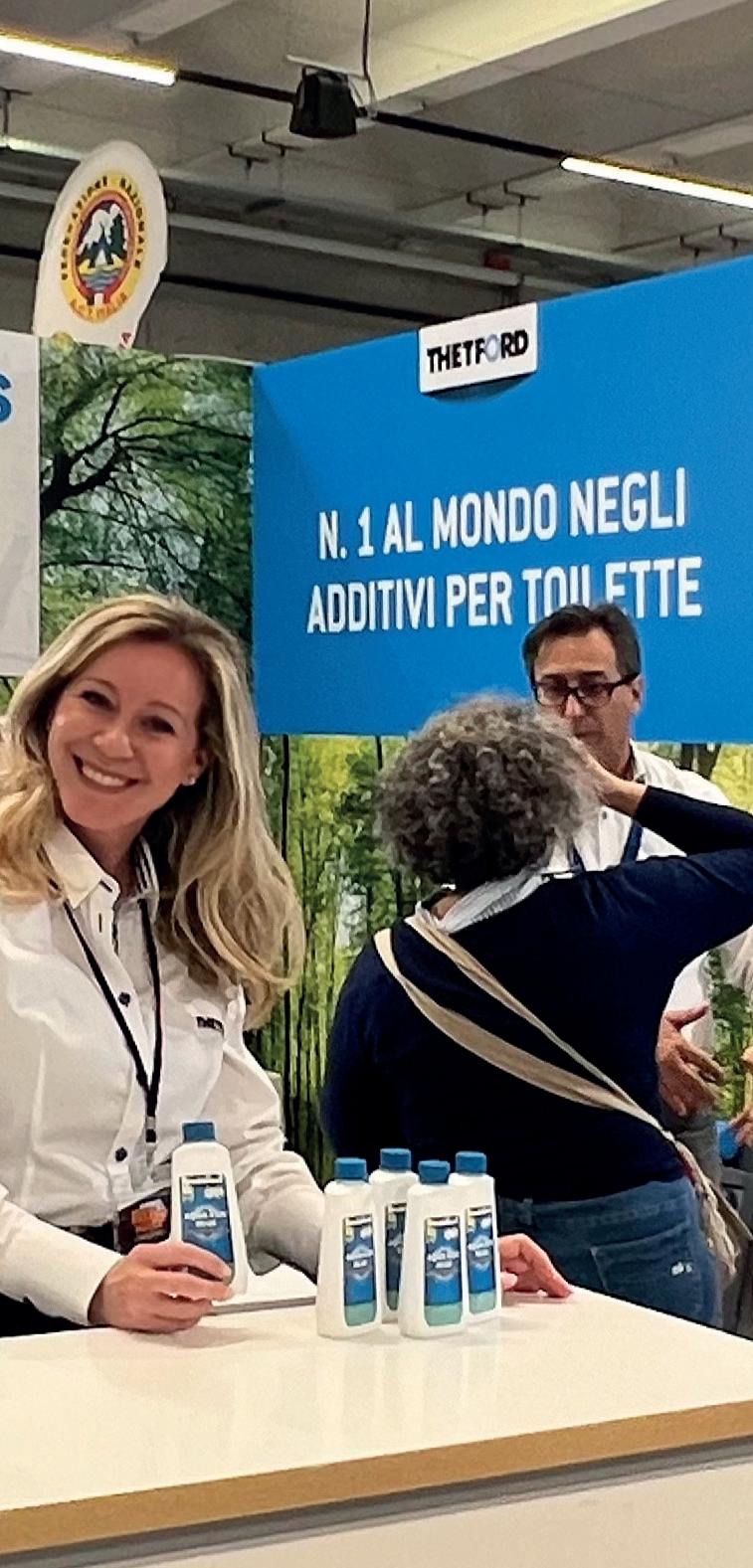
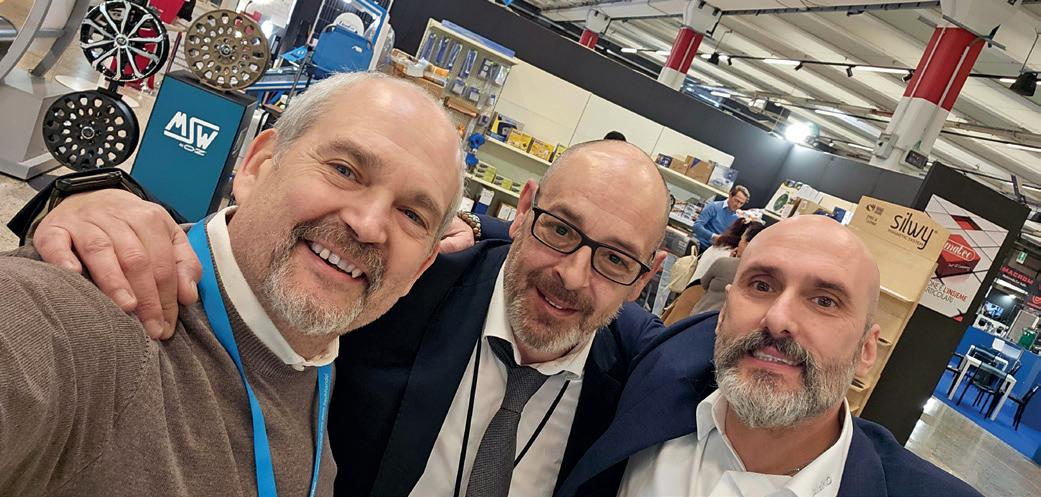
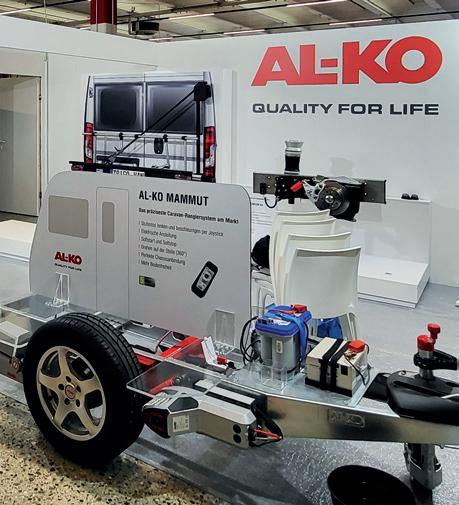
ries world, offering a rich array of activities and learning opportunities for all attendees. The success of this first edition promises an even more exciting and engaging event in 2025. The new
Camper Professional Italia Award 2024
During the Fit Your Camper fair on April 4, 2024, the first edition of the Camper Professional Italia Award 2024 took place. This event honored who excelled in 2023 in three different categories: the Camper Professional RV Dealer Award 2024, recognizing outstanding RV dealers; the Camper Professional Legacy
Award 2024, celebrating professionals who have made an indelible impact on the industry and left a lasting legacy; and the Camper Professional Editor’s Choice Mention 2024, highlighting companies and brands that stood out in 2024 for their marketing or promotional activities.
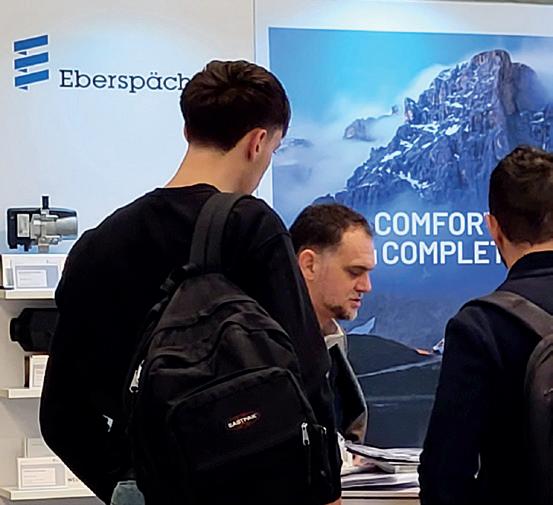
dates for the second edition of Fit Your Camper are set for April 3 and 4, 2025, for B2B days. The doors will open to the public on April 4 after 2 p.m., and on April 5 and 6.

This award, highly appreciated by all attendees at the celebration, was established by the b2b journal Camper Professional Italia. This publication is another editorial product from our publishing house dedicated to professionals in the Italian market, with a specific focus on dealers and aftermarket accessories.
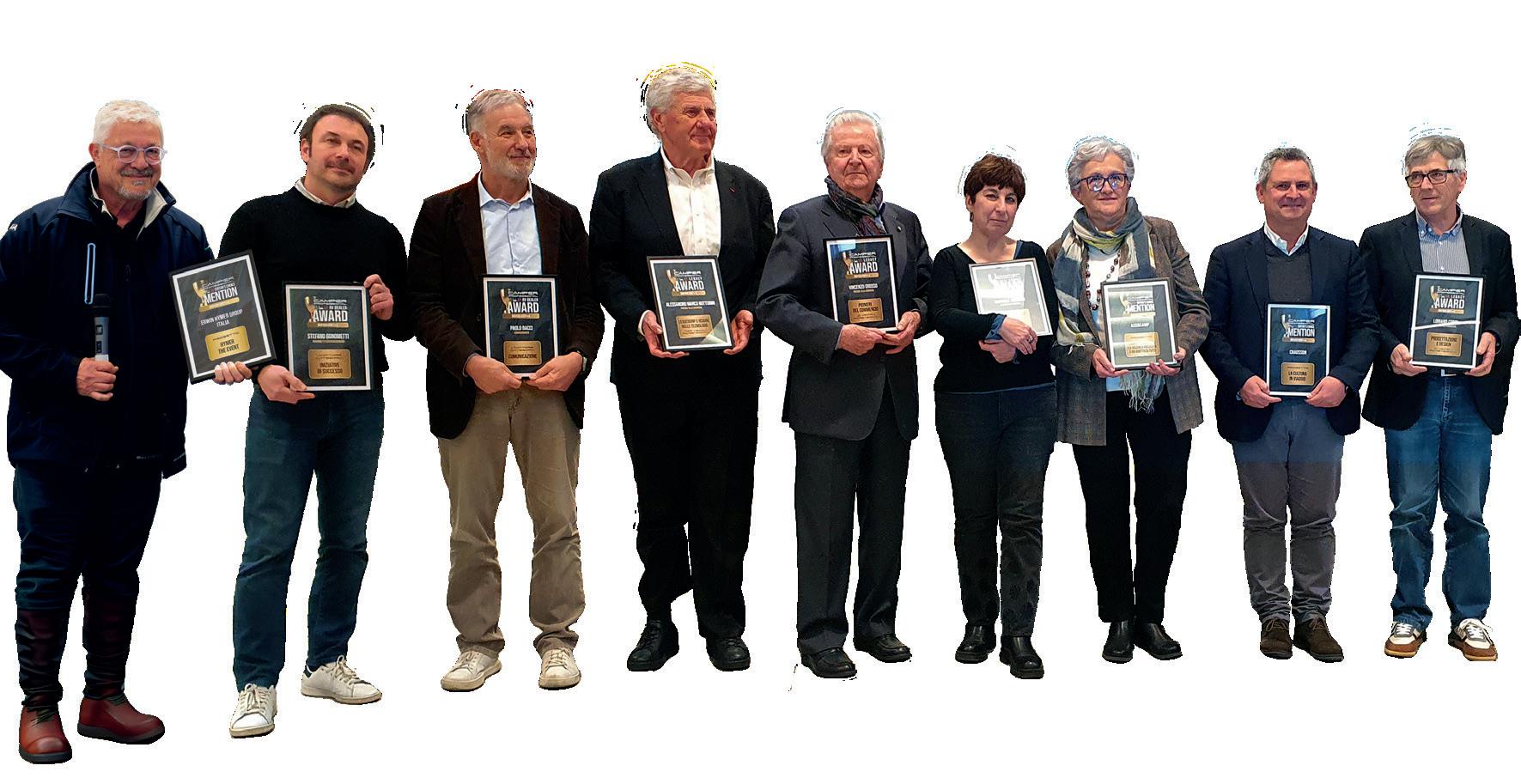

85

News from the world NORTH
Lippert Acquires Furniture Division of Camping World Holdings
LCI Industries announced that its subsidiary, Lippert Components Manufacturing Inc., acquired substantially all the furniture business assets of CWDS, LLC, a subsidiary of
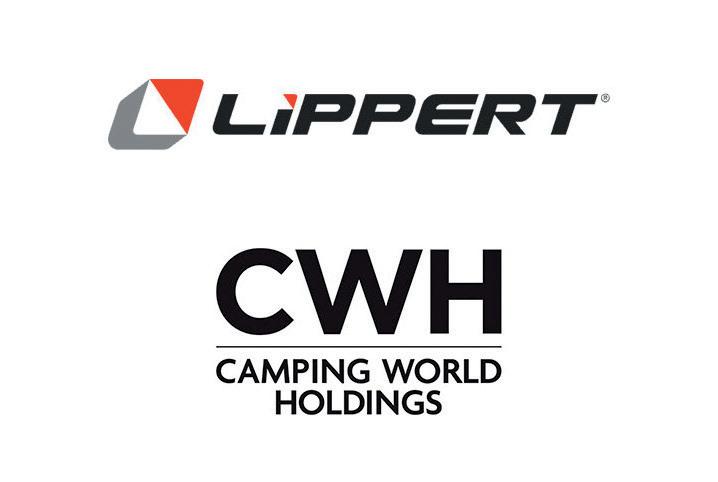
Flash News
Daimler Trucks North America (DTNA) announced the newly expanded role of Kevin Bangston as President and CEO of Freightliner Custom Chassis Corporation (FCCC) while maintaining his current position as President and CEO of Thomas Built Buses (TBB). Bangston, who succeeds Jeff Sather, will oversee both the FCCC and TBB teams and will be responsible for strategic vision, overseeing operations, and driving growth across key business areas of DTNA’s Specialty Vehicles division, that include recreational vehicles.
The Outdoor Hospitality Conference & Expo (OHCE) will bring together campground owners, industry-leading representatives and business experts from November 4 to 6, 2024, in Oklahoma City, OK. Hosted by OHI (formerly the National Association of RV Parks and Campgrounds (ARVC)), the event is a center point for networking, building relationships, and education on best practices and trends. According to OHI attendees “can also expect to explore cutting-edge products and services on the expo floor, and more.”
Camping World Holdings, Inc.
According to Lippert, the transaction expands its furniture portfolio, allowing the company to offer more comprehensive product offerings, innovative interior solutions, and improved customer experiences, as well as create immediate synergies for interior options in the RV and marine OEM/aftermarket.
“We have been key partners for years and both organizations feel strongly there is more to do for improving the customer experience as suppliers and dealers,” said Jason Lippert, President and CEO of Lip-

pert. “Our goal is to combine our technical subject matter expertise, training, and products with Camping World’s vast network of dealerships to be the leading force in RV installations, enhancements and repairs.”
Additionally, as a Camping World vendor, Lippert will have the opportunity to influence how its products are positioned within the Camping World retail stores. Both companies will also collaborate to enhance the selection on Camping World’s online marketplaces, campingworld.com and overtons.com, utilizing Lippert’s vast RV, automotive and marine product catalogues.
Grand Design announces its first motorized Class C
Grand Design RV anticipates the launch of its new Lineage class C this July, the company’s first motorized model in this segment of the industry.
“Our customers and dealers have asked about our potential entry into the motorized segment,” said Tommy Hall, General Manager for Grand Design RV’s motorized division. “It’s with great excitement that we can share the news of the first product in the Lineage brand.”
According to Grand Design, the service and quality of the Lineage will be parallel with that found in the company’s popular towable segment. Additional motorized RVs are also expected to follow.

“The Lineage name recognizes that the brand is an extension of our strong Grand Design foundation,” said Don Clark, President and CEO of Grand Design RV. “We are looking forward to bringing the quality, innovation and service we are known for in the towable market over to a brand new product and segment.”
Dometic Returns Awning Production to Elkhart, IN
Dometic recently relocated its awning manufacturing and distribution back to Elkhart, IN, to better meet local RV manufacturer demand and increase efficiency and service for its industry partners. Production will include its 9100 series power awnings with subsequent plans for additional units. Dometic’s Mexico facility will continue to service the RV aftermarket with a focus on logistics optimized at its distribution center in Texas. Other objectives of the relocation include optimizing the number of awning SKUs to reduce margin of error while increasing manufacturing efficiencies and implementing a dedicated fleet of trucks for deliveries to reduce wait times.
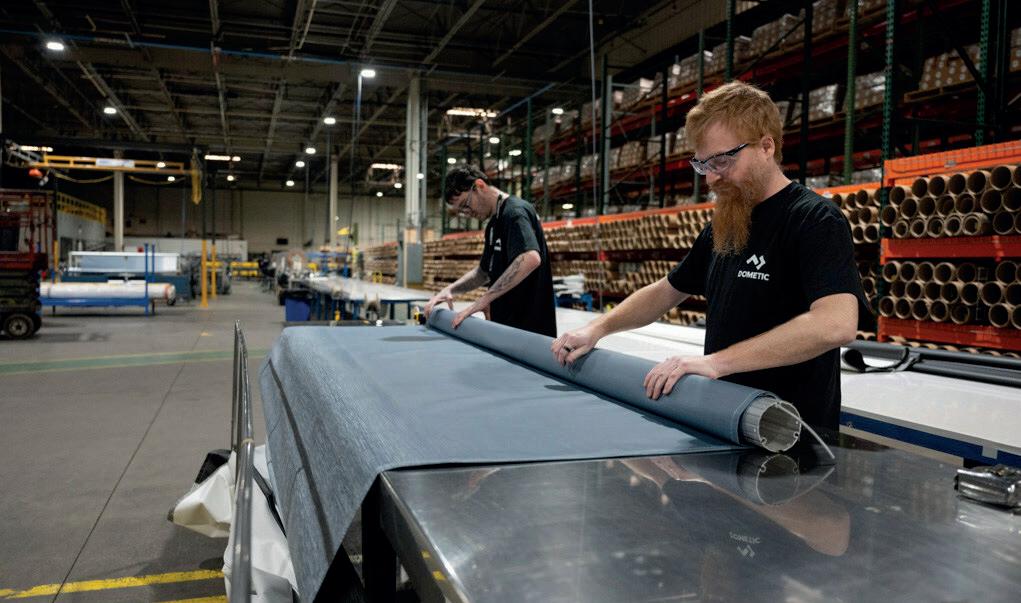
“The return of awning production and these measures ensure delivery performance to our OEM, RV dealer, and distributor partners,” said Todd Seyfert, President Segment Land Vehicle Americas at Dometic.
86
AMERICA Steve Fennell
Courtesy of Dometic
News from the world AUSTRALIA

Australian caravan industry measures success of its Road to a Million campaign
The Caravan Industry Association of Australia says the importance of industry-led campaigns, such as its recent ‘Road to a Million’ promotion cannot be understated, after feedback from over 1,300 participating caravan parks confirmed it raised awareness and was a win-win for both visitors and destinations. A campaign survey with over 4500 respondents highlighted the impact of the campaign and the positive influence on behaviour with people taking camping holidays they had not intended, traveling further and staying longer. The promotional period was strategically designed to provide high visibility leading into the summer period, reminding
Record attendance at Australia’s 2024 Caravan Industry
National Conference
The Caravan Industry Association of Australia attracted a record number of 1086 delegates for its 2024 Caravan Industry National Conference, held from 15 to 17 May. During the event, the Caravan Industry Association of Australia announced that the winner of its Eric Hayman OAM Award for Excellence, the industry’s highest honour, was Grant Wilckens, CEO of the G’Day Group and current Chair of Caravan Industry Association of Australia. It commented: “Grant has been instrumental in providing confidence for institutional capital to invest in our industry, raising the profile of our industry amongst mainstream media and tourism agencies, and leading the national body and the industry through some of the most significant challenges we have ever faced.” The conference included a K-mac Powerheads and Thetford golf day, a gala dinner, plus masterclasses, keynote speakers and panels on topics including: the usage of lithium-ion batteries, cyber security, state association activities, insurance, technology, labour and many more. A manufacturing hub revealed some exciting prospects for innovation, highlighting a bright and sustainable future possibilities for the industry.
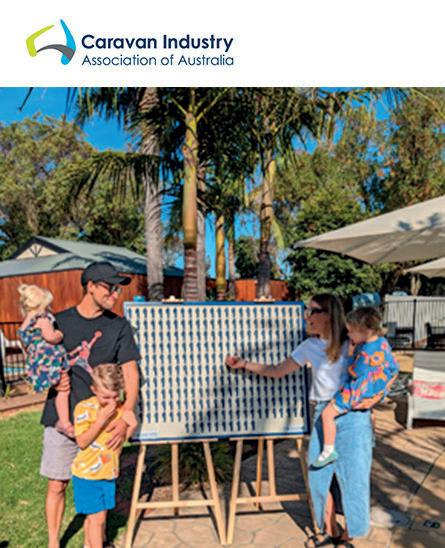
Australians of the fantastic ‘value’ offered by the industry as traditional competitors had returned with force, most notably cruising and international markets. It successfully put camping ‘front of mind’ for millions of Australians between October and February, reminding them of the tremendous value offered by taking a caravan holiday park road trip, including the well-being benefits both physical and psychological. This includes the opportunity to enjoy life’s simplest and most enjoyable moments, a chance to disconnect from life’s busyness and reconnect to nature, your friends and family.
“The Road to a Million campaign, led by the National Industry Body, was a moment for all caravan parks to come together,” said Director of Tourism Creatures, Joanne Keown. “The campaign has been instrumental in ensuring travellers chose caravan parks over direct competitors. Campaigns such as these mean a great deal for our industry as collectively, we are showcasing caravan and camping on a national level,” she continued.
Parliamentary Friends of Caravanning Group visits Australia’s Parliament House in Canberra
The Caravan Industry of Australia’s first-ever Parliamentary Friends of Caravanning Group, which aims to raise the bar on understanding and awareness of the caravan industry within the halls of power, held its first event last week at Parliament House in Canberra. Caravan manufacturers, state association leaders, and the National Board gathered at Parliament House to showcase the width and breadth of the industry’s offerings and to discuss with parliamentarians the value the caravan industry brings to the Australian economy. The day’s events began with an impressive display in front of Parliament House, showcasing leading-edge designs from Track Trailer, Bruder, OzXCorp, and Jayco. Ministers and members from across the political spectrum,
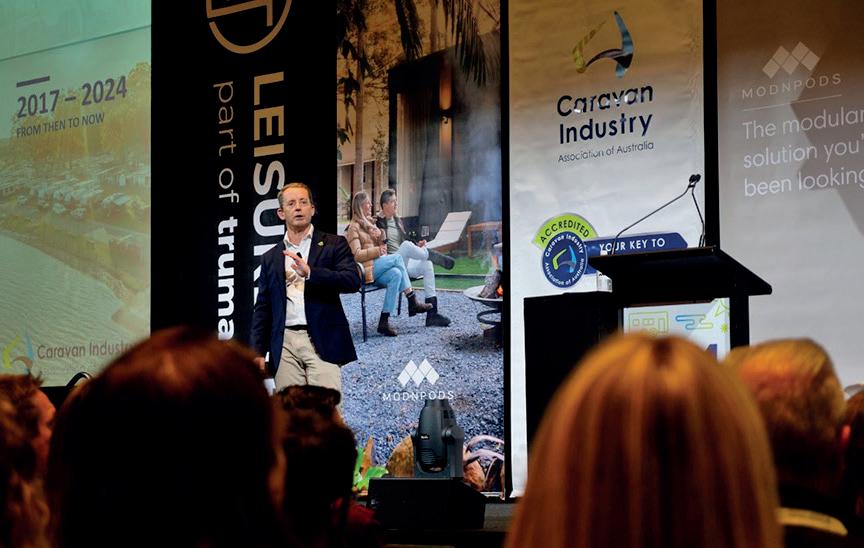
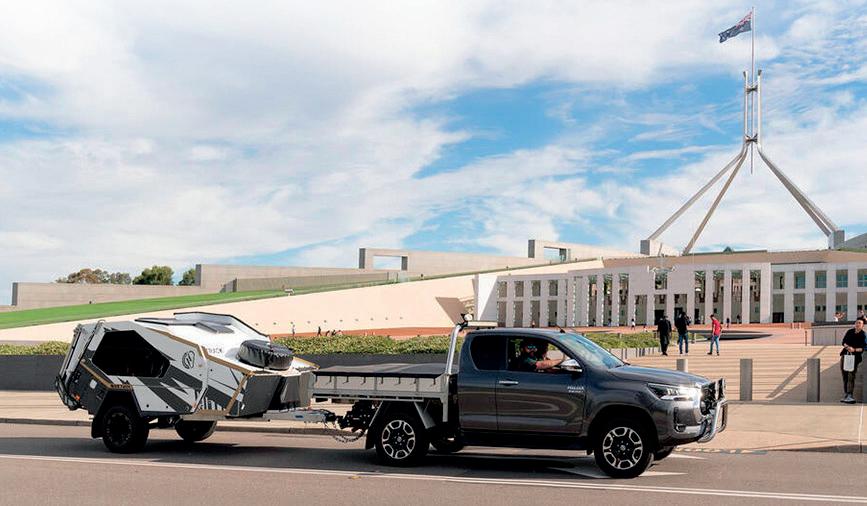
including the Minister for Infrastructure and Transport Catherine King, stepped out of Parliament House to explore some of Australia’s finest RVs, demonstrating the latest in design and innovation and why Australian caravanning product is considered the toughest in the world. This was followed by a cocktail event in Parliament House where Co-Convenors Senator Helen Polley and the Honourable Scott Buchholz set the scene about their love for the industry and the people in it; alongside them was the Minister for Tourism and Trade, Hon Don Farell, who took the opportunity to relay to the room the industry’s immense contribution to the tourism landscape.
CEO Stuart Lamont says the event was an enormous success: “This was our opportunity to showcase just how much our industry offers to Australia, be it economically, culturally, or through our world-class product, regional dispersal, or manufacturing jobs”.
87

News from the world GERMANY
Caravanning remains a trend
The German manufacturers’ association CIVD has published the first quarterly figures for 2024. In the first quarter of the year, 24,835 leisure vehicles were newly registered in Germany. With 19,805 new registrations, the motorhome segment achieved a historic high. At 5,030 units, new caravan registrations are below the level of 2023. New motorhome registrations reach a historic high of 19,805 units (+7.2 per cent) in the first quarter. New car -
Caravanning dealers expect good rental business
The high season for caravanning begins with the May holidays - and many sites in Germany and abroad can look forward to very good demand. The situation is different in the vehicle trade: motorhomes and caravans are mostly in very good supply. Perhaps too well, as dealers’ sales expectations are apparently currently exceeding demand. Accordingly, the industry index based on a representative survey of specialised dealers shows a disillusionment.
Plenty of stock in the trade, high expectations in the rental business and very busy workshops - these are the key findings of a recent survey of specialised caravanning dealers. The survey, initiated by “gsr Unternehmensberatung” in Augsburg and the market researchers at MiiOS in Nuremberg, serves as the basis for the caravanning industry index, which shows that although sentiment remains high in spring 2024, it has fallen by seven points to 85 points. The main reasons for this are cautious expectations for business prospects in sales and relatively stable prospects in the rental business.
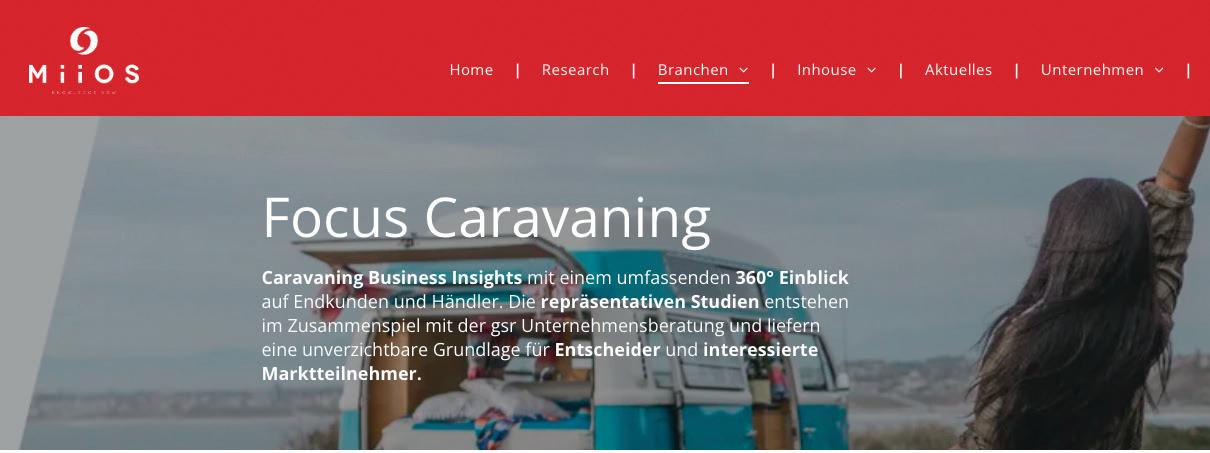
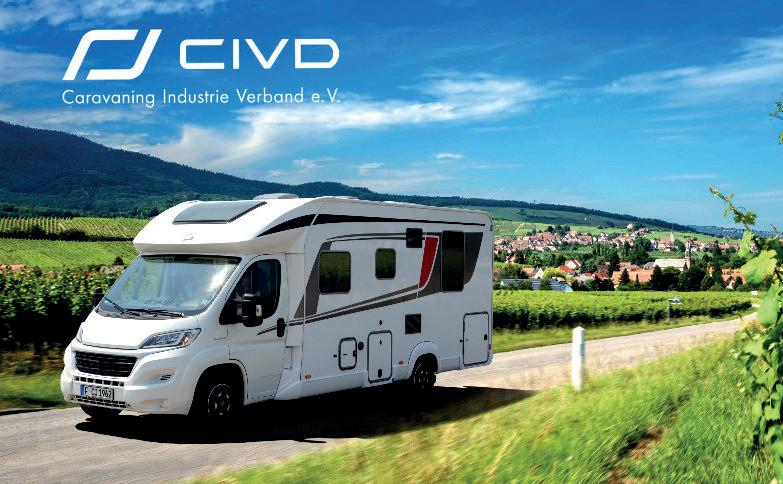 Peter Hirtschulz
Peter Hirtschulz
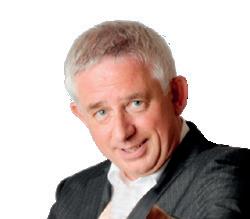
avan registrations fell by around 260 units and, with a total of 5,030 new registrations, were below the previous year’s level. The unabated enthusiasm for caravanning in Germany and Europe and the improved availability of vehicles make the industry optimistic for the rest of the year. Between January and March, 24,835 new leisure vehicles were registered in Germany, an increase of around 4.5 per cent compared to the same period last year.
Award-winning caravanning ‘made in Germany’
Hymer wins two of the coveted iF Design Awards in 2024. The self-sufficiency concept of the Hymer Grand Canyon S and the Eriba Touring Colour Editions impress the jury in the Automobiles/Vehicles category. With striking designs and innovative solutions for more comfort and sustainability, the Hymer top model Grand Canyon S and the Eriba Touring Colour Editions impress both customers and the vehicle industry. At the iF Award Night in Berlin, the jury of the renowned iF Design Award was also impressed and
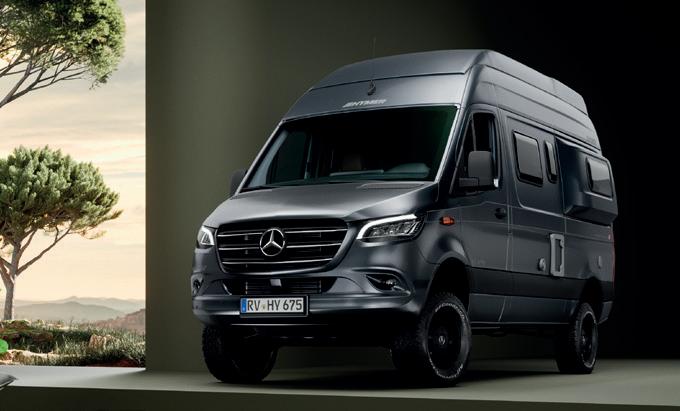
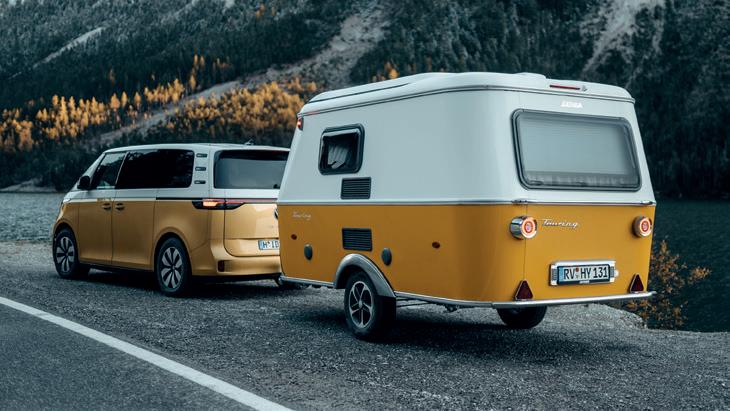
gave the motorhome expert two reasons to celebrate: in the ‘Automobiles/ Vehicles’ category, the design of the Hymer Grand Canyon S, which is geared towards independent travel, was honoured with one of the coveted awards. The eye-catching Eriba Touring Colour Editions also impressed the jury. The iF Design Award is one of the most important design prizes in the world. In an evaluation process lasting several days, 132 independent, high-calibre design experts assessed over 10,800 submissions in various disciplines.
‘German’ marketing in the caravanning industry
The German motorhome and caravan manufacturer Knaus Tabbert is not only successful in the fast lane in the caravanning industry. The company from Jandelsbrunn is also successfully overtaking in marketing. Hardly any other sport has aroused as much new interest in recent years as the popular GT3 racing series. In the 2024 DTM season, KNAUS is supporting the long-established Emil Frey Racing team as the main sponsor. The team from Safenwil in Swit-
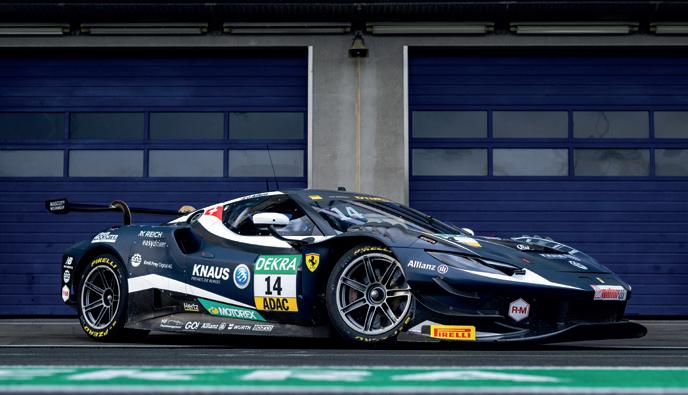
zerland can look back on over twelve years of experience in this class. The Ferrari 296 GT3 with racing driver Jack Aitken at the wheel bears the KNAUS swallow logo. With the Ferrari 296 GT3, the team is relying on one of the most high-profile racing cars currently available. With 608 hp and 712 Nm of torque from its supercharged V6 engine, the top Italian sports car offers the best prerequisites for many top placings, comparable with Knaus caravanning business.
88
News from the world FRANCE

RV distributors: 8th national meeting
The 8th National Meeting of Leisure Vehicle Distributors, held from January 27 to 29, 2024, marked a significant milestone as it was the first time the event took place outside France, with the majestic Pestana Palace in Lisbon, Portugal, serving as the venue. This biannual event, organized by DICA, brought together industry professionals to discuss and reflect on the central theme of “employer branding.”
Patrick Sanz, President of DICA, opened the event, emphasizing the importance of attracting and retaining talent in the leisure vehicle sector. He highlighted the need to adapt to new consumer expectations in a rapidly evolving market. Over the course of three days, participants engaged in various workshops and conferences. The event kicked off with a captivating session by Régis Rossi, a renowned illusionist and author, who delved into the importance of emotional intelligence in management and communication. Through engaging illusions and interactive participation, Rossi
demonstrated how emotions can significantly influence our perception and decision-making processes.
Flavien Neuvy, an esteemed economist and Director of the Observatoire Ce-
the leisure vehicle industry.
The final seminar was led by Franck Pierrot, a former GIGN member turned professional speaker, who focused on the strength of collective effort in meeting new challenges. Pierrot emphasized the importance of trust, teamwork, and a positive work environment. He explored how collective strength can drive individual and organizational performance, especially in the evolving post-COVID work landscape.
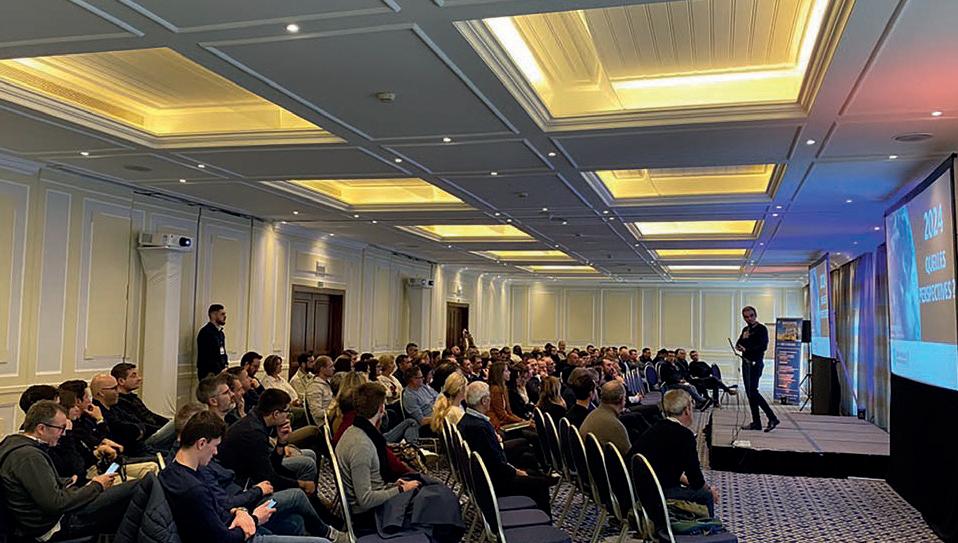
telem, followed with an enlightening seminar on current economic trends, particularly focusing on inflation. Neuvy provided a comparative analysis of past and present economic conditions, noting the increasing frequency of crises and their impact on purchasing power. He discussed the shift in consumer behavior towards spending more on travel and leisure, offering valuable insights for
The event also featured practical workshops designed to enhance participants’ skills. Flora Desbrosses, a social media expert, conducted a workshop on leveraging social media for communication and recruitment. Valérie Piloa and Muriel Cauvin used theatrical techniques to improve public speaking and recruitment processes. Through interactive exercises, participants learned to present themselves confidently and make compelling recruitment pitches, enhancing their communication skills.
France’s premier network of motorhome service areas
France’s extensive and well-maintained network of motorhome service areas reflects the country’s commitment to fostering tourism and supporting local economies. By offering comprehensive and accessible facilities, France ensures a warm welcome to motorhome travelers, reinforcing its status as a top destination for outdoor holidays. France boasts one of the world’s best networks of motorhome service areas, a testament to its strong tourist appeal and the proactive efforts of local authorities.
In 2024, the Guide national des aires de services by Le Monde du Camping-Car lists nearly 4,000 service areas across the country, offering essential amenities such as water refills and waste disposal. Additionally, there are around 8,000 reception areas, some equipped with overnight parking and supplementary services. Local governments have been instrumental in developing these facilities, recognizing the economic benefits they bring. For instance, the region of Pays de la Loire alone has 501 registered
motorhome areas, with developments typically initiated by municipalities or community groups. This decentralized approach helps pool financial and human resources, leading to better facilities for tourists. In Brittany, the town of Plouescat has invested in a new motorhome area, strategically located near restaurants, bars, and shops. “We aim to boost the local economy with the estimated €50-55 daily spending per camper van visitor,” says Mayor Éric Le Bour. This investment has extended the tourist season, with camper vans present from April to November, depending on the weather. Smaller communes have also embraced this trend. Servon, a village with fewer than 300 residents near Mont-SaintMichel, opened a 32-spot motorhome area in May 2023, featuring amenities like a playground
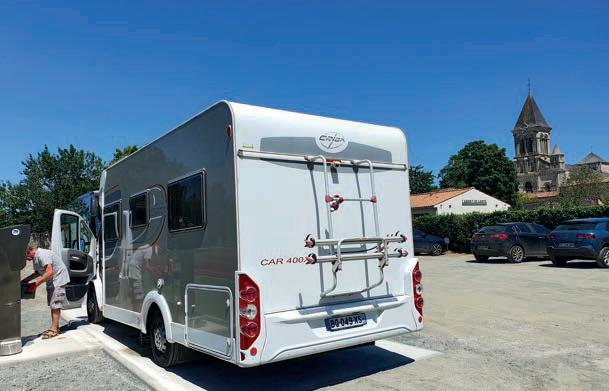
and boules court. Funded through a mix of local budget and various grants, this €360,000 project aims to capitalize on the village’s proximity to the famous landmark. The community of communes Vendée Sèvre Autise has opened four new service areas, integrating them into village centers to ensure easy access to local amenities. This €380,855 investment, partially funded by regional subsidies, exemplifies the strategic development aimed at attracting and retaining motorhome tourists year-round. France leads in service area provision, with significant contributions from regions like Nouvelle-Aquitaine, Occitanie, and Auvergne-RhôneAlpes, each boasting over 500 service areas. Brittany stands out for its high density of service areas, ensuring accessibility within 74 km on average.
89
This article is based on content written by Olivier Lemaire and published in La Tribune - Journal of DICA, Fédération Nationale des Distributeurs de Véhicules de Loisirs
This article is based on content from VDL - Magazine des entreprises du véhicule de loisirs (UNI-VDL) n. 139.

News from the world UK
Dealerships change hands
Several caravan and motorhome dealerships in the UK have recently changed hands as the market adapts to current trading conditions. In spring 2024, administrators were appointed to several companies within the Robinsons Caravans Group, including Golden Castle Caravans Limited, Robinsons Caravans Limited, and White Arches Caravans Limited. The business and assets of Golden Castle were sold to Gloucestershire Leisure Limited, while the business and assets of White Arches were sold to Spinney Motorhomes and Caravans. Part of the business and assets of Robinsons Caravans Limited were sold to Storebon Holdings Limited.
Meanwhile, Desira Group Plc has announced the share purchase of Simpsons Garage Great Yarmouth Ltd for an undisclosed sum. Simpsons is a family-run business of 63 years and specialises in motorhome sales, repairs, and servicing in the East Anglia area of England.
A statement from Desira said: “Motorhomes is a new growth area for us. Over the last two years, we have been
Flash News
Swift celebrating 60th anniversary
One of the UK’s biggest caravan and motorhome manufacturers is celebrating its 60th anniversary in 2024. Swift Group Limited, based near Hull in northern England, began in 1964 when business partners Ken Smith and Ken Day made and sold their first caravan ‘The Ten’ for just £289.
Off the back of a record-breaking year in 2023, Swift is planning several celebrations of the milestone throughout 2024.
Rebranded show set for September
A leisure vehicle and holiday home show which moved to Harrogate in Yorkshire last year is set to take place in the same location again in 2024 under a new name. The Great Caravan, Motorhome and Holiday Home Show will take place from 6-12 September this year. Consumers can attend between 6-8 September while the days between 10-12 September are only open to the trade and industry professionals. The show is managed by Expect Events Ltd on behalf of organisers HERCMA.

working on various businesses and brands to add to the group, ensuring any new partnerships would be the right fit and a major opportunity.”
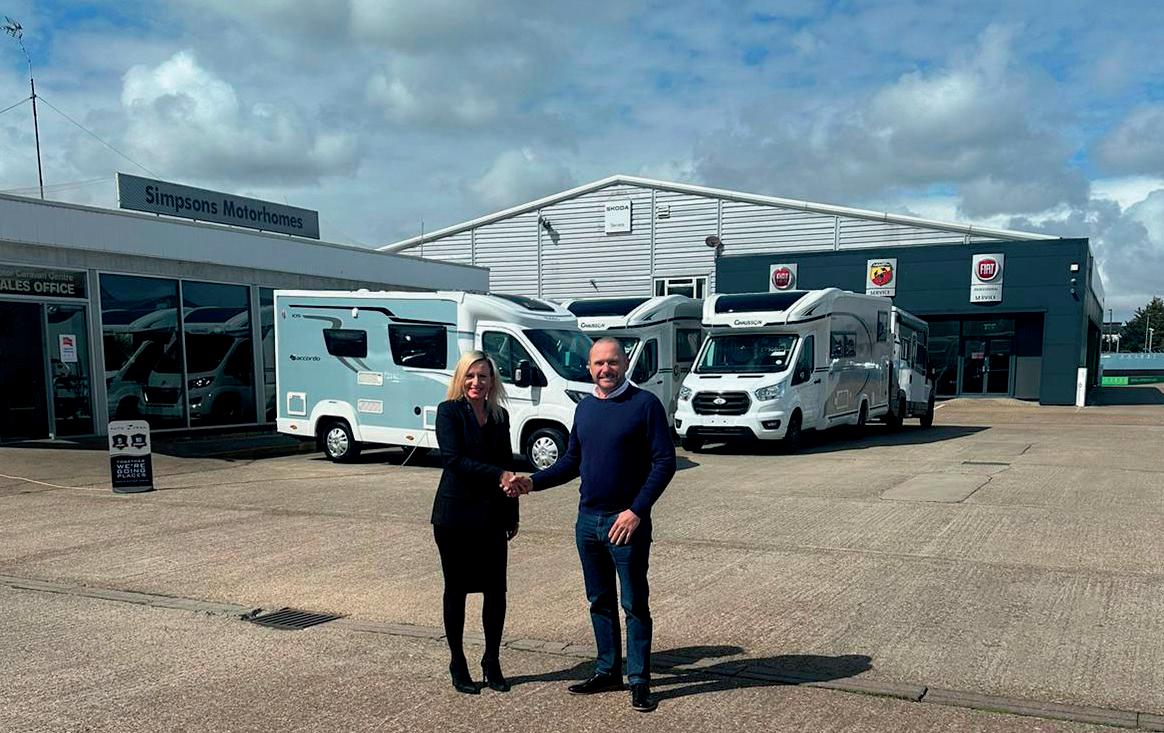
Study reveals UK caravanning trends
Astudy commissioned by British membership organisation the Camping and Caravanning Club has revealed the trends of those who holiday in caravans and motorhomes in the country.
The research revealed that 79% of those polled enjoy a camping or caravanning holiday up to four times per year, and 91% of UK caravanners are ‘eager to explore more of the UK’. It was also revealed that Brits turn to camping because they love the outdoors (46% said this) and consider it more cost-effective than oth-
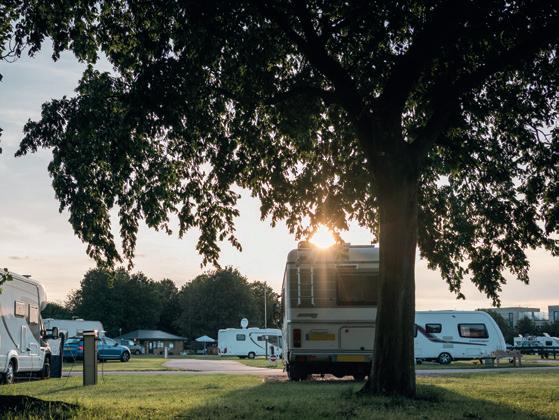
er accommodations (29% said this). Darren Whittington, Deputy Director General of the Camping and Caravanning Club, said: “Camping provides an opportunity to become immersed in the incredible outdoors, away from the hustle and bustle of everyday life. It’s also proven to have a positive impact on your physical and mental wellbeing.”
Those polled were also asked for their favourite camping destinations in the UK – the top five locations were the Lake District, Cornwall, the Scottish Highlands, the Peak District, and Devon.
NCC: new Director of Leisure Vehicle Security
UK trade association, the National Caravan Council (NCC), has announced the appointment of Vince Wise (pictured, right) as its Director of Leisure Vehicle and Holiday Parks Security.
Vince has worked with the NCC since 2022 and worked in the Police for more than 30 years, giving him the ideal background and experience in vehicle crime. He takes over the role as Tim Booth has decided to step down from his role with the police vehicle crime unit.
John Lally, Director General of the NCC, said: “Vince Wise brings a comprehensive understanding of vehicle theft and now, with a deepened knowledge of lei-
sure vehicles, is eager to collaborate with indus try stakeholders to improve information sharing and deter leisure vehicle theft. I would like to record my thanks to Tim Booth for his many years of service to the NCC.”
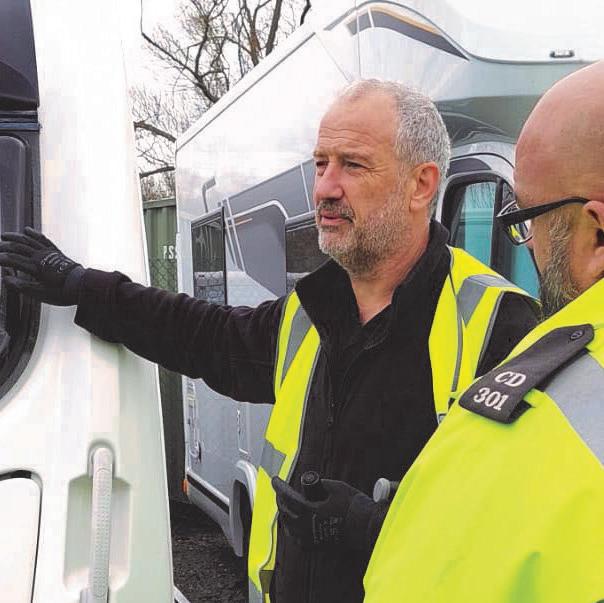
Disrupting organised vehicle crime and the theft of caravans and motorhomes is an important part of the NCC’s work on behalf of the industry, with this new appointment set to enhance that.
90
David Guest
Desira buys Simspons
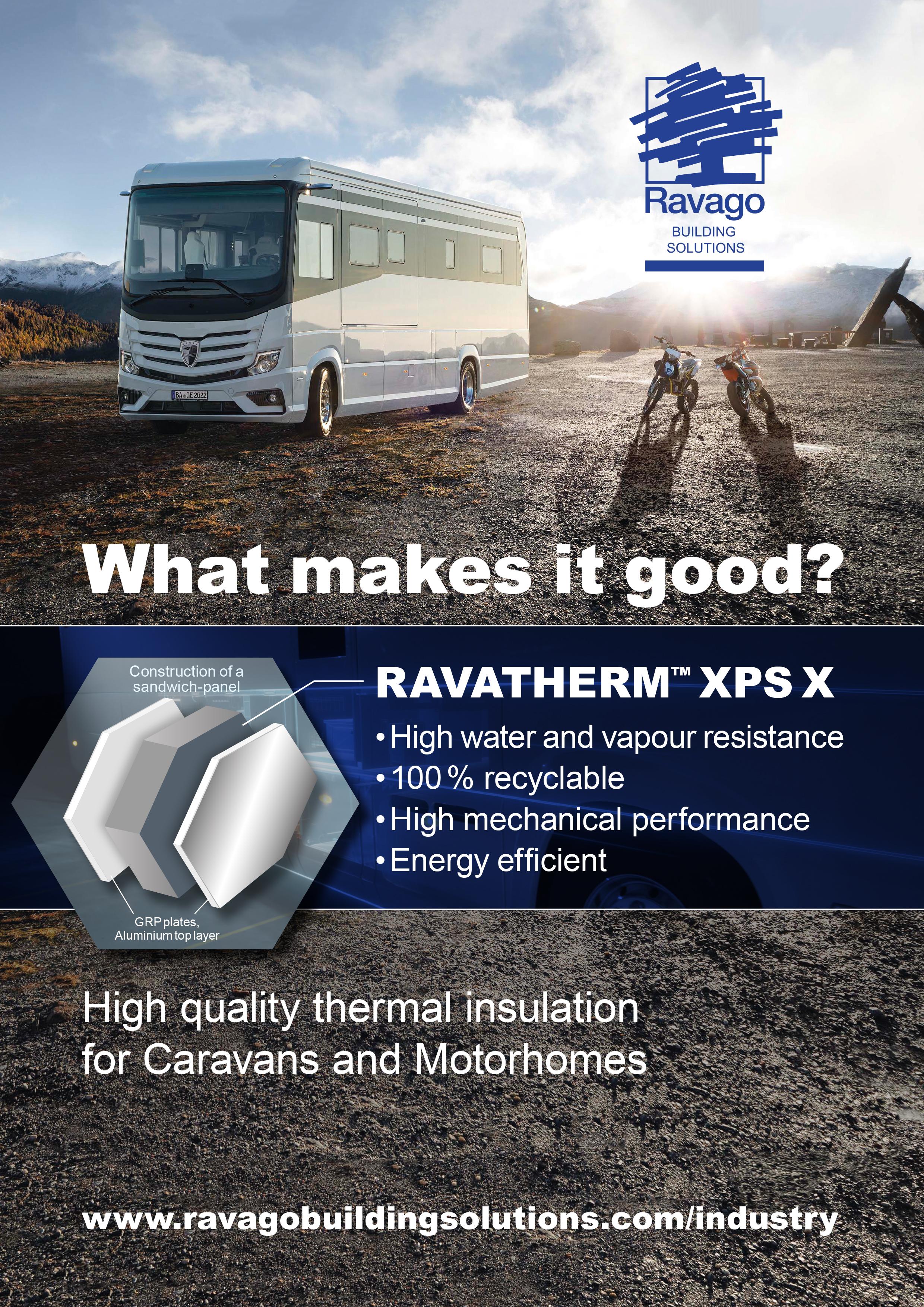
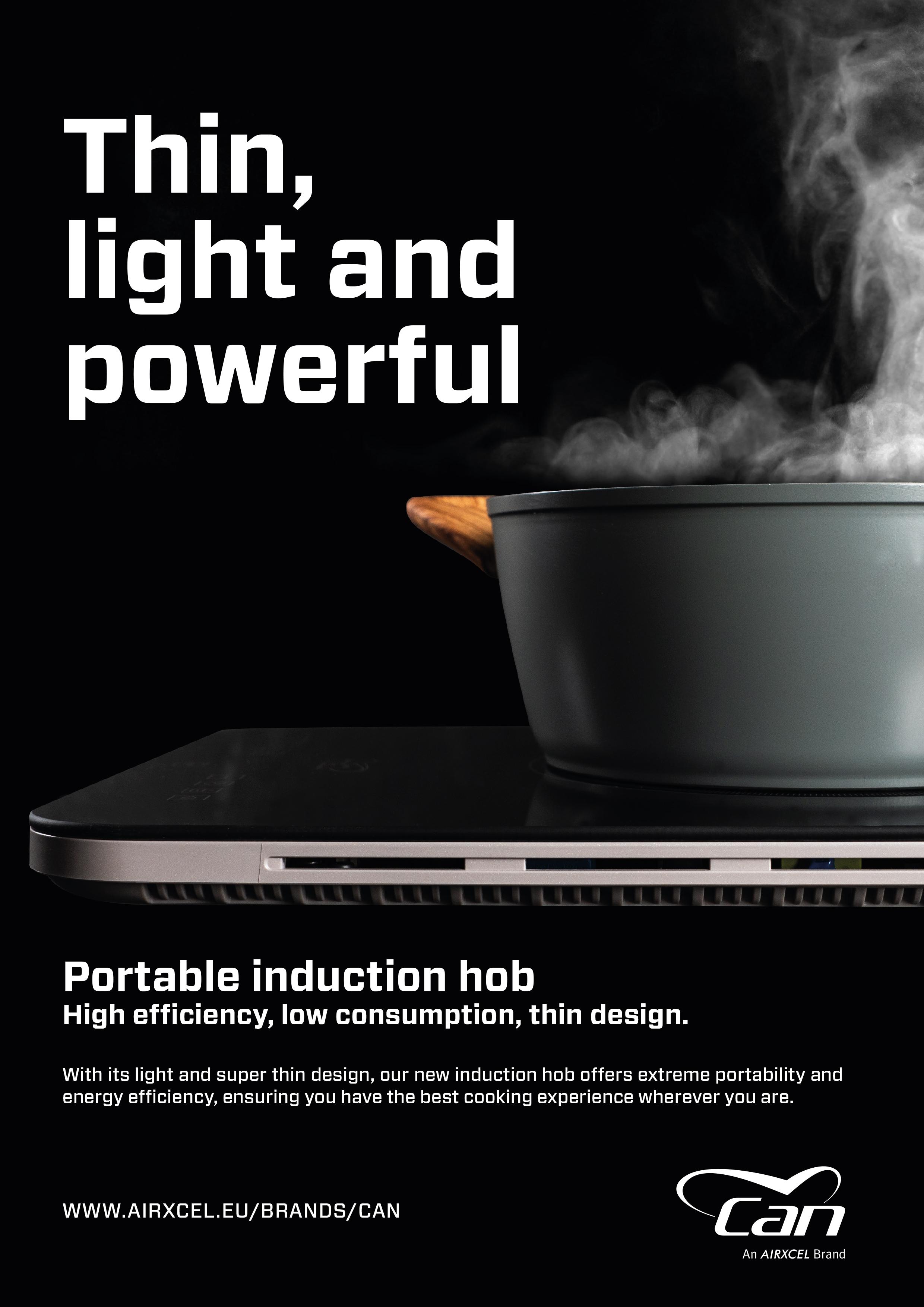

























































































































































































































































































































 Peter Hirtschulz
Peter Hirtschulz













